Humans of Hennepin Healthcare
In recognition of the variety of humans that make it possible to perform our mission at Hennepin Healthcare, we have refreshed our Stories from the Field series to become Humans of Hennepin, sharing reflections not only from employees but also from volunteers, donors, patients, and community partners.

Thuylinh Vuong, RN, BSN, PHN – Inpatient Float
“Working in the float pool, I practice nursing in different areas like the intensive care units, medical-surgical units, and the emergency department. I enjoy sharing solutions and advice I gain from one department to another. My specially trained role in the float pool as a rapid response team nurse gives me the opportunity to assist my colleagues in learning and improving their skills. Half of my shifts are in this resource role, so I assist many areas of the hospital and respond to individual calls and patient emergencies. By helping each other solve problems and sharpen our abilities, we collectively enhance healthcare accessibility and quality.
One of the most rewarding parts of my job is witnessing patients come in at their worst state and working with them through their complications until they’re stable. Whether the patient experienced an uncomplicated stay or had a long hospital course, each discharge makes our teams feel accomplished. We help patients heal not only physically, but mentally and spiritually.”

Jen Karkoc, RN – Inpatient Burn
“This year, I transitioned to the burn ICU. It’s been a huge eye-opener. I work with some of the best nurses. It’s incredible to watch them give the best care to some of the sickest patients in the hospital. The nurses have been there a really long time, and since I’m new, I ask questions, and we collaborate. It’s so cohesive. Some of our burn dressing changes take up to an hour with three people working on them. We get it all done.
Our patients stay a long time. We watch them go through the worst parts of their life with a horrific burn. We help them heal and learn what their new normal is. I like that we get to know the patient families too. I recently had a young patient whose family was wonderful – we develop special bonds with the families.”

Charles Sloan, B.A., NRP – Deputy Chief, EMS
“Part of my job is to make sure the paramedics and EMTs have the tools necessary to do their jobs. We take great pride in providing the best possible equipment for our paramedics and EMTs. That’s everything from the ambulance itself, plus all the equipment inside. In turn, our paramedics and EMTs can deliver high-quality patient care in the most difficult environments. Some of our new equipment includes ultrasound and translation services. People recognize us as industry leaders because we’re always researching the best equipment for our teams. Ambulance companies from all over the country contact me to ask what we’re doing.
Hennepin EMS has historically offered advanced life support (ALS), which is two paramedics in the ambulance. It has now added basic life support (BLS), which is two EMTs, so there’s a difference in training. We dispatch basic life support to lower acuity calls, which they handle efficiently. This allows us to reserve the paramedics for the most critical, life-threatening emergencies. Our goal is to get the right resources to the right patient at the right time. With our Emergency Communications Center triaging like this, we’re better serving our community.”

Joey Ellington - Diversity, Equity, & Inclusion Coach
“A big part of my work as a DEI coach is working with team members to eliminate social barriers in the workplace, many due to racism. I am a huge advocate for building relationships and creating a healthy work environment where people can be their authentic selves and embrace other’s identities. I guide people towards breakthrough moments to address challenges in the workspace. I enjoy building bridges.
One of my favorite things as DEI coach is creating events where people interact and laugh with each other. Building positive relationships is important. I also enjoy hearing how uplifted they are when they feel represented and included. Although our team is relatively new at HCMC, I want people to know that DEI coaches are available to everyone. We want to help people resolve their situations in the healthiest manner and be their best selves in the workplace.”

Rachel Strykowski, MD – Pulmonary
“I balance my time between outpatient, inpatient consultation, and ICU care. I really like the balance of taking care of patients in all the settings. There’s a degree of continuity — I see patients in the hospital and then follow them to the outpatient clinic. The support teams for the ICU and clinic are amazing and make it all run smoothly.
I love the moment when we come to a place of peace with families who are making difficult medical decisions. We’ve had a couple of cases where there’s a complicated cultural barrier regarding an end-of-life decision. It takes multiple different discussions with care members to move forward. It might take a little more time with roadblocks in the way, but it’s so rewarding to get to that moment of peace.”

Yan Kravchenko, CISSP, CSSLP – Core Technology & Information Security Director, IS&T
“I am a first-generation immigrant. When my family immigrated from Ukraine, Hennepin Healthcare was our health system. Like so many immigrants, we had nowhere else to go. When I saw an opportunity to work here, I was excited to be a part of the system that once took such great care of me and my family. Even though it’s been over 30 years since my family immigrated, Hennepin Healthcare continues to make a difference in our lives. When the war in Ukraine started, the organization donated medical supplies and supported my efforts to travel and deliver humanitarian aid to Ukrainians. I appreciate working for an organization with so much heart.
As I focus on the hospital’s infrastructure and information security, I see my role as an enabler. Our team allows the health system to do what it does best. IS&T is mostly invisible. If you don’t know our team exists, we’re doing our job. There’s something beautiful and efficient about that. I feel privileged to work with and lead an incredibly talented and dedicated group of managers, engineers, and analysts who never stop impressing, inspiring, and teaching me about teamwork and dedication.”

Brian Lucas – Writer, True Voice Communications
“My role is to help write the many stories of Hennepin Healthcare. It’s like being a reporter again. I get to interview patients and healthcare workers, learn about a program or resource, and write a story about it. It’s a great opportunity to shine a light on areas of Hennepin Healthcare that people don’t know about. Any time you peek under the curtain, it’s impressive. I’m always amazed at how committed and passionate the teams are – putting families and patients first is core to who they are.
As a storyteller, the best situation you can be in is to be surrounded by great stories and people willing to share them. Recently, a story that stuck with me is the Addiction Medicine Clinic. I talked with two patients who told me their stories. It was incredible to see their positivity and bravery while facing challenging addiction issues. The clinic literally saved their lives. It was an honor to talk to them and inspiring to see that within an epidemic that we often think as hopeless – there’s hope.”

Michael Hodges – Senior Diversity Talent Acquisition Specialist
“My main focus is finding diverse talent by partnering with colleges and other organizations that shed light on underrepresented communities. Our talent acquisition team is the bridge to give people an opportunity that places them in the role where they’ll be the most successful. I was motivated to make this career change because of a personal experience and my interests. My son spent six weeks in the NICU at a different hospital. During that time, I was racially profiled and asked what I was doing there – I was one of two men of color on the unit. Healthcare is another system in which people don’t necessarily get care from individuals who look like them.
2020 rocked everybody. I’m not a person who wants to join a team just to get more people who look like me. In my role, I want to help people change their lives, not only in their careers, but also in their embrace and desire to grow and live the Hennepin Healthcare mission. I believe Hennepin Healthcare is improving at getting the employee base to represent our diverse Minneapolis community more closely. It is by no means perfect. It’s a journey, and we’re in the right position to move forward.”

Liz Haas – Inkind Donor, Epic Event Rental
“I was raised in a culture where it was important for neighbors to help each other. This has continued in my career – people want to do more than just make money. We want to do good. Our team looks for opportunities to sponsor or donate in ways that will help the whole community. That’s why our party event company is donating equipment for Hennepin Healthcare Foundation’s summer fundraiser, Adventurama.
Doing good for others always comes back around. It makes the world a better place. Hennepin Healthcare is a great place to help because it allows us to support a lot of different people and their well-being. I’m especially grateful for our partnership because we’re based in Hennepin County. It’s very fulfilling to help your neighbors.”

Cathy Ziemann – PR & Marketing Coordinator
“In 1992, I was job searching, and my cousin Kim worked at Hennepin Healthcare as an inpatient nurse. She suggested that I apply here. Over 31 years later, I believe I made the right choice. I have been blessed to work in five departments. When I worked inpatient, it was easy to grow close with patients and colleagues because patients stayed for a week or two. There was one patient receiving dialysis that I think felt vulnerable because he sometimes lashed out at nurses. I kindly told him that the nurses were trying to help and that we could work together to manage his pain. Years later, whenever I see him in the hall, he stops me, and we have a nice chat.
My colleagues saw many patients who weren’t in the best condition and extended so much compassion to them. We had to rely on each other to get through the shift and the week. We spent hours and hours together, so we celebrated marriages, births and sometimes divorces together. We grieved for and with each other when we lost members of our families. As I retire, my advice to everyone is to get to know your co-workers and our patients. They can bring so much meaning and joy to our lives.”
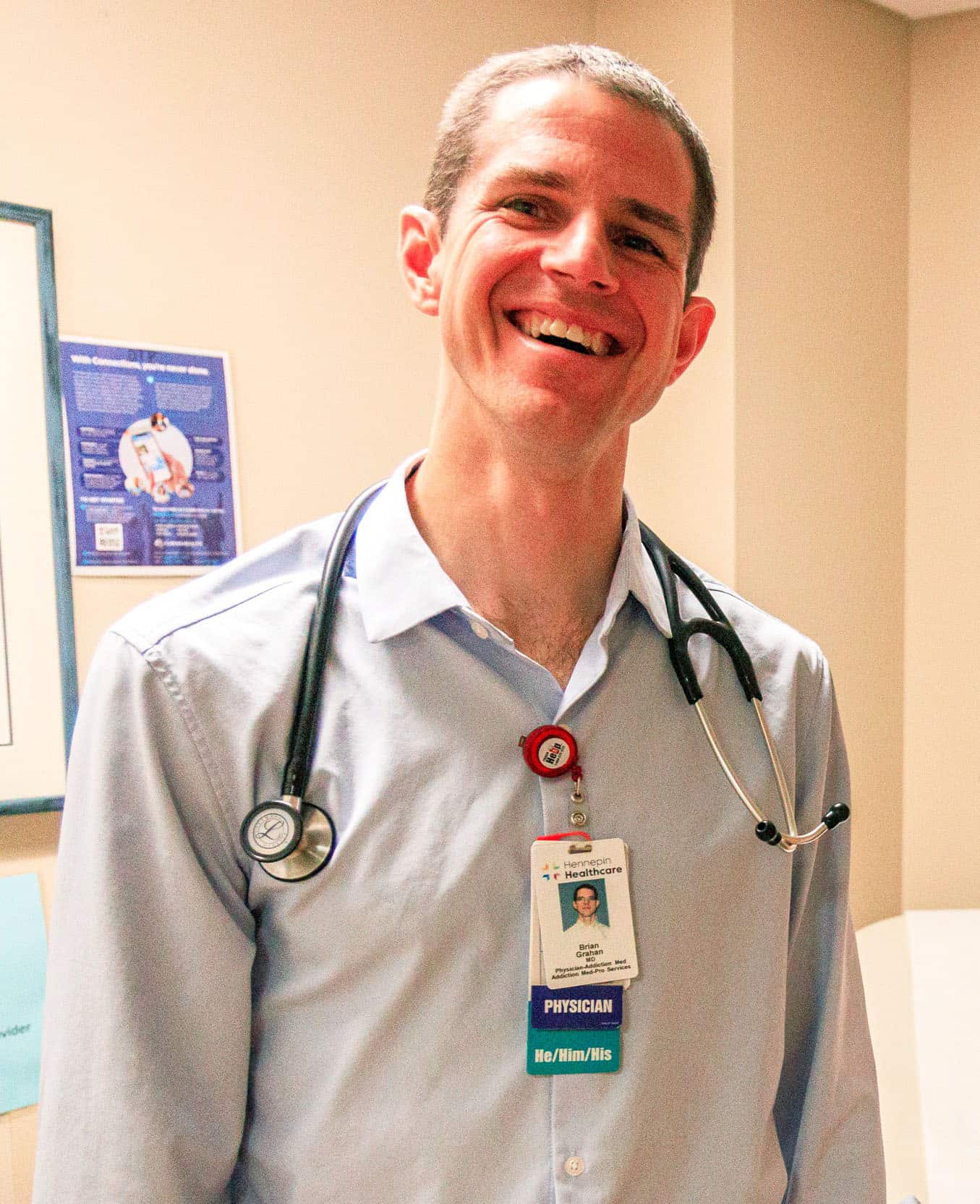
Brian Grahan, MD, PhD, FACP, FASAM – Addiction Medicine, ECHO
“People with substance use disorders are often marginalized both within healthcare settings and their communities. One of the biggest rewards I feel is when we can really engage with people, and they feel like they can be safe and honest in our clinic. It’s a huge relief for them. There’s one patient who was in and out of jail, but she has stabilized so well that she leads multiple programs as a peer recovery specialist. She’s at the forefront of helping how we navigate making people’s lives better.
The risk of death in the year after an opioid overdose is higher than the risk of death after a heart attack. The cascade of care and the resources spent in getting someone’s heart stabilized are incomparably greater than the resources available to people after an overdose. My hope is that we can figure out what system should be in place to support people.”
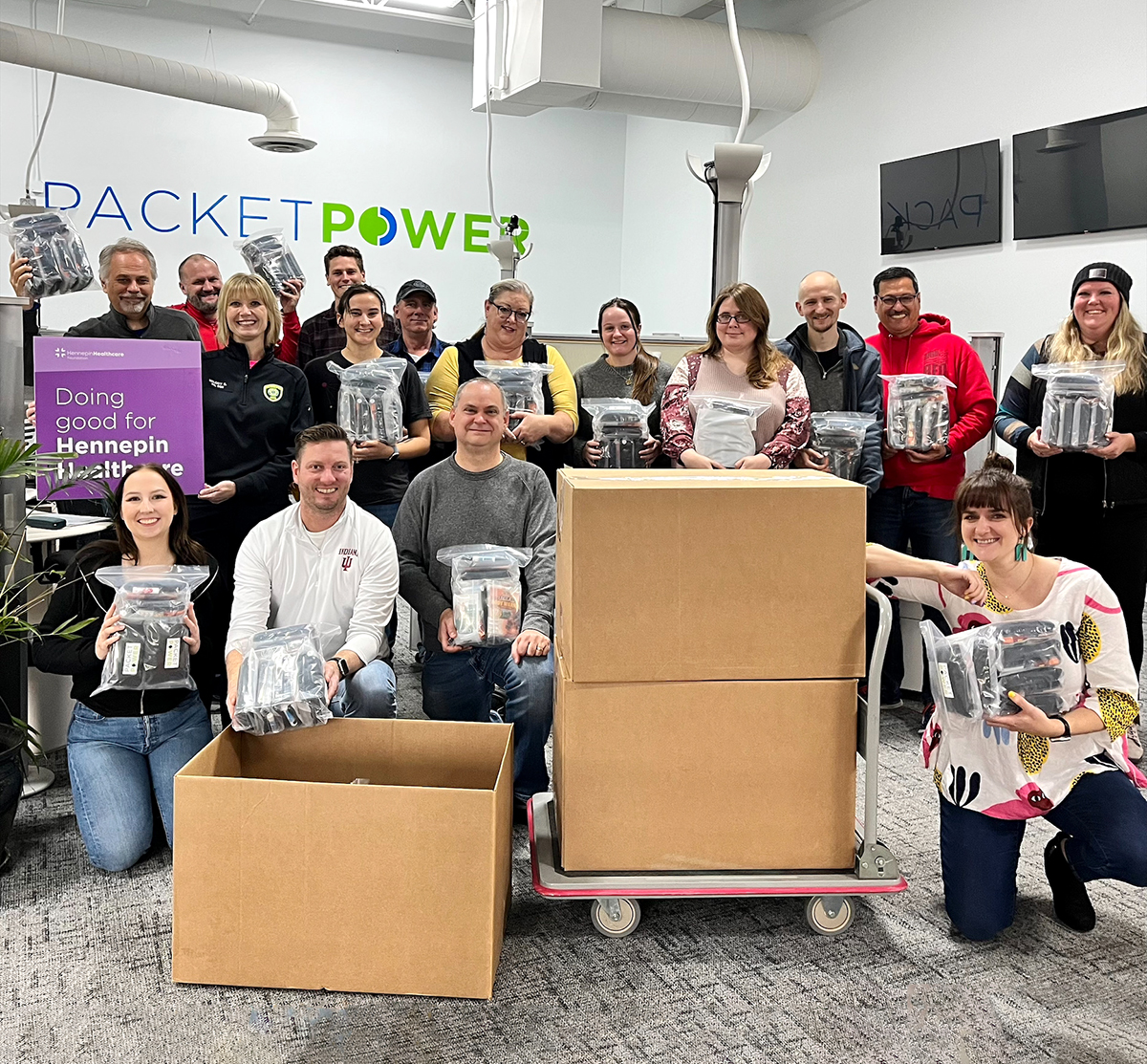
Cheryl Waid – Packet Power, In-kind Donors
“Packet Power has a long history and culture of giving. We ask our entire company which causes they’re passionate about so that our efforts really reflect our team’s values. Hennepin Healthcare came up as a great way to help our unhoused neighbors. We did a sock drive in the winter, and we’re currently working on ‘Giggle Packs,’ which are kits to give kids in the hospital fun activities and distraction.
We’re a global company, but we’re headquartered in Minneapolis. When it comes to our giving efforts, we try to ‘think globally and act locally.’ As a business, it can be easy to focus on business needs and profits, but Packet Power always makes time throughout the year to help our community. Hennepin Healthcare saves lives every day. We love partnering with the teams and look forward to continuing to support our local safety-net hospital and our community however we can.”
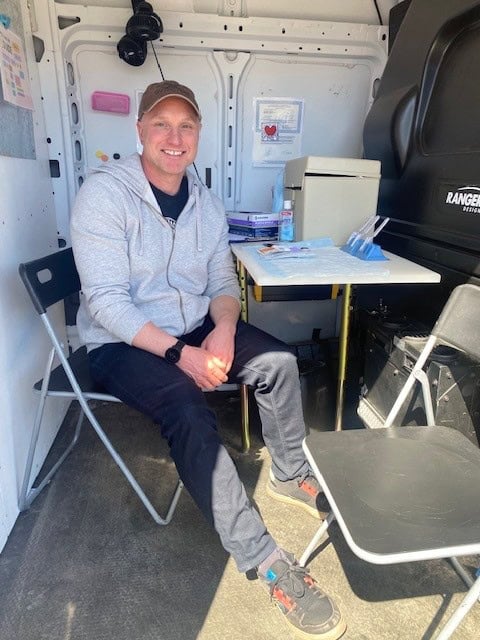
Jesse Powell, PA-C – Gastroenterology and Hepatology Clinic
“Working here reminds me of my training up north in rural health – which sounds funny on the surface. We think of Hennepin Healthcare as this big institution that sees lots of patients, and we do, but in comparison to other health systems around the city, we’re small. I see patients on the light rail and chat with them. They’re my neighbors. I might see them at a local restaurant. We have a valuable connection to the community that you won’t get elsewhere. You get that small-town feeling if you’ve been here for a while, especially if you live in the city like I do.
I really value what I get to do and feel honored to be a part of my patients’ care. That becomes even more prominent when we’re doing community outreach to see what people need and do hepatitis C screening. It’s powerful to know some of the struggles that people here are going through. I respect the positivity they bring every day – it’s amazing when you know some of the backstories, and they’re still engaged with you. I think that’s awesome.”
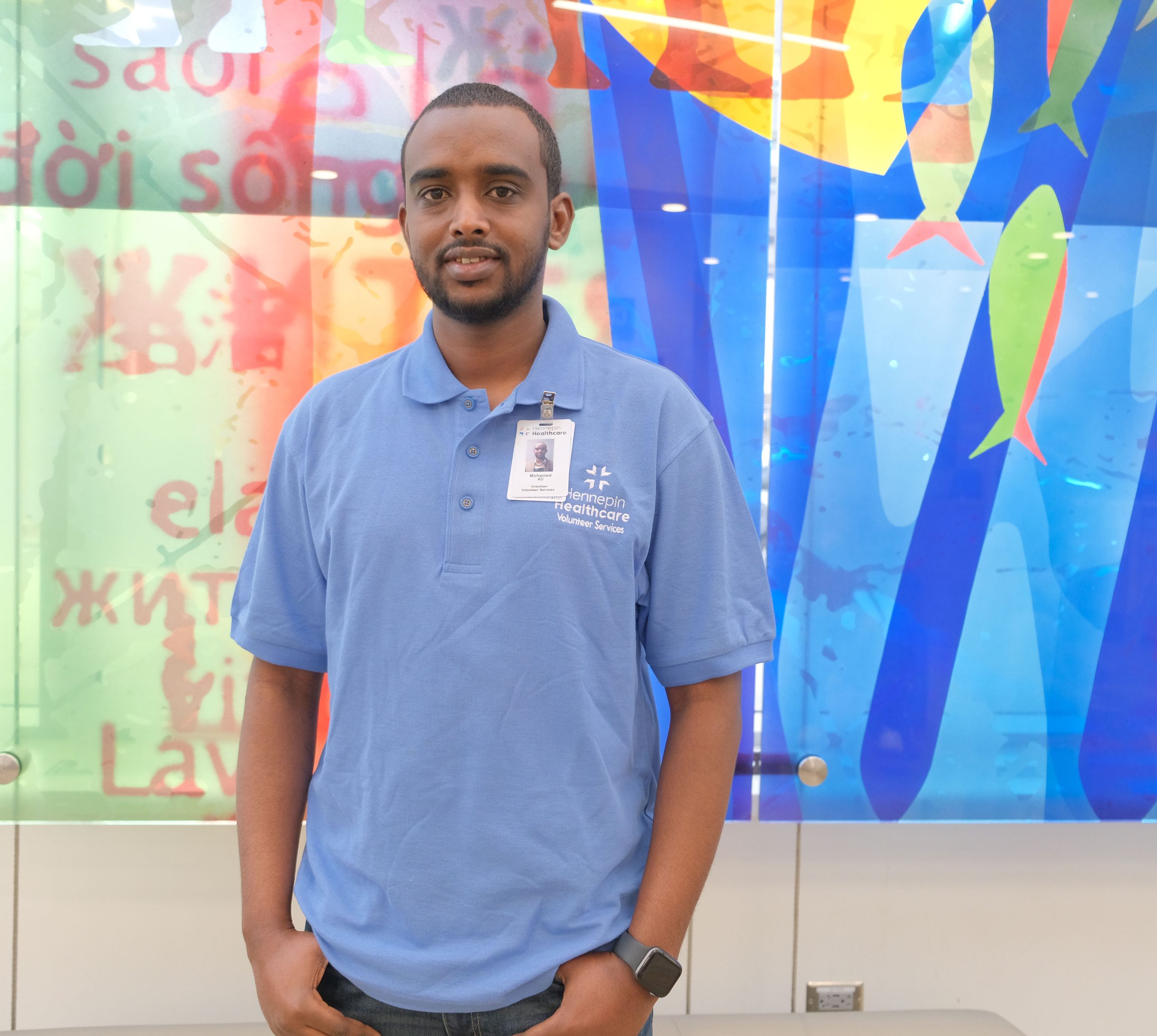
Mohamed Ali – Volunteer
“As a Master of Health Informatics graduate, I’m passionate about helping people understand the power of digital health tools, especially in minority communities. This passion was further ignited by a personal experience. One day, a friend needed help with figuring out when her appointment at Hennepin Healthcare was. I drove her downtown, and we discovered the appointment was that day. Remembering my experience in Sweden where digital health tools are common, I asked about checking appointments online. We learned about MyChart, a fantastic tool that allows you to manage appointments, talk with your doctor, and request medication refills.
My educational background and my friend's struggle solidified my desire to help others navigate these resources. That’s why I volunteer with Hennepin Healthcare’s DEX program. It’s incredibly rewarding to see people empowered by digital health tools and make healthcare more accessible. Knowing I’m helping someone through clear communication and knowledge sharing makes volunteer work truly valuable.”
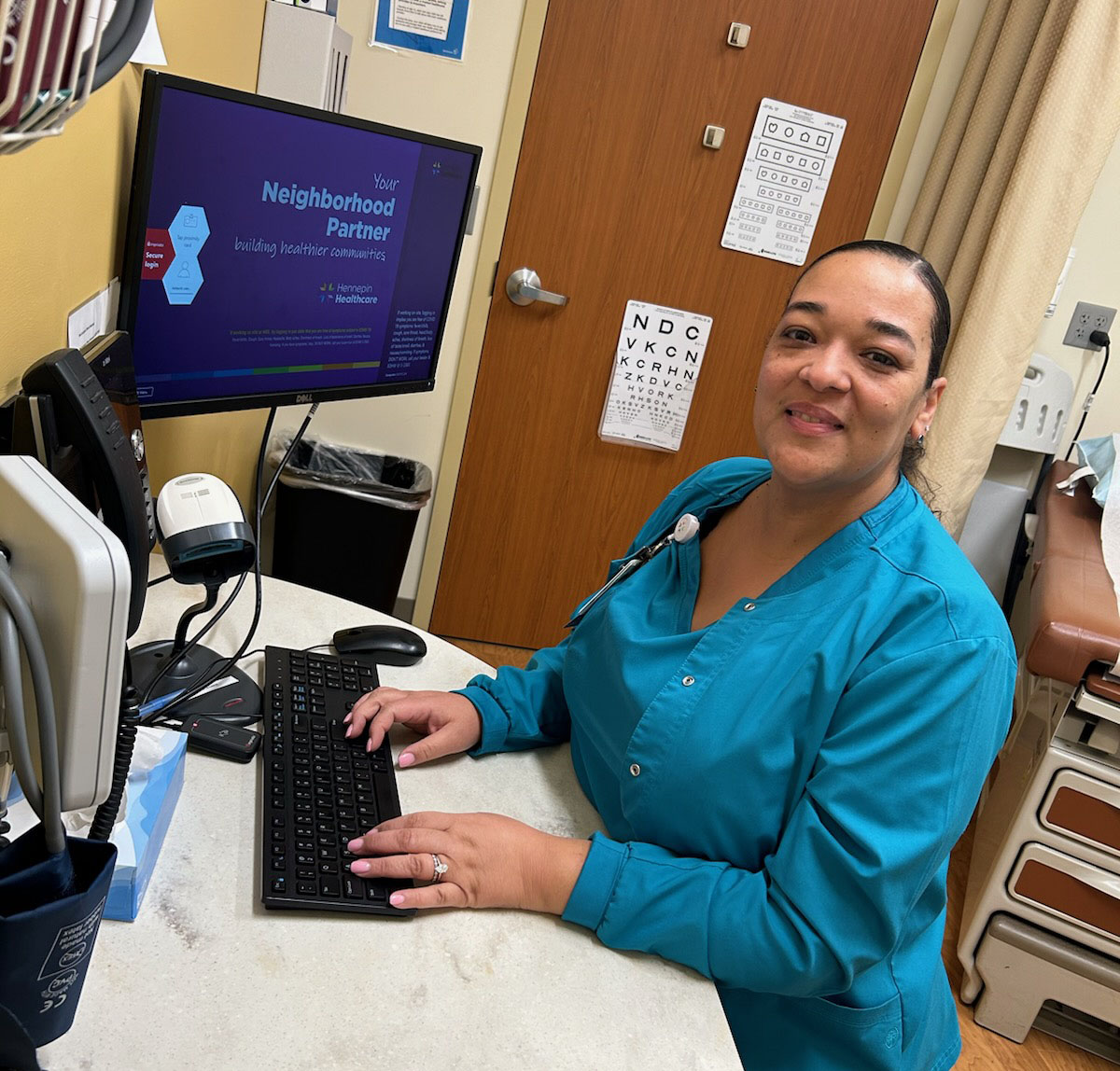
Lisa Burns, MA – Senior Medical Assistant, Brooklyn Park Clinic
“I really enjoy the families that we take care of in our clinic. We see so many different races and ethnicities. It’s rewarding to help with a family’s healthcare and know that you’ve touched their lives.
I’ve been here so long (25 years!) that I’ve seen families grow. I’ve seen them through pregnancies and kids that were delivered, and now those kids have graduated high school and have gone to college. I’ve had a few pregnant women come in and say they recognize me because I administered their vaccines when they were kids. We get to be a part of the whole family picture.”
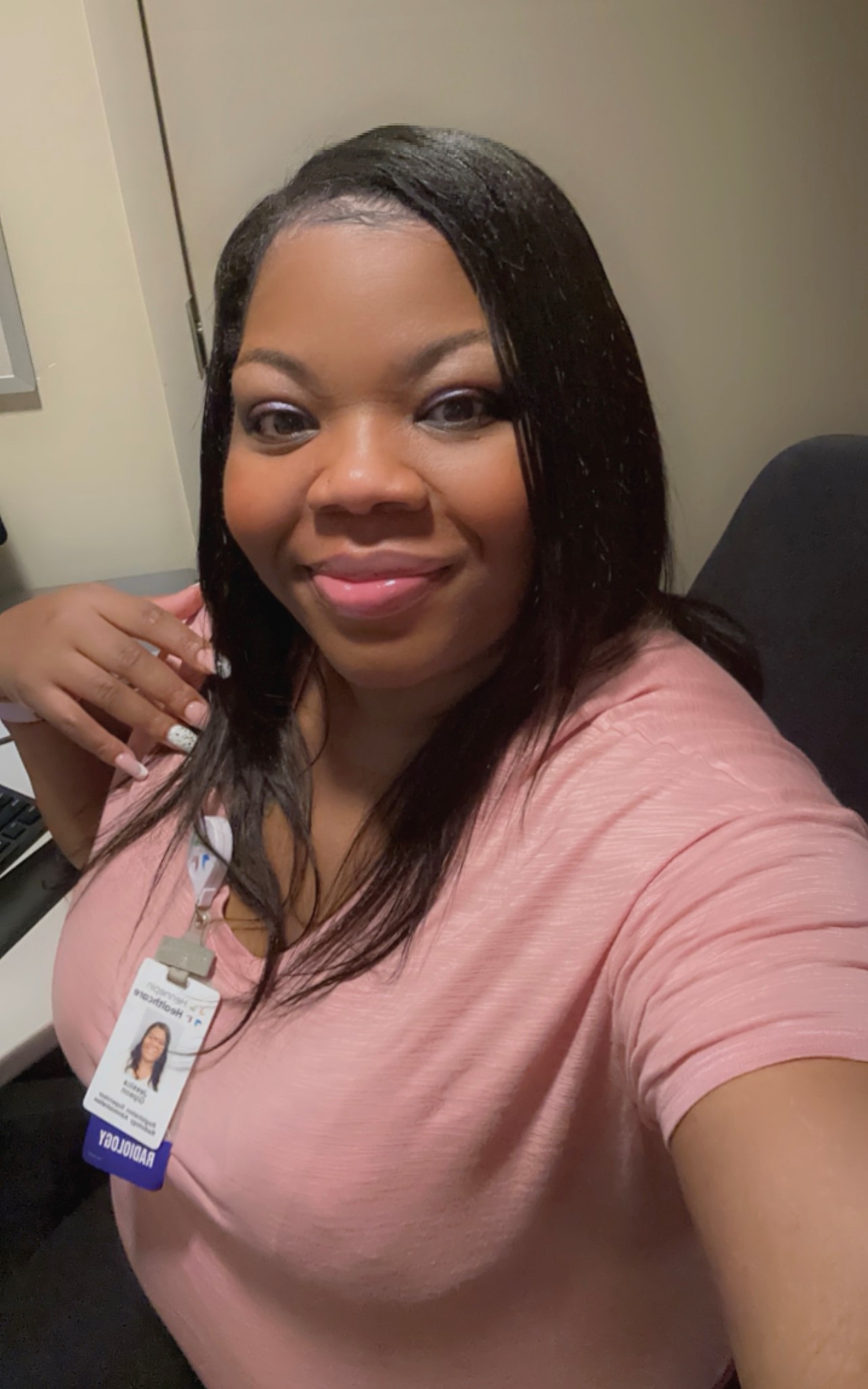
Jessica Gipson – Registration Supervisor, Radiology
“People embrace you here. I’m so grateful for the people I don’t even know that walk through the hallways and help patients. I love that patients don’t have to ask our staff for help. We can tell when someone is lost, and we’ll ask how we can assist them. That tells me I chose the right place.
We’re very hands-on in radiology. Our team must make sure that the patient has been prepped correctly for the imaging they’re getting. Have they eaten? Have they drunk enough water? What allergies do they have? Are their wristbands correct? There are so many different components. It’s amazing that our team does all that and gets the patient checked into their appointment on time.”
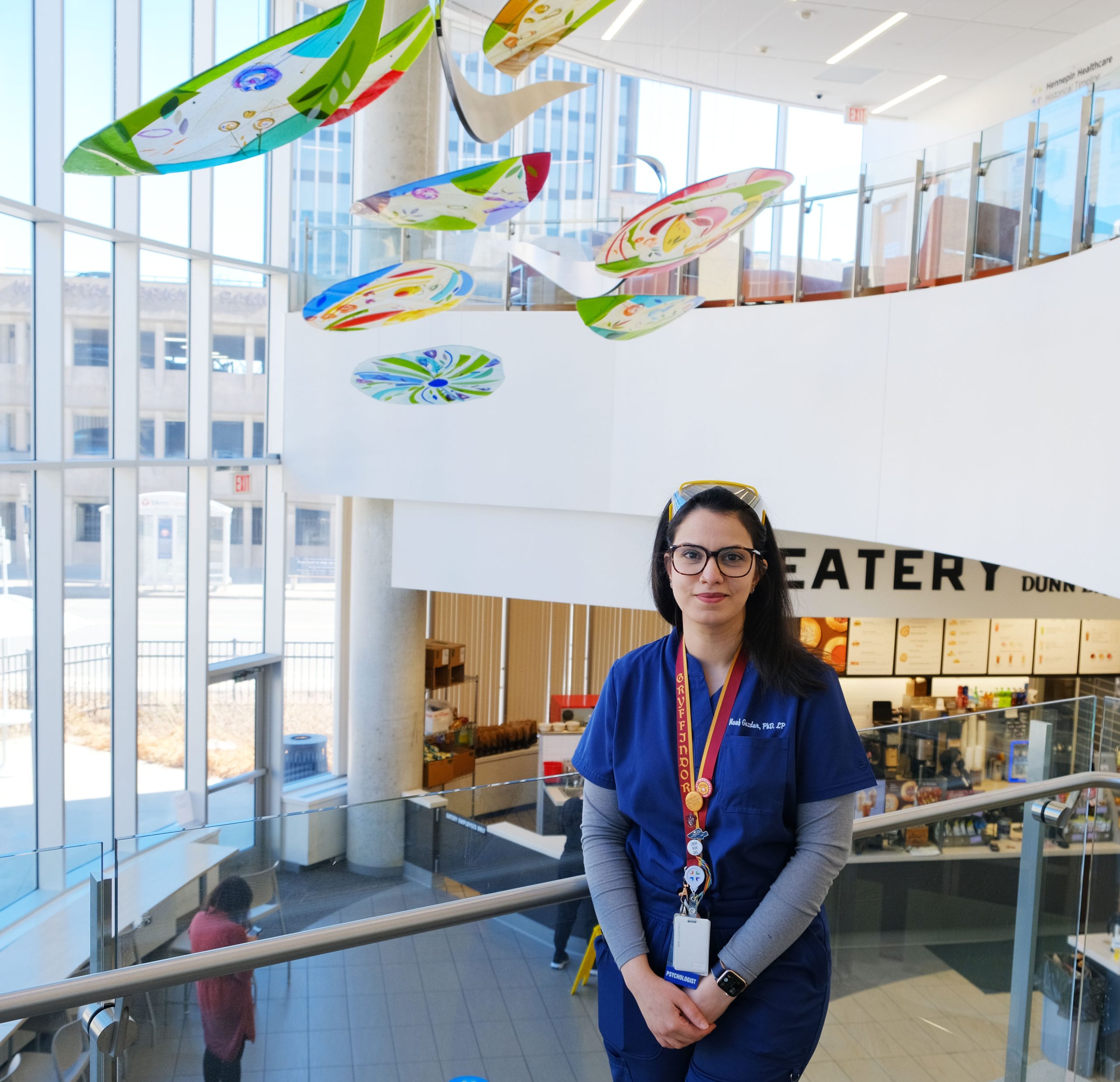
Nouf Gazdar, PhD, LP – Adult Psychology, TBI
“I’m a woman, a mother, and a person of color. I use these identities to help me navigate patient care and understand how a patient’s identities affect their healing. In my work, it’s important for me to reaffirm the patient’s sense of self beyond their diagnosis. Ultimately, my goal is to offer perspectives that encompass all facets of their identity.
Drawing from my perspective as a person of color, I advocate for a broader understanding of diversity within the clinical team. I’m very vocal about the importance of recognizing lived realities that may be different than our own. It’s all about opportunities to enrich our approach to care. It allows me to connect more deeply with my patients, and I believe it is essential to providing holistic trauma-informed care.”
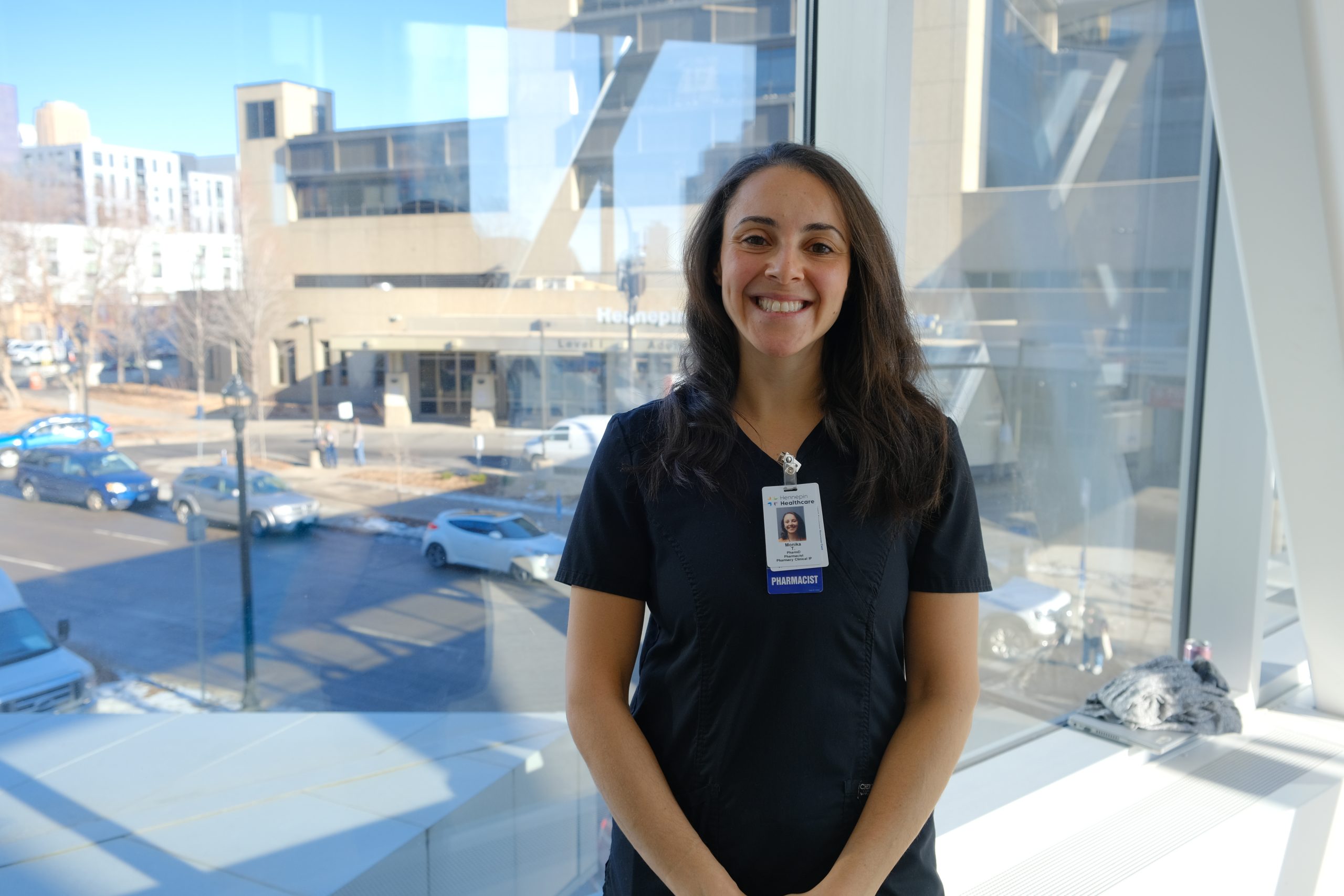
Monika Tawfik, PharmD – Clinical Pharmacist, Inpatient
“As pharmacists, it can be easy to take all the medication knowledge that we have for granted. Fitting medication into their lives is not so easy for patients who have complex social and psychological barriers. In every patient interaction I have, I work to understand how we can give them the tools to take their health into their own hands and feel empowered.
That’s what will make them successful. We can’t be there to remind patients to take their medication, but if we can build a relationship and understand them, we can change the trajectory of their health. Those are the moments that are rewarding, especially as patients transition from inpatient to outpatient because it can be so overwhelming for them. We help them and their caretakers to feel reassured when they leave that they can manage their own care and improve the quality of their lives.”
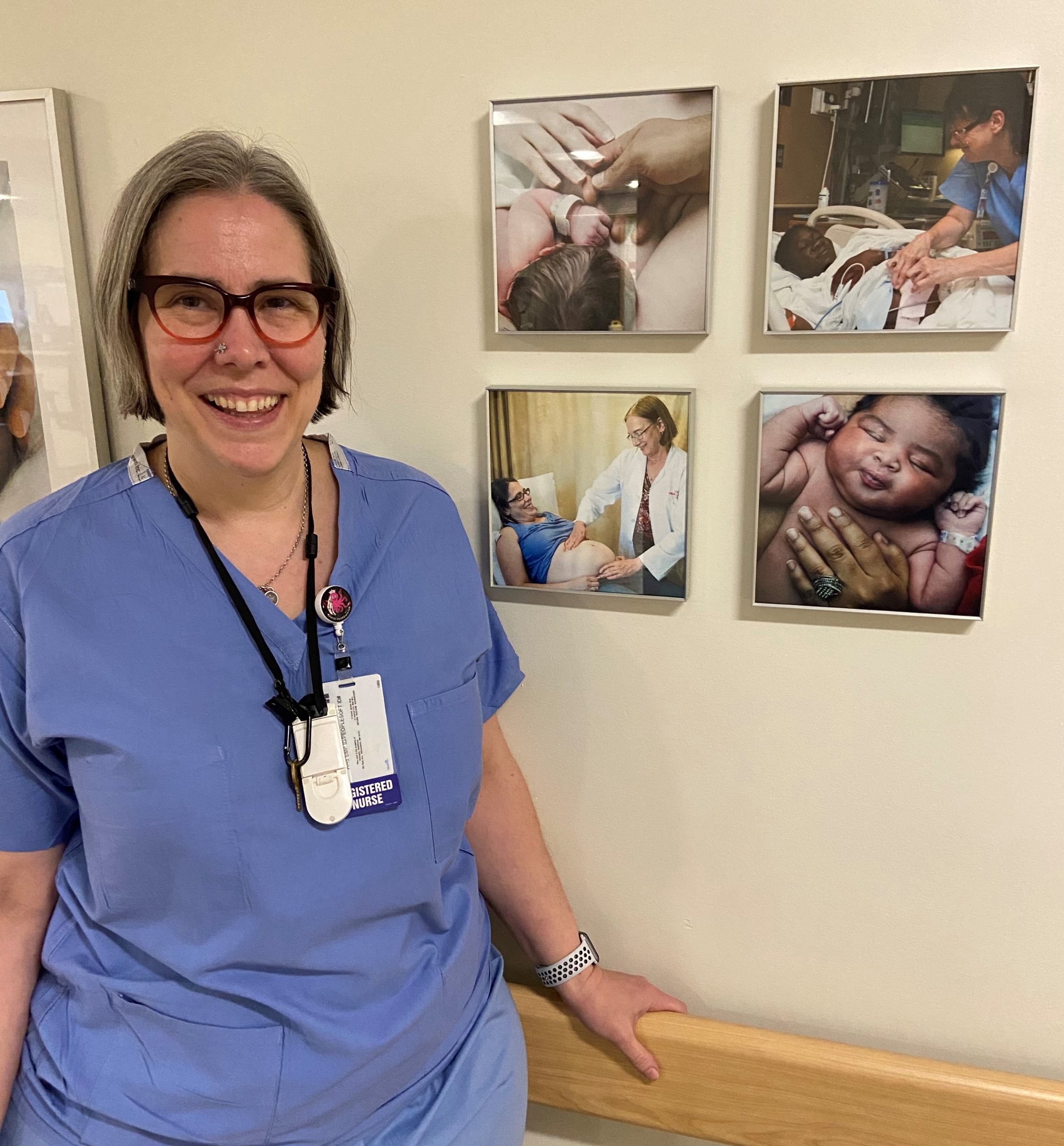
Emily Vrieze-Kiemele, RN – Labor and Delivery
“I knew I wanted to be at a teaching hospital. We work with residents, so we’re constantly learning from each other. At a teaching hospital, everyone’s asking questions. There’s openness to learning and trying new ideas. The team here is so supportive of answering my questions – and I have a million of them! If you’ve been a labor nurse here, you can get hired pretty much anywhere in the Twin Cities because of our reputation for high standards.
It’s rewarding to help people through scary moments, especially with their first baby. We help them learn that they can trust their body and what they’re feeling. That’s so important because when the baby comes, they’re in charge of this whole other life. It’s a fun transition to patients becoming first-time parents. It’s a huge growth moment.”
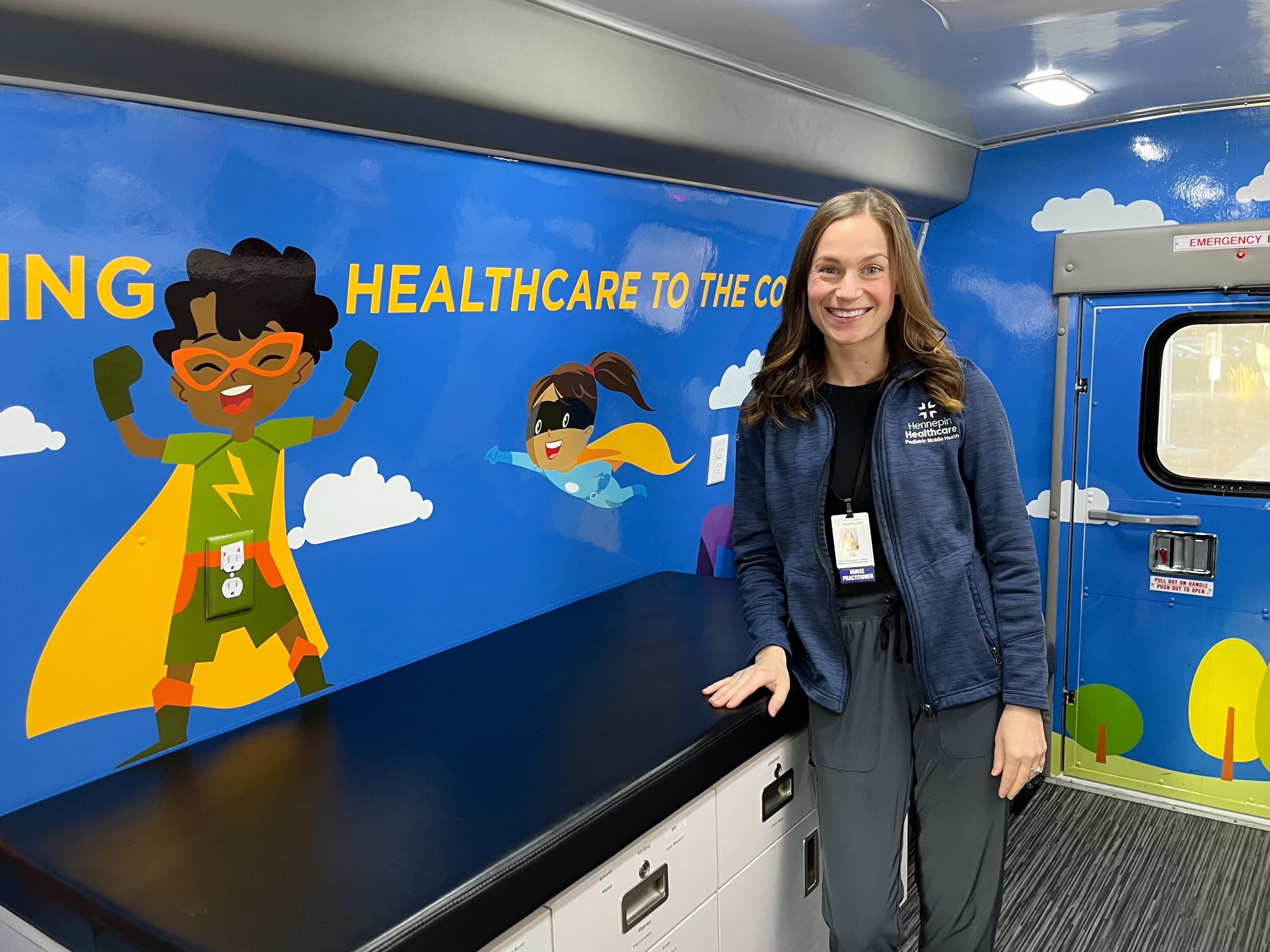
Amy Green, DNP, CPNP – Pediatric Mobile Health Unit
“The Hennepin Healthcare mission goes hand-in-hand with our work on the pediatric mobile health unit. There really aren’t exceptions for providing exceptional care. We go to people’s homes. We go to schools. We’ve done pop-up clinics in libraries. We literally bring healthcare to the community, and I believe this strongly reflects the mission.
I really enjoy the mobile health unit because I see patients in their home environment, where they live and work. I feel that I get to know them on a more personal level. Last year, I was administering a medication to infants with a history of prematurity. One of the families didn’t have a car, and the mother was facing her own complex health issues, so it was difficult to get to both of their appointments. It meant the world to her that we could come to her, and she had one less appointment to travel for. Stories like this make my work entirely worth it.”
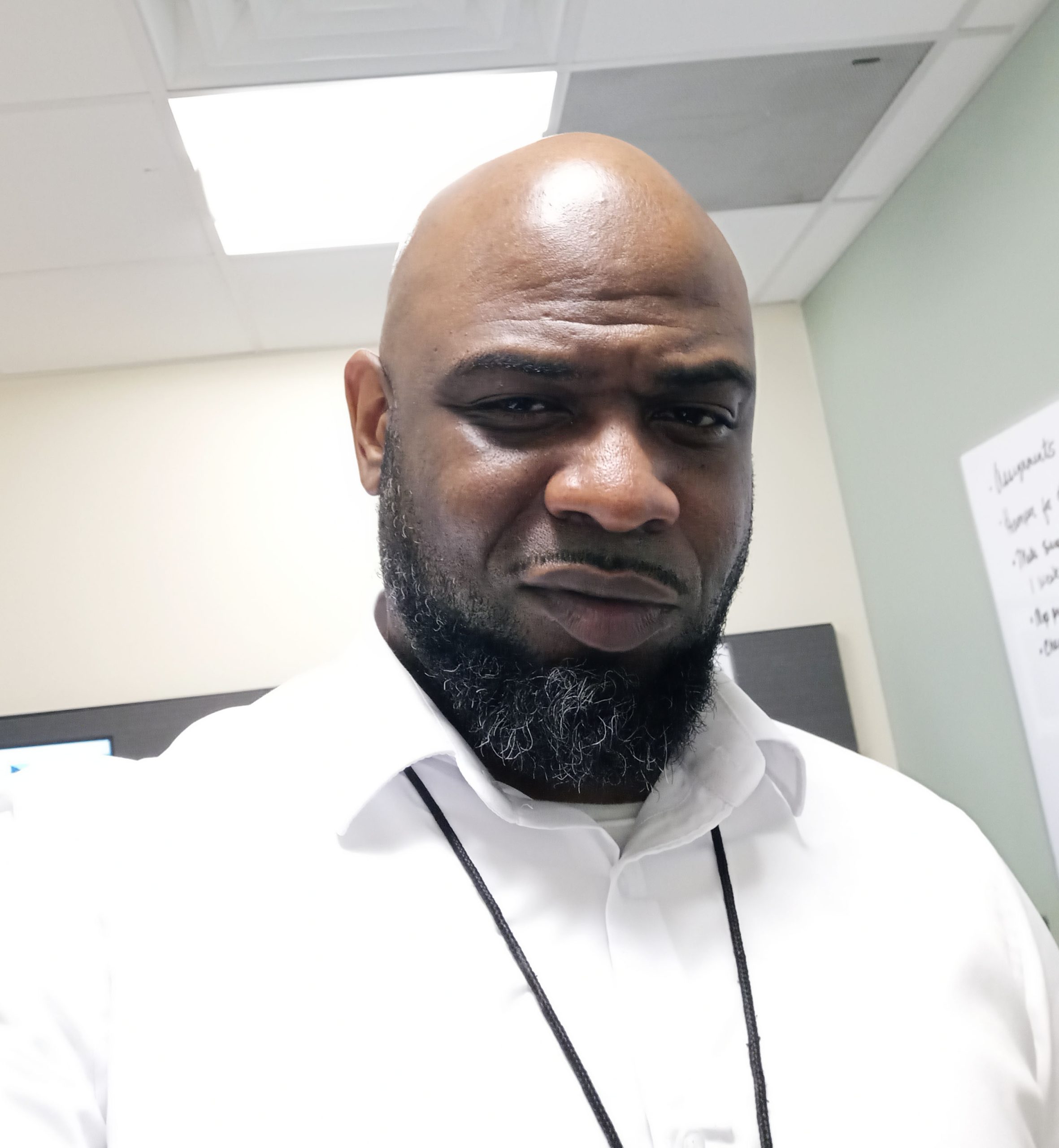
Marcus Hollie – EVS Operations Manager
“I started as a housekeeper in 2000. Now, I’m in charge of all the training and hiring. The coolest part is teaching new employees in a classroom setting. We go through all the different chemicals they’ll use and how they work. There’s a bit of science to it. I tell our team that even though they’re labeled as ‘housekeepers,’ they’re more like technicians. Typical housekeepers aren’t learning what they do.
We’ve hired a few new employees through the job fair to increase accessibility and diversity. Our team has fun together – there’s a lot of back-and-forth banter. I like knowing that I’m helping someone. I’m giving back to the community that I grew up in.”
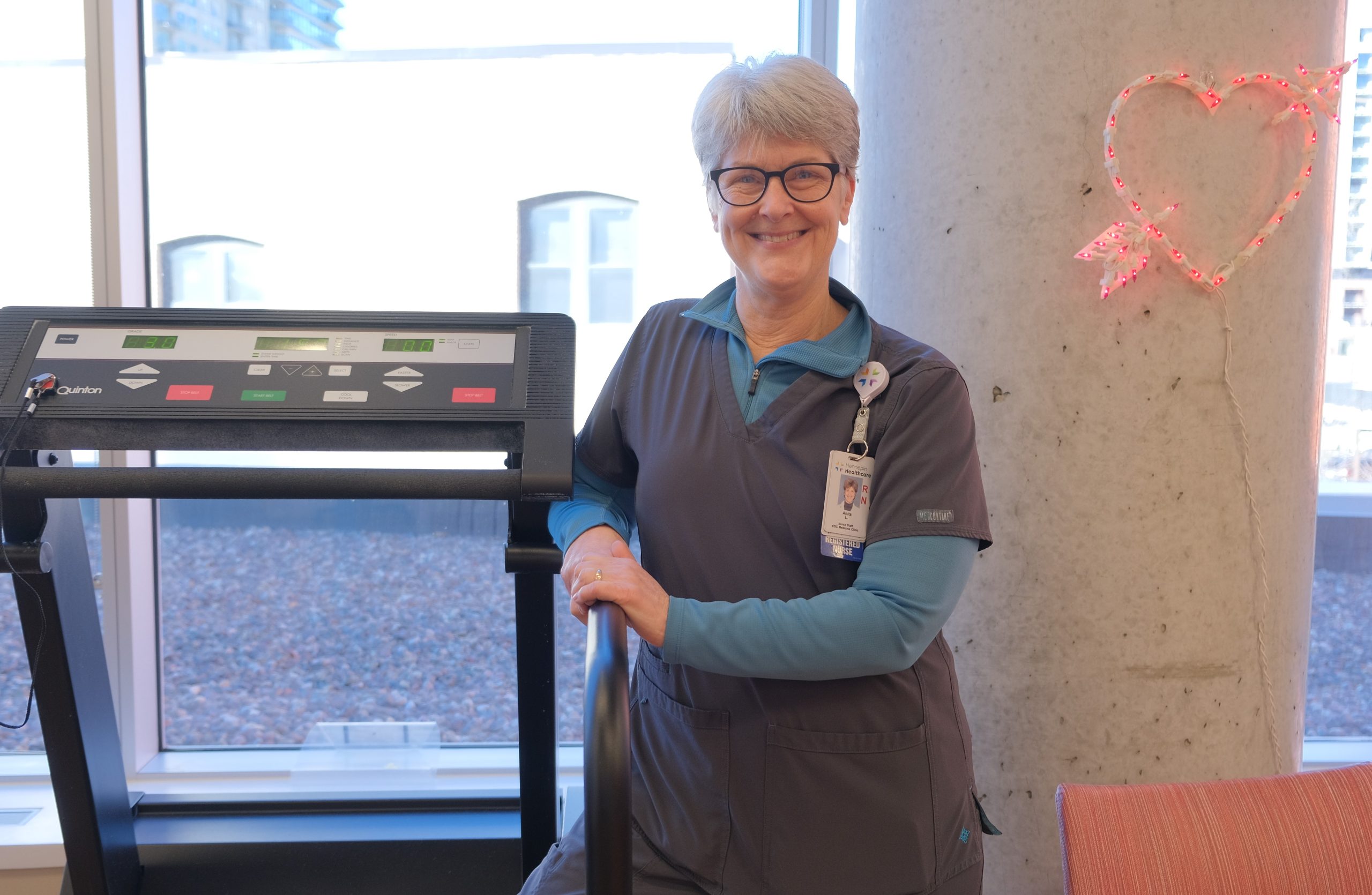
Anita La Haye, RN – Cardiac Rehabilitation
“When you work in cardiac rehab, you never have to wonder if you made a difference. I’m really proud of our team because of our shared work ethic and patient-first approach. We invite patients to partner with their healthcare to affect change – it’s an experience with dignity and respect. We meet people within a day of their admission for a cardiac event, and we journey with them.
We take the time and opportunity to lay down foundational frameworks for the patient to understand a very complex organ and what their medical team has planned for their care. Then we help them build back their strength and resiliency. It’s empowering.”
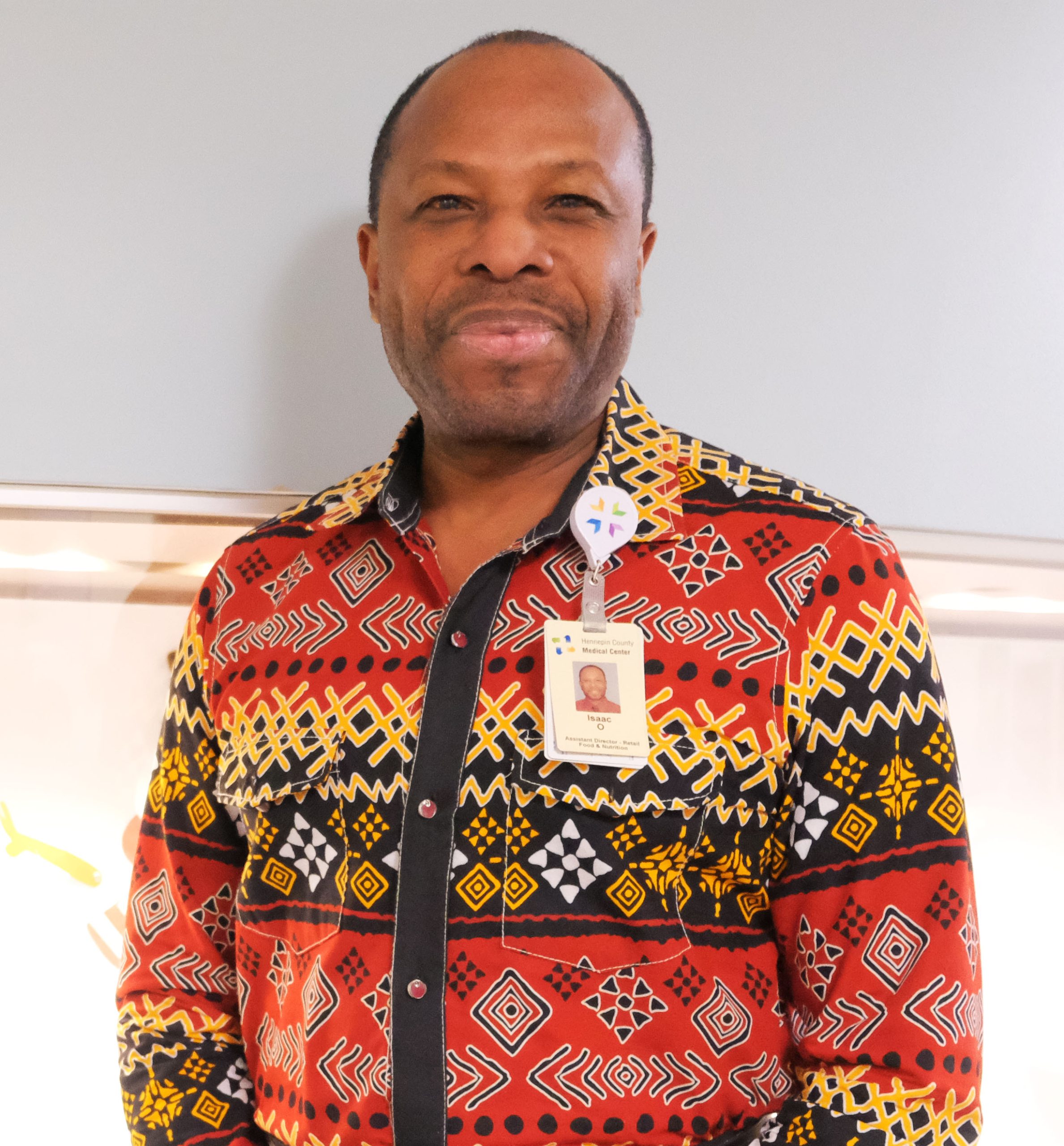
Isaac Owens – Assistant Director - Retail, Food and Nutrition Services
“Food can be medicine. Just like doctors and nurses take care of patients, we also care for patients with nourishing food. We might need nutritious food as much as medicine and treatment. I also manage our cafeteria and I want it to be an oasis – where people feel welcomed and find what they’re looking for. Employees, patients and visitors can let their guards down and relax. It takes all our food service team to make that happen.
The cafeteria is just like a big orchestra, and I’m the conductor, moving and making sure everybody plays their instrument to the best of their ability. People walk in, and they’re excited; they say they didn’t know the cafeteria could have this kind of food. We have a wide variety of cuisine. Because so many of our employees are from different cultures, the cafeteria is like a mini United Nations. There’s so much representation, and our team members have all sorts of suggestions to help us learn and improve our food.”
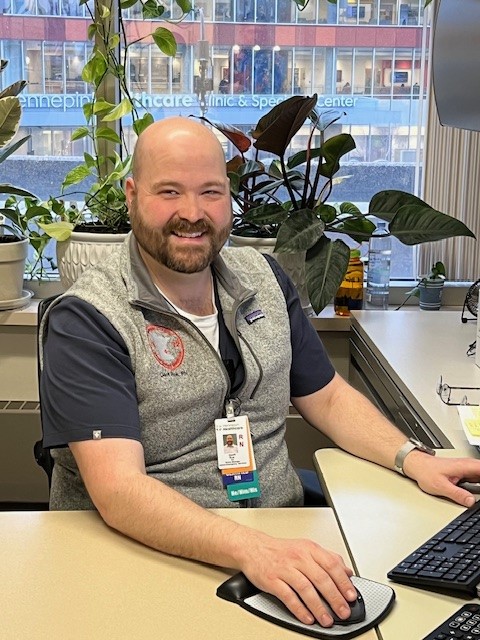
Geoff Roe, MSN, RN, CEN, CCRN – Nurse Manager, Emergency Department
“No two days are the same in the ED. We might get the same type of patients, but every person has their own story and needs. It’s great to have services that a typical healthcare center wouldn’t, like the emergency clothing closet. Maybe the patient had a traumatic injury, and we had to cut their clothes off, or there was a house fire, and they have nothing left, or they’re unsheltered and don’t have access to clean clothing. Offering them a sweatshirt, hat, gloves, and other items can be lifesaving.
We meet patients where they are, but we also meet staff where they are. We connect staff with what they need, whether it’s working with HR or getting them trauma-informed care. We try to make sure our staff is well cared for. I’m proud of how flexible they are, and as a leadership staff member, I am proud to work alongside them.”
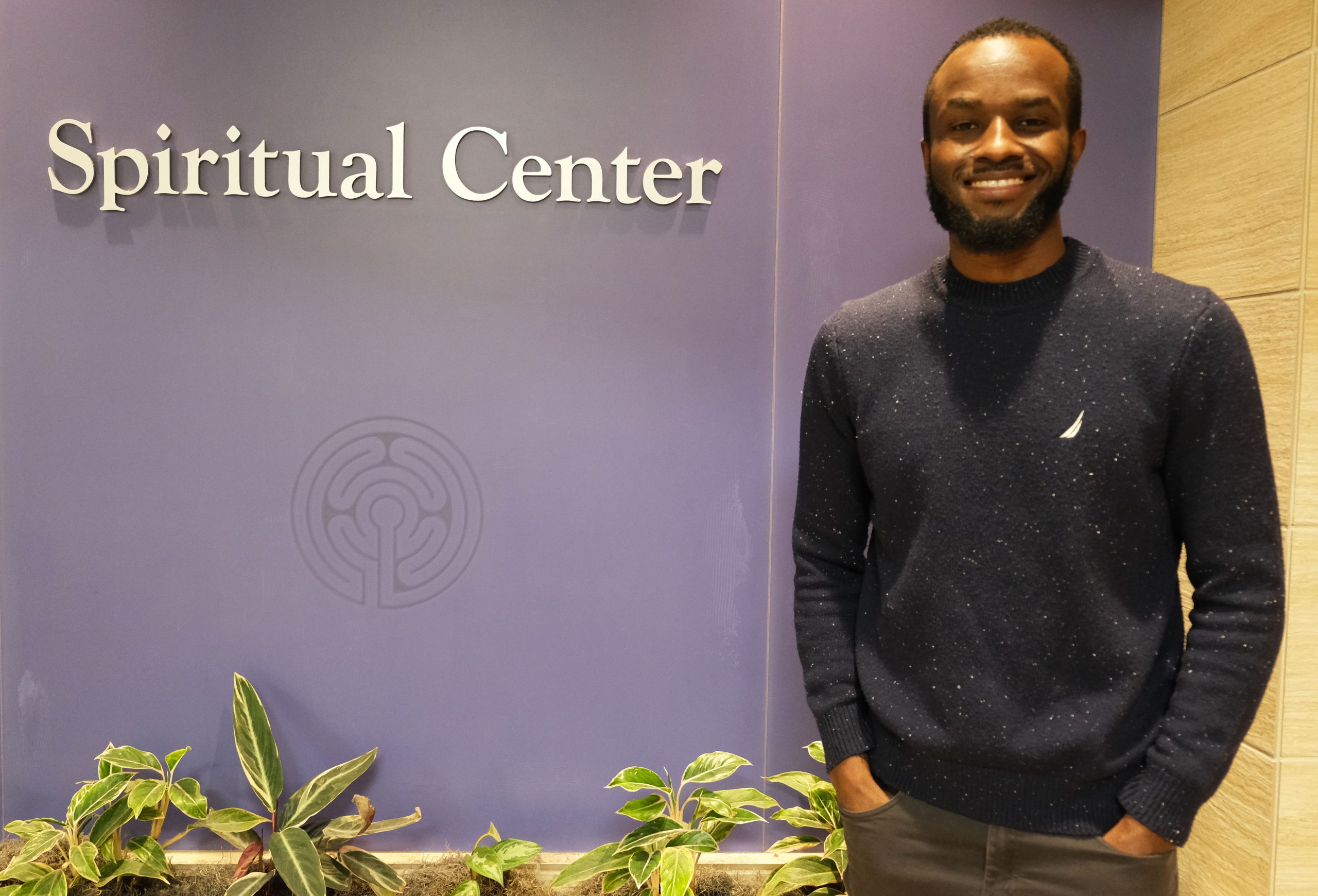
Eliphaz Omote – Chaplain, Spiritual Care
“Chaplaincy is a profession that can’t be put in a box. Visits range from what feels like a therapy session to playing a game of Uno with a patient. As a chaplain and as a human, my goal is to bring out the humanity in patients. That is one of the most difficult and rewarding experiences. It’s difficult because as chaplains, we’re serving while we still have our experiences and struggles. We all have equal capacity to hurt and be hurt.
Some patients want to take their minds off what brought them to the hospital. Others are distressed by a diagnosis and want to talk about it. It takes a special skill to attune yourself to what somebody is going through and meet them at that specific point. It’s all about a clean slate. Whether the patient is Christian, Hindu, or atheist, I ask how I can serve them even if we don’t have the same beliefs. We can talk about all kinds of things besides faith – politics, sports, or family. This brings out the humanity in us chaplains too. It's impossible to stand in a garden, water it, and not be watered yourself.”
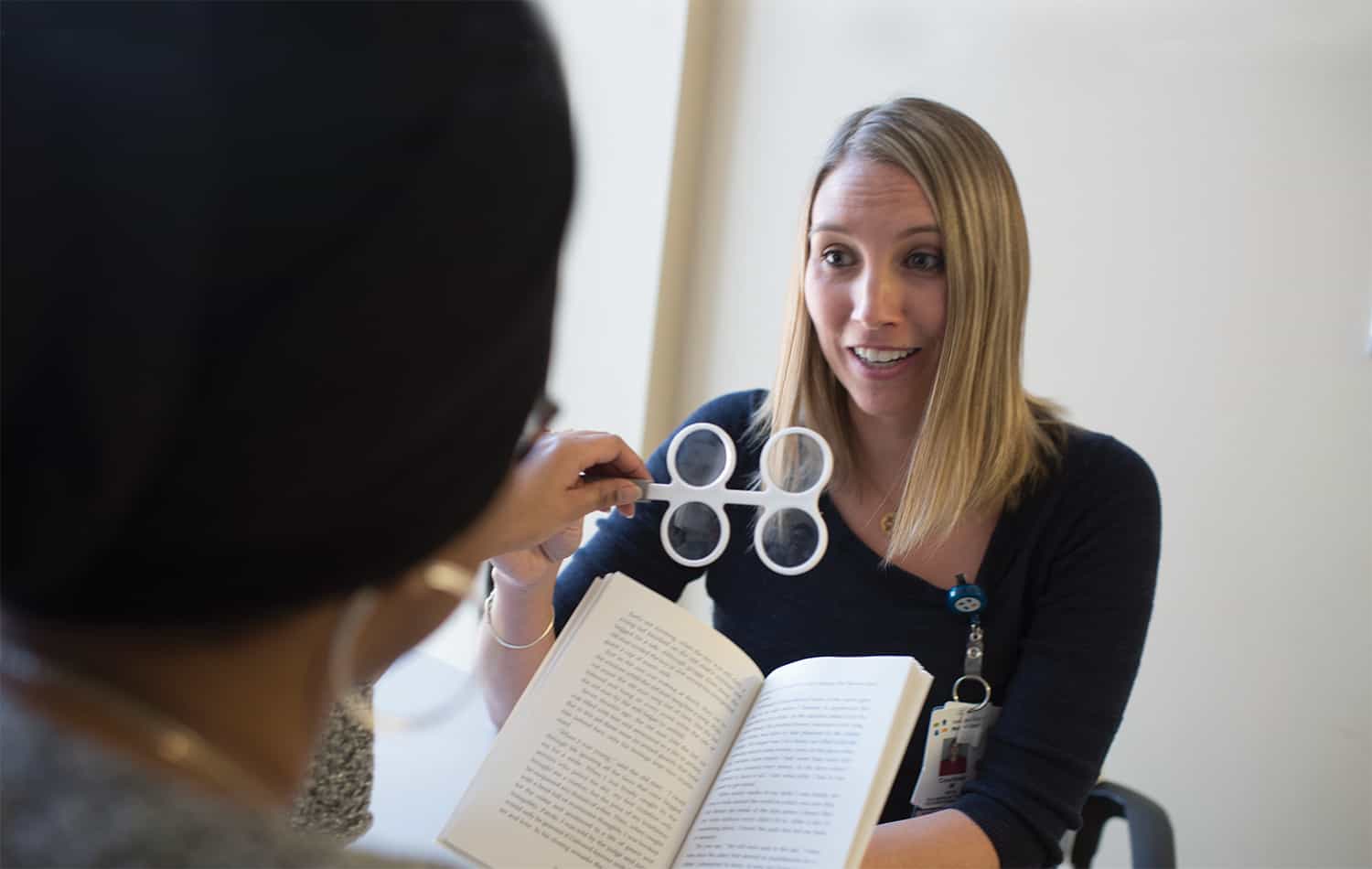
Courtney Mitchell, OTR/L – Occupational Therapy
“Exceptional care without exception describes the care that you want to receive. As healthcare workers, we see both sides. As a patient, you want to get the best care no matter what. Our mission statement is a reminder of the care we would want to receive if we were the patient.
My cousin sustained a mild injury after a fall from her bike. She was having profound headaches and changes in her vision and balance. I did a quick screening for her, and the results weren’t good. She had been seen at a different ER and told to take a couple of weeks off, and then she could return to her job. I could easily tell her body wouldn’t tolerate going back to her high-level job that soon. One of my occupational therapist colleagues saw her for neuro vision rehabilitation treatment. With our interdisciplinary team approach, she made remarkable gains and returned to her job with minimal issues. It was great to see our team do what they do best from start to finish.”
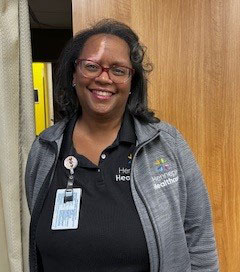
Mary Watkins – Medical Office Specialist, Integrative Health and Wellness
“When people are in pain, they can sometimes present as a challenging case. I know that for sure, as I’ve dealt with chronic pain for years. It’s rewarding to help somebody with a traumatic brain injury get on track with all their appointments and feel comfortable. One woman came out of her neurology appointment nearly in tears because she finally got answers about an issue she wasn’t getting elsewhere. I hugged her because I know that feeling. My daughter sees the same neurologist, and he discovered some things for her, too. As a patient, I know how important it is to receive good care and compassion.
When you don’t feel well and have daily tasks anyway, it’s debilitating. I had surgery last year to help one area of chronic pain, and I haven’t felt that pain since. It’s amazing to wake up pain-free. That’s why I don’t take it personally when a patient comes in upset. I empathize with them and de-escalate.”
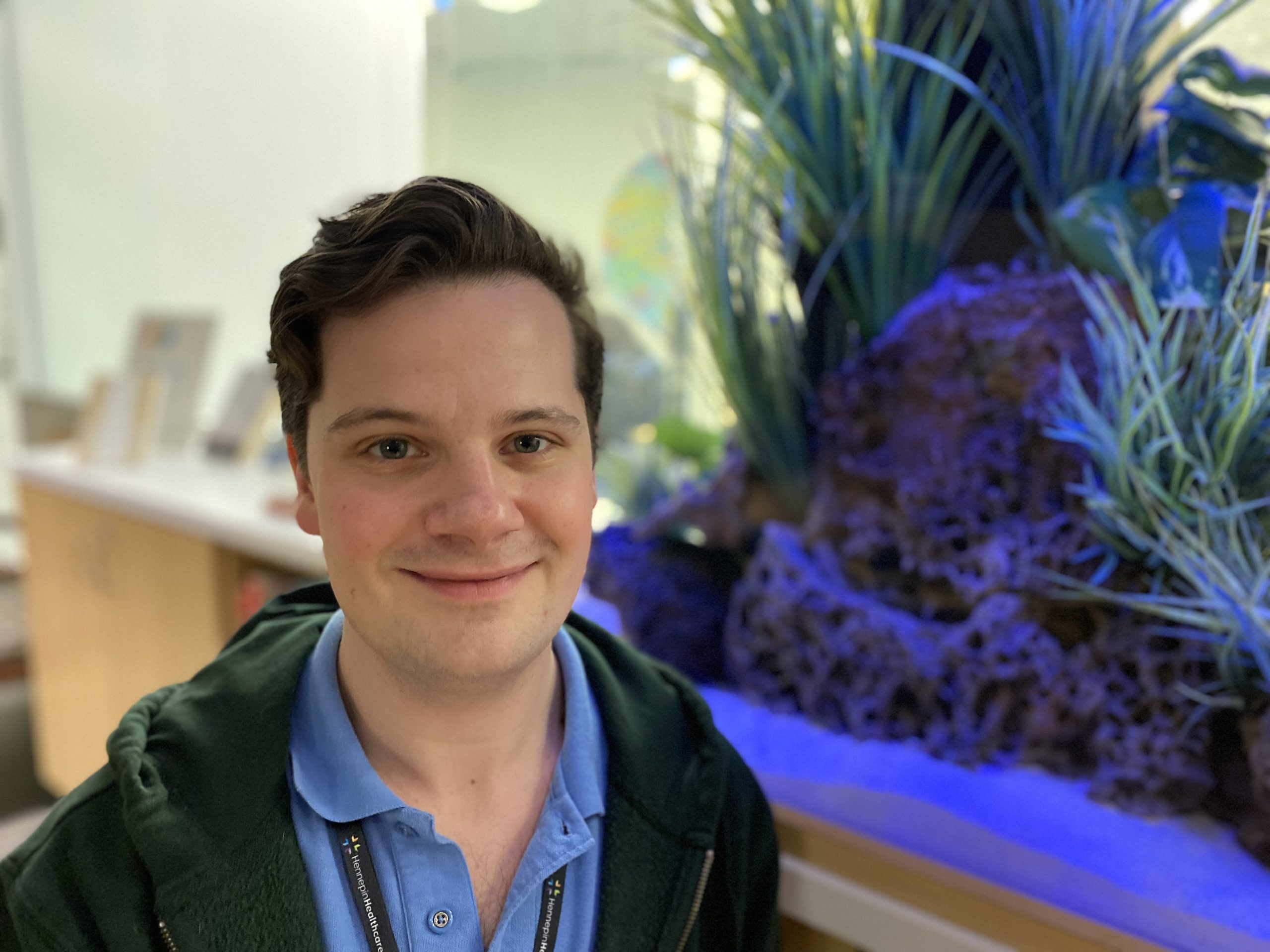
Conor McDonald – Volunteer, Inpatient Psychiatry
“When the pandemic struck, I lost all of my work as an opera singer in New York, so my husband and I returned to Minneapolis where I grew up. Eventually, singing work started again, and I was traveling for another year. By the end of that time, I had completely shifted my priorities and values. I realized that I was interested in a future in medicine. The first step was putting myself in a healthcare environment to see if it was right for me. HCMC was the place where I chose to test the waters.
Volunteering is a way to become part of the community in a way I would not otherwise be. It’s so easy to live in our own bubbles and only know people who share the same socioeconomic status, race and ideologies. Making music and art has always been an act of service. It’s an act of healing. To be an artist or performer is to communicate difficult truths to people who might be in pain and provide hope. I hope to bring that to my future work as a physician.”
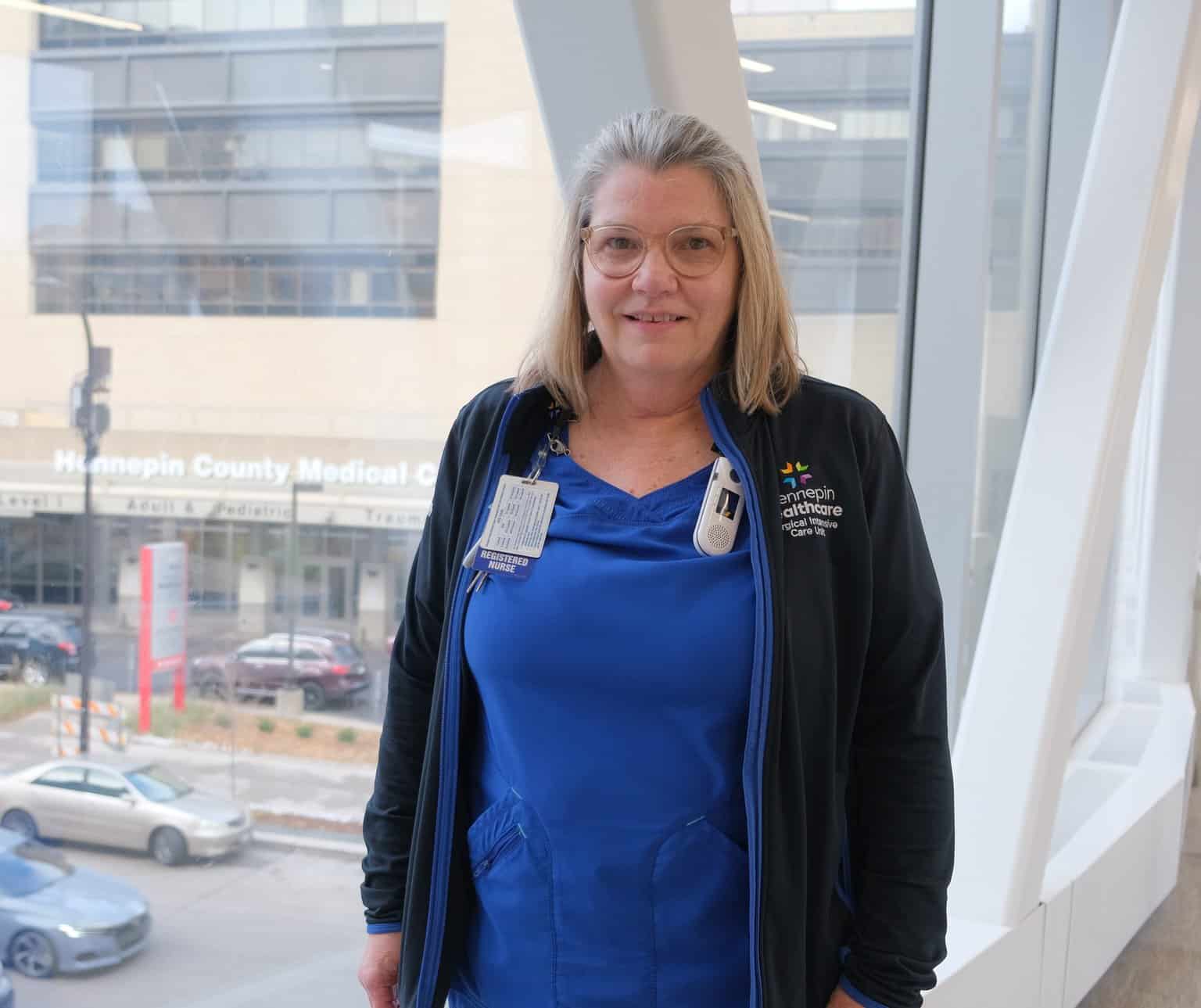
Kim Schneider, RN, BSN – Clinical Care Supervisor, Surgical Intensive Care Unit
“Working in the SICU is like a puzzle. If a patient has had heart surgery, you know what to expect. But if you get a patient that was in a car accident, maybe they hit their chest on the steering wheel, you don’t know what all the injuries are yet. We have to act quickly and provide the support our patients need.
We provide both physical and emotional support for our patients and their families. The whole family goes through trauma while the patient is in the ICU. It can be difficult for our team too because we often don’t see the outcome for a while. Patients and families sometimes come back six months to a year later to visit, and that’s when we see our work truly makes a difference. I am grateful that our unit provides the care that our community needs.”
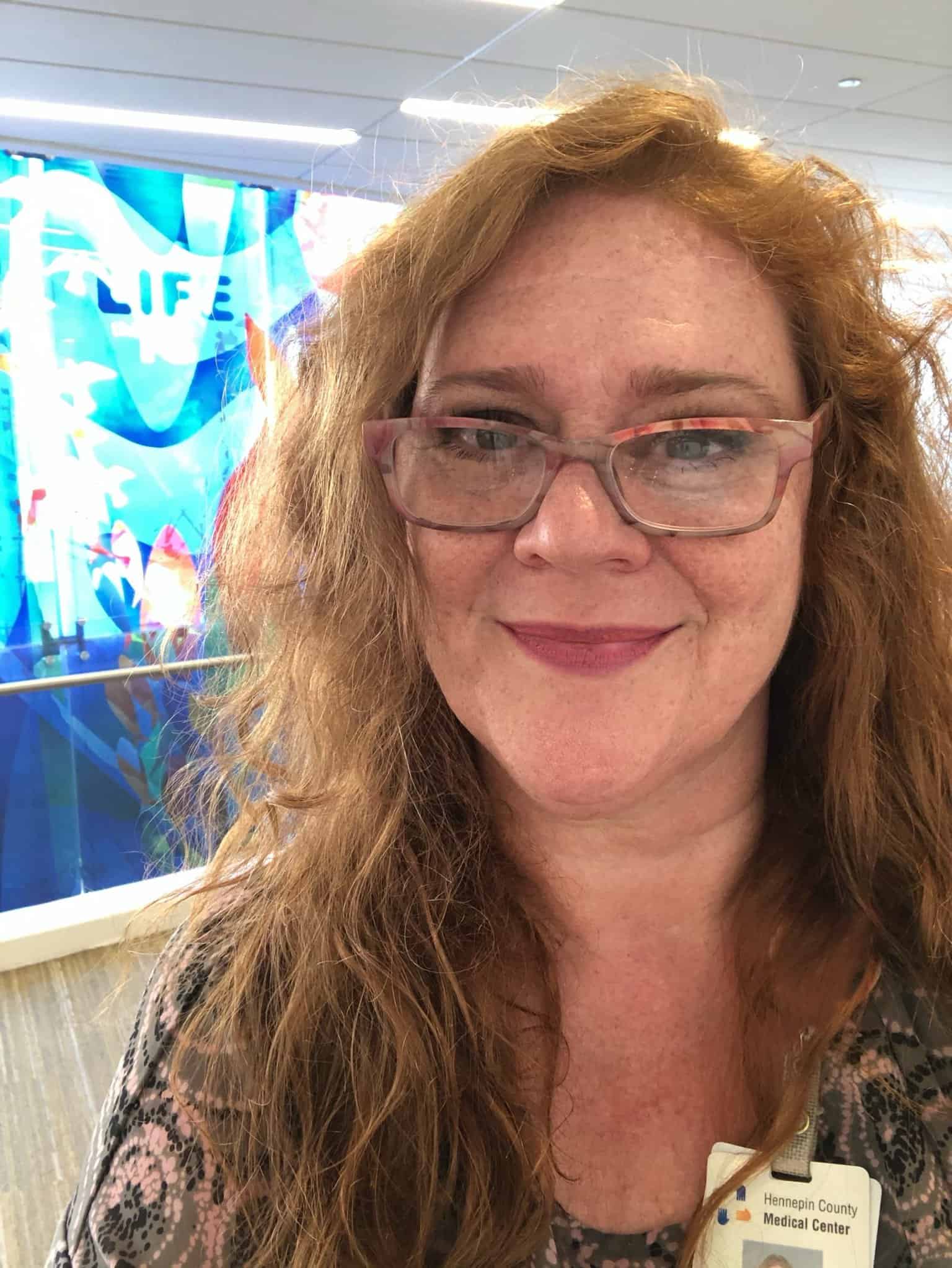
Wenda Ballinger – Arts Program Coordinator
“I lost my little sister after she was in a car accident. She was 18. It was a traumatic time for our family. I remember walking through the hospital and seeing this display of black and white photos. I felt comforted that I had art to look at – it had a role in making the experience better.
I’ve learned that the intentional use of arts in healthcare can make a difference for patients and their families in ways that I had not imagined. When patients are exposed to the arts, they use less pain medication and have shorter hospital stays. Art can bring communities together and promote communication between patients, families, and caregivers. Art takes us out of our everyday struggles and helps us think about something positive for a few minutes. When we place visual art in the hospital or clinics, we work with a committee of employees, patients, artists, and community members to help us find pieces that inspire healing, provide a sense of safety and belonging, and reflect the diversity of our patients.”
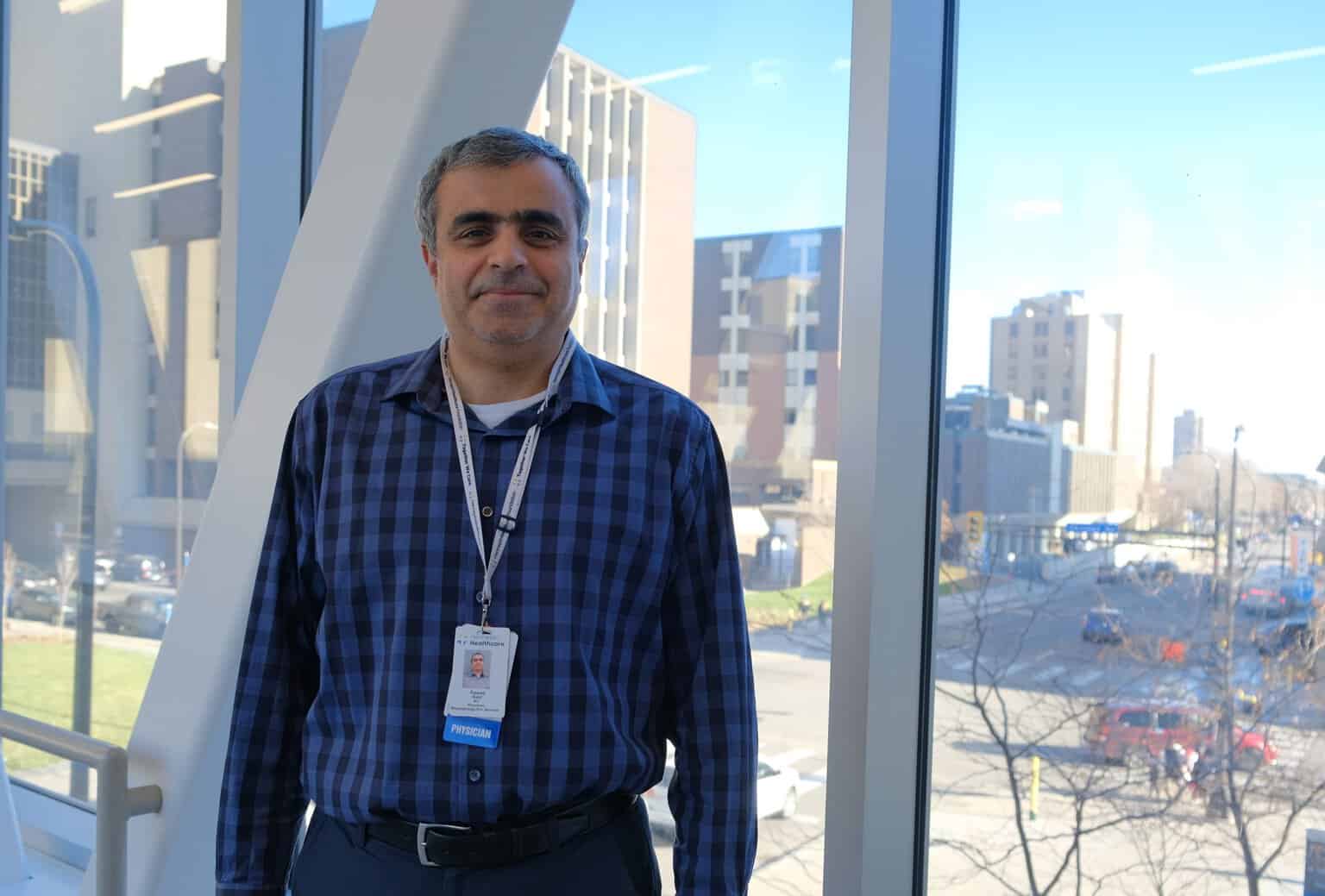
Rawad Nasr, MD – Rheumatology
“It’s rewarding to teach and supervise the new generation of physicians. There’s autonomy for the residents to learn, but enough supervision to ensure our standard of care is still high. We also conduct research to understand how we can help our patient population regarding social determinants of health and racial disparities. We feel honored to treat our patients.
The moments that stick with me during patient visits are when patients open up about their daily struggles and trauma. Maybe they’re sleeping in one bedroom with multiple other people, can’t find any housing, parenting alone, or dealing with discrimination. It’s important to listen to those stories so we can understand our patients better and help them. It’s very humbling and gives you a new perspective.”
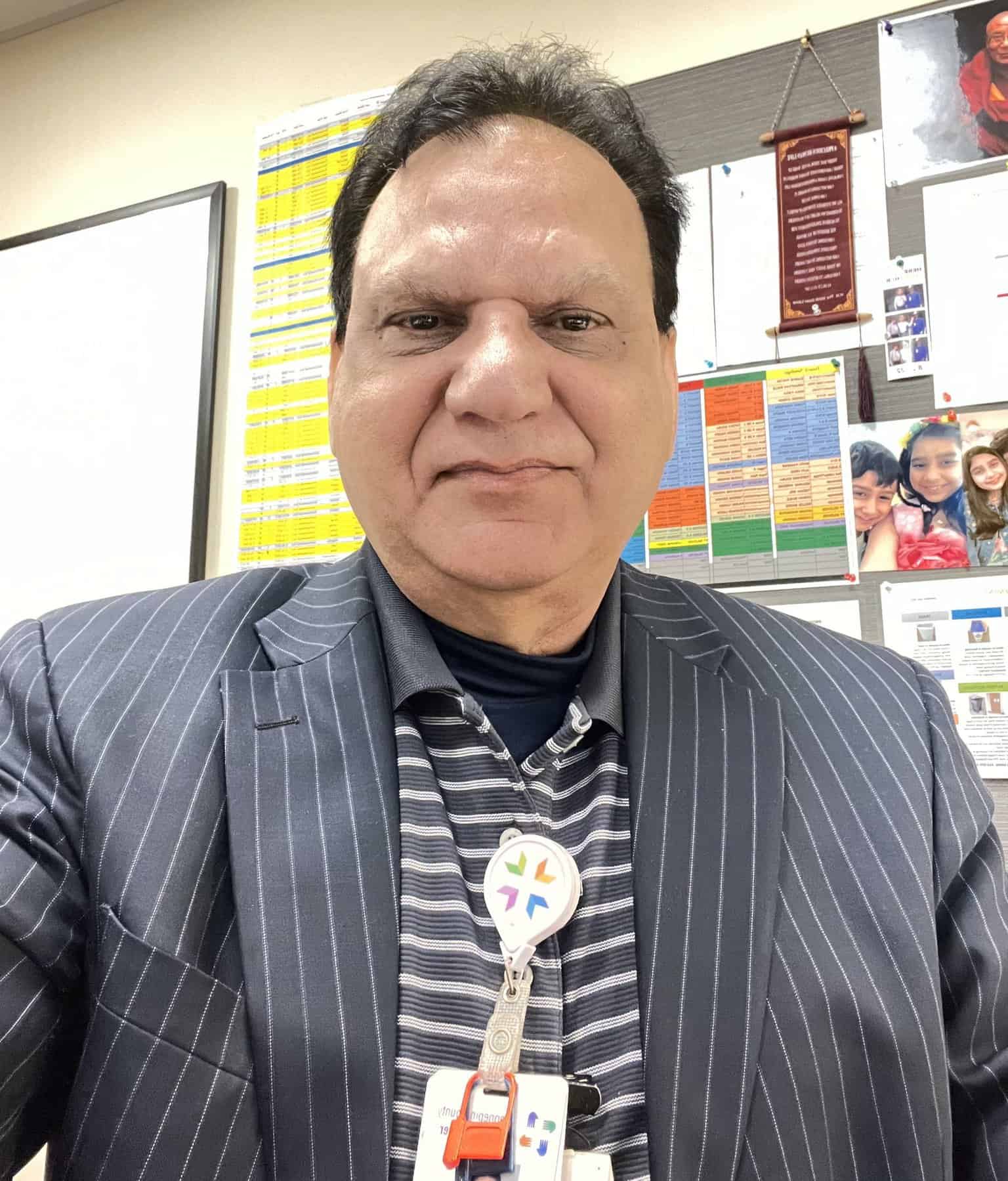
Lalit Sharma – Operations Manager, Environmental Services
“The first thing a patient or visitor notices when entering a hospital is how clean it is. Environmental Services presents how the entire hospital looks. A clean environment not only provides the first impression but also reduces the risk of infection and helps patients feel more comfortable. We clean the entire hospital, including all the surgery suites, every evening so any infectious diseases cannot be passed on to the next patient. The evening shift is the backbone of EVS.
We do see and interact with patients, but in a different manner than doctors and nurses. When we go to patients' rooms, we greet them and ask if they have any cleaning needs. I’m proud of how respectful and compassionate our team is with patients.”
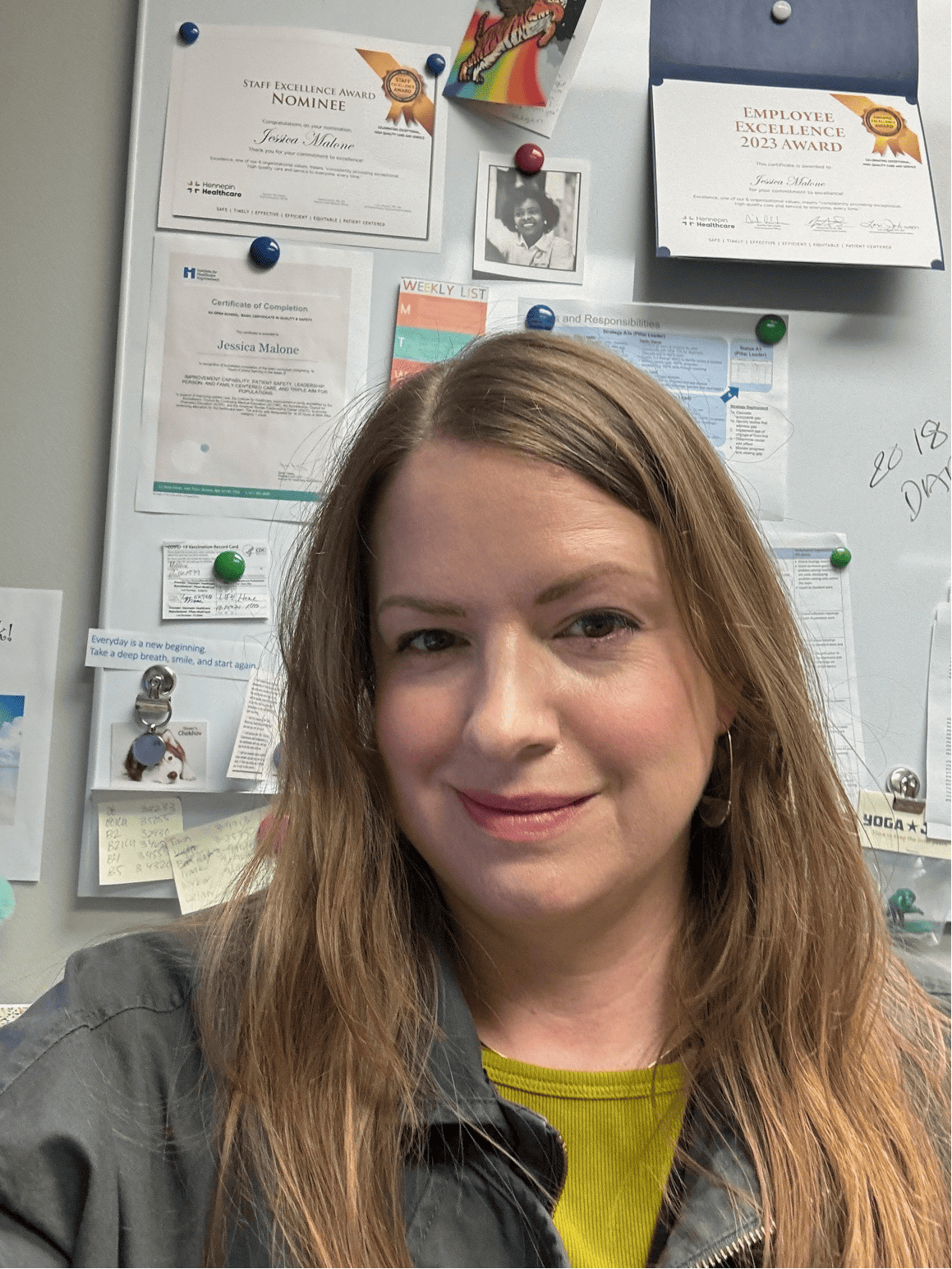
Jessica Malone, MN, RN, PHN – Clinical Care Improvement Manager, Psychiatry
“Improvement only happens with change. When we can change our workflows and see a positive outcome, that’s what really makes me feel good. An example is our work on the suicide prevention policy. We had many new regulations come up in 2019 from Joint Commission that needed a more comprehensive approach to fulfill.
It was rewarding to work with teams like IS&T and nursing and physician leaders to create a viable policy for providing suicide prevention care to patients. Since enacting that policy, we haven’t had any deaths by suicide within our walls. We are really saving lives here through that work, but the work is not over – continuous improvement is always needed to ensure we are providing the most effective care while avoiding burnout. Therefore, we’re interested in different ideas from teams for improving the services we provide to patients and will act on them.”
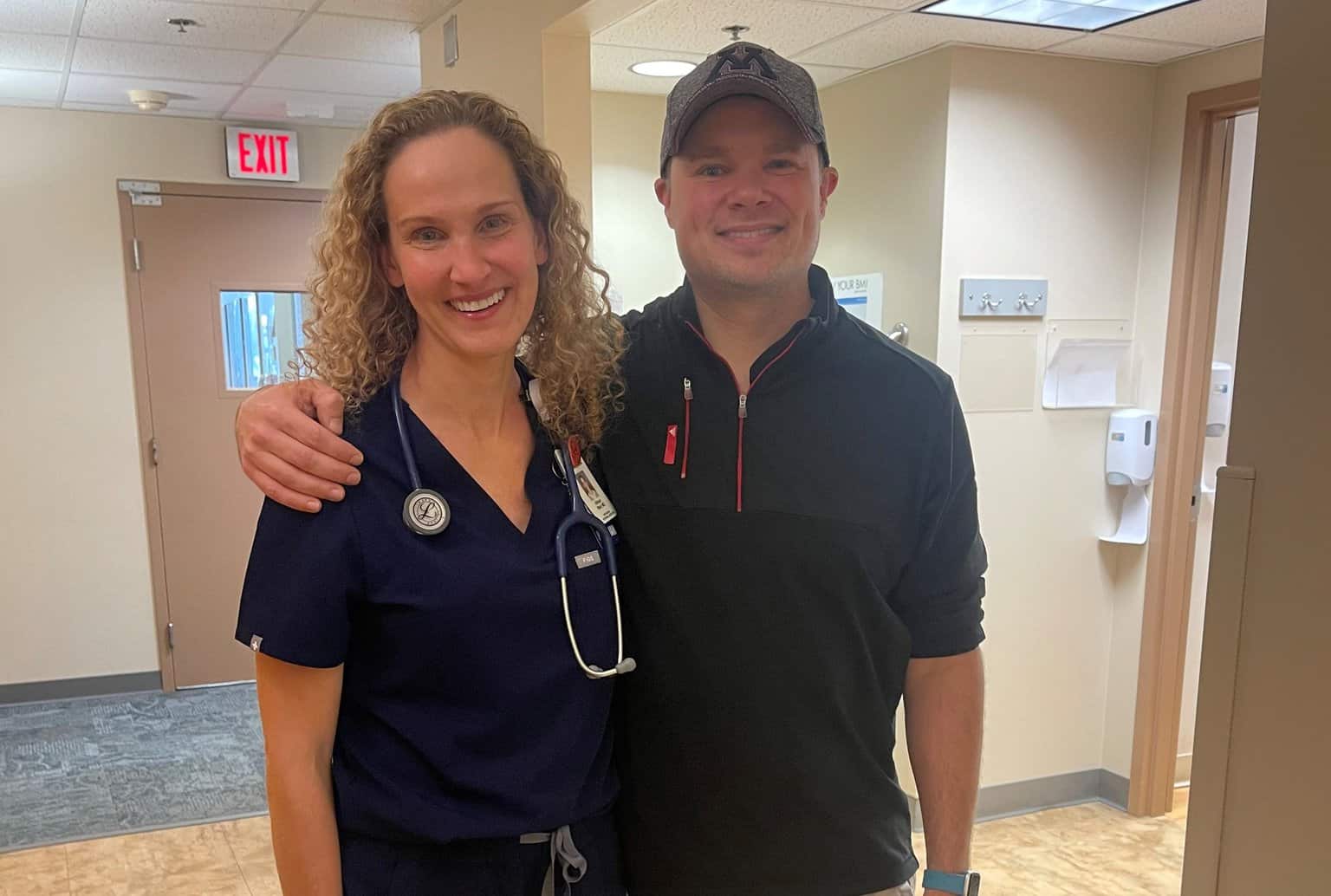
Brent Worwa – Grateful Patient
“I wasn’t supposed to survive. I basically was just drinking myself to oblivion. One day, I thought, ‘I’m going to die today.’ I walked into the ED — I didn’t know what was going on. That’s the last thing I remember. I was in the ICU for over a month. Alcohol abuse can destroy your body in more ways than one, and I want others to know before it’s too late. Caroline White, my palliative care provider, was instrumental. She was a great support to my mother. She passed my story along to the Coordinated Care Clinic, where Dr. Allison Wert took me on. Dr. Wert managed my 20 different medications and connected me with several other life-saving specialists I wouldn’t have had access to otherwise. She was in charge of keeping me alive and stable.
I was so out of it for so long that I was probably a pretty challenging patient for some of the night shift nurses. Once I got better, I knew how to appreciate them and built several great friendships. Everyone was always so positive and helpful. I’m grateful for them. Three years ago, I was on my deathbed, and nearly two years ago I had my liver transplant. Nobody thought I’d do as well as I have – I feel great.”
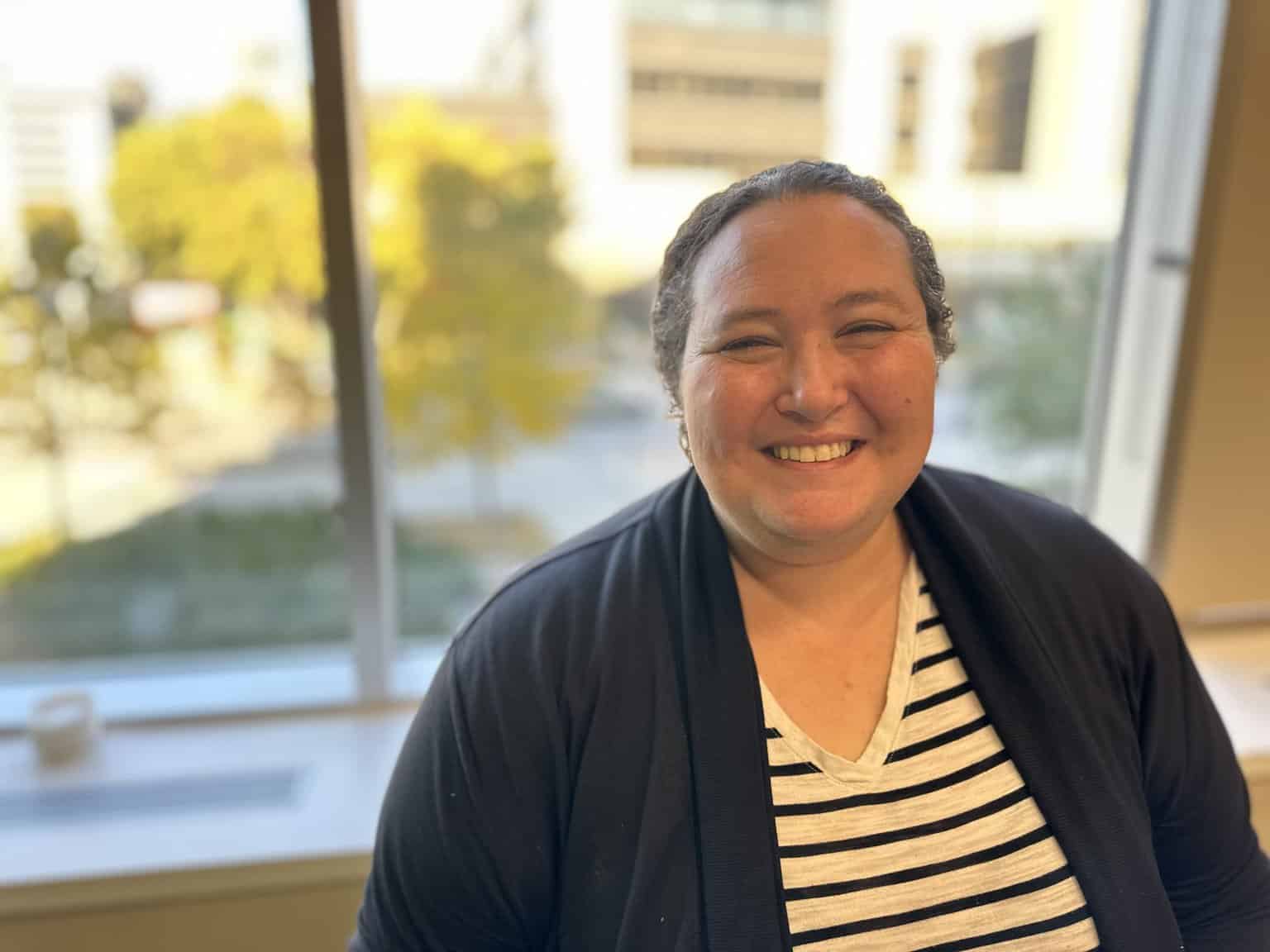
Rachel Silva, MD, MPH – Internal Medicine
“I like the opportunity to treat patients from all over the world and from all walks of life. There are so many different facets to primary care – we also treat folks in homeless shelters and the jail. We have team members all over the community with a lens that is beyond one patient at a time. It’s inspiring to think about. We’re not just focusing on how we optimize care for the one patient in front of us, we focus on how we as a system make sure that everyone in the community has access to good quality care.
I also really enjoy the opportunity to teach medical students and residents. We can envision a future of healthcare that looks different in terms of technology and ethos. We can redefine what it means to have healthy populations.”
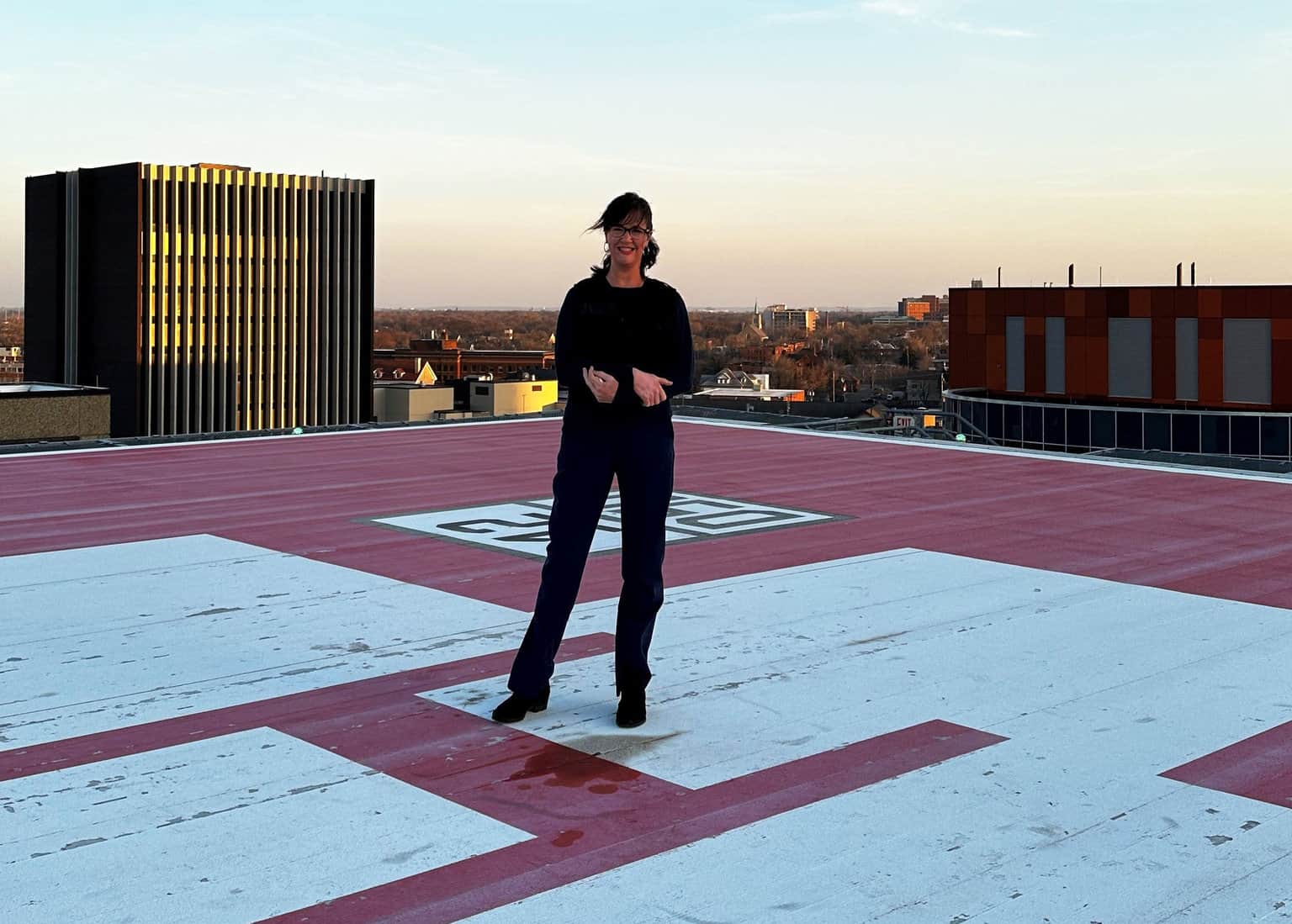
Katie Severt – Foundation Board Member
“This year, I joined our EMS team for an observational ride-along. Seeing our paramedics in action was astounding. They work collaboratively with other first responders and the compassion and respect they show patients – often in the worst place in their life – is amazing. As a volunteer, I worked in several departments, and I have toured cardiology, radiology and our hyperbaric chamber. Our physicians are experts in their field, and all the staff and caregivers believe in the mission of Hennepin Healthcare.
I want to tell the stories of Hennepin Healthcare to every person I meet. By elevating the stories of the wonderful work that happens inside our walls every day, we can realize our mission, which is to connect the generosity of the community to the mission of Hennepin Healthcare.”
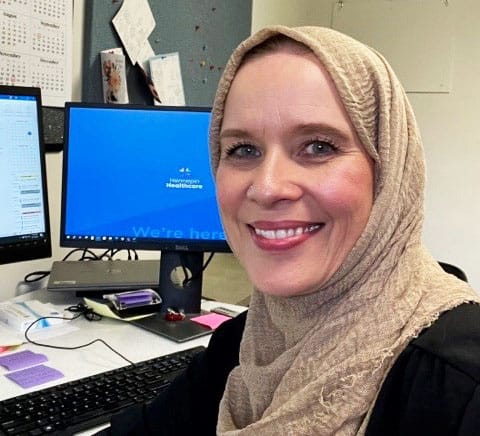
Krista Siddiqui, MHA LNHA – Practice Manager, Coordinated Care, Extended/Senior Care, Hennepin Health Access
“In both the Geriatric and the Coordinated Care Clinic/Hennepin Health Access (CCC/HHA) Clinics, we’re providing exceptional care for patients who wouldn’t get that elsewhere. Our providers in geriatrics are the leaders and teachers of their field. They will spend as long as it takes with a patient to tackle everything they’re experiencing. In CCC/HHA, we care for patients whose life circumstances can be as challenging as their health. We provide walk-in appointments for them and offer wrap around services.
Some of our patients can be challenging because they are going through so much and can find it difficult to do the things that will help them. We get to learn their stories – where they come from and how we can help them break out of that feeling of hopelessness. We look beyond mental health, addiction, homelessness and criminal history to see a human who needs what we have to offer. Our team is exceptional at finding out a patient’s needs and helping them get on the right track. We see patients go from the brink of death to positive outcomes we never could’ve imagined.”
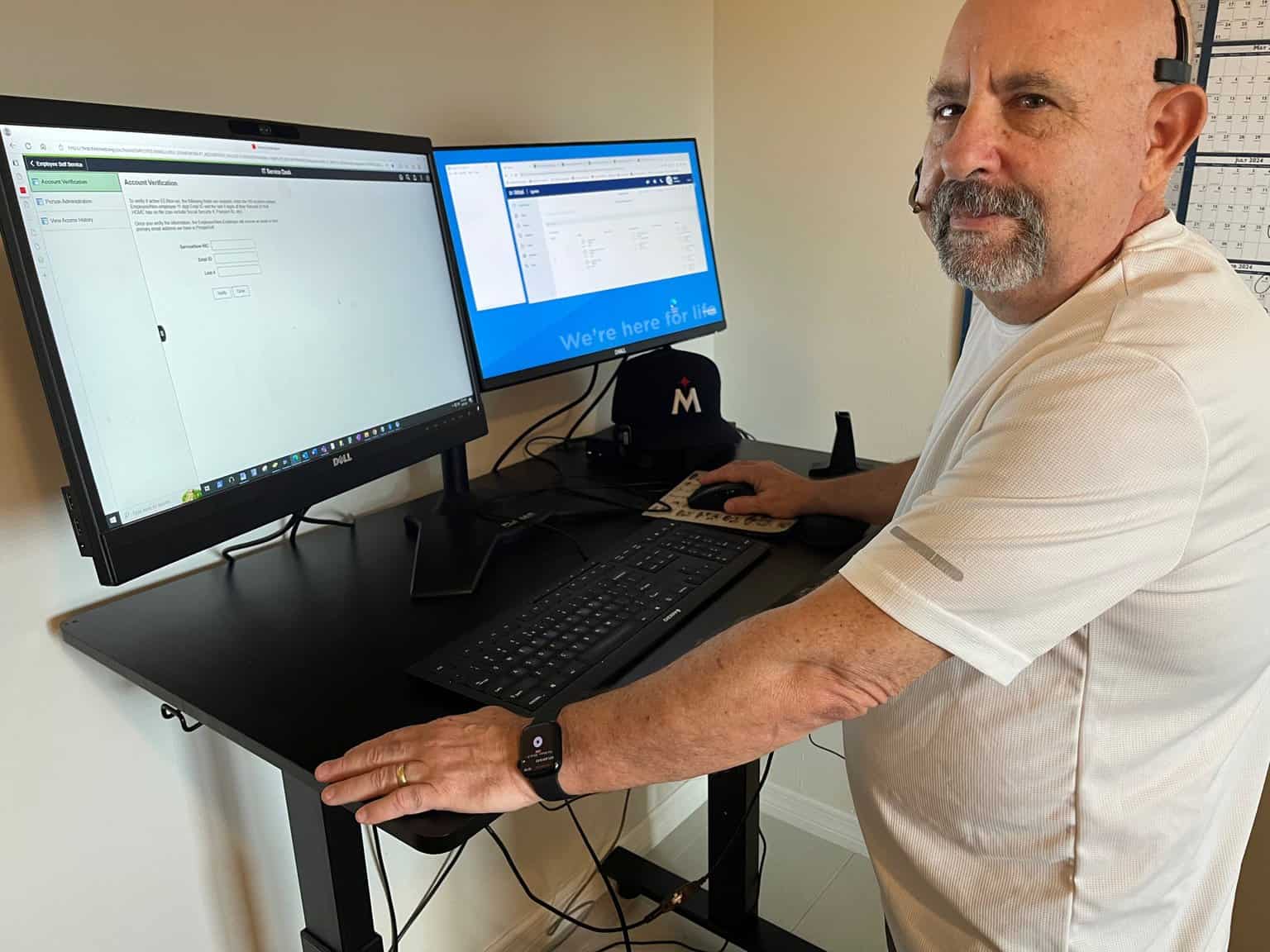
Eli Rose – Service Desk Specialist-Informatics Education, IST&T
“It’s fun to work and talk with so many different people. I genuinely love the diversity – we have a lot of that within our employees. On our team, we have five employees who have been here for five to 23 years. I value the experience of our seasoned employees and learn from everyone. We have such diversity in our levels of experience, generations and cultures.
There’s no place I know of in Minnesota where there is such a richness of diversity as it is when you walk into Hennepin Healthcare. I grew up in Chicago, and it reminds me of downtown. I’m proud of us for that.”
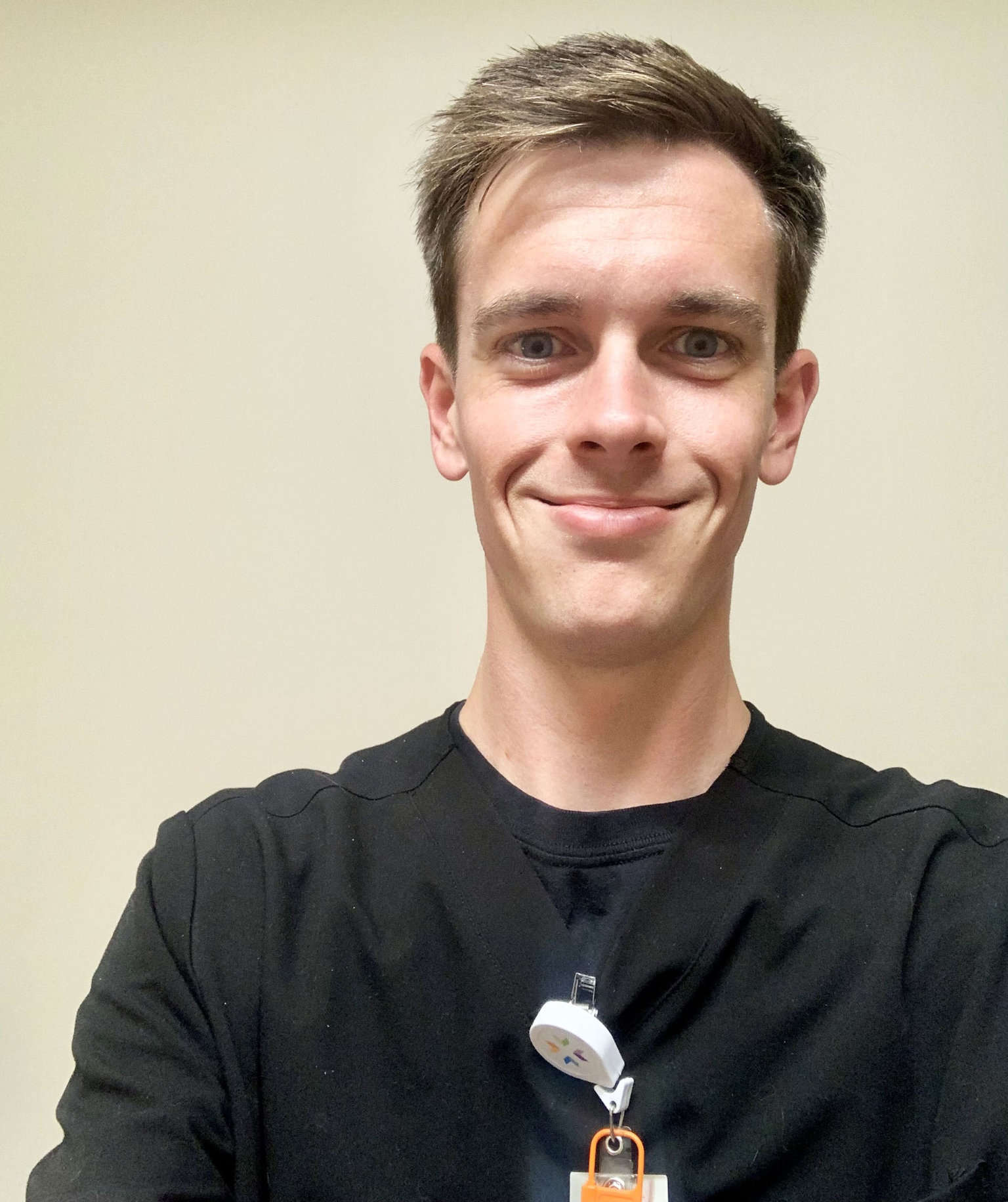
Adam Terrell, M.S., CCC-SLP, CBIS – Speech-Language Pathology
“It can be surprising for people when they get a concussion and are referred to speech pathology. They might speak fine, but maybe they can’t remember where they put their belongings or are tired all the time. So much of what we work on in therapy is cognition – how we can support your memory and executive functions – all those subtle cognitive skills that make your day, your job and social interactions go smoothly. There’s so much that falls under the umbrella of speech and language.
I see gratitude when patients try out a new strategy or a tool and then they’ll come back a couple weeks later for a session and say that it made a world of difference. On a different side, I feel a lot of gratitude for the collaboration within the TBI program. I’ve worked at several different hospitals in the metro, and the collaboration with the teams at Hennepin Healthcare is unparalleled. There’s not a day where I’m not updating another provider on a patient’s care team on how they’re doing. We’re all on the patient’s team.”
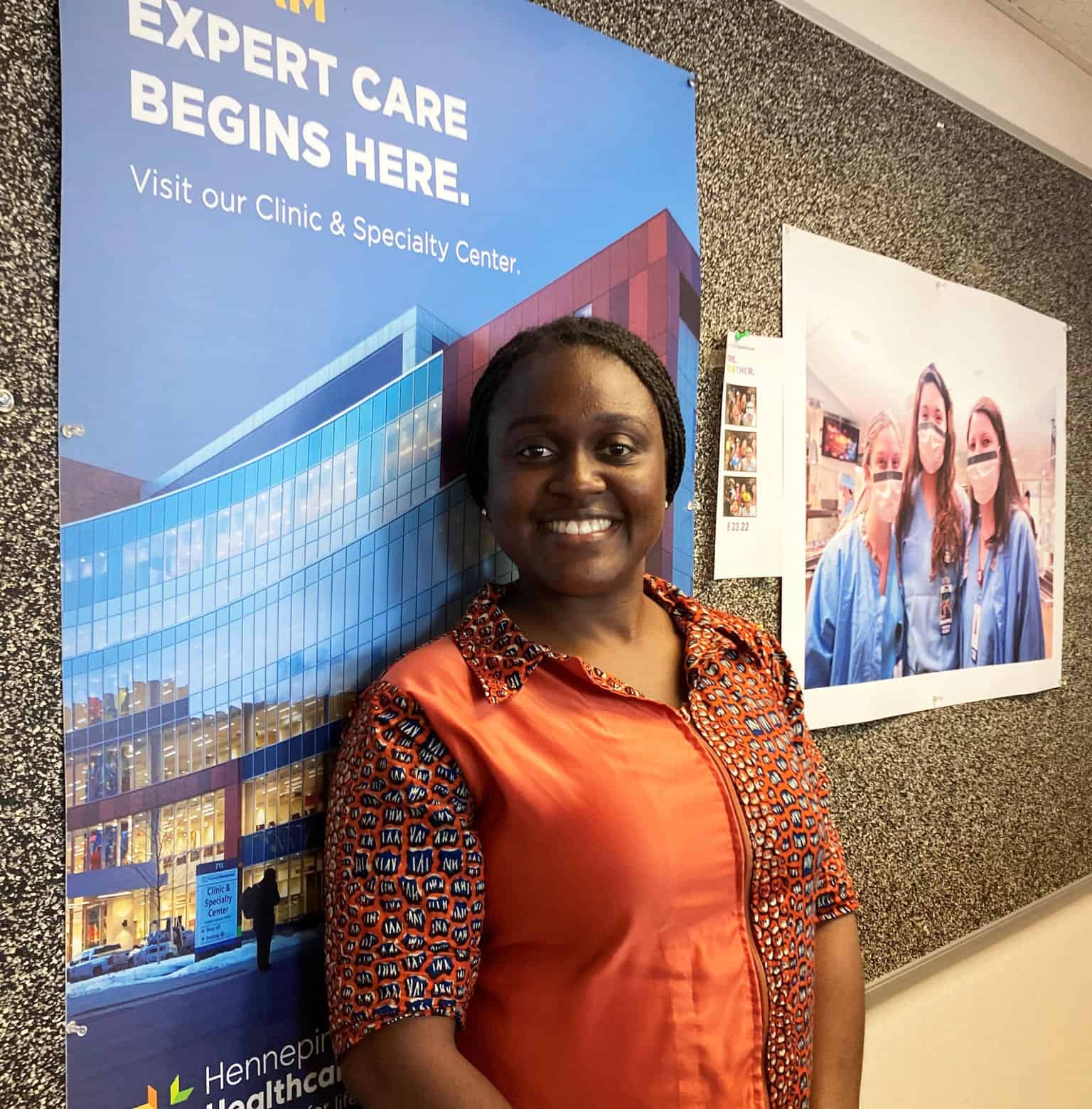
Gifty Abiti, MD – Fellow, Mandela Washington Fellowship for Young African Leaders
“For the fellowship, we are assigned to intern at organizations based on our interests and work at home. I think Hennepin Healthcare was a great choice for me – and coincidentally, my uncle, Issac Owens, also works here. The main aim of the program is to experience how my work is done in the U.S. I’ve shadowed many departments, and my outing with the pediatric mobile clinic was a highlight. At home in Ghana, there are still barriers to accessing healthcare. I like that with the mobile clinic, we can take healthcare to people where they are comfortable and focus on preventative care, rather than waiting for people to come to the hospital.
There are a couple of things I want to replicate when I get back home. Some are strategies I’ve thought of prior, but now I have more ideas and resources. I want to start a mobile clinic for prenatal, postnatal and pediatric care, and a nonprofit to champion cervical cancer prevention and HPV vaccination among young girls, as well as maternal and newborn health. These are global issues, but how they appear and the solutions needed vary from place to place.”
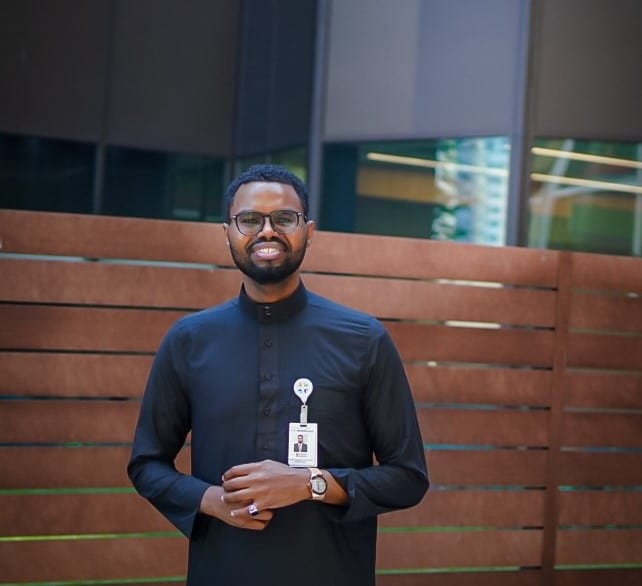
Mohamed I Mohamed – Health Equity, Somali Cultural Navigator
“Our most important task is to help connect patients and healthcare workers in situations with cultural nuances. Patients might not fully trust us, and one of the best ways to gain trust is to connect them with someone who speaks their language and looks like them. As a Somali man, I can’t say I speak for all Somali men. We don’t get their trust as soon as they walk in the door. We talk and get to know them, so we can recognize their needs. We’re here to ensure that our communities are receiving healthcare the way they define it.
We’re advocates for patients because often, patients get lost in how complex healthcare can be. They might not know how to ask for what they want. We help patients navigate how to talk with providers and nurses, access resources, and understand how our hospital and clinics function. A healthcare worker that comes from a different culture might not understand all the nuances, so we can tell them how our culture regards things like blood transfusions, medications or spirituality. We can help bridge those gaps.”
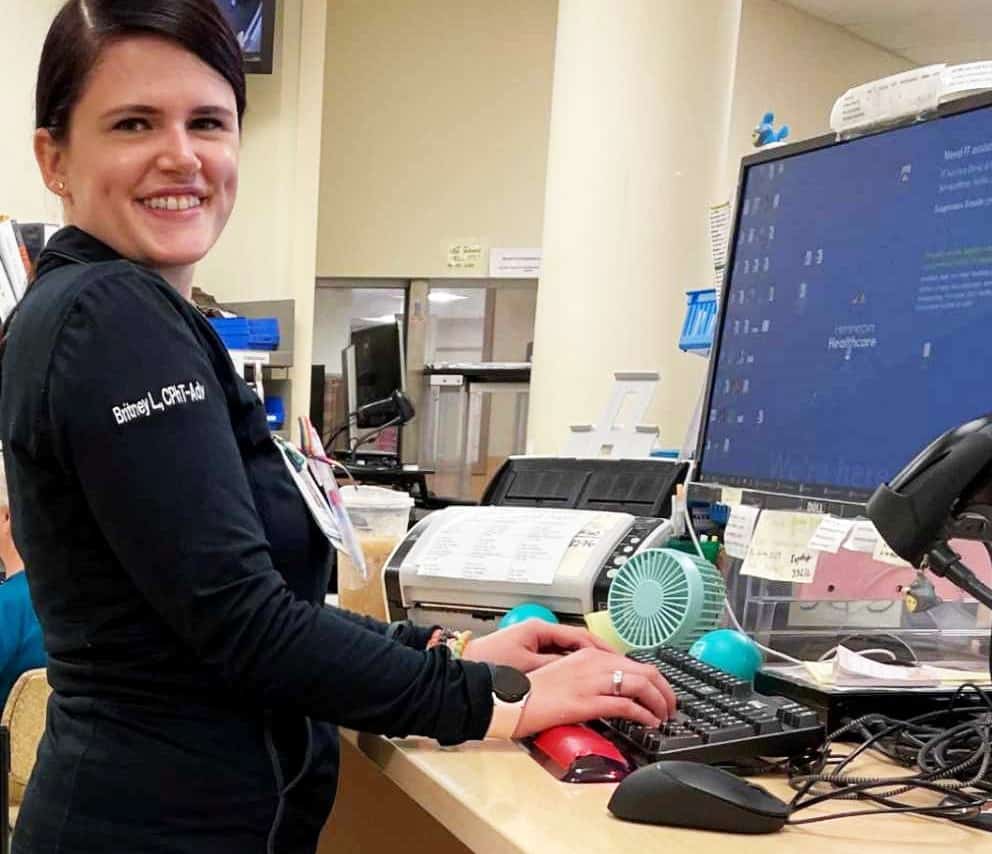
Britney Lanoue, CPhT-Adv – Pharmacy Technician
“Sometimes, we encounter people during the worst times of their life. A few weeks ago, a pair of sisters came to the pharmacy lobby for contact solution. One of them hadn’t cleaned her contacts in 24 hours because they had spent all day in the hospital with their other sister, who was dying. They also hadn’t eaten or drank anything all day. I talked to my colleagues on the inpatient side, and I was able to bring the sisters some sterile solution and LaCroix drinks. The sisters thanked me and said their mother was one of the nurses working in the unit their sister was in and caring for her.
I gave them a hug and said that I was so sorry for their situation, and that they’re incredibly strong for being here with their sister all day. If someone isn’t doing well, whether they’re a patient or family member, we’re not content until we know we’ve taken care of them. I never got their names, but what’s important is that they came to the pharmacy for help, and we did just that. I hope I made their day at least a little bit better.”
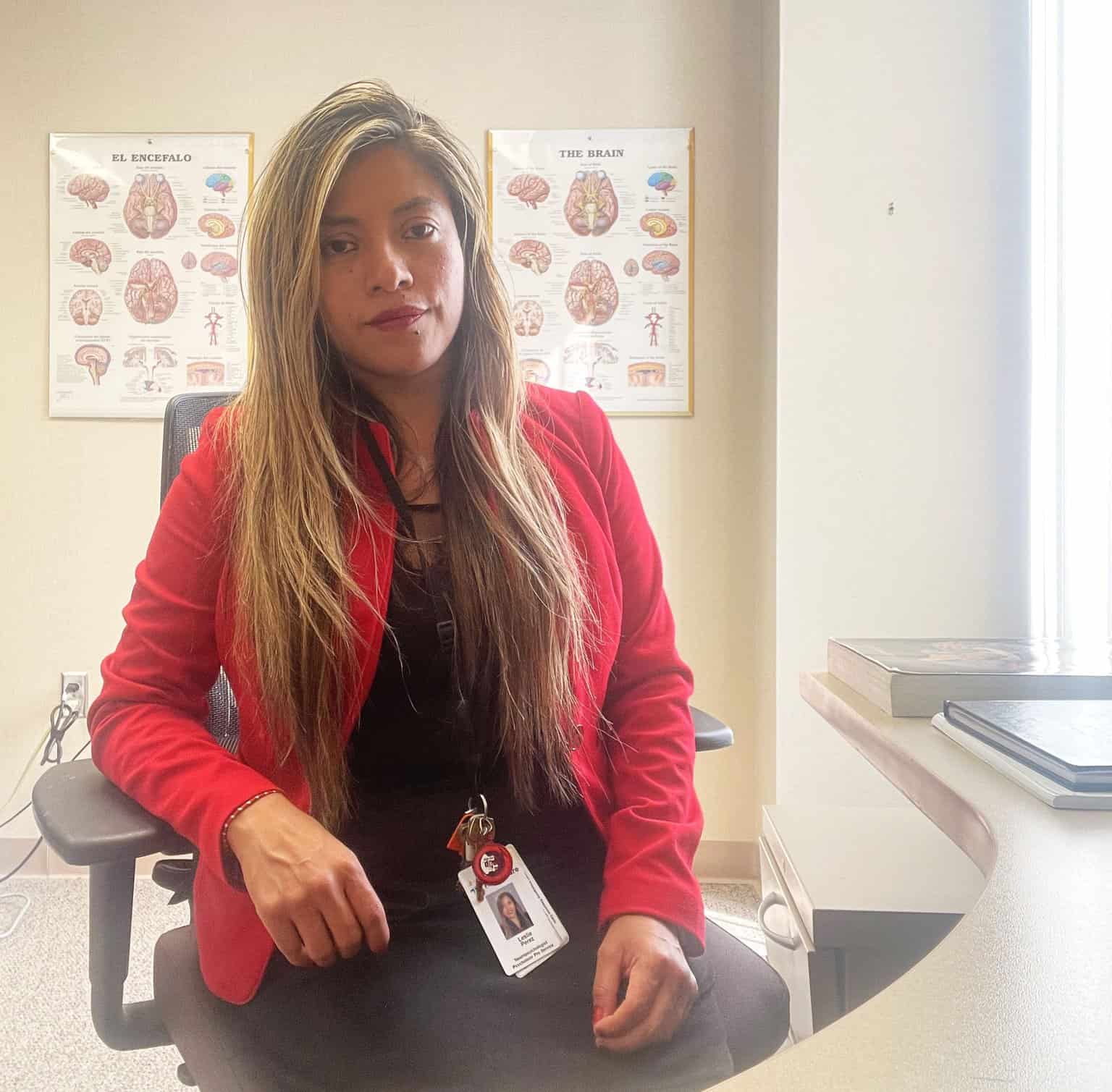
Leslie Perez, PsyD, LP – Neuropsychology
“I assess how the brain works. Typically, I see patients after an event like a stroke or TBI, or maybe they have a condition like memory loss, schizophrenia, bipolar disorder, depression or heavy substance use. I also see younger people struggling in school. We want to see if the brain is working as it should or if it’s being affected by neurological, medical, neurodevelopmental, or psychiatric conditions. Putting the puzzle together and explaining test results to the patient and their family is rewarding.
What drew me to Hennepin Healthcare is that we serve many different people, regardless of their backgrounds. A lot of patients who don’t speak English as their first language come here because other facilities might not have interpreters, or maybe they don’t have insurance. It’s important to me to make our services both excellent quality and as accessible as possible. I can provide direct services to patients in Spanish, but if we don’t have anybody that speaks the patient’s native language, we use our professional interpreters. Every time I hear about new patient services, I’m amazed by how big the hospital is and how many specialties we have. We get to collaborate with so many departments.”
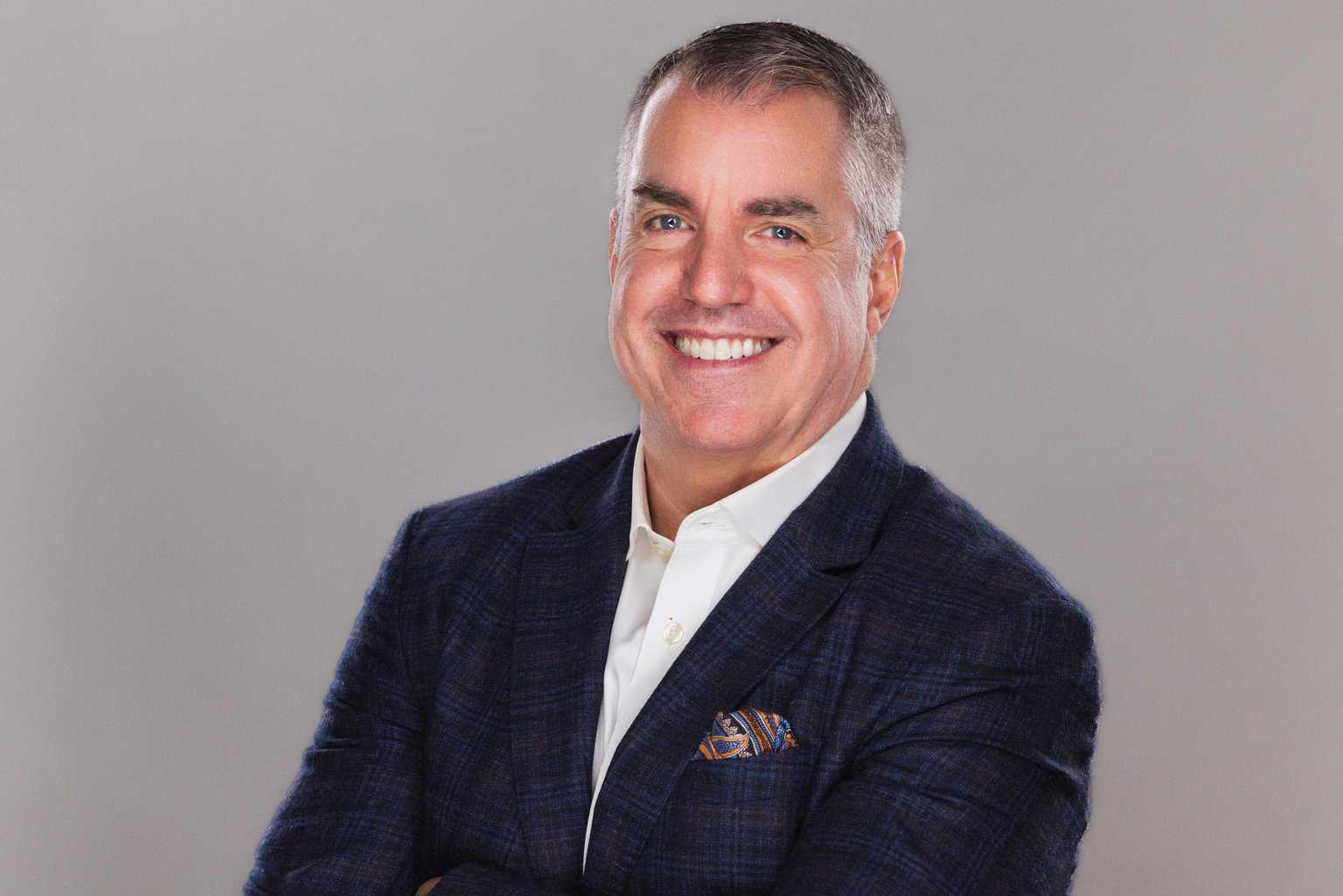
Craig Samitt – Foundation Board Member
“My interest in the Foundation started during my tenure at BlueCross. I learned that in general, healthcare in the Twin Cities is better than most places in the country, but that we also suffer from some of the worst healthcare disparities in the country. I wanted to be a part of an organization that addresses those inconsistencies.
I’ve dedicated my career to the transformation of U.S. healthcare. My hope as a member of the board is that I can help support delivering a higher quality, accessible, affordable, and equitable healthcare system in Minneapolis and St. Paul. I think part of that is achieved through storytelling. When I look at the Foundation’s contributions and the programs that Hennepin Healthcare has developed, the organization is not shy about tackling the more challenging issues that others have shied away from solving. Those are the types of stories we should highlight and tell more.”
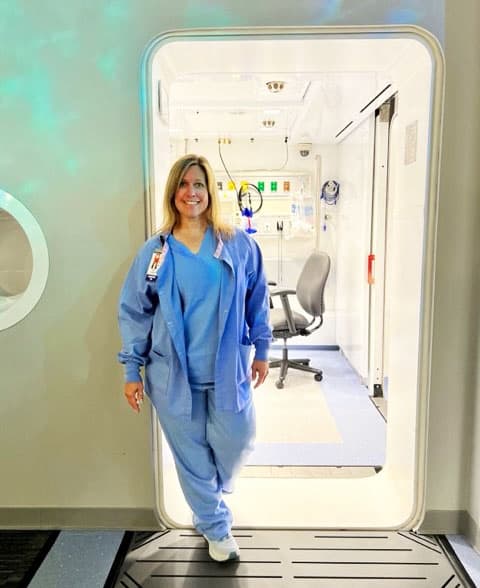
Raegan Sipe, BSN, RN, CEN – Nurse Manager, Hyperbaric Medicine
“As a nurse manager, a big part of my job is ensuring that my team has what we need so we can keep providing our patients with phenomenal care. We see and treat patients that wouldn’t have made it if they hadn’t come to Hennepin Healthcare. We have technology here that other medical facilities in the state and region don’t have. Our hyperbaric chamber is state-of-the-art and the only one in the region that’s open 24 hours a day, 365 days a year. That is a great source of pride.
For hyperbaric treatments, we often see patients five days a week for two to six weeks or more, so we really do get to know them and their families. We have a beautiful space for their treatments, which I think is a surprise for patients. Watching them progress and have good outcomes is a priceless joy. It feels good to be a part of someone’s healing journey, connect with patients and families, and hear what a difference we made. That’s why I became a nurse.”
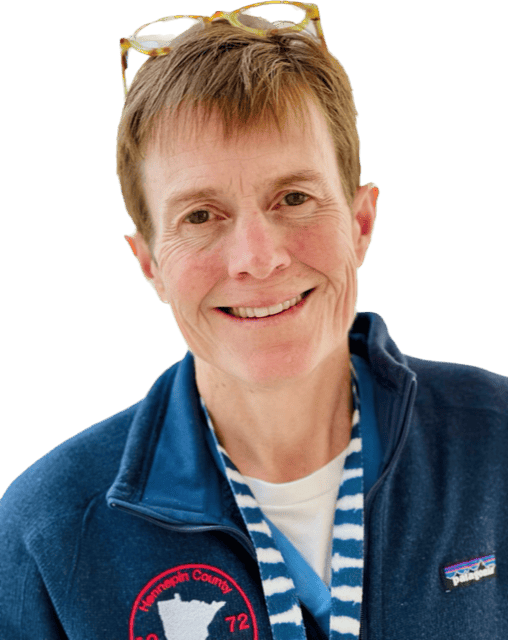
Laura Schrag, MD – Emergency Department, Medical Director
“What I enjoy about the emergency department is the team approach, the team atmosphere. Everyone brings something different to the table. I also appreciate the fact that everyone is all hands on deck and that we’re working toward a common cause – putting patients first. We’re committed to making decisions that are patient-centered. We focus on the positives and celebrate our small wins.
Another reason I’m proud of our ED is that it’s such a profound space for learning for our medical residents, so I get to watch them gain knowledge through their experience. After three to five years, they’re ready to go out into the community and be leaders in emergency medicine and excellent physicians.”
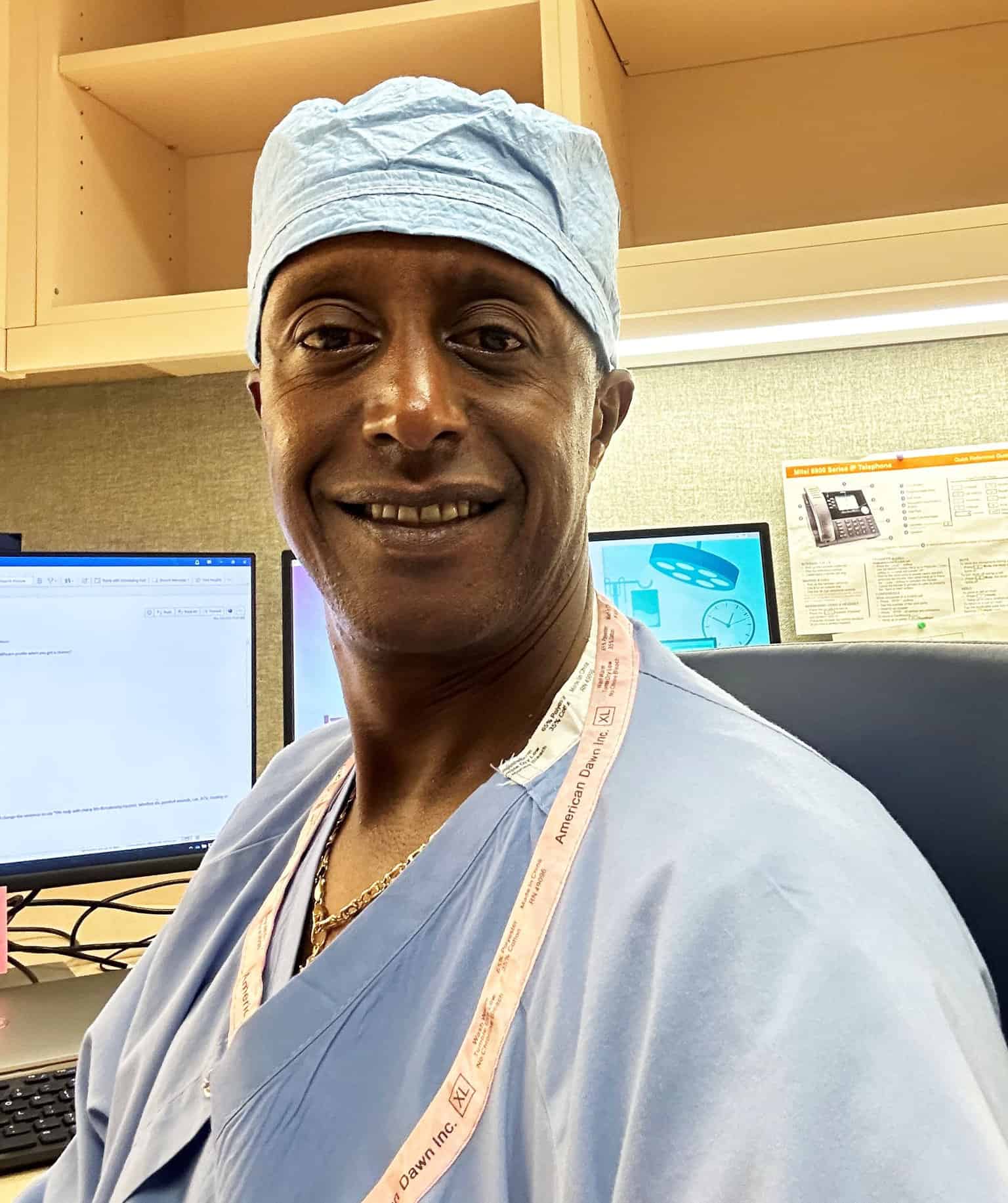
Yadessa Tola – Patient Care, Surgical Services
“The surgical services team strives for the safe and efficient flow of patient care throughout their time here – from patient scheduling, pre-operation admissions, surgery, and finally to recovery. We help with many life-threatening injuries, whether it’s gunshot wounds, car, ATV, boating or motorcycle accidents, fire, or head injuries. It’s satisfying to be part of that healing process. I’ve had several surgeries, so I can relate to what the patients go through and provide support in their journey.
It’s amazing how many compassionate people there are at Hennepin Healthcare ready to help whoever walks through the door. I’m grateful to work with individuals who constantly step up to care for patients without hesitation. It can get really hectic, but because of the commitment and compassion our team has, they pull it all together. At the end of the day, we accomplish things we thought weren’t achievable. We’ve developed a team driven to provide outstanding care for surgical patients.”
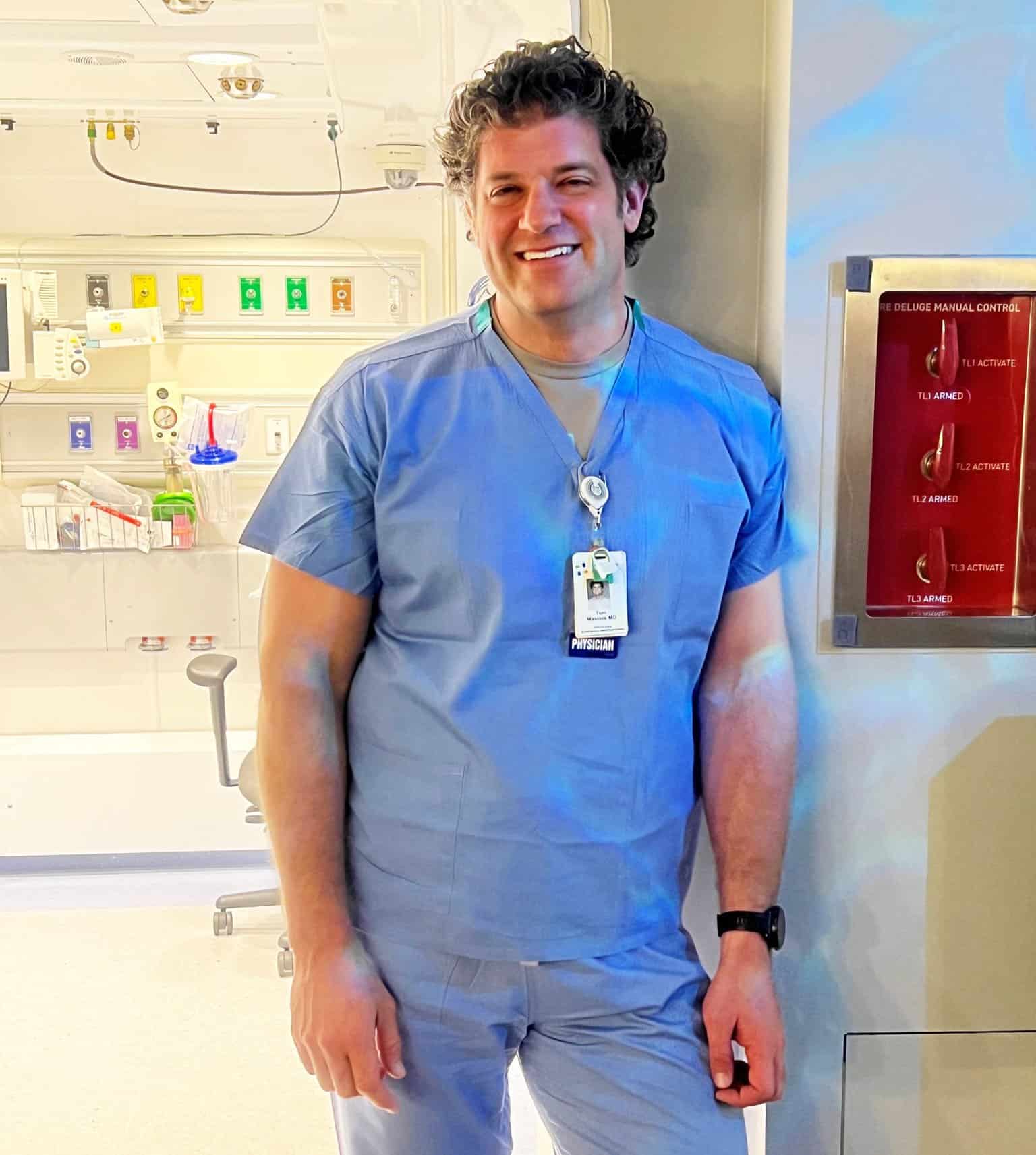
Thomas Masters, MD – Emergency Department and Hyperbaric Chamber
“Hyperbaric is a unique specialty – patients receive high doses of oxygen to heal. We are the only emergency hyperbaric department in all of Minnesota, western Wisconsin, and North and South Dakota. We treat patients that have chronic conditions that aren’t healing as expected - complications from diabetes or radiation injury, carbon monoxide poisoning, bad infections that are causing tissue loss, and stroke, so a little bit of everything. We offer patients who really struggle to heal an opportunity after everything else has failed, and we see some great successes.
For hyperbaric especially, the people I work with have a special set of skills. They’re national experts. Other facilities will call them for their advice. I’m proud of how well they lead, and how knowledgeable they all are. At the end of the day, what anyone wants to hear is if we’d send our loved ones here, and my answer is yes, if someone in my family was ill, this is where I’d want them to be treated.”
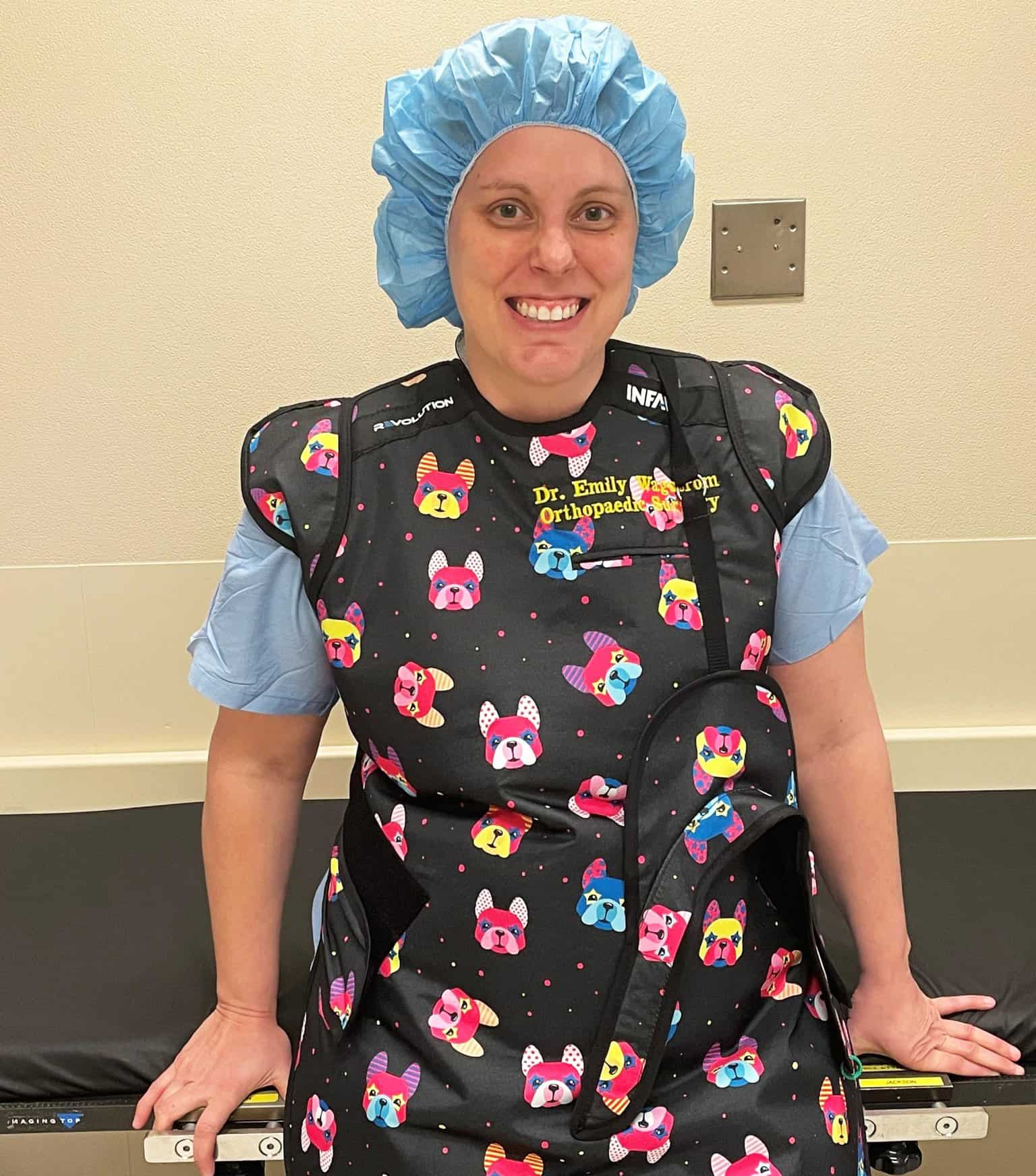
Emily Wagstrom, MD – Orthopedic Surgery
“I think there are little pieces of gratitude that happen every day, whether it’s me thanking our team after a difficult operating day, or as simple as a kid we helped take care of gives us a picture that they drew in clinic. I love seeing my patients back in clinic after many months or even years after healing and celebrating how much they have recovered and progressed. I’m honored to contribute to the healing of a traumatic experience for a patient. It’s those little pieces that make the job rewarding.
As a team, I’m proud that we ask more questions about how our patients are doing so that we can take care of the whole person and not just the injury we’re treating. Our medical assistants are really good at this. A patient may be seeing me for a broken leg, but our medical assistant can pick up that they might have a housing issue, food insecurity or relationship challenges. They spend the time with patients to understand their situation and what we can do to help.”
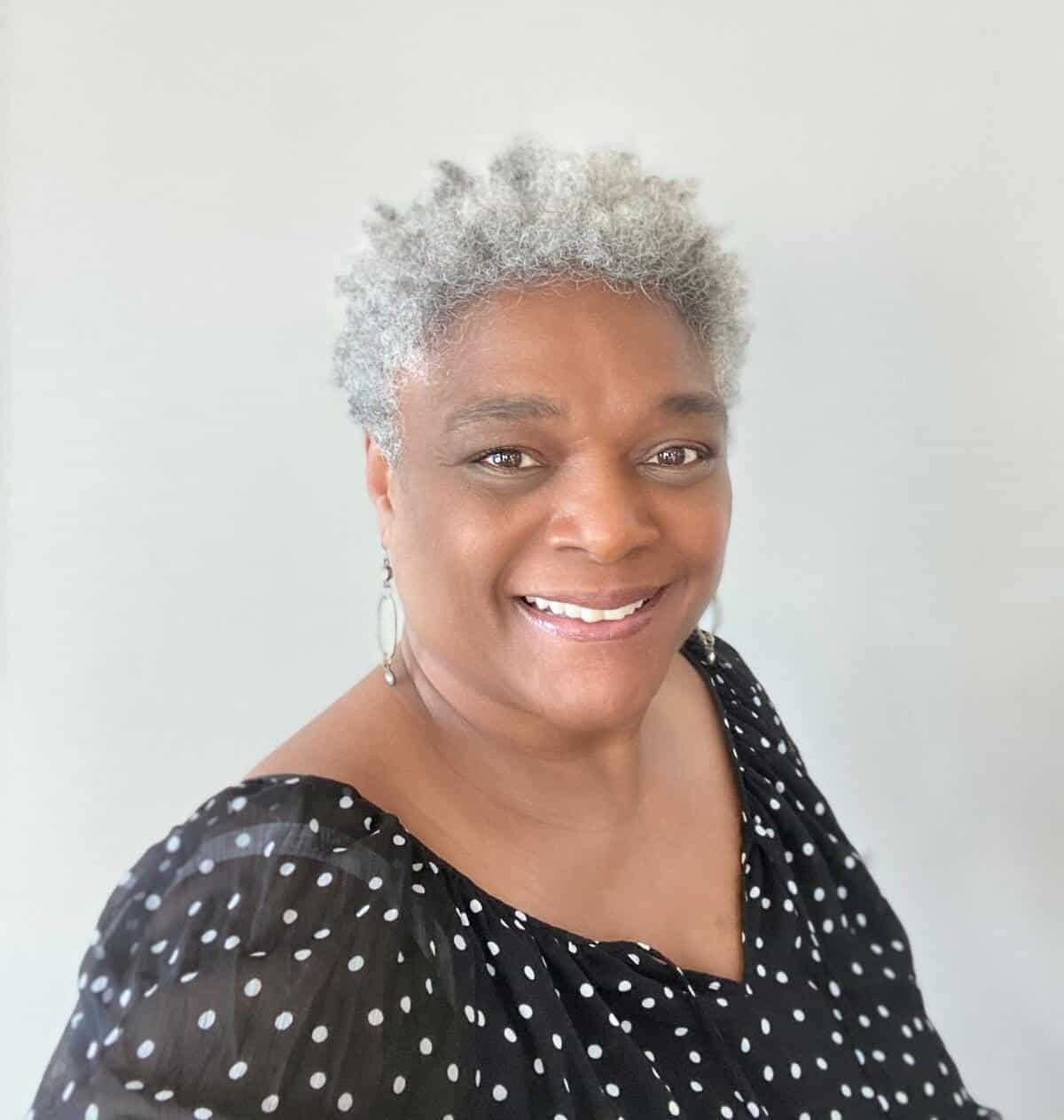
Natalie McGrady – Hennepin Healthcare Foundation Board Member
“Serving a hospital system that is so large was an adjustment for me. Although I intellectually knew how large it was, I hadn’t truly experienced it. Having leadership helps us understand the strategic direction of the hospital and how we intentionally fundraise has been eye opening for me as well. In my previous board position, we fundraised in general and then were starting to move toward fundraising for specific initiatives. When I got to Hennepin, it was very intentional fundraising and clear marketing, for example, the Redleaf Center or music therapy. That is very helpful as we think about how to introduce the organization to others.
We have a lot of big donors. I’m a more mid-level donor and I want to bring along my people. I want to make it easy for people to donate, like how Adventurama is a more inclusive event. That’s what I mean when I say this organization is intentional about opening up philanthropy to everyone. That’s very refreshing and I love being part of that.”
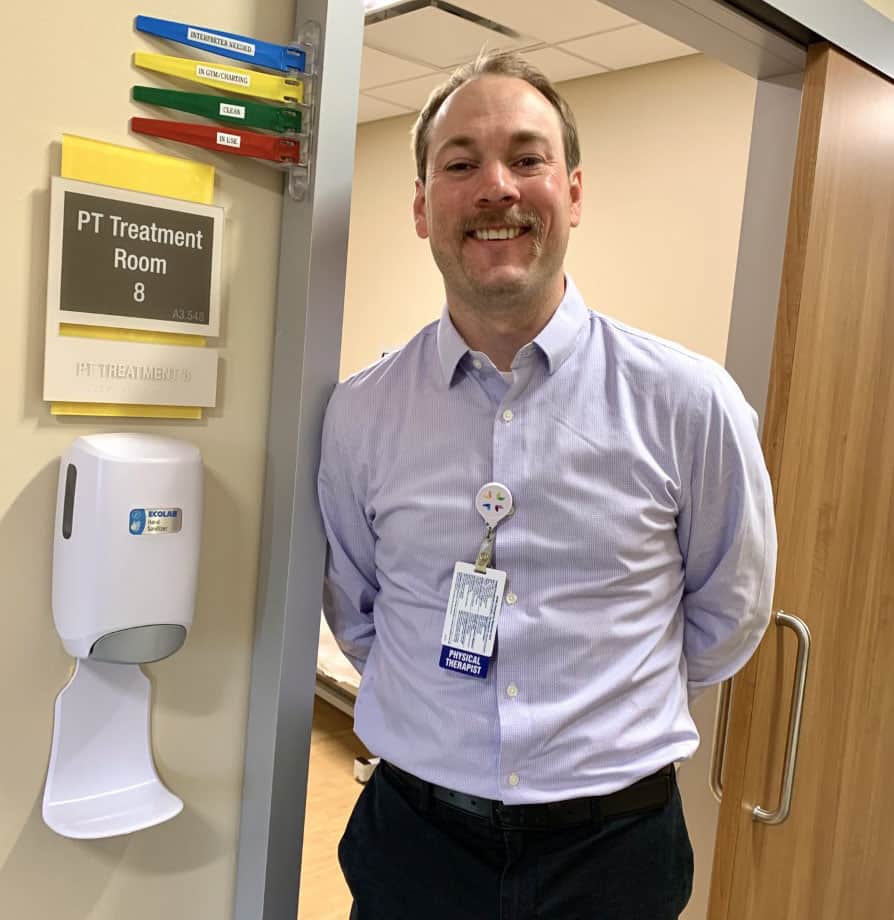
Andrew Malovrh, PT, DPT – Physical Therapy
“There’s a giant spectrum of what it means to be in physical therapy with various specialties – orthopedic, neurological, pelvic health, integrative health, lymphedema, the list goes on. It’s not a one-size fits-all approach. People might think of physical therapy as strictly injury or surgical rehabilitation, but it provides a lot of different and additional care related to mental health, performance or mobility improvement, injury prevention and chronic pain.
One of the biggest rewards is helping people and seeing their lives and abilities change in the direction they want. Physical therapy is about being an avenue for that change. There’s so much that can be done, and once you meet the patient and get to know them on a personal level, that’s when the care really blossoms because you can try different things depending on what they need. It’s so gratifying to see patients achieve or exceed their goals.”
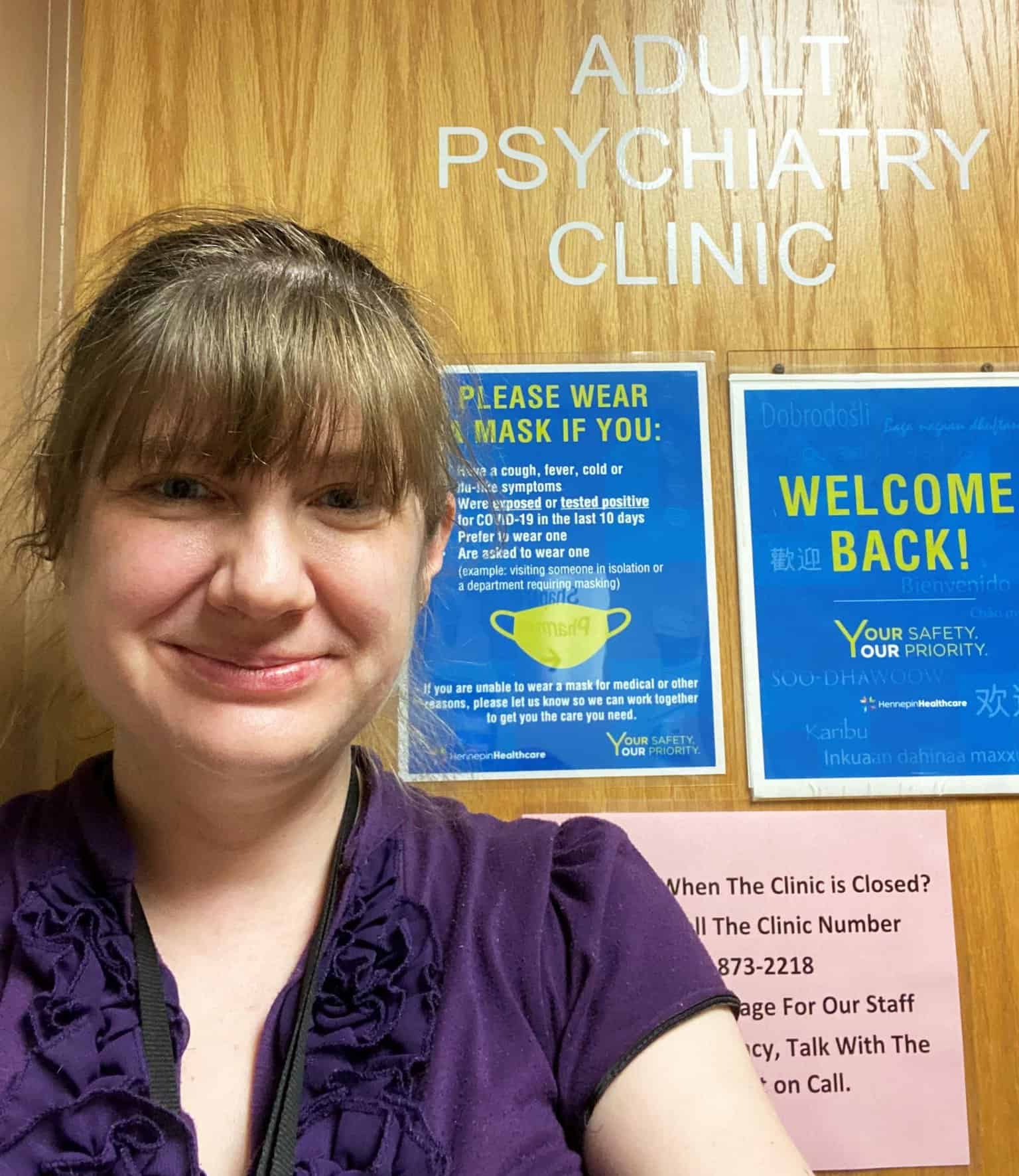
Gretchen Vanderlinden-Wang, LICSW – Adult Psychiatry Clinic
“Over my years in mental health work, I’ve developed a specialization in trauma. As I got more specific training, I realized that many people’s mental health challenges started because of trauma. Oftentimes, trauma goes unaddressed, whether it’s recent trauma experienced in their adult lives or things that happened when they were kids. As we work with patients, it is rewarding to watch people let go of the shackles of the past, live freely in the present, and dream of the future without their trauma holding them down.
I’m grateful for my colleagues in the therapy clinic. Many of them have mentored me in my journey of becoming a mental health clinician, and they’re dedicated to the mission of providing therapy for everyone. It can be difficult to do that when there are barriers, especially when patients don’t have their basic needs met or face discrimination. Our team is dedicated and compassionate in the face of adversity.”
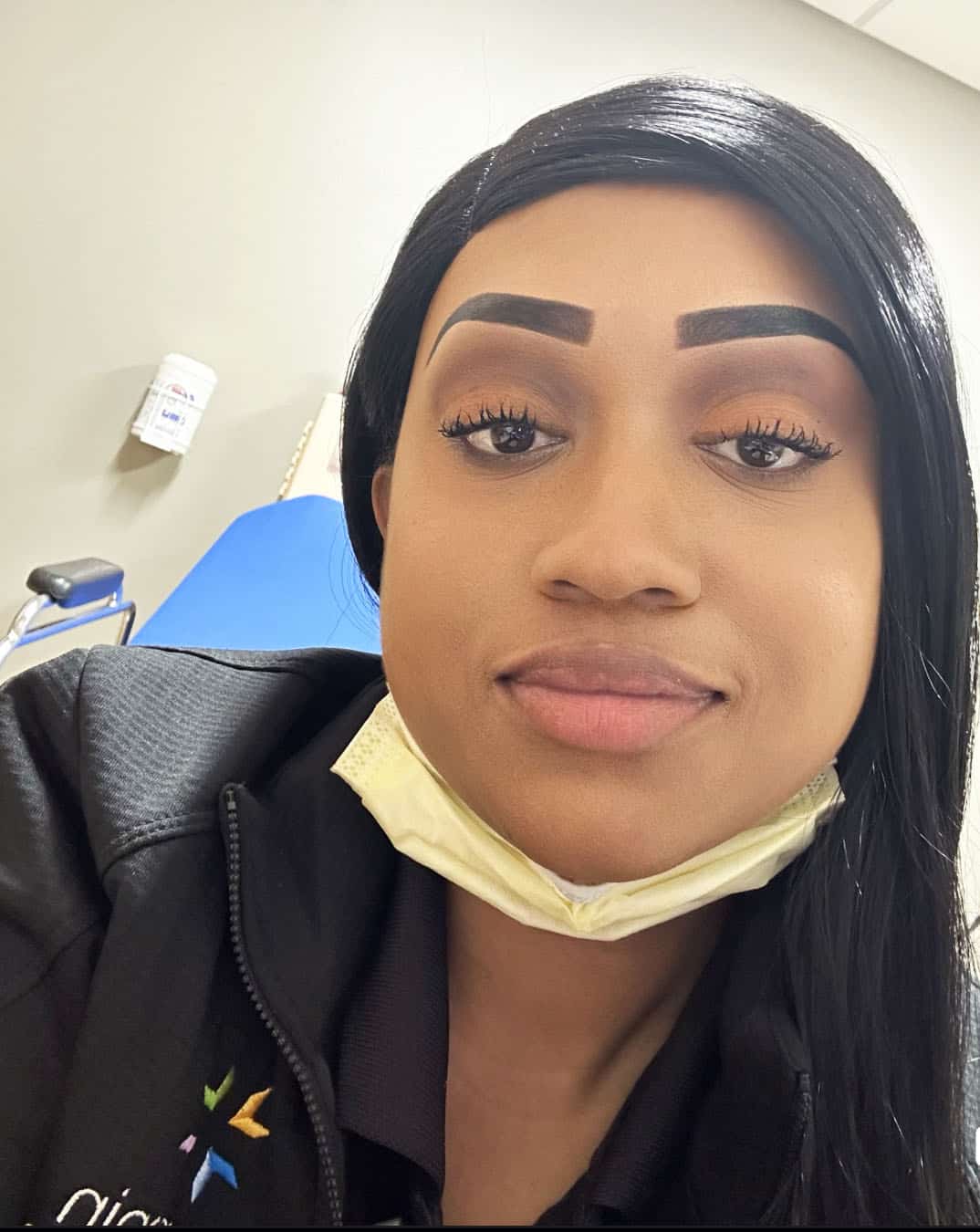
Charesse Caldwell – Patient Services Coordinator
“Every day, we check in about 500 patients. We also help register new patients and schedule next appointments. It’s rewarding to be a part of patient care and hear their feedback. I like to see the smiles on their faces. It’s touching when they come to me and say, ‘Thank you for making this appointment for me. I really needed this.’ I’ve even had patients thank me for saving their life. That’s what I’m genuinely here for – the gratitude I feel knowing that I contributed.
I’m proud that my team has so much compassion for patients. We all go out of our way to make sure we help them. For example, if transportation is not available, we will take them from the Clinic and Specialty Center all the way across campus to the Blue building by wheelchair if we have to. We will make sure every patient is cared for.”
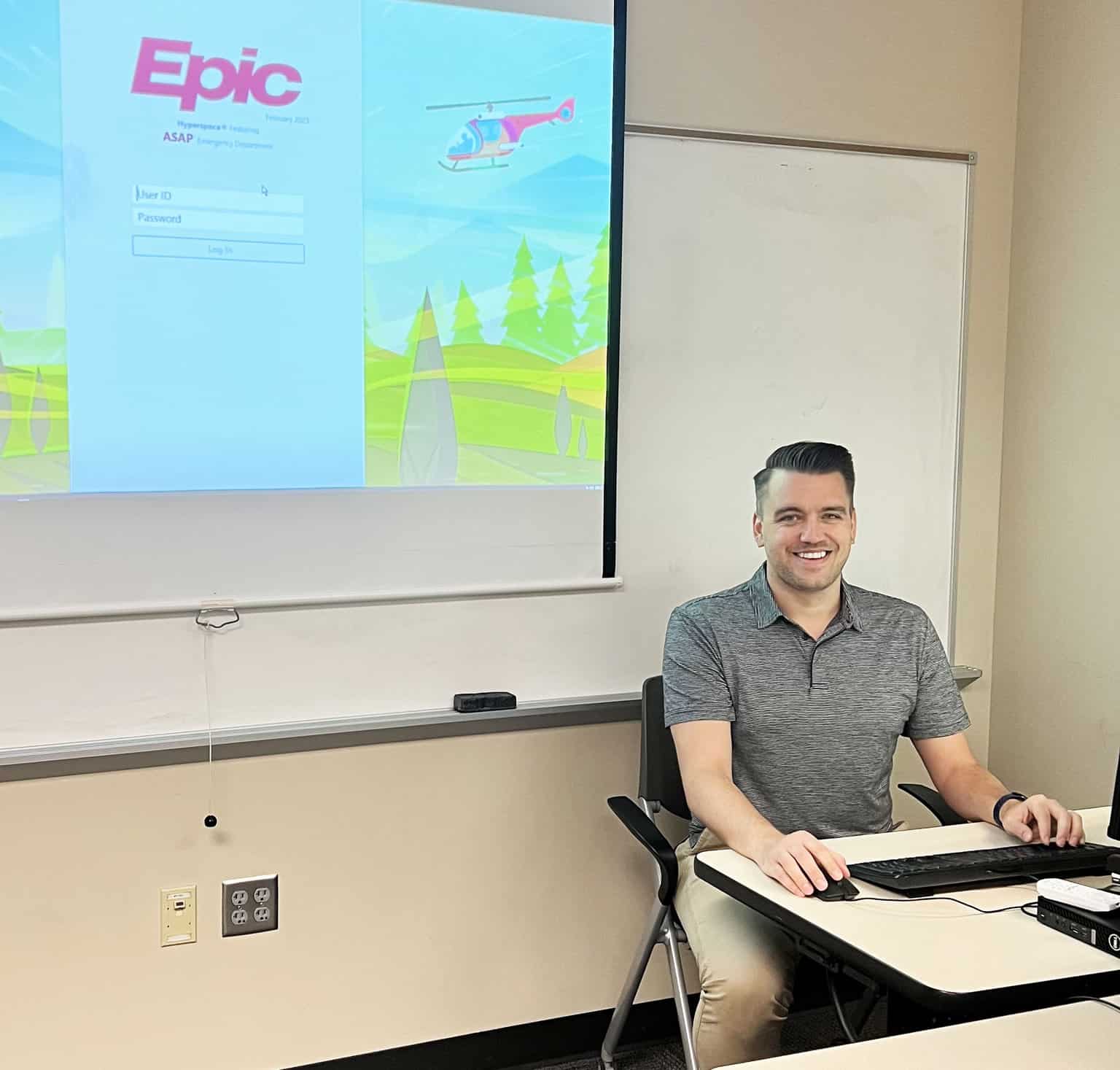
Adam Nehotte – Clinic Informatics Educator
“As part of the Clinical Informatics Education team, we train everybody from the nurses, to providers, and mental health workers and more, primarily on Epic, the medical records software. Sometimes people think we’re IT or that we work for Epic, neither are true. We’re part of the IS&T tower and many of us are certified in Epic. I find it rewarding to help users to be more efficient in their daily work and show them tricks that they might not have known. The best part is when someone I’m helping has this light bulb moment – something clicks, and they get excited.
Our team’s biggest triumph lately has been completing a lot of training called optimization sessions. We first provided that training to all of the inpatient nurses, so we hit every inpatient unit in the hospital four different times. We did early morning shifts at 4 am and night shifts until 11:30 pm. Then we did the same thing for providers and ambulatory nurses, so we went out to all the community clinics and all areas in the Clinic and Specialty Center. That was a huge lift – well over 600 hours of training that seven of us completed in a few months. It was incredible, and gratifying to see how appreciative our colleagues were.”
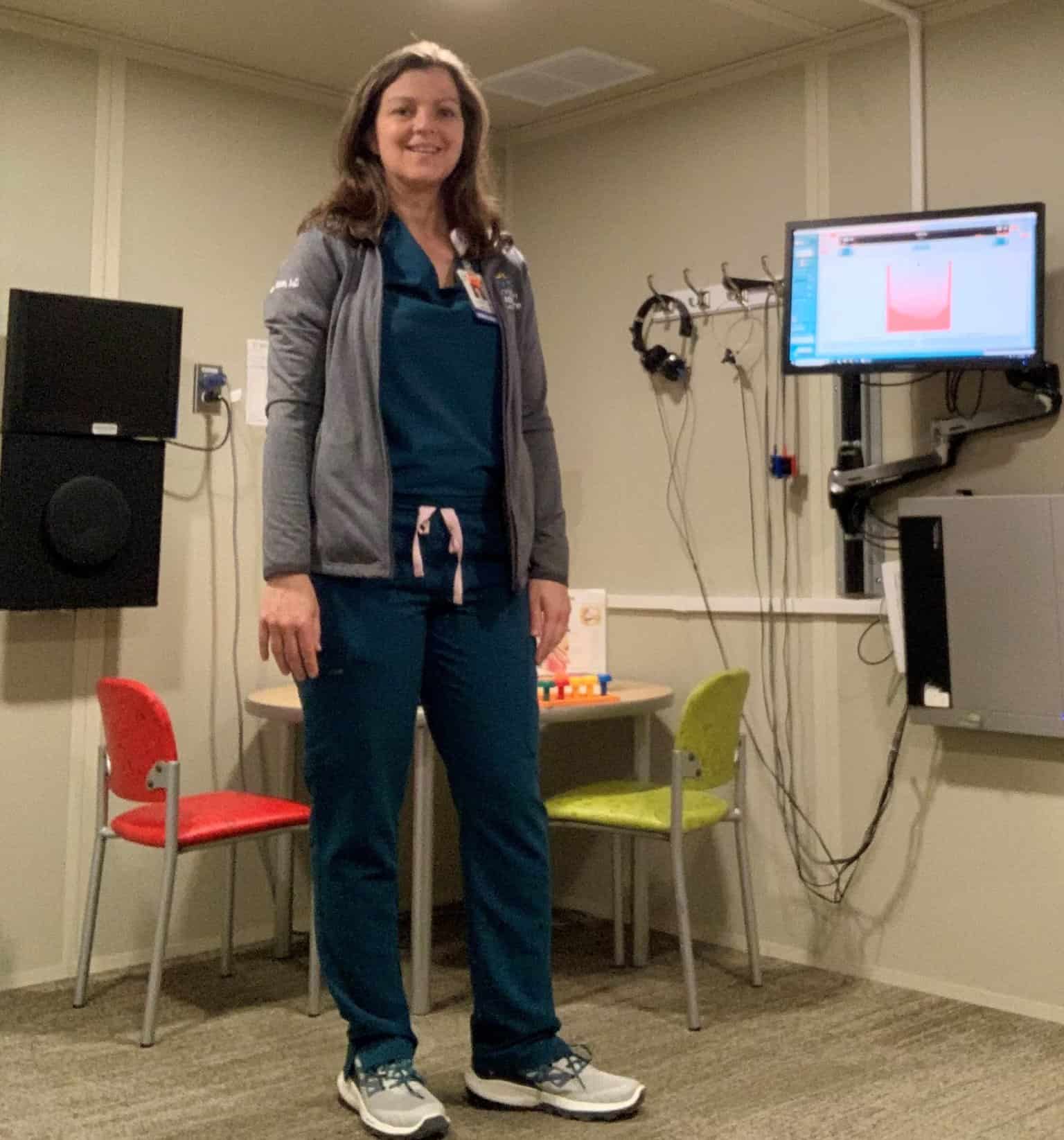
Janet Hansen, AuD, CCC-A – Audiology
“I’ve enjoyed meeting people from around the world at Hennepin Healthcare. Over my 25 years here, I’ve seen changes in where some of our patients come from. It’s almost like a geography lesson. Let’s say a patient on my schedule needs an interpreter. I’ll look to see what language, and sometimes it’s one I’m not familiar with. I’ll look it up to see where the language is spoken. I think our patients appreciate the care they receive. In some cases, patients tell me this is the only place they can go, and I like being one part of the place they receive care. I also like being in the place that some patients choose – they know our reputation for excellent care.
Hearing loss can be exhausting. When you can’t hear well, you have to focus so hard throughout the day to follow the things we take for granted. People sometimes get emotional when they can suddenly hear their family members without as much effort. Newer hearing aids can be paired with smart phones. To test this, we call them, and they can hear well on the phone for the first time in a while, or ever – some will cry happy tears. Hearing loss makes people not want to talk on the phone or avoid other difficult situations. It’s rewarding to connect people with their families and make communication easier.”
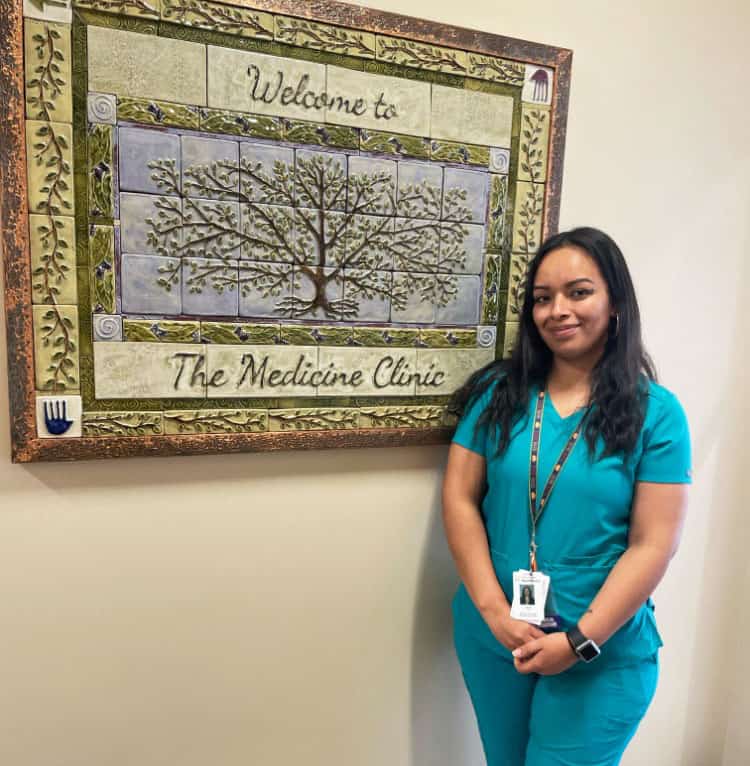
Dora Deras, MA – Senior Medical Assistant, Internal Medicine
“Hennepin Healthcare means a lot to me. As an immigrant, I feel welcomed. I love the diversity that our teams offer, such as the Somali clinic and Spanish-speaking clinic. I know they’ll take care of me and everyone else, no matter the situation.
All the providers are so passionate about taking care of patients. We connect and get to know them so one day when they come back, they know our names. They become like friends to us. My team has fun while working with patients, even if it’s a challenging case. We give our best and lift each other up.”
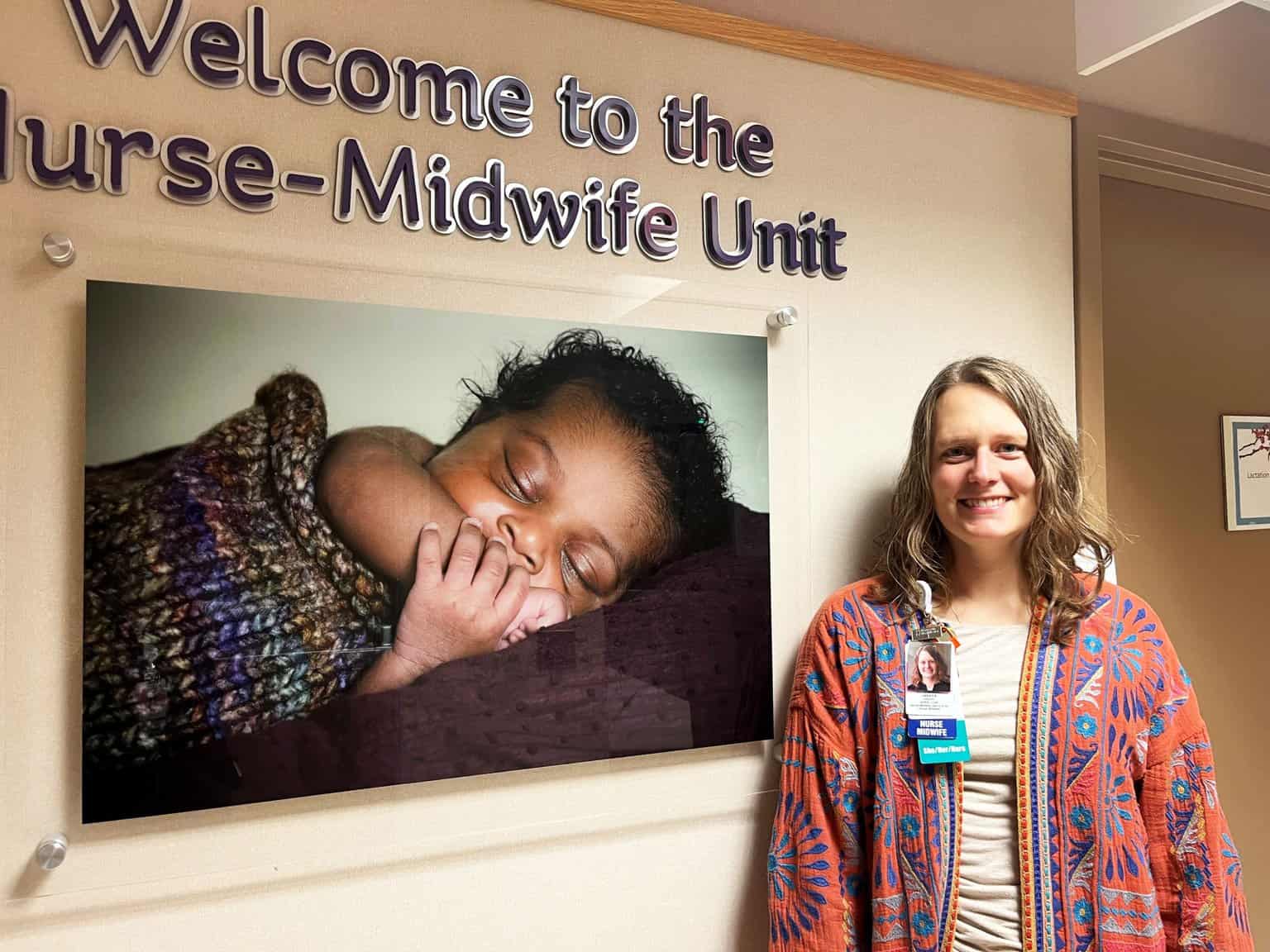
Jess Holm, APRN, CNM, FACNM – Nurse Midwife Service and Division Director
“The philosophy of midwifery has really resonated with me. We focus on pregnancy and birth as a normal process, not as a high-risk experience. Midwives also focus on non-intervention, meaning that we walk with people through the process and only intervene as necessary. We support patients through whatever their birth looks like, whether it’s nonmedicated, a water birth, an induction, an epidural, or any combination of these.
Globally, the U.S. is an outlier – in most other countries, midwives attend most births, but only 10 percent of births are attended by a midwife in the U.S. In the past year, the nurse-midwife service has attended at least 40 percent of the births at HCMC – that’s a significant increase when compared to prior years. I’m proud of the wealth of knowledge and high-quality care that our team can provide. I love the diversity in our group because I learn something new every day. In our 52nd year of midwifery at Hennepin Healthcare, we still do it really well.”
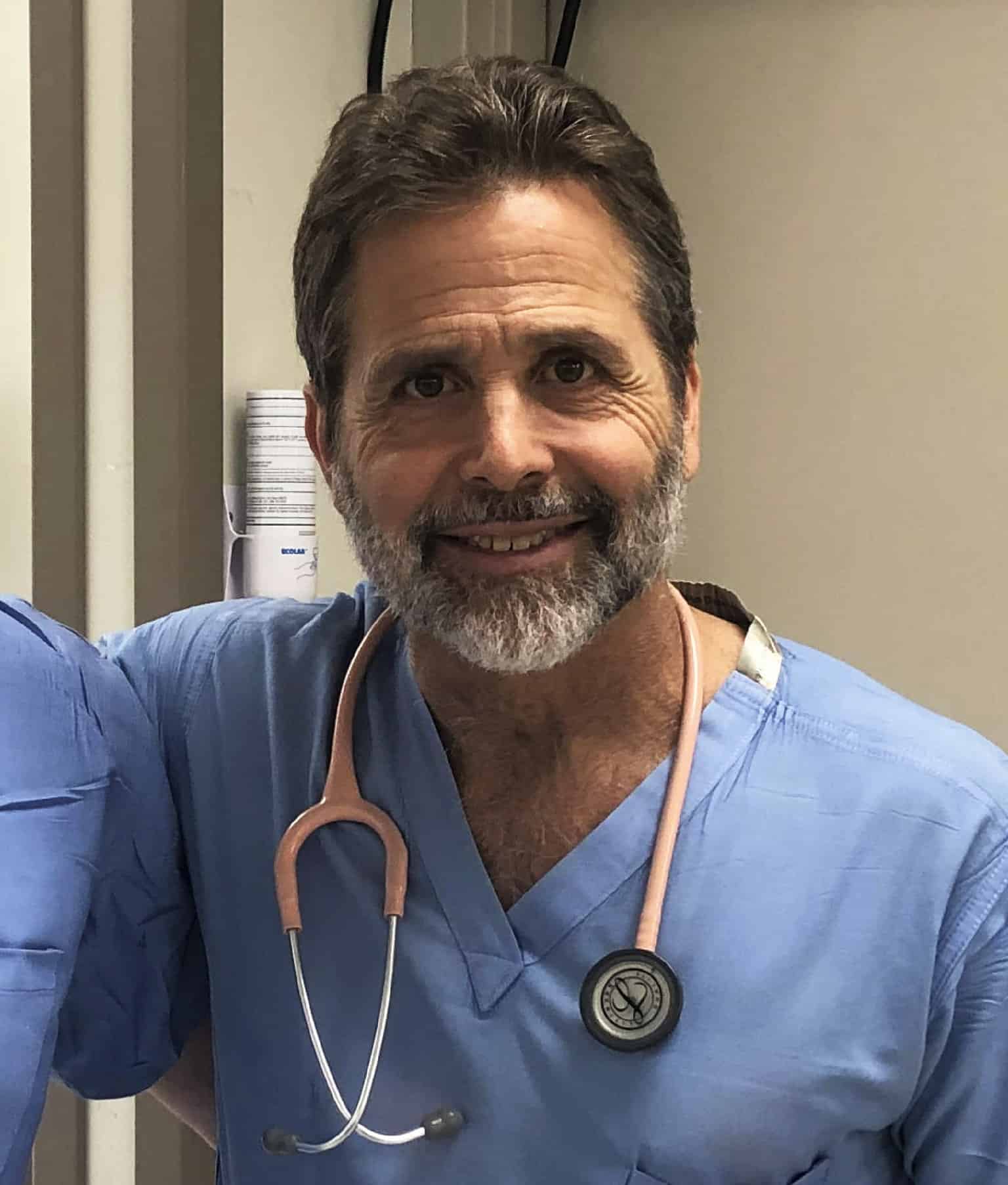
Stephen Smith, MD – Physician, Emergency Department
“When I was in medical school, I knew I wanted to be the first one to see the patients. In the emergency department, it’s a lot of problem solving and quick thinking. I enjoy the opportunity to help people in their time of distress – to fix the problem and reassure them.
Some people think we’re just the ED for people who don’t have anywhere else to go. They don’t realize that we’re one of the premier emergency departments in the world. We’re globally recognized because of our cutting-edge research and patient management. A lot of our faculty are prominent in their field. If you are sick, there’s no better place in the world to be than our stabilization room. The finest people I know work in our ED.”
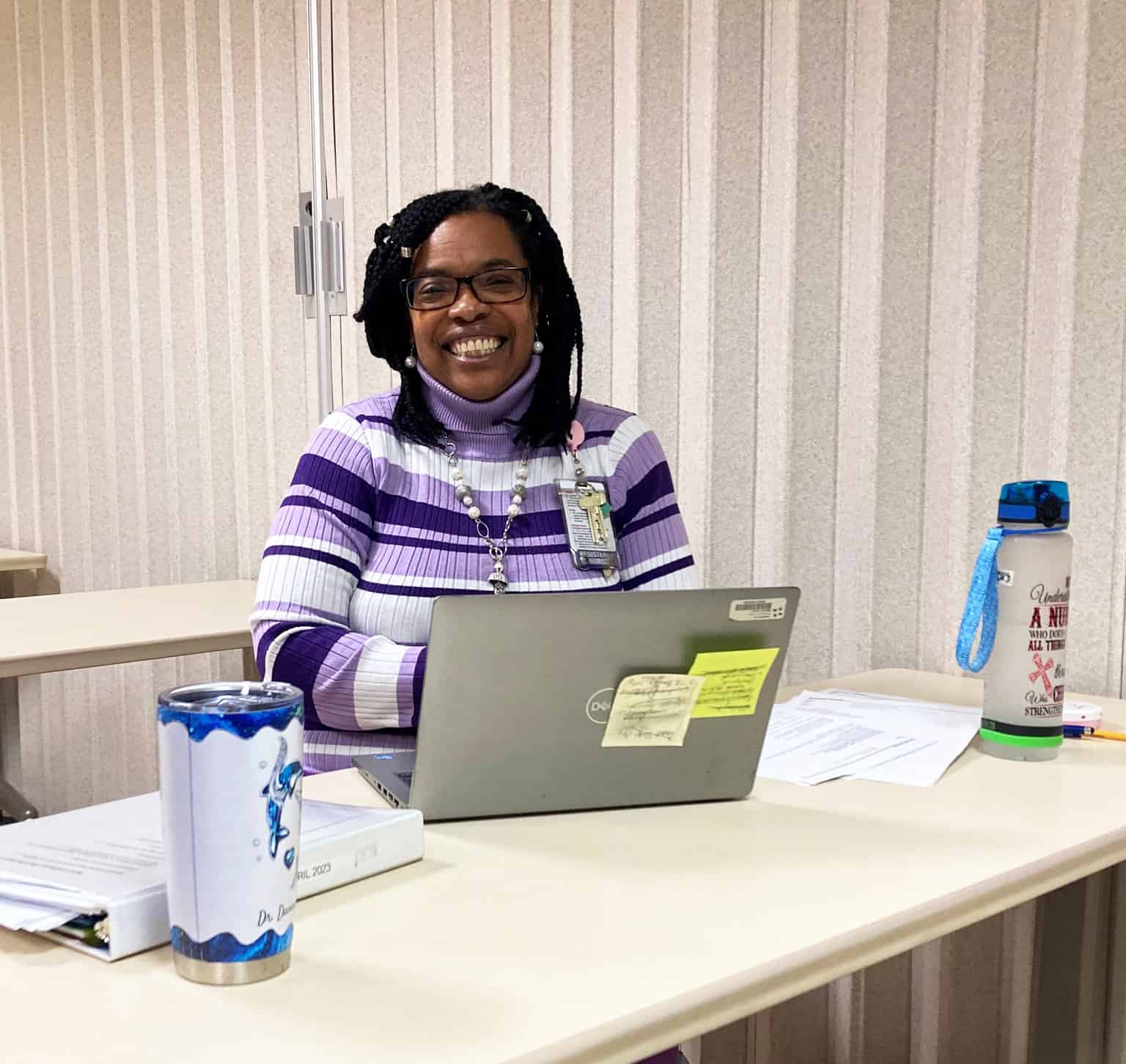
Michelle Davenport, DNP, RN – Professional Development Specialist, Medical Surgical Division, Jail Health Services, Burn Unit
“My great-grandmother, Flossie Washington, is the one who inspired me to care for everyone in the community. She cared for the homeless and anyone struggling with addictions in New York City, where I’m originally from. When I became a nurse, I knew I wanted to work for Hennepin Healthcare because it cares for the same people that my great-grandmother did. That’s the mission – we truly provide phenomenal care to everyone, regardless of what they are facing, and that’s why I love working here. This is who Flossie Washington taught me to be.
As professional development specialists for registered nurses, we educate both new employees and our seasoned staff and we are always looking to redesign our education, relying on evidence-based practice. I’m driven to continue to help the future generation of nurses. If I can make a difference in their lives, I’m going to do it. It’s a way of giving back to the community. I want to give these new nurses the mentoring that I did not receive. I have dealt with racism in my career and was told ‘People like you will not be successful in the RN program.’ So, I was determined to be successful and be the mentor that I needed.”
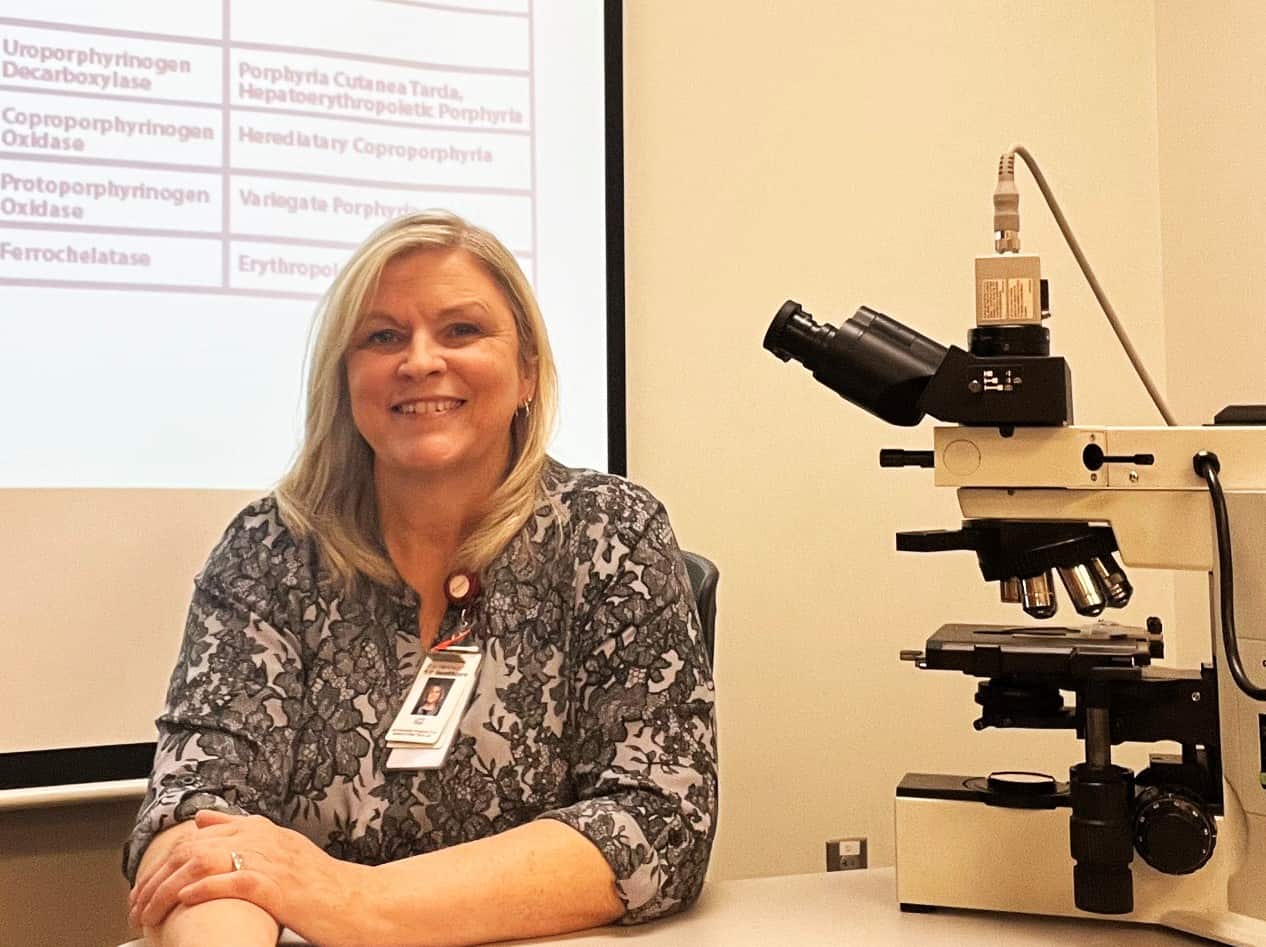
Lynn Poth, MS, MLS (ASCP) – Lab Education Program Coordinator
“I direct the education programs in the lab – one is a phlebotomy certificate and the other for a medical lab science certificate, which is the final year in a bachelor’s degree. HCMC has run this hospital-based lab training program for over 100 years. This makes us one of the oldest programs in the nation, which is quite the legacy!
I love the detailed work that goes into analyzing patient samples. I also love working with lab students. The most rewarding part is seeing the growth and confidence that builds while interns train with us until they graduate and are ready for a job in the lab. It’s a complete metamorphosis. I’m proud to work at a hospital that invests resources in educating our next generation of healthcare professionals.”
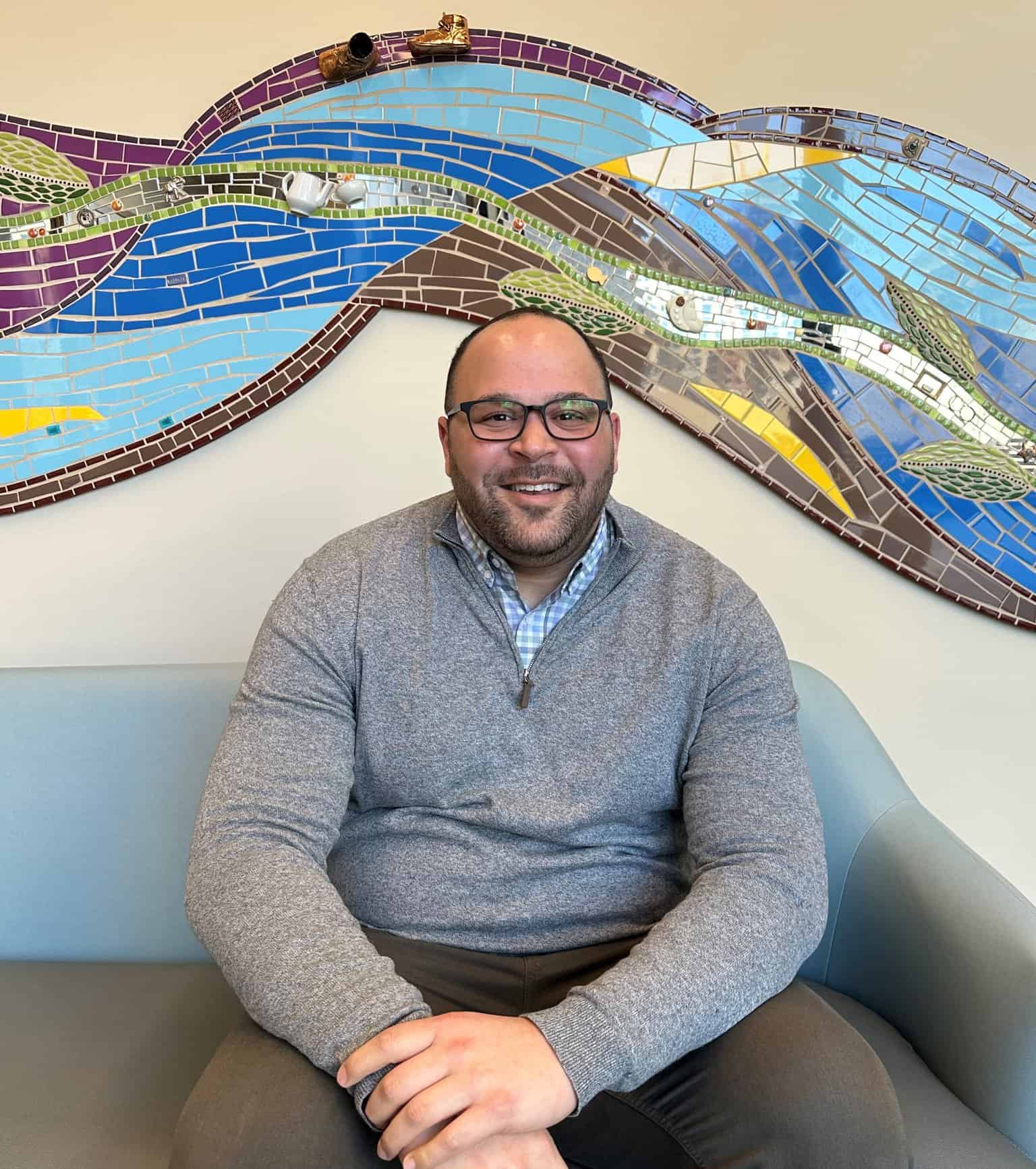
David Lemon – DEI Coach, Health Equity
“The work of any coach is to help build capacity and guide someone to understanding their strengths and opportunities to grow. We keep concepts of DEI at the forefront. In coaching sessions, I ask a lot of questions because most people have the answers within themselves. I enjoy helping people figure out what is important to them and why. It’s an opportunity to help someone shape their own lesson plans for where they want to go. We challenge people to think about what ways their actions support or hinder efforts to reach equity.
When you get to the heart of DEI work and the issues of race, gender, sexual orientation, religion, so many of those things are built on systems that pre-date all of us. Many of us aren’t making an active choice to do anything wrong, but we were raised in a system that taught us certain things are the right way to do things and or the right way to be. We can’t help but be a product of those systems. It’s not about being a good or bad person, it’s about recognizing how you fit into those systems – how you benefit from or are oppressed by those systems and what you are doing to actively push back on oppressive systems to create equitable opportunities for everybody.”
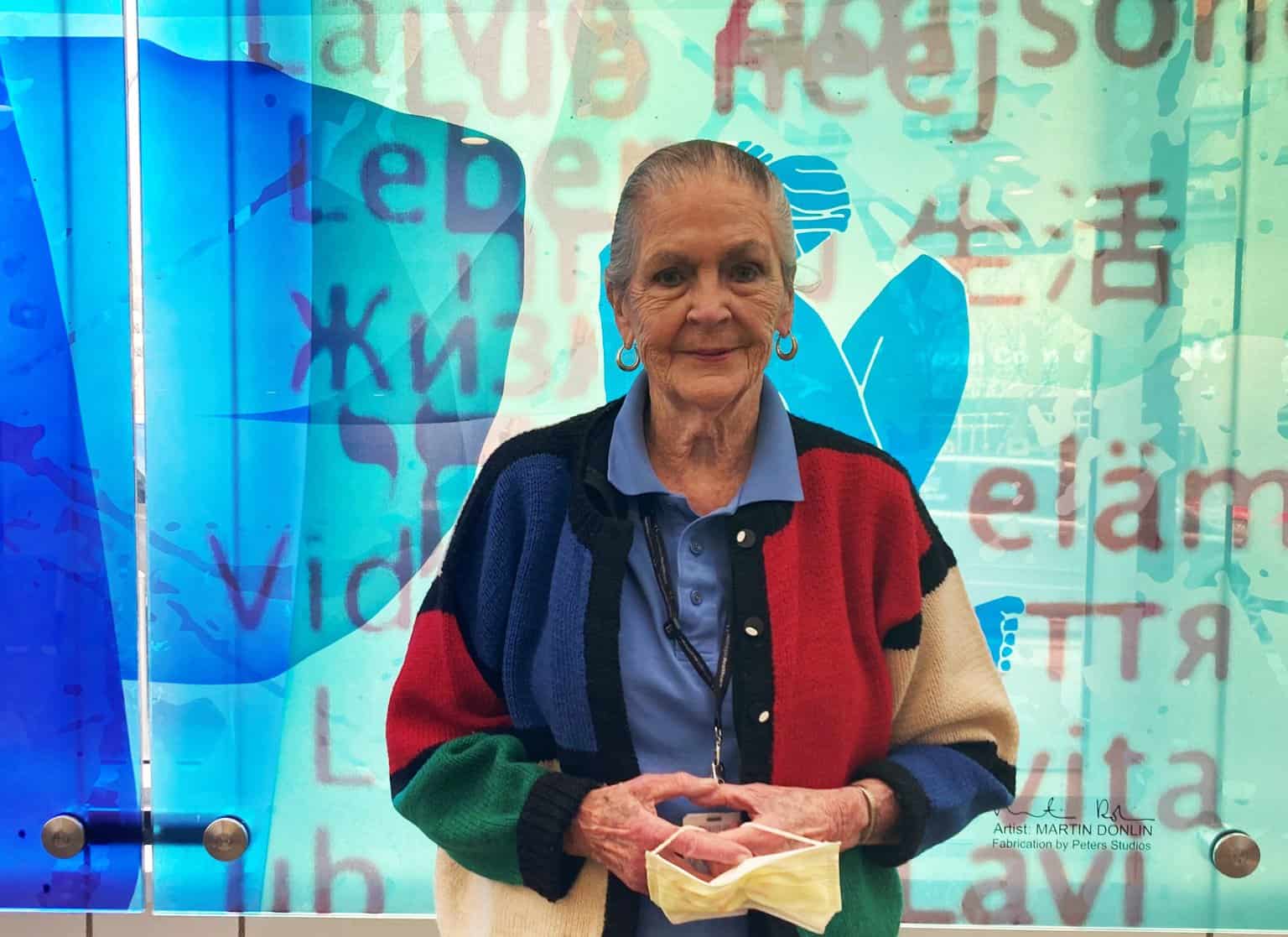
Jo Fink – Volunteer, chaplaincy
“I’ve been volunteering with chaplaincy since 2007. I enjoy making somebody’s day brighter and being a presence for them. I’m grateful for what I’m able to do and the opportunity to help others. Hennepin Healthcare is such a well-run hospital, and the staff are so friendly – that’s what keeps me coming back.”
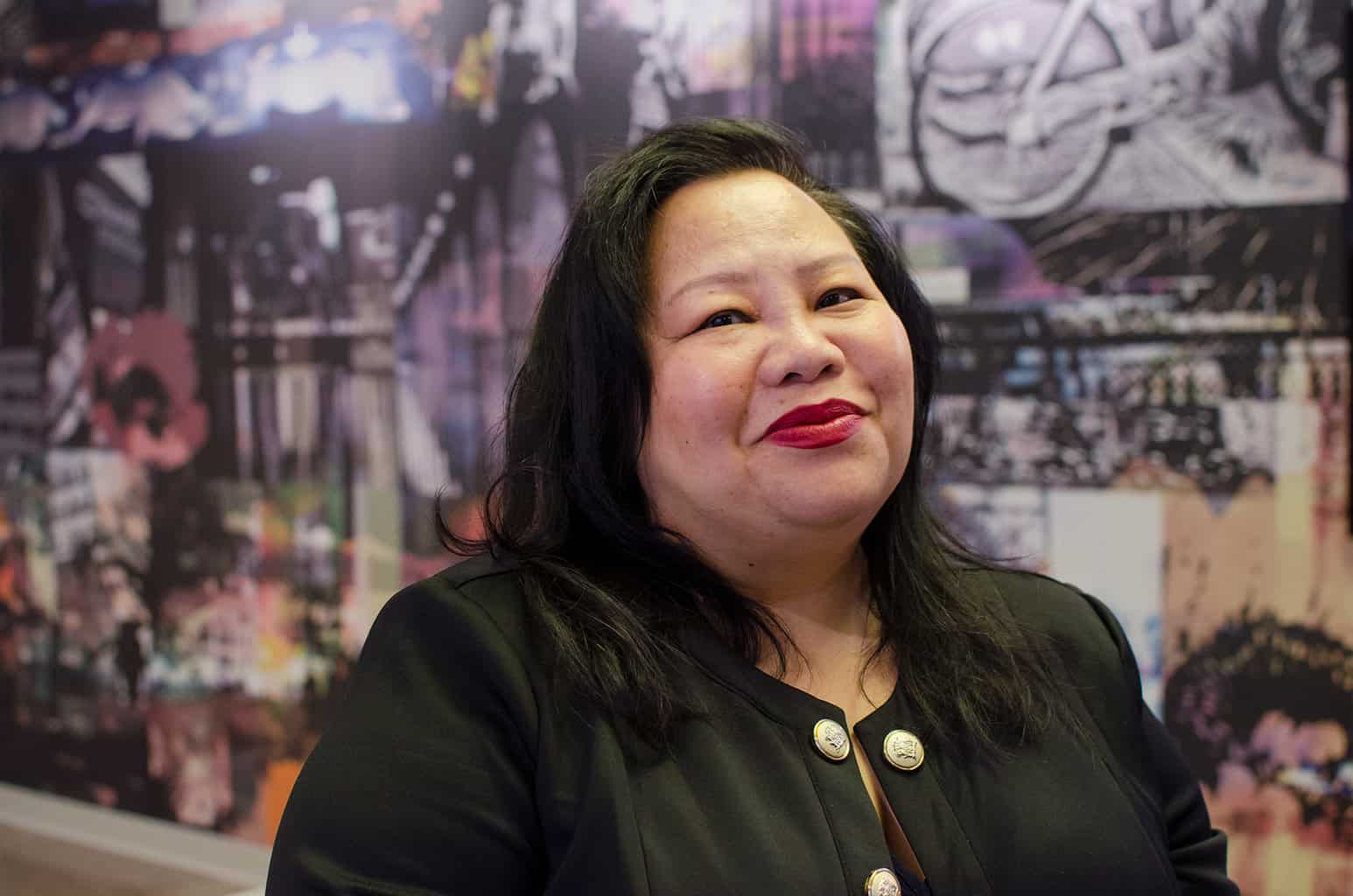
Ka Vang – Vice President of Equity, Diversity, Inclusion and Access, Meet Minneapolis
“I’m a part of the Meet Minneapolis Legacy Project – our goal is to focus on social-corporate responsibility and to inspire the tourism and hospitality industry to give back to the community. With everything the community has gone through the past couple years, I thought we should take back the narrative by helping our neighbor, Hennepin Healthcare. We held a warm clothing drive for three weeks and asked our Meet Minneapolis staff and the hospitality industry to donate. We ended up donating over 500 items of clothing worth about $5,000.
This project was personal for me because I have been a recipient of clothing closets and food pantries. I’m Hmong American and came to the U.S. in 1980. I also lived in a refugee camp for five years before that. Those experiences informed my desire to give and made me aware of social justice work. I’m grateful for community champions that gave to me and my family because without them, I wouldn’t be where I am today.”
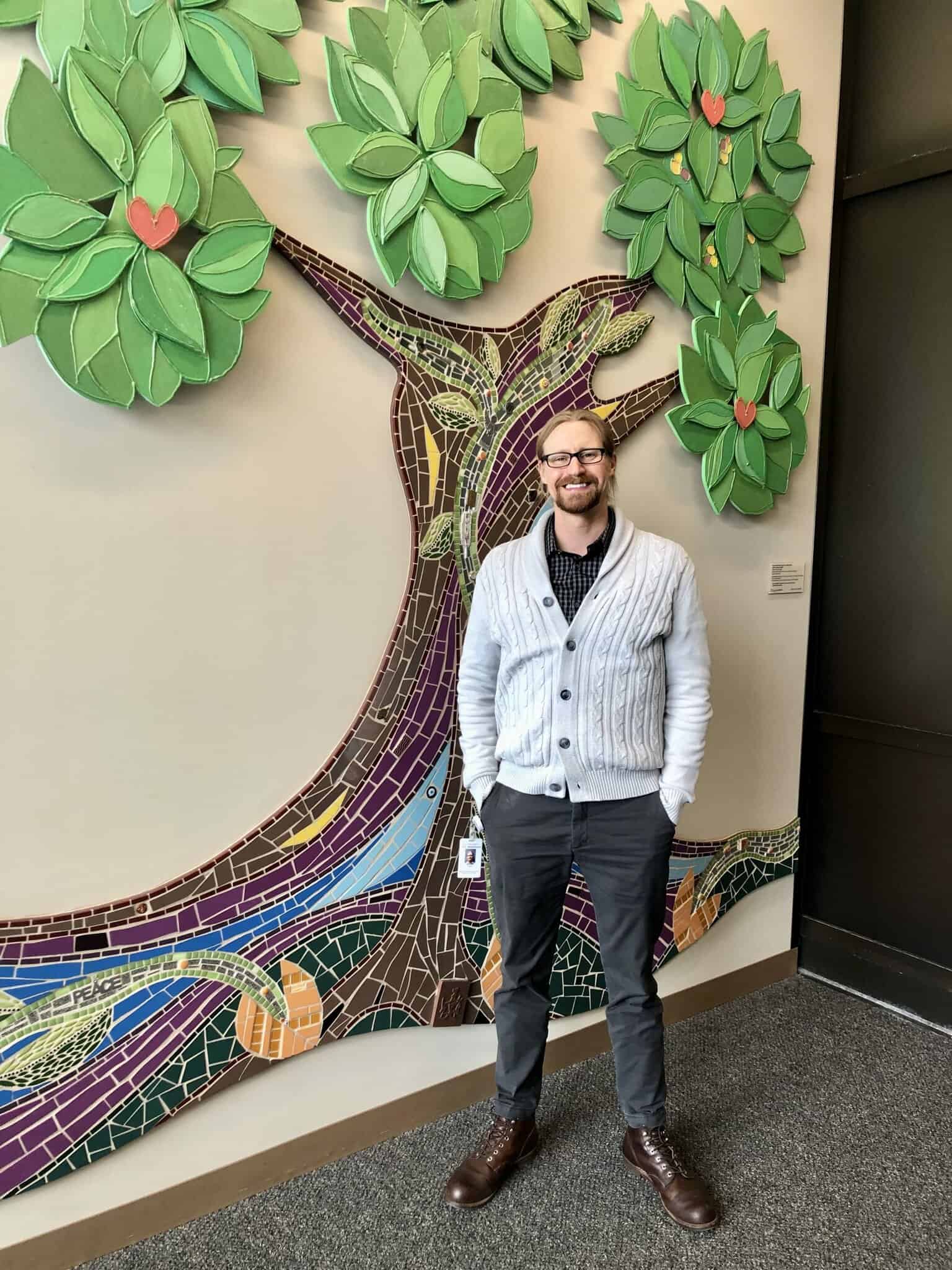
Frank Jadwin, LICSW – Redleaf Center for Family Healing, Program Manager
“I started in my new role at the Redleaf Center earlier this month and I’m really looking forward to the community healing element. The family healing component comes with the help of the community, and although mental health is an individual experience, we don’t heal in isolation. This crucial work incorporates other aspects of community and areas of the hospital. We’ve had some fantastic integration with Pediatrics, Women’s Health and Integrative Medicine. It’s about including mental health in healthcare and treating the whole person.
Within the Redleaf Center, the Mother Baby program has the Day Hospital, which is only one of four perinatal partial hospitalization programs in the country, as well as other outpatient services. On the mental health continuum, this is a middle level of care – people who need more time and attention with professional staff, but not enough to be admitted to inpatient. The team here has a special skill set for such an important job and takes a multi-generational approach to mental health. Similarly, the other intensive outpatient teams I was working with before this move, Day Treatment and Partial Hospitalization, are filled with talented people doing incredibly inspiring and imperative work for our community. They are saving lives. All these teams are instilling hope for the healing and well-being of our community.”
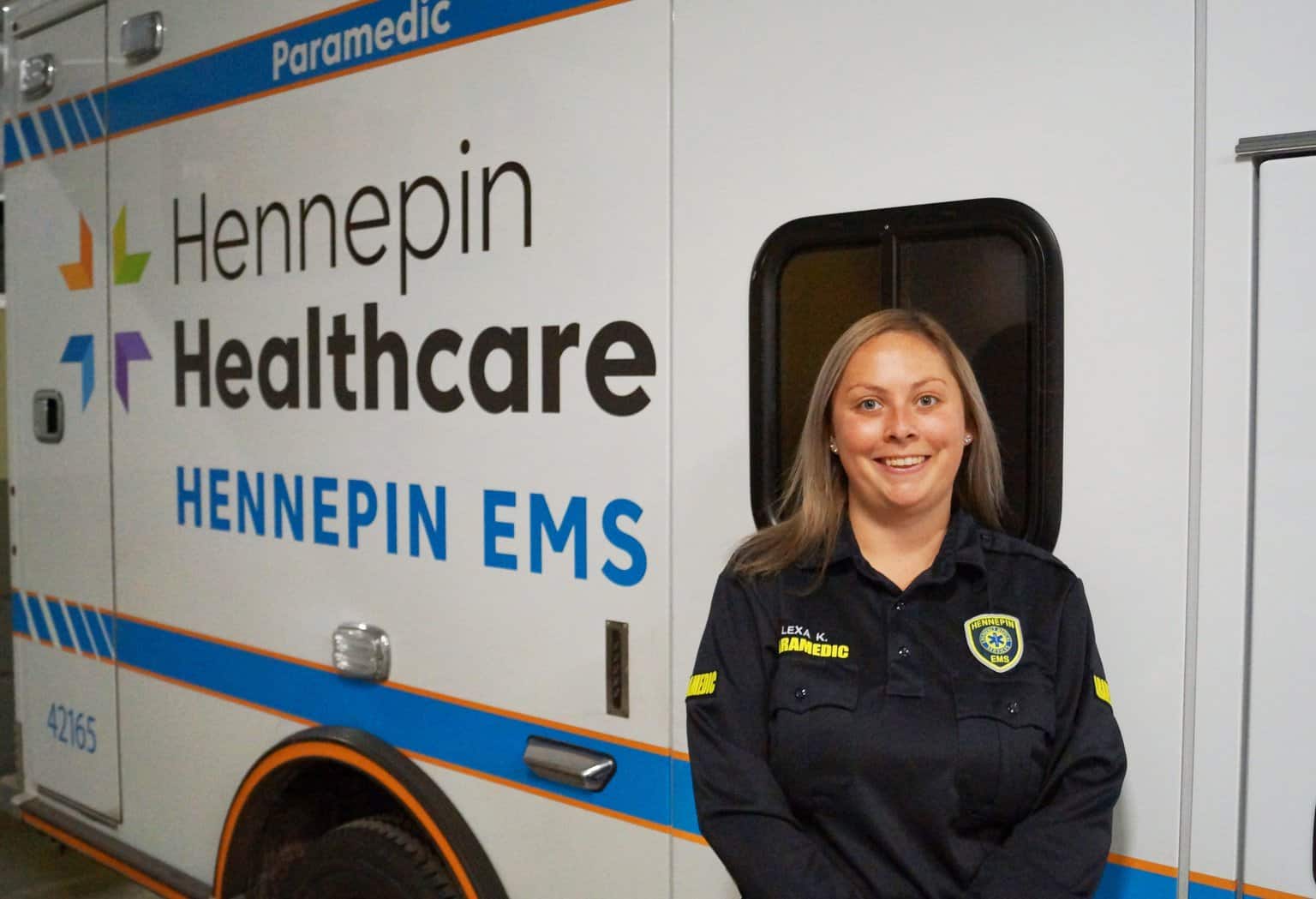
Lexa Kinneman – Paramedic, EMS
“When looking for my first paramedic job, I wanted to be a part of Hennepin EMS because it holds medics to a really high standard. People recognize Hennepin EMS and have a lot of respect for the paramedics. The part of the mission that resonates with me is ensuring access and care for the community. I have never seen another hospital provide as many resources to the community as Hennepin does, and it really is to help every single person.
The rewarding part of EMS is that you can see that what you’re doing makes a difference right away. Within five minutes of meeting a person, you know you’re making a change. We can do so much in an ambulance that I don’t think people realize. Many times, people will get in the ambulance and say ‘Wow, it’s like a mini ER in here!’ There’s so much gratitude from patients and their families.”
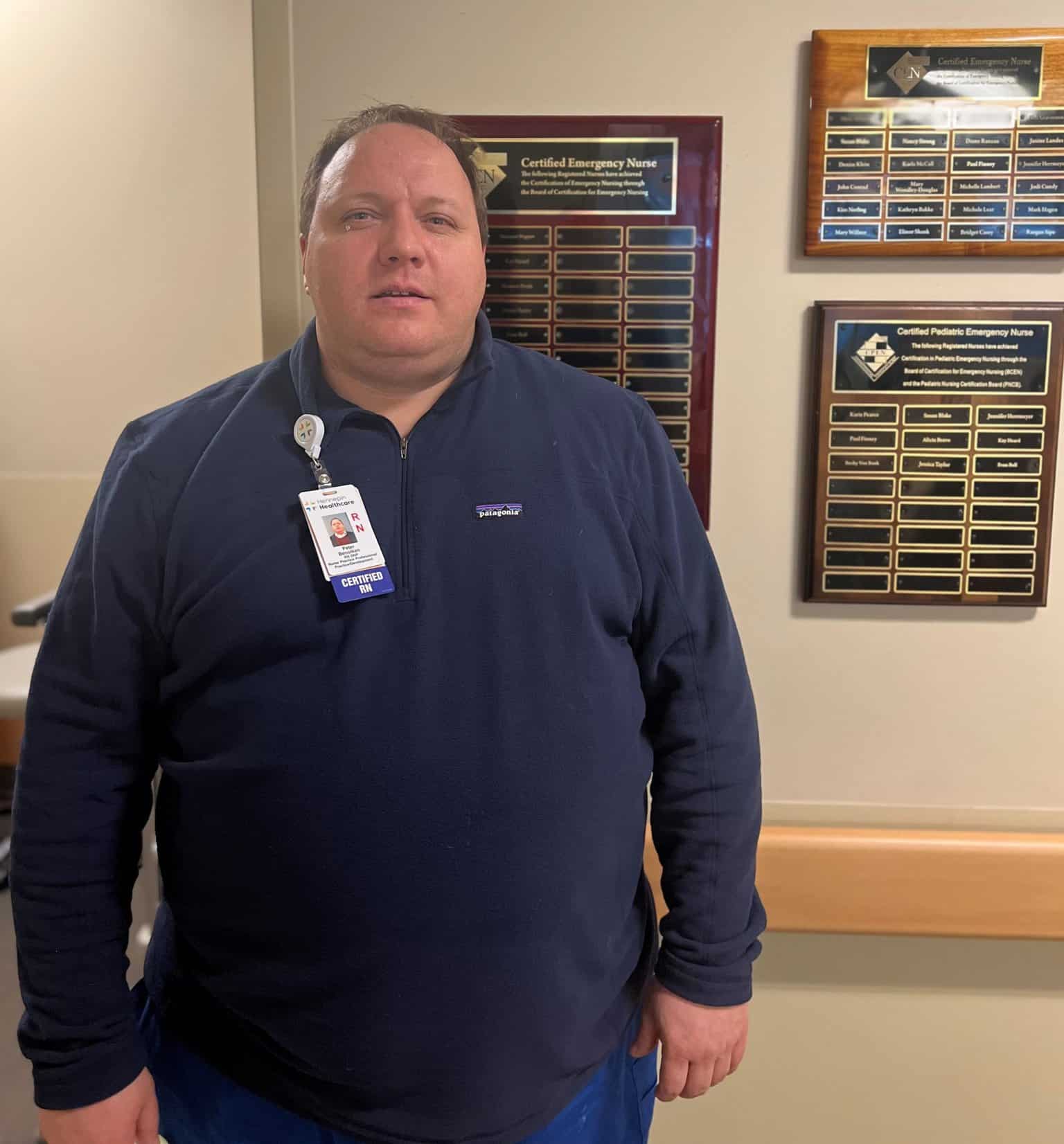
Pete Benolken, DNP, RN – Nurse Practice Professional, Emergency Department, Acute Psychiatric Services
“Being a level 1 trauma center highlights the expertise at Hennepin Healthcare. Our ED is ready to treat anyone and everyone, no matter what brings them to us. We’re prepared to help. Not all hospitals are like that. Hennepin Healthcare’s mission is about ensuring access to outstanding care for everyone. I really value that idea. That’s one of the beautiful parts about emergency nursing – it’s people from all walks of life.
The ED has been hit hard over the last few years and there hasn’t really been a break. What I want people to do is celebrate the staff who continue to show up for shifts and care for patients day in and day out – especially our teammates that are there working extra because they’re short staffed or changing shifts. There’s an amazing amount of caring that happens here. Our nurses want to see that continue because they know we’re vital to the community. They deserve all the credit.”
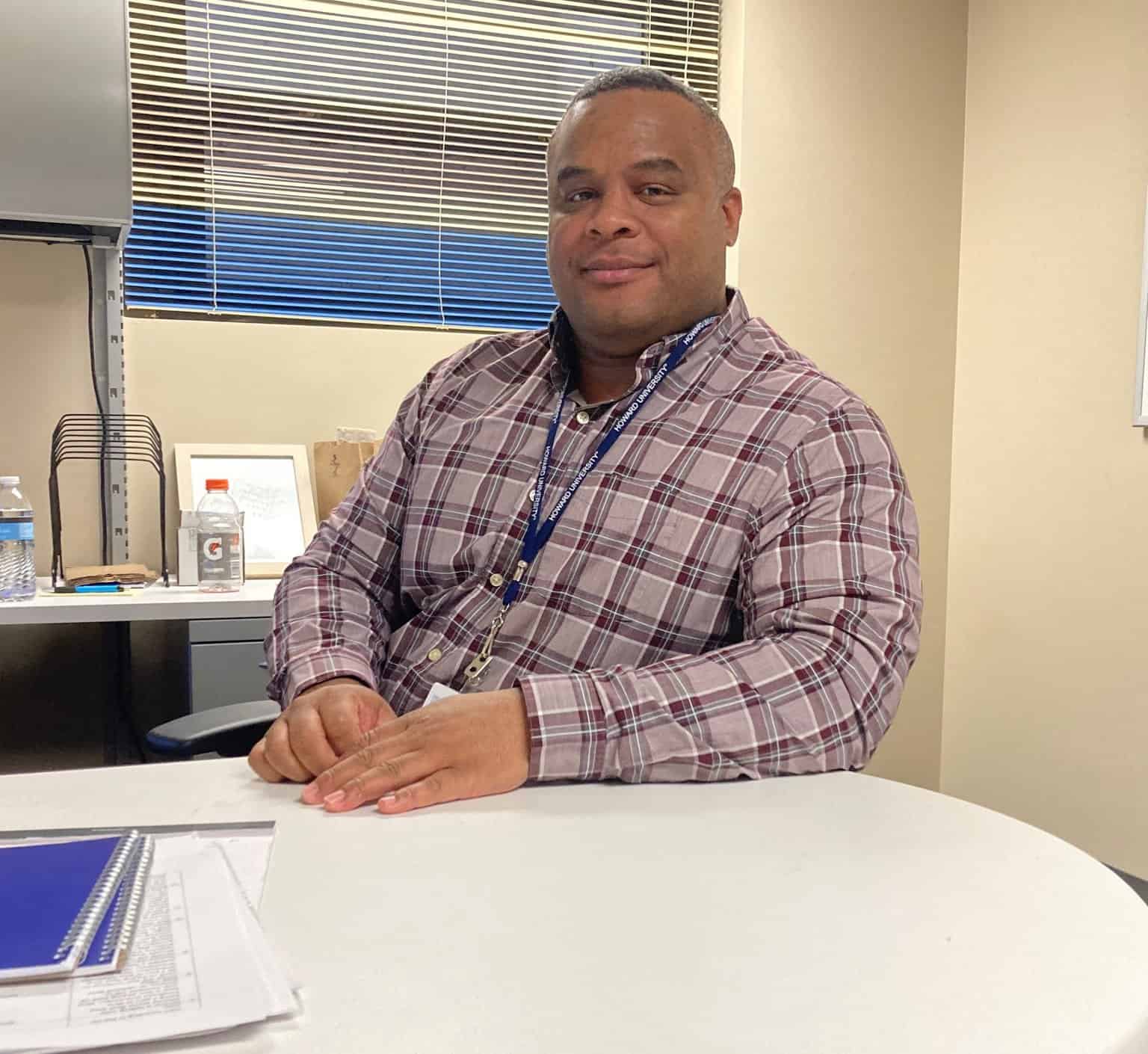
Kentral Galloway – Next Step, Program Director
“Next Step is a violence intervention and prevention program that helps folks who show up to the hospital after a violent injury. Our program is completely voluntary, patient-based and patient led. We make the initial contact with patients and explain the different ways we can help them, and they ultimately decide what that help looks like. We typically help with financial support and trauma counseling – rehumanizing and empathizing with patients, showing them that their life is valued, and helping them re-engage in the community safely. We can aid the entire family and develop lifelong relationships.
Our team helps people heal and we disrupt unfair systems. We educate our hospital team members to be culturally sensitive and we address implicit bias and systemic racist policies. My hope is that we can focus on violence prevention while still maintaining our intervention strategies. That way, we can connect with folks before they ever encounter a violent situation. None of this would function without the Next Step team. I’m grateful for them, and they deserve all the credit.”
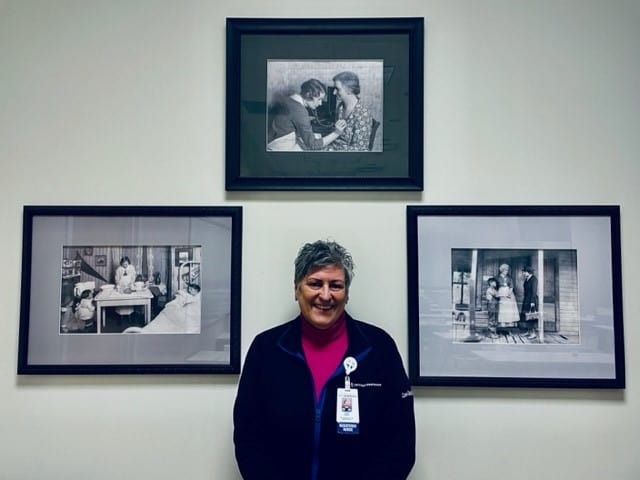
Caren Gaytko, RN, PHN, MA – Senior Director, Community Care
“I joined Minnesota Visiting Nurses Association (MVNA) prior to our integration with Hennepin Healthcare. My leadership role was to improve processes, strengthen clinical programs, and build strong teams as we prepared to combine. MVNA represents a wide range of services from supporting pregnant patients, at-risk teens, parenting home education, adult home health, community vaccination and testing clinics, care coordination, to end of life hospice care. Home visits are a special way to provide service – our teams recognize it’s an honor to be a guest in someone’s home providing care during such vulnerable times. We are so privileged to be part of the extraordinary moments of grace – from welcoming a new life into the world, equipping parents with resources, helping patients care for their medical needs at home, to comforting a person to their next life’s journey. That is what we do, that is what brings us joy.
Our Family Health program has transitioned to the Hennepin County, and our hospice services are collaborating with a program that is committed to serving our patients. As some of our programs change, I see our next iteration as a powerful opportunity to breathe new life into our existing programs while building new and innovative care models. As we look to the future of doing what we love, there is genuine optimism and excitement. We’re still here and we’ll still be here doing what we do best, proudly providing care to our patients wherever they call home.”
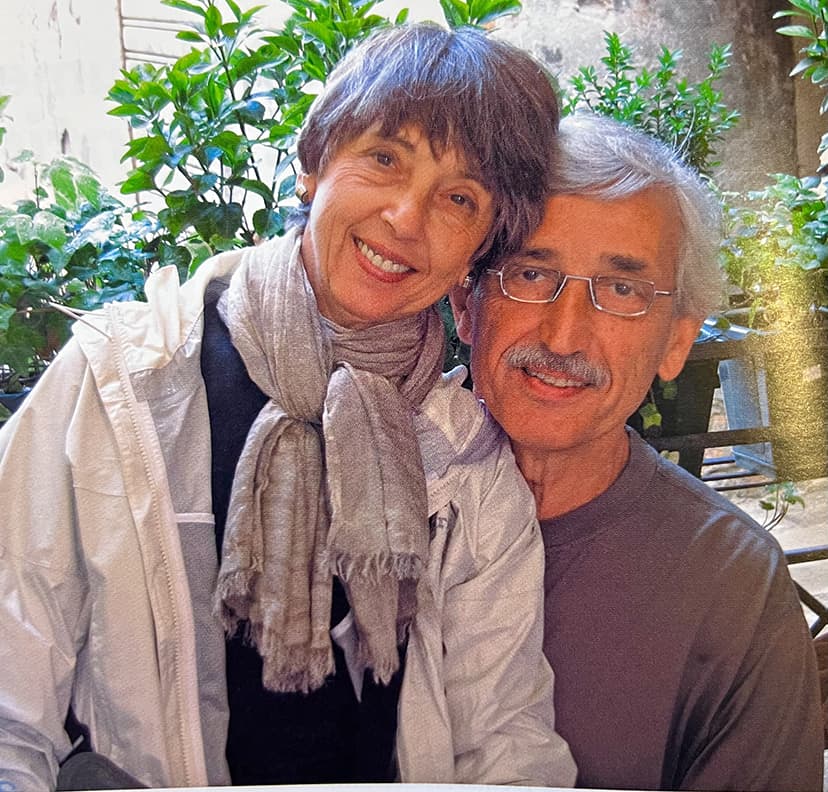
Anthony DiAngelis, DMD – Former Chief of Dentistry and Foundation Legacy Society Member
“I believe that a good doctor treats the disease, while a great doctor treats the patient with the disease. At Hennepin Healthcare I see great doctors. When my wife, Nina, and I moved to Minneapolis, our daughter Kyra was just 9 years old, and it was difficult to find medical care for her since she has developmental disabilities. When we brought her to HCMC, she not only received medical treatment, but a community that was supportive, nurturing, and respectful of anyone with differences. The amount of time and attention the providers gave each patient stood out to me. That has continued throughout the years. During my daughter’s hospitalizations, emergency department visits, and routine clinic appointments, the caregivers were terrific. She is now 52, and Nina and I still take her here for the majority of her care.
When I made the decision to join HCMC as Chief of Dentistry, I was motivated by the extraordinary care I had already seen. Our dentistry department has the mission of providing dental services to individuals who cannot get it elsewhere, many because of their intellectual or developmental disabilities. They need more time and consideration. I used to tell my team, ‘You may be the only kindness these patients observe in their day.’”
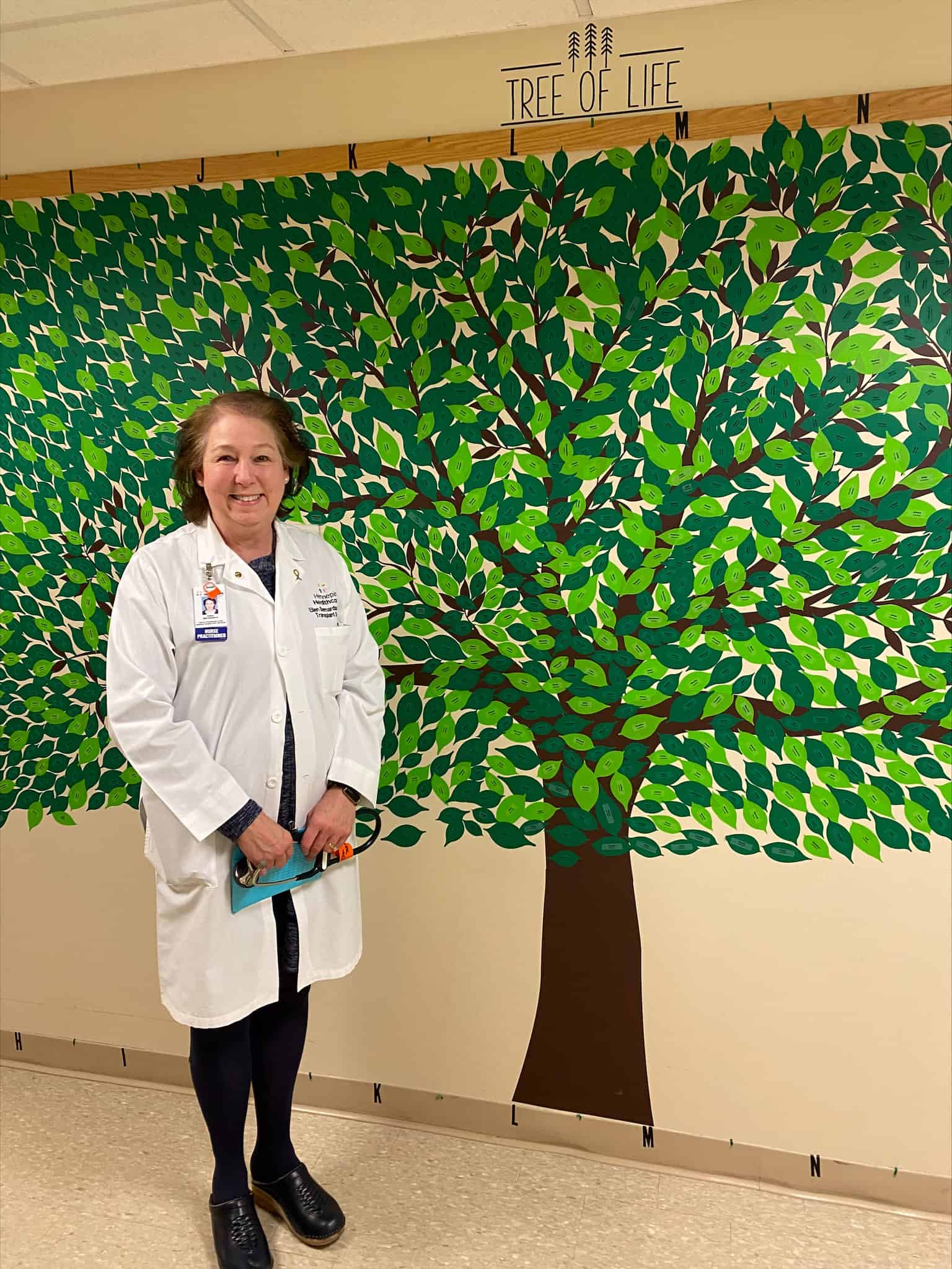
Ellen Bernardson, RN, CCTC, MA, CNP – Kidney Transplant
“I went into nursing because of my dad – he was a gentle soul. He was a nursing assistant at the VA hospital and when he came home from night shifts in the psych unit, he was bothered by the way some of the staff handled patients. That really stuck with me – to treat people with humanity, no matter what. Around the time I came to Hennepin Healthcare, I heard that my cousin’s husband was on dialysis. Because of that, I chose to work in dialysis ICU and have continued in kidney care ever since.
In my current role, I help patients through the beginning phase. Patients with renal disease are entering through a dark forest, and I feel confident that I can help them through the many adjustments and changes. The most rewarding thing is completing the transplant, getting the patient on their feet, discharged, and then seeing them do well when you pass them in the hall. Our patients do best when we focus on the great collaboration we have between the nephrologists, surgeons, nurses, pharmacists, social workers, and dietitians – the whole transplant team is patient-centered. Everyone’s voice is valued, and the patients benefit from that.”
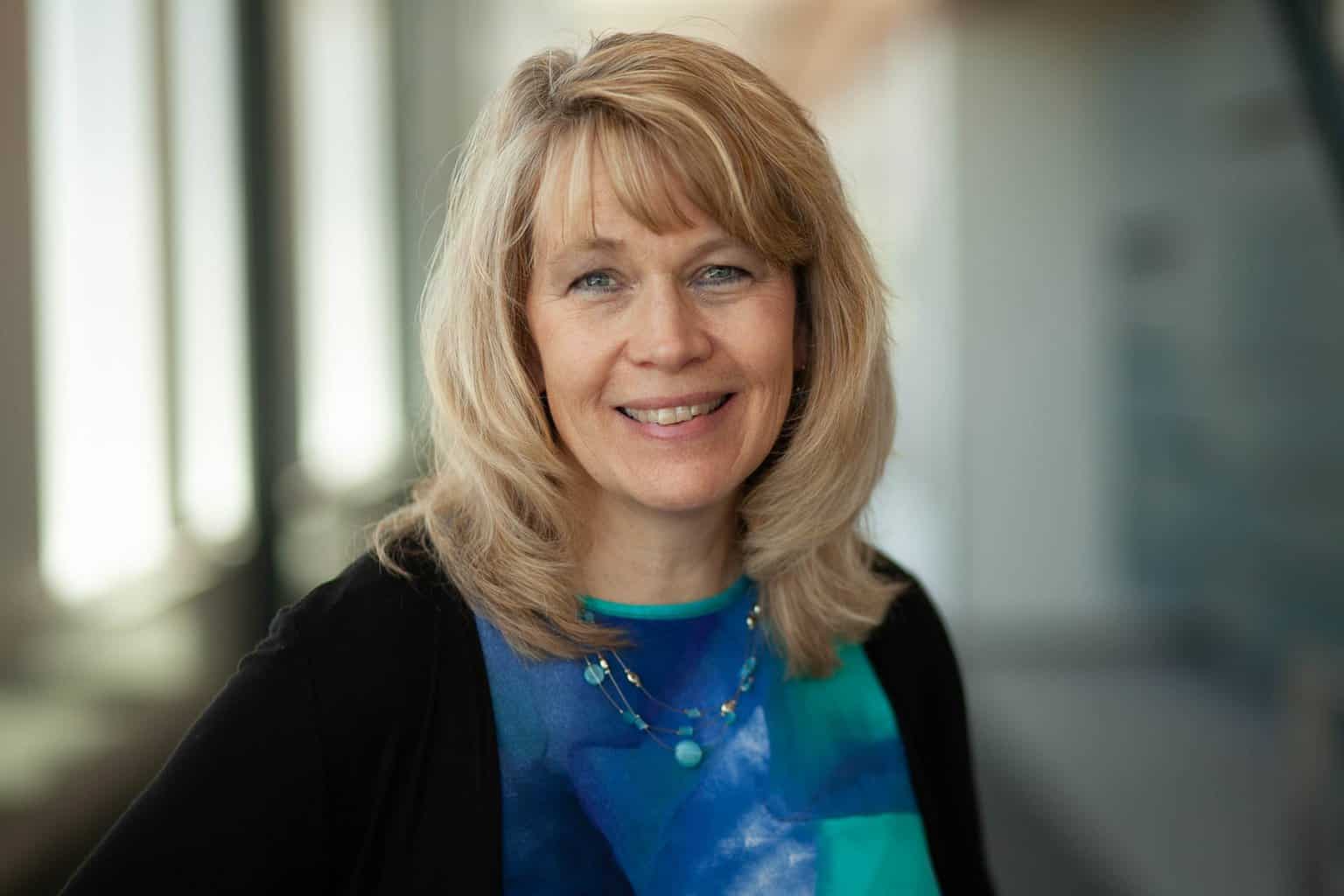
Kristi Roers, RN, CEN – Hospital Partner Liaison, LifeSource
“I worked as a nurse in Hennepin Healthcare’s emergency department for 25 years. I saw patients walk out of the hospital that typically wouldn’t have been able to, but they did because of the phenomenal care we provided. That’s what I was most proud of. I was also on the organ donation committee, which is how I was introduced to LifeSource, our organ and tissue donation partner. Now that I’m a liaison, my goal is to provide education for hospital staff and support families making difficult decisions about a loved one.
We hope that every patient recovers, but we know that’s not the case for everyone. If a patient’s injury or condition has been deemed nonsurvivable, a nurse notifies us and at the right time, we discuss organ donation with the family. We encourage everyone to have those discussions with family members, so they know where you stand on organ donation. When you have expressed your wishes, it’s so much easier for your family than to make that decision in their moment of grief. Every day, I’m amazed at the graciousness of families. We recently told two parents that their son’s heart was going to another child, another child who was 4-years old. They burst out into tears because they were so grateful that something good was coming out of something bad. I’m so thankful for those choosing the gift of life, and for those receiving that life-saving gift with the support of Hennepin Healthcare.”
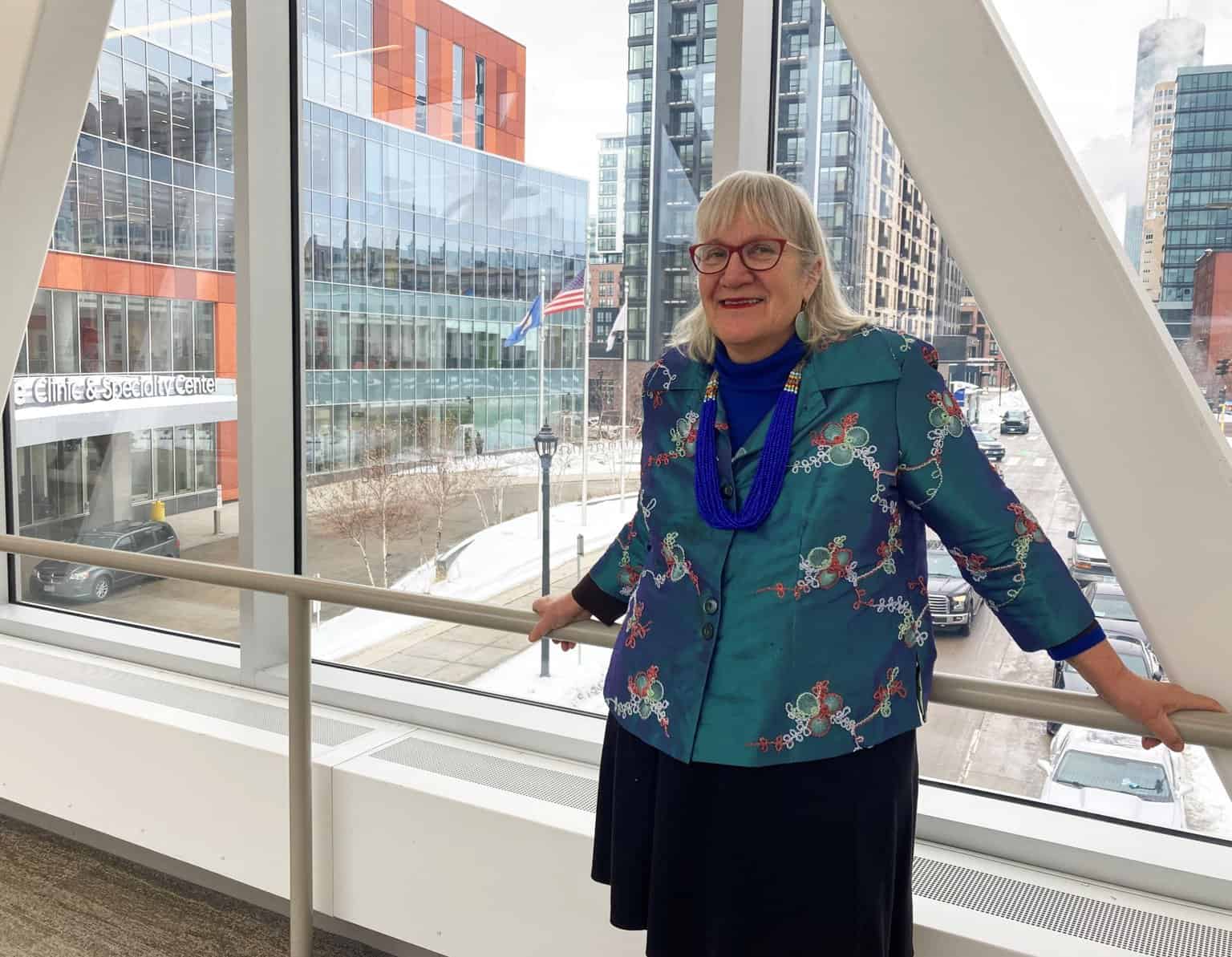
Anita White – Grateful Family Member, Artist
“My journey through Hennepin Healthcare is complex and led to wonderful things. I had three parallel journeys – with my mother, my husband, and brother who all received care here. My mother had a heart attack just before she died in 2011. The ED nurse went above and beyond. I stayed the night, and she brought in a chair for me. The care she showed was beyond medical. My late husband had numerous complicated issues that grew even more complex very quickly. We were in and out of the ED many times before he died in 2019. At the same time, I was also caring for my brother who receives treatment for mental illness here. It was the compassion that made our visits so meaningful.
Once my husband Josh’s medical issues increased, I grabbed my sketchbook. I’ve been an artist my whole life. I was scared, but I started drawing. I used art throughout not just to document my husband, but to honor the people that came to our side. I was given the opportunity to display my art in the Red skyway in 2017 from August to October. I named it ‘Drawing Through Crisis with Courage and Humor.’ I learned to use drawing to find facts, to express feelings and to seek spiritual faith. Hennepin is an endlessly fascinating place to me. My other goal was to draw the people who aren’t always seen. I drew the staff that clean the rooms and serve meals in the cafeteria. Some people might think it traumatic to come back here after my husband passed to keep drawing, but it wasn’t. Drawing helps me see. I feel gratitude to be getting older and to continue to have a rich, inner creative life.”
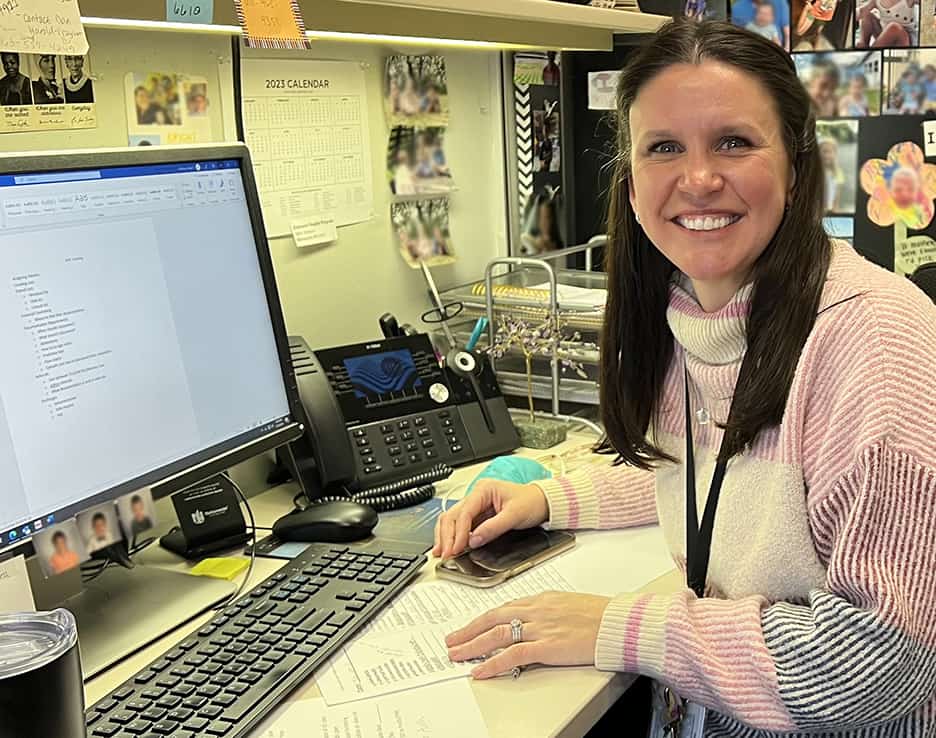
Marie Hillman – Social Work, Inpatient & ED Care Management
“Although patients come through our doors to address an acute medical issue, there are often broader issues affecting their health. These are issues that will persist after discharge. Social workers aid patients in locating resources that help manage their healthcare needs after discharge. Often doctors will call us when they need help sorting through family tensions. Especially in the ICU, medical emergencies will bring together family members who do not usually see each other and there are conflicts about who should have access to a patient. At other times we will have patients not connected with anybody and have no emergency contact or decision-maker. That’s when we try and track down a relative.
The most rewarding times in this job are where you can see very real immediate results where you are making a difference for a patient’s life situation – where if I don’t help this person, they have no one in their life and nowhere else to go. We are pulling at every thread to find a solution. Most of the time we cannot come up with something that is going to resolve all their problems, but if I can find a resource that addresses one little piece, then things can build on each other.”
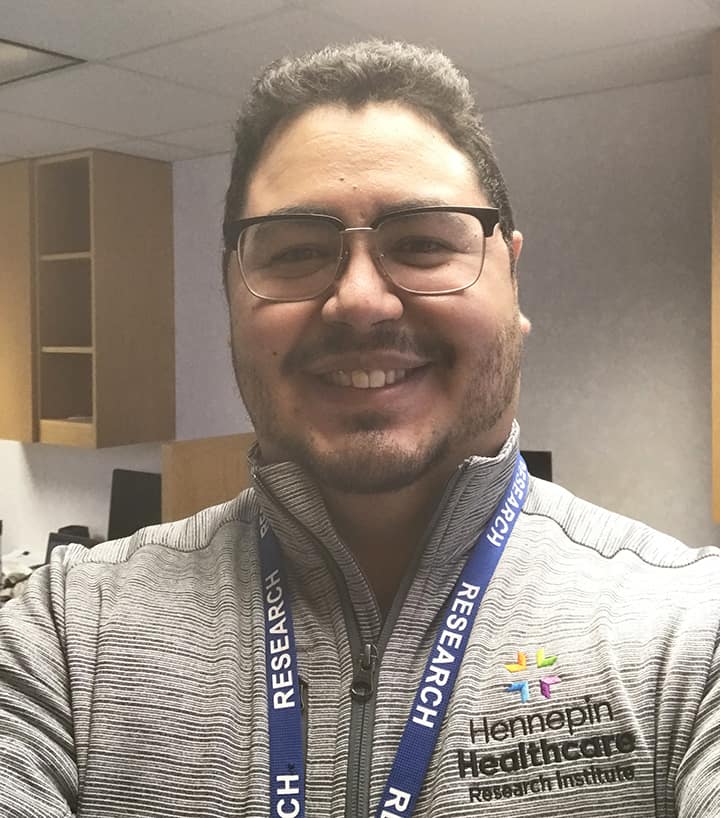
Oscar Oranday Perez – Behavioral Health Research Counselor, Hennepin Healthcare Research Institute
“I work in the Behavioral Health Equity Research Group (BHERG) Lab and support our studies by talking to participants directly and administering the intervention, which is counseling or coaching. I also support the Health, Homelessness and Criminal Justice (HHCJ) Lab in one of their studies. Over the year, I’ve really enjoyed focusing on counseling skills to help participants trying to quit smoking. It has been very personally enriching and informative and has changed how I approach my daily life. I’ve been learning about motivational interviewing, which helps the participant see the possibility of changes within them. We work with participants to find out what’s important to them and find links between their goals and values. I’ve had very satisfying experiences with participants who have been positively affected by the studies. That’s the power of not just lending an ear, but also empathy. The work we do can really uplift people. If the participants experience a positive outcome, that comes from them. We were simply in the journey with them. Hearing the participants realize that is very rewarding.
What I’ve really liked about Hennepin Healthcare is that there is this clear effort for the staff to reflect the population that they serve – more diversity and representation in the workforce. I feel grateful every day for being a part of this supportive team. We aren’t afraid of giving each other constructive feedback. It’s a very nurturing environment where learning and growing is greatly promoted. Having trust in your team can make a such a difference in your work.”
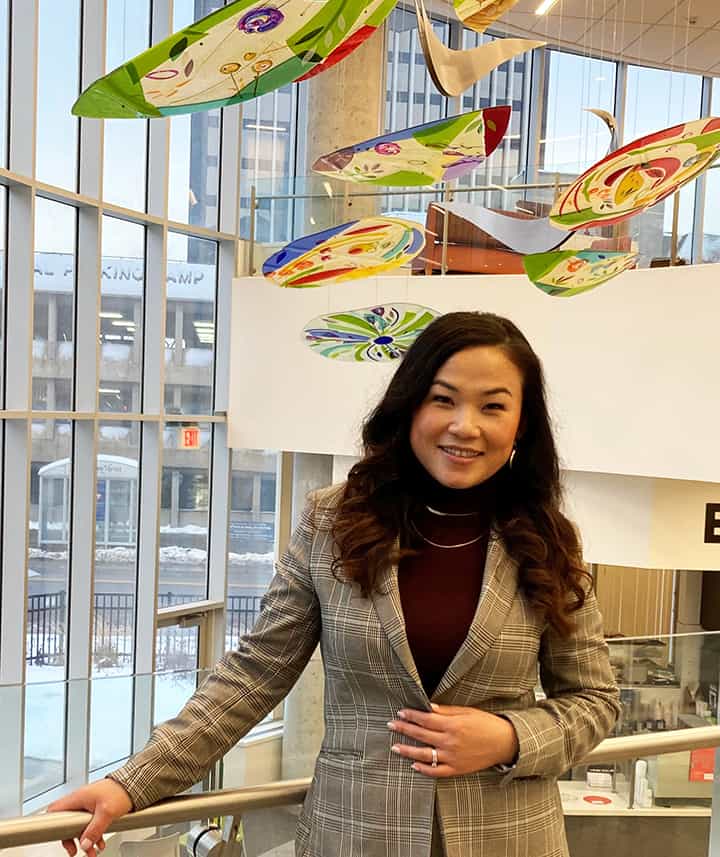
Talee Vang, MA, PSYD., LP – Vice President of Health Equity
“Research suggests that companies that are more racially diverse outperform their competition, and we know it’s important to have racial diversity at every level of Hennepin Healthcare. A common misconception about DEI and health equity is that it is all about racial diversity, but it is so much more than that. It’s also about ensuring systems, processes, and policies will lead to sustainable institutional changes that will benefit all historically marginalized groups for generations to come. In my time at Hennepin Healthcare, I have seen the organization’s commitment to equity grow, especially our commitment to becoming an anti-racist institution. Oftentimes, health equity departments are underfunded and consists of only one or two people. But when you come to Hennepin Healthcare, you can see the commitment we have made as an organization. Our health equity team consists of experts in the field. Our executive leadership team and other leaders actively take part in DEI and health equity training.
Healthcare systems everywhere are managing extreme exhaustion, acutely ill patients, and prolonged trauma because of COVID-19, racism, and xenophobia. Despite these challenges, our team members continue to believe that health equity is imperative. That is what inspires me. In moments when we are extremely tired or disheartened, we are most vulnerable to giving way to our biases. Behavior change can lead to systems change and a cultural shift. This is the time for us to make the changes necessary to eliminate disparities and to make sure the changes are sustainable.”
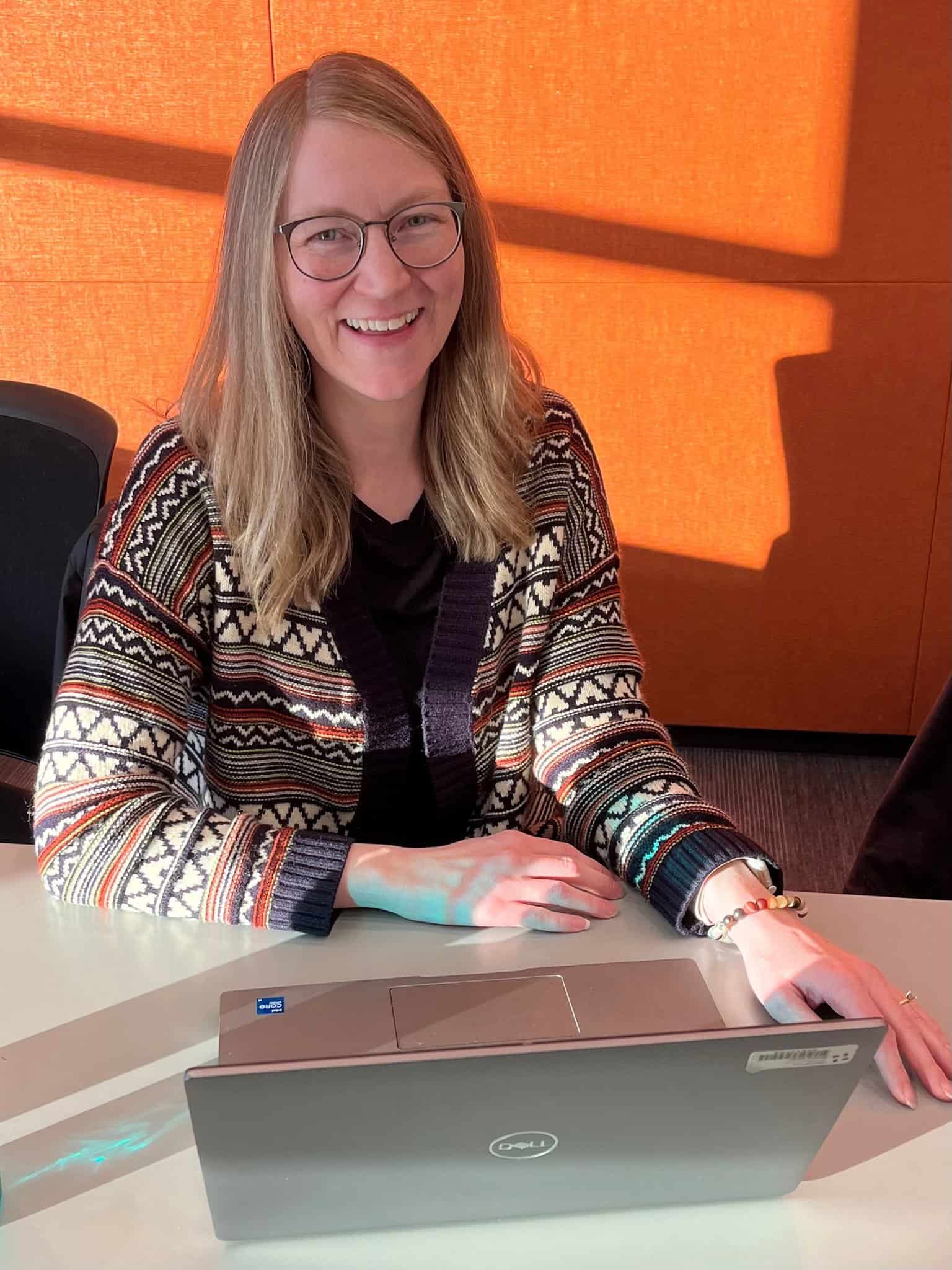
Abbie Knight – Revenue Cycle Analyst, Revenue Integrity Department
“I was hired in college as a casual employee in the operator department answering phone calls. It was a great fit for me to be able to continue my education and do something that felt meaningful. I wasn’t studying anything related to healthcare, and then I realized that my career path wasn’t what I wanted to do. Ten years ago, I would never have thought I would be working in healthcare, but I’m so happy to be here. That was an incredible opportunity to use my healthcare experience to start a career I wasn’t expecting.
I love the mission here at Hennepin Healthcare and the people I’ve gotten to work with along the way. I think there’s something so special about filling the healthcare gap and helping patients who don’t always have other options. And I feel grateful every day that I work with people who understand that I’m an employee and also a human.”
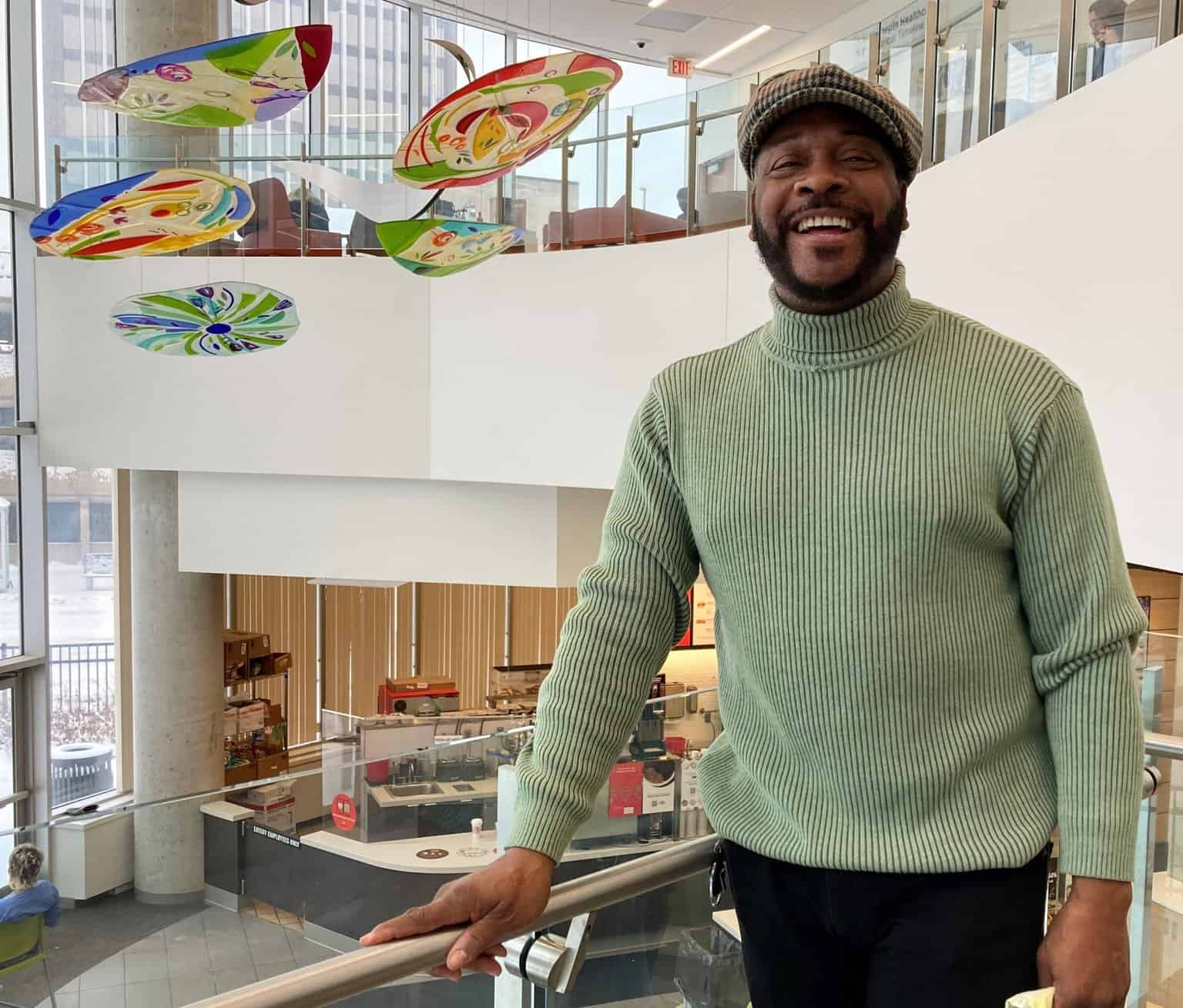
Melvin Henderson – Engineer, Facilities Management
“I come from St. Louis, Missouri, born and raised in the projects. We were often told that we would become the product of our environment, our physical location and zip code. I might’ve lived in the projects, but where I really lived was in my mother’s home. She raised five kids, since our father had passed, in addition to her younger sister and niece. The home environment I was raised in is why I am strong and resilient today. Although racism is still prevalent and puts wear and tear on our community, I remain strong and hopeful for us. Together, we will mend. This is a place for healing. We are here for life for patients and each other.
I was one of the first people of color to be hired in my department. Although I’m proud of that, we cannot just stop there. It’s about equity across the board. I’m supporting the effort to make our department more inclusive. When people are hired at Hennepin Healthcare, the energy should be more welcoming throughout their entire careers. I think we can make this happen more consistently. Our leadership and teams have come a long way. It’s a little bit more inclusive, empathetic and considerate, but we still have some ways to go. I’m trying to make it better for the next group of people who decide to work at our hospital and clinics.”
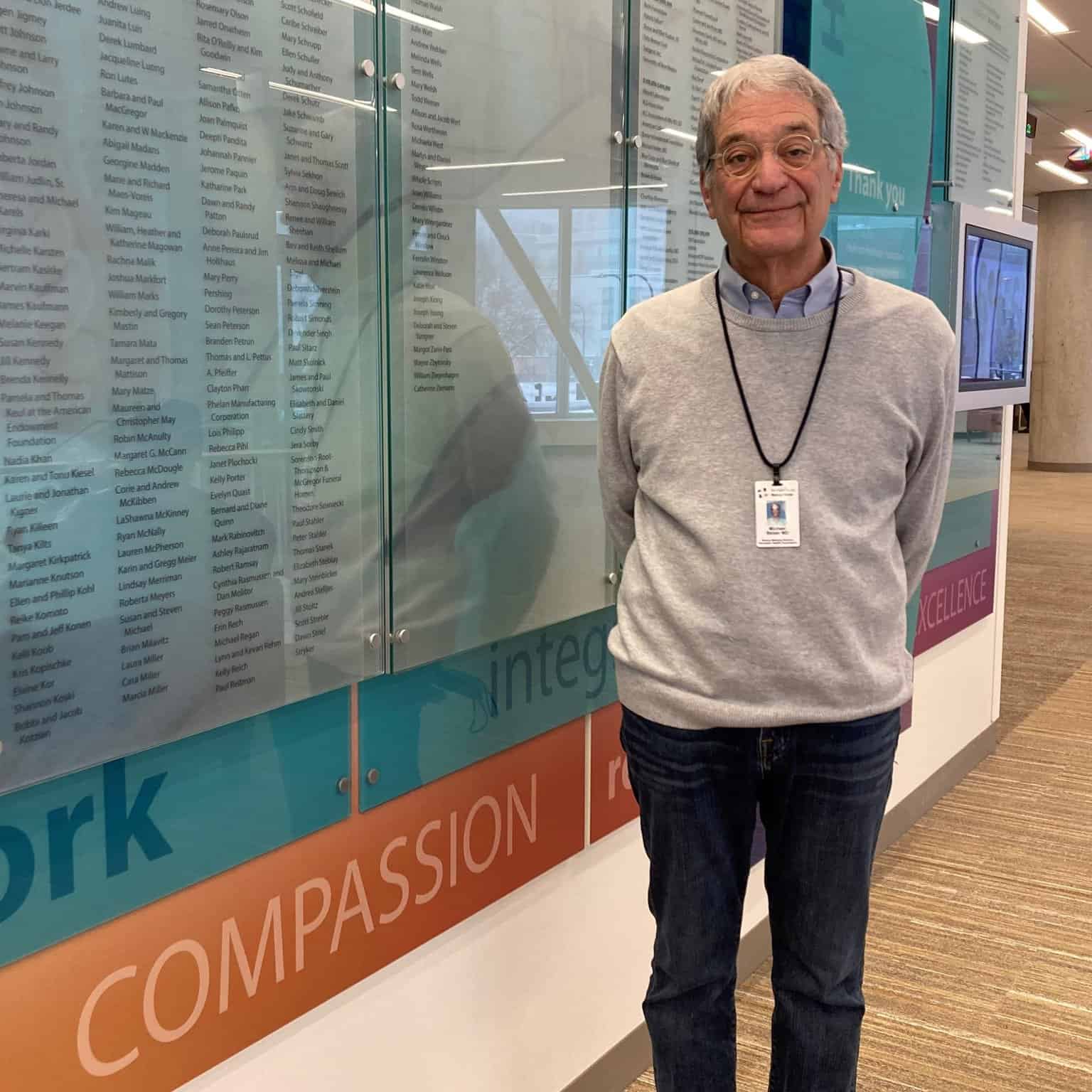
Mick Belzer, MD – Chief of Physician Development, Foundation
“Working at Hennepin Healthcare was my first job, and it will be my last job as I retire this month. When I started in 1980, I was one of two members of the hematology/oncology section in the department of internal medicine. Later on, I was the medical director, now called chief medical officer, for 30 years. It’s a tough job. To do it well, you need to balance trusted relationships with hospital administration and providers. It’s a complicated line to walk.
The beauty of working as the chief medical officer is that I had a pulpit to speak for our uninsured and underinsured patients at the local, state and federal legislature. I really enjoyed making an influence on a wider audience than just the patient I’d be seeing for one hour in clinic. I love clinical medicine, but I thought the great part of my job was advocating for our patients. After I stepped down as the medical director, I stayed on staff because much of the administration was new. I focused on government affairs, advocacy, lobbying, and work with Hennepin Healthcare Foundation.
I’ve been so grateful to have this opportunity to be a physician and medical leader at a place that is recognized by our peers as a top-performing safety net hospital. We’ve grown from a small, low reimbursement, low-cost safety net hospital in 1980 to a well over billion-dollar hospital with over 7,000 employees. We’ve sustained employee and patient growth and preserved our values.”
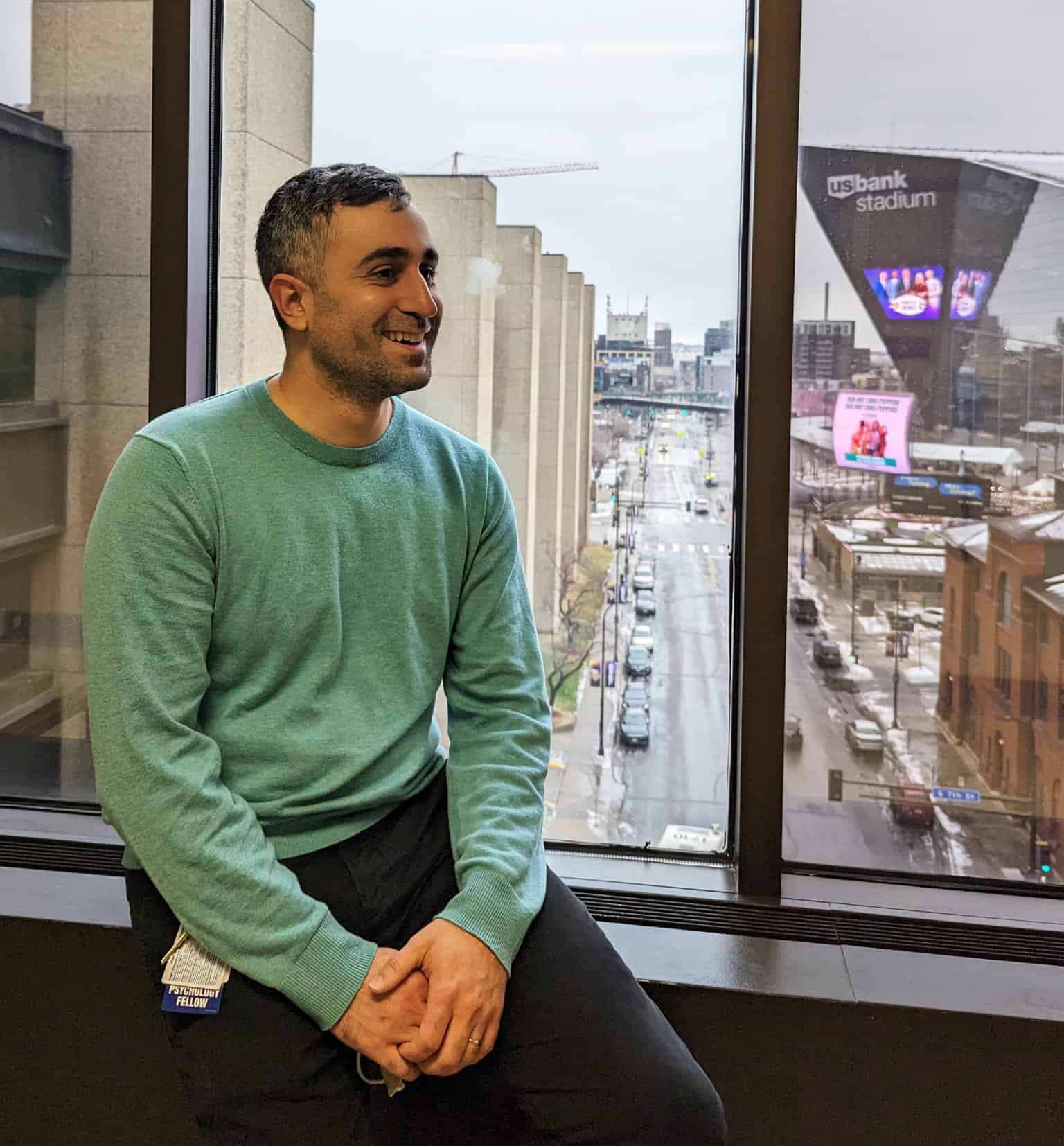
Yosef Amrami, Ph.D – Child Psychology
“Exceptional care without exception is something I live by. Hennepin Healthcare is exceptional because it’s a public hospital serving all, yet it doesn’t compromise the quality of care and in many ways, exceeds other hospitals in what it provides. Since it’s such a large hospital, our child psychology department has many opportunities to integrate with other teams like the pediatric intensive care unit or burn unit.
I really enjoy helping our young patients overcome phobias and anxieties. It doesn’t look like what people might think – from both extremes. We’re not just playing, but we’re also not just talking for 45 minutes. There’s a lot of movement in therapy. We work on relaxation skills, routine fun activities to boost their mood, or maybe exposure therapy. It’s all concrete and activity-based. When I can see a kid breezing through something that used to be difficult for them, that brings me joy, especially since what we do is more intangible.”
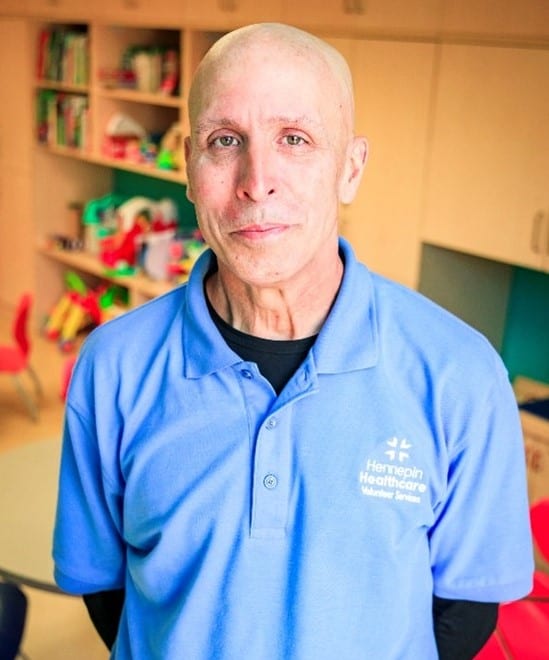
Chuck Putzer - Volunteer
“For 16 years, I stayed home and took care of our kids. They are all grown up now and I miss interacting with children. My wife works for Hennepin Healthcare and shared that there’s always a need for volunteers in the pediatrics department. I applied and started four months ago. I help with a variety of efforts but most enjoyable is interacting with the young patients and holding the youngest of them. One child has been here for a while and had a rough night and was unresponsive. The team was really worried about him. I was able to spend a concentrated period of time with him, holding him, reading, rocking. Then suddenly, he opened his eyes, truly focused on me, and smiled. They tell me it was a groundbreaking moment. It was an amazing moment for me.
Everyone here has been so thankful, letting me know that I am helping them a lot. That is what is so rewarding. It’s a cool place. My wife enjoys working here and has always praised Hennepin. Now being here and volunteering I can see why with my own eyes."
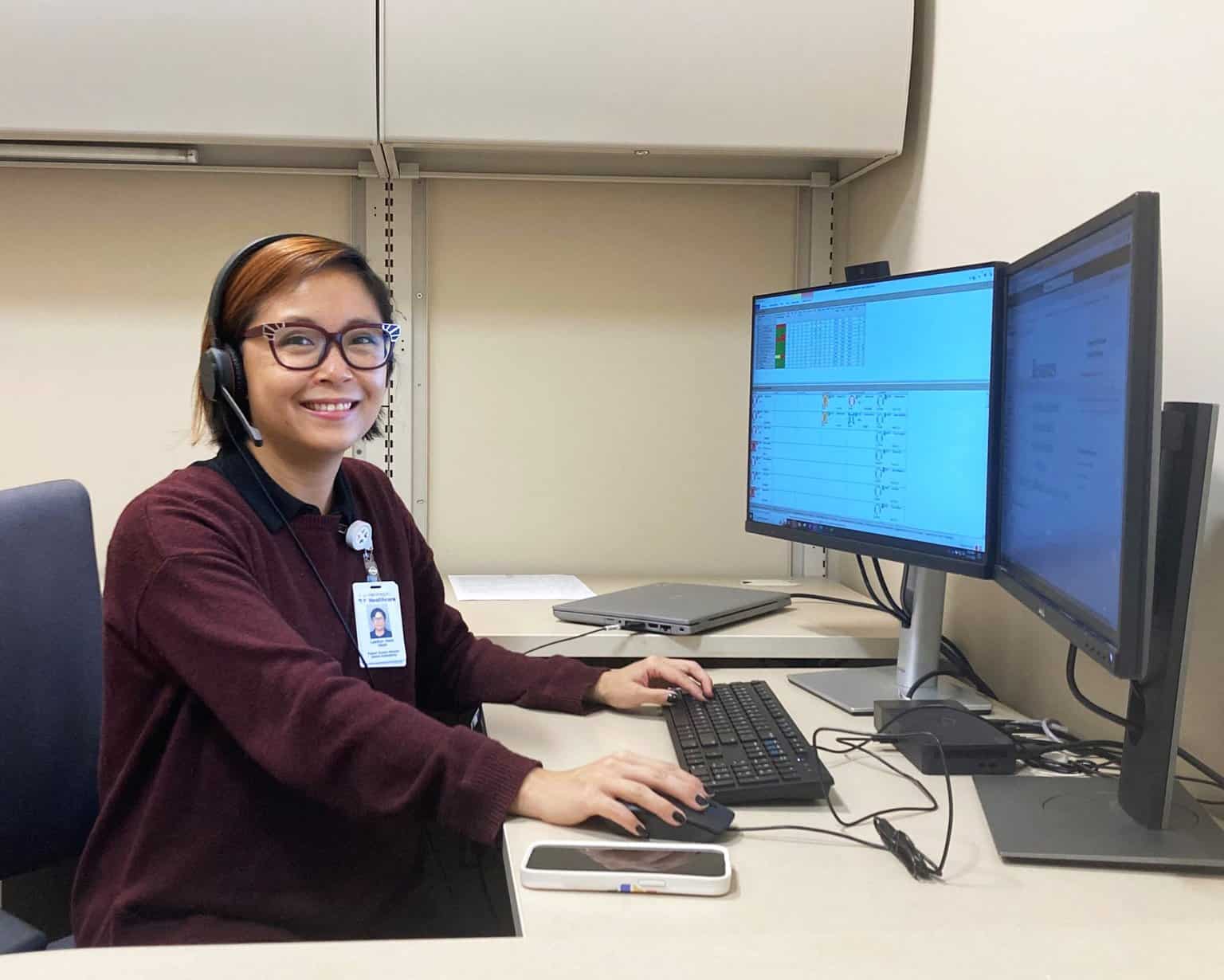
LeeAnn Heim – Patient Access Director, Connection Center
“The Connection Center, the operators, nurse telehealth, and telemedicine are all like a front door to Hennepin Healthcare. They might help a patient schedule an appointment, explain where to park, assist in a patient transfer, or connect a patient to a provider. I love that we can give patients options for how they receive care. Leveraging technology is something I really enjoy – how can we use technology to empower our patients? I really enjoy helping patients learn how to use tools to communicate and connect with their care teams, like through online scheduling options or MyChart.
I adore Minneapolis, so an opportunity to support the city and Hennepin County was a huge draw for me to work for Hennepin Healthcare. I think what keeps me here is the diversity, equity and inclusion work that everyone is going through. I’ve never worked anywhere that has taken DEI work so seriously.”
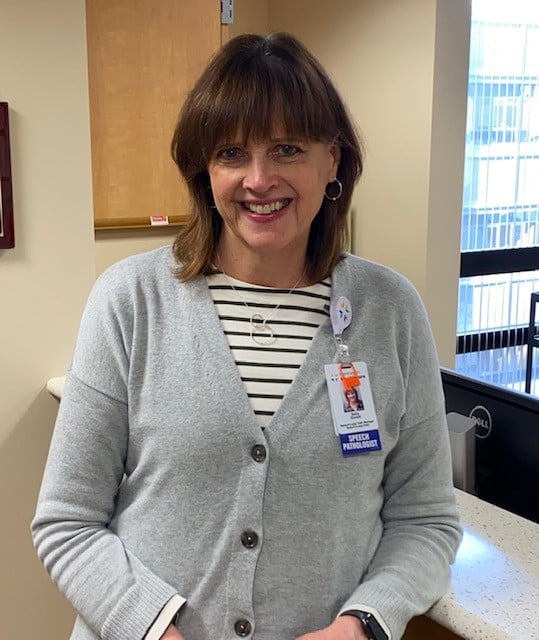
Sally Gorski, MA, CCC – Speech Pathology
“What keeps me at Hennepin Healthcare is the opportunity to listen to patient stories and struggles. It’s trying to help them as much as I can. Sometimes I only have a one-hour evaluation with a patient, but even in that time I try to give them the best opportunity so they can swallow safely and live comfortably. Our diversity with our patients and colleagues is something I really value. We have our challenges and frustrations, but in the end, it’s the dynamic nature of what we do and who we work with that keeps me here.
Not many people know we help patients experiencing brain fog, typically from traumatic brain injuries or more recently, long COVID-19 patients with cognitive issues. They’re not experiencing breathing problems as much as they were in 2020 and 2021, but I think we’ll be working with long COVID-19 patients for an unpredictable amount of time. It’s unbelievable what they’re going through and what they must overcome. I give credit to my colleagues for adapting to give our patients the best care possible.”
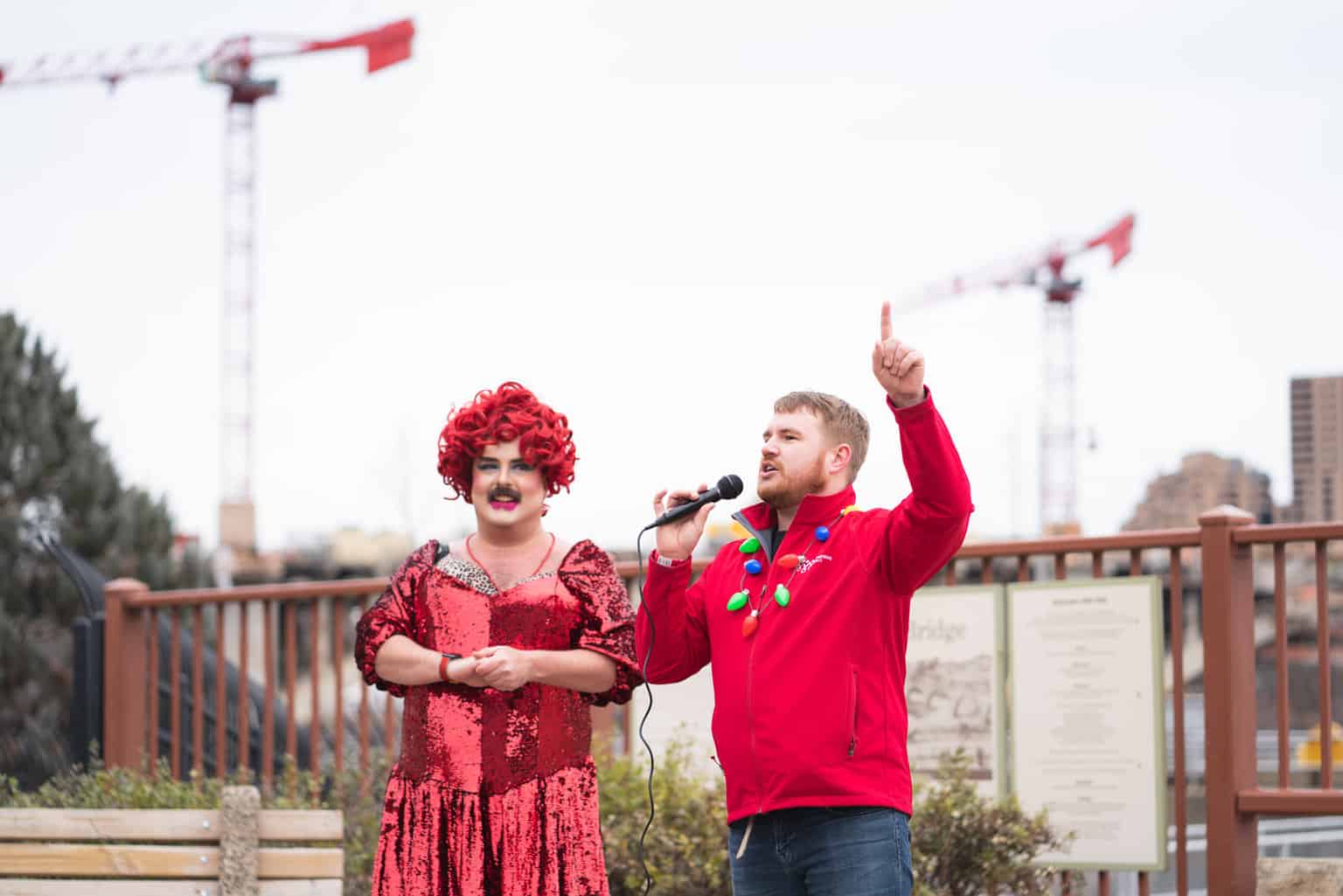
Dylan Boyer (he/him) – Aliveness Project
“This year, we are excited to have Hennepin Healthcare as a sponsor and participant team in our third annual Red Undie Run, a one mile run across the Stone Arch Bridge on Saturday, December 3. The event brings attention to World AIDS Day in fun, joyful atmosphere. People come out in all different types of outfits – a wig, a Santa hat – people get creative on what red undie means to them. There’s no right or wrong way, The Red Undie Run isn’t only about the Aliveness Project. The day is about all HIV/AIDS community partners, all people living with HIV, and all people taking steps to prevent HIV celebrating the biomedical advances we’ve achieved to someday end HIV. Together, we will also find space to honor the lives we’ve lost from HIV causes.
We are stronger together than apart. There are incredible organizations working to lead us to an HIV- and AIDS-free generation. Hennepin Healthcare’s Positive Care Clinic is one of the community partners. That’s an important thing to see and remember – it takes all of us to end HIV.”
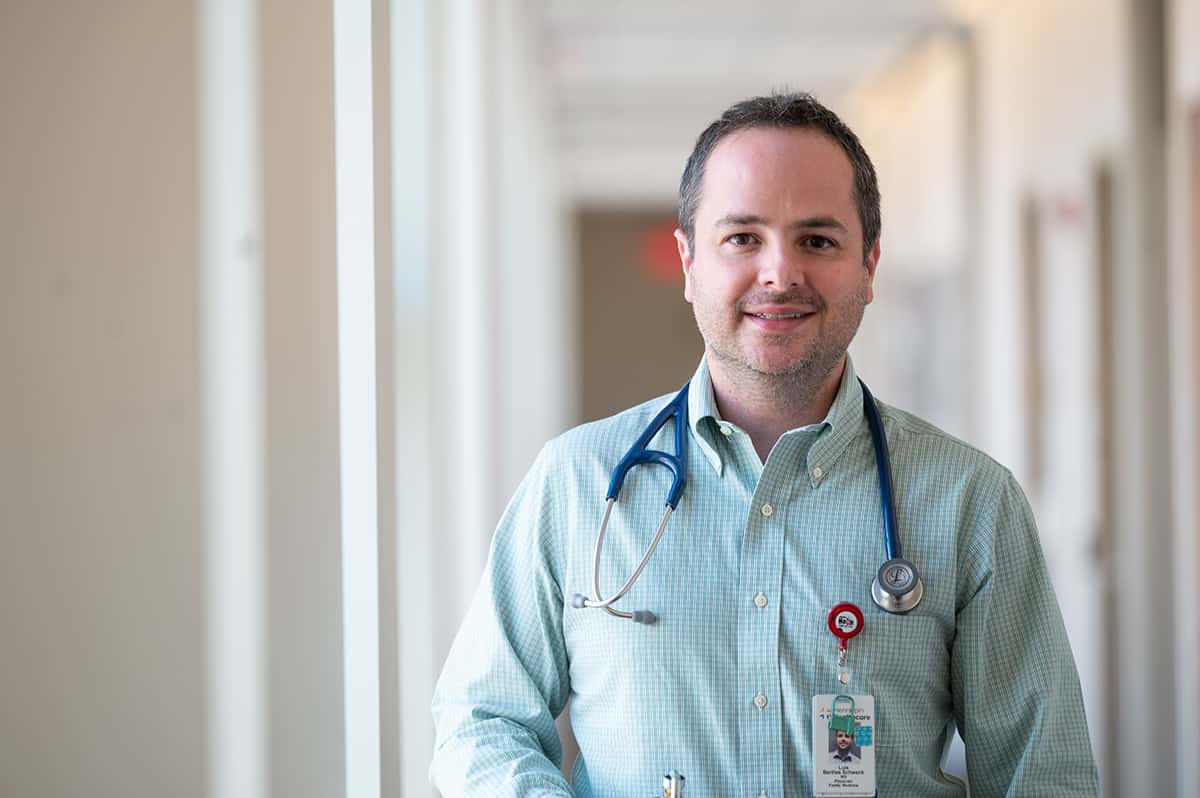
Luis Barillas Schwank, MD – Family Medicine, Richfield & Whittier Clinics
“My introduction to the medical field was volunteering with international medical organizations as a Spanish-English interpreter in Guatemala City, where I was born and raised. Because of that experience, I knew I wanted to pursue a career in medicine.
I enjoy the variety that family medicine offers. My day can start with a well-child check, followed by a procedure or a prenatal care visit, then an appointment to manage a chronic condition. I’m grateful for my patients and appreciate when they bring a loved one to see me for their care too. This year, a patient invited me to their high school graduation. That’s been the most rewarding experience.”
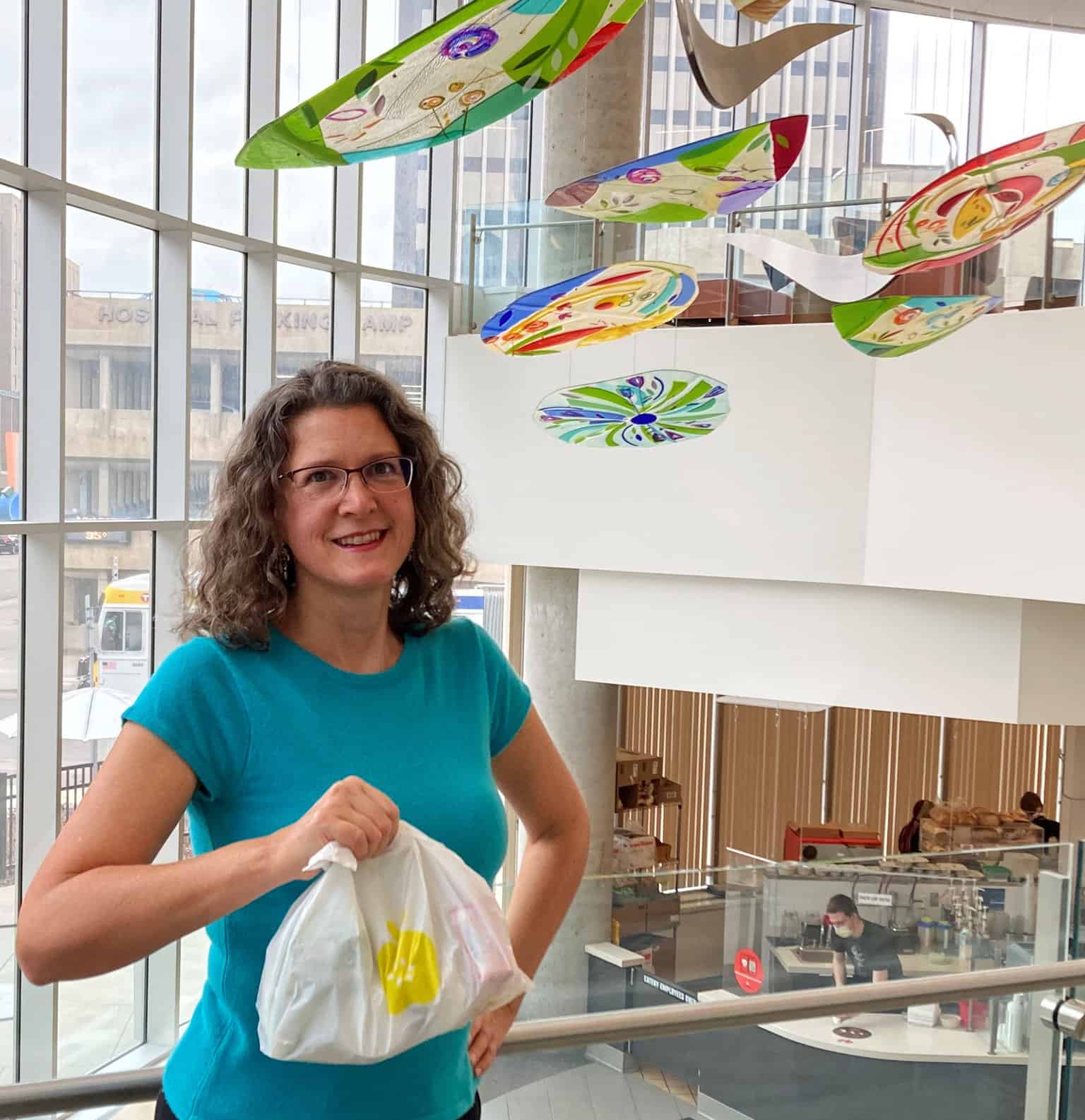
Jennette Turner – Social Determinants of Health Program Liaison
“There are many medical consequences to food insecurity in addition to malnutrition. Four of the leading causes of death in the U.S. are diet-related – stroke, diabetes, cancer and cardiovascular disease. People who are food insecure have a much higher risk for poor health outcomes. And it’s not only physical health – mental health is affected too. Depression and anxiety increase with food insecurity.
The Population Health team is working to narrow the gap between how many of our patients are in need and how many we are reaching. I manage our partnerships with Second Harvest Heartland and Every Meal. Second Harvest Heartland connects patients with ongoing food resources. Every Meal provides a variety of culturally congruent bags of food that we distribute to our clinics and specialty departments. Any of our staff can use these resources to help our patients.”
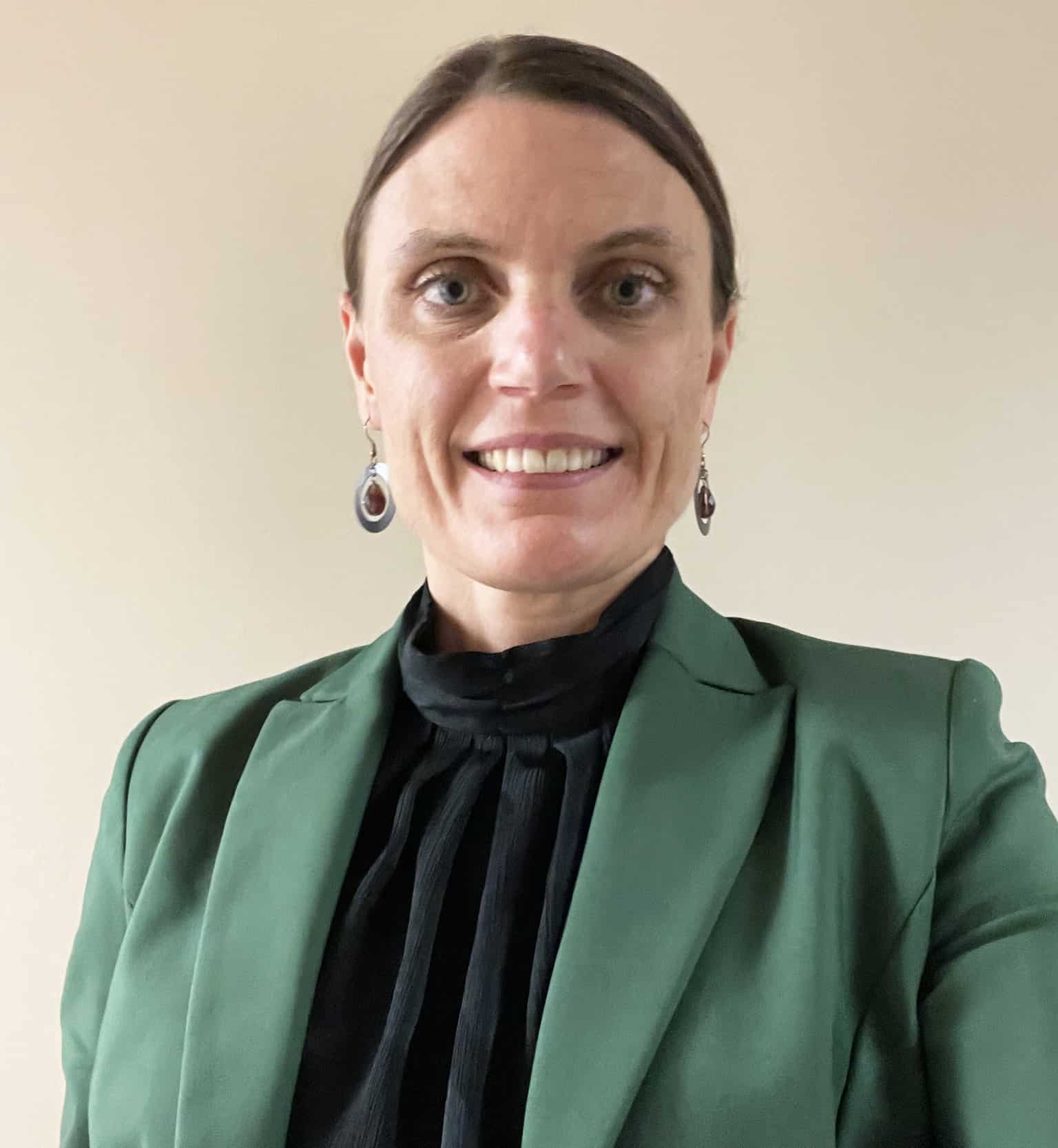
Amanda Noska, MD, MPH – Medical Director, Positive Care Center
“I feel an obligation and have an opportunity to use the privilege I’ve been given to advocate for our patients. I can be someone who helps manage their care without judgement. There’s a lot of social determinants of health and barriers to healthcare among vulnerable populations. I want to be a part of the solution.
I’ve heard assumptions about persons who inject drugs that are wildly inaccurate, one of them being that they don’t care about their health or want treatment. To understand a substance abuse disorder is to understand that it’s a chronic relapsing disease. People do care about their health, but they have other challenges. At the Positive Care Center, we have the opportunity to help people try to turn their lives around against all odds. It’s important for us to make a warm, safe space for patients to seek care.”
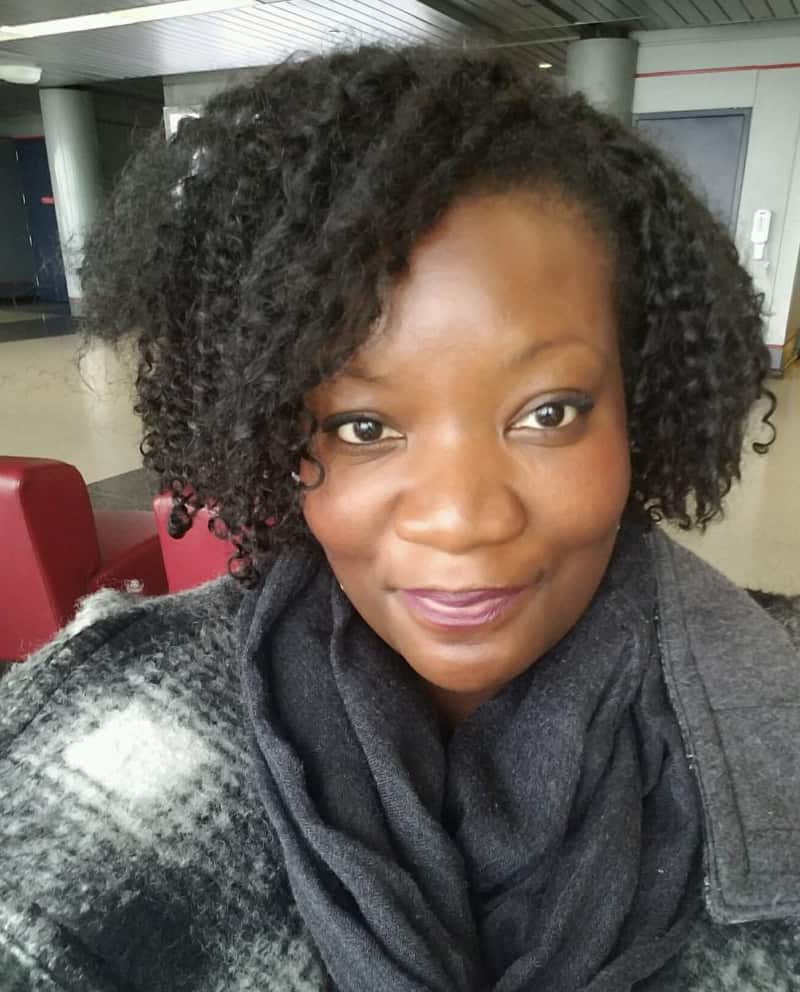
Lola Adebiyi – Patient
“I entered the emergency department scared and alone. With my limited mobility and even more limited ability to communicate verbally, I was terrified about how effectively my care would be managed. Fortunately, I found a compassionate ally and competent advocate in nurse Trish. Trish was extremely knowledgeable about my medical condition and went above and beyond to anticipate my needs and make sure they were met.
Knowing that talking was difficult for me, Trish communicated with all the members of my care team to ensure that everything was well coordinated, and my discharge was seamless. When my mom arrived, she was pleasantly surprised to see me so comfortable, cheerful and well cared for. Nurse Trish will forever be a hero in my and my family’s lives.”
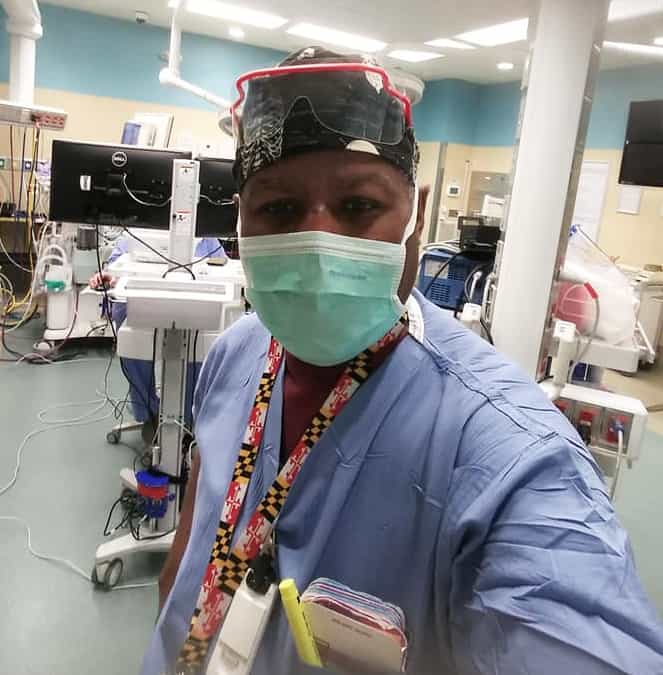
Joe Skinner – Surgical Aide
“I enjoy the challenge of serving the mission of Hennepin Healthcare every day. No two days are alike. We do tons more with fewer resources than other hospitals. It’s rewarding when I see a patient a year or two after a surgery at an event like a festival or the fair. Sometimes they walk up to you and thank you for helping them walk or get well again. At your neediest time, we can put you back together.”
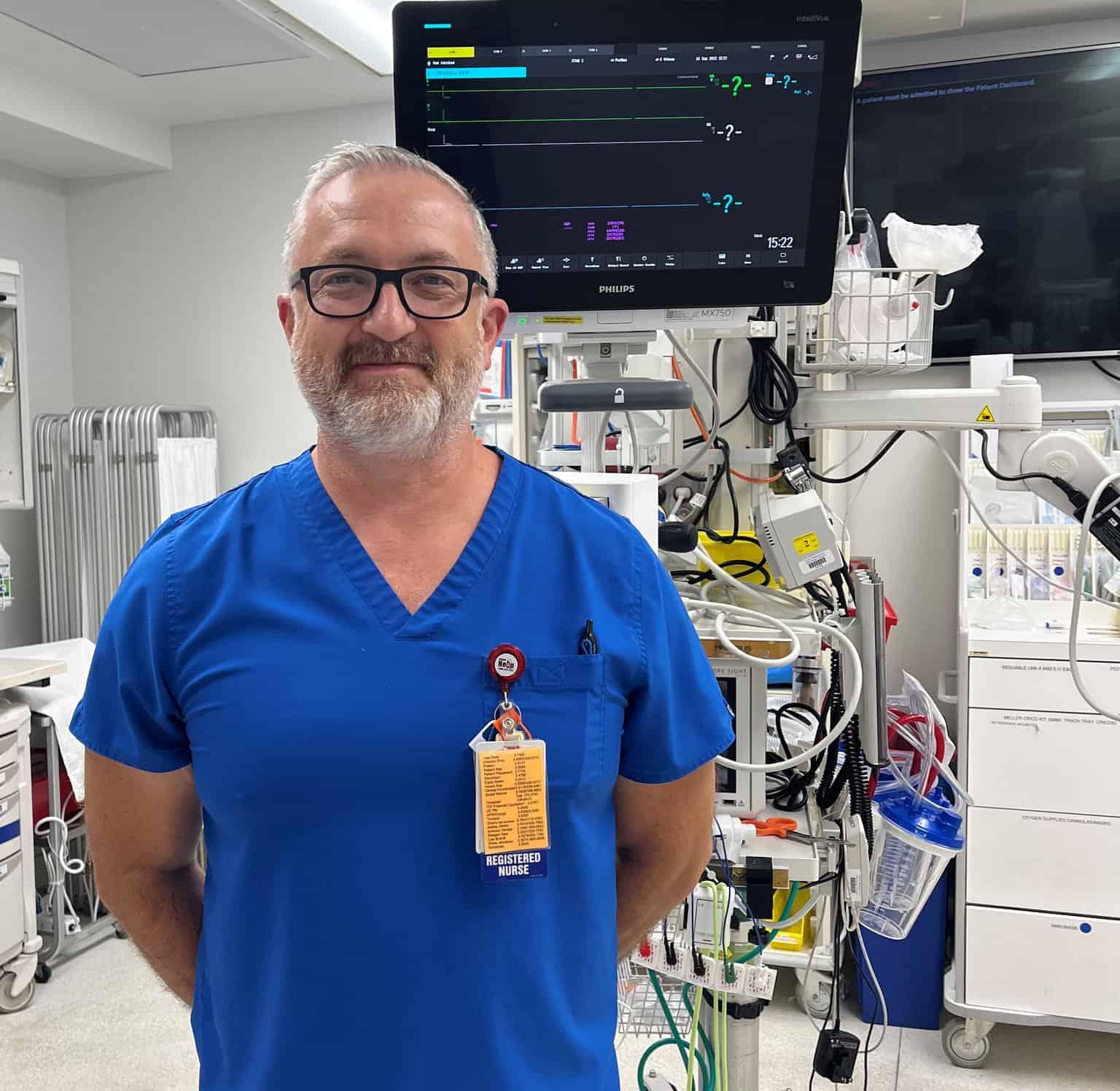
Todd Mitchell, RN – Clincal Care Supervisor, Emergency Department
“You can’t make up or predict the cases that come through the emergency department doors. Every day is different. Often times, we care for patients and family members who are in crisis and experiencing the worst moments of their lives. Whether it’s a traumatic car accident, gunshot wound, or a loved one having a stroke, ED and EMS staff are ready at the first stages of care. Prior to working in the ED, all my experience was in the intensive care unit and surgical intensive care unit. The change has been eye-opening for me. It has broadened my appreciation for the work we do across the continuum. I find the work intense and meaningful.
We have a strong, world-class emergency department. I believe that to truly understand or appreciate what happens down here requires seeing it for yourself. The past few years have been challenging for all of us. The pandemic and critical staffing shortages have had a direct effect on the department – extended patient stays, higher patient census and increased violence. Despite these challenges, I am grateful to be part of a team that has worked tirelessly with perseverance and resolve.”
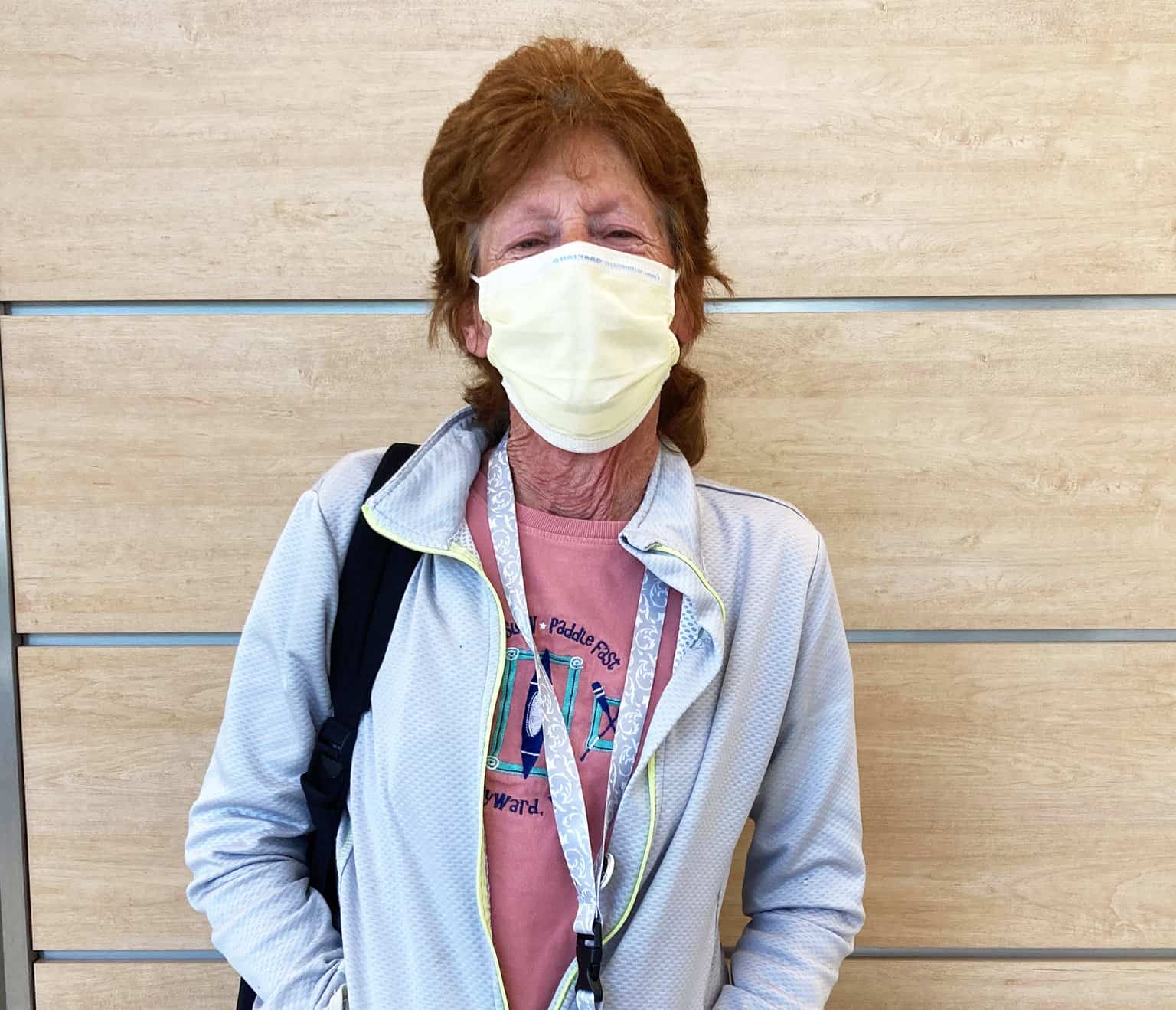
Ellen Otto – Job Coach, Merrick Inc.
“I’m a job coach for a team of four cognitively disabled folks who take care of all the recycling for Hennepin Healthcare. When I looked around the hospital and saw how diverse and inclusive it was here, I knew my team was going to be accepted. I’m a teacher and a supervisor to them, but I’m also opening people’s eyes around here to the disabled. It’s been a teaching moment for employees and the public.
My team loves coming to work because they’ve made friends here. The best thing is when I see my team interacting with other departments. It brings me joy. If I’m having a bad day, all I need to do is look at my team. It’s the little things that matter. It’s rewarding for me to see them gain independence every day. I can back off and they can do their thing. That means something to them too.”
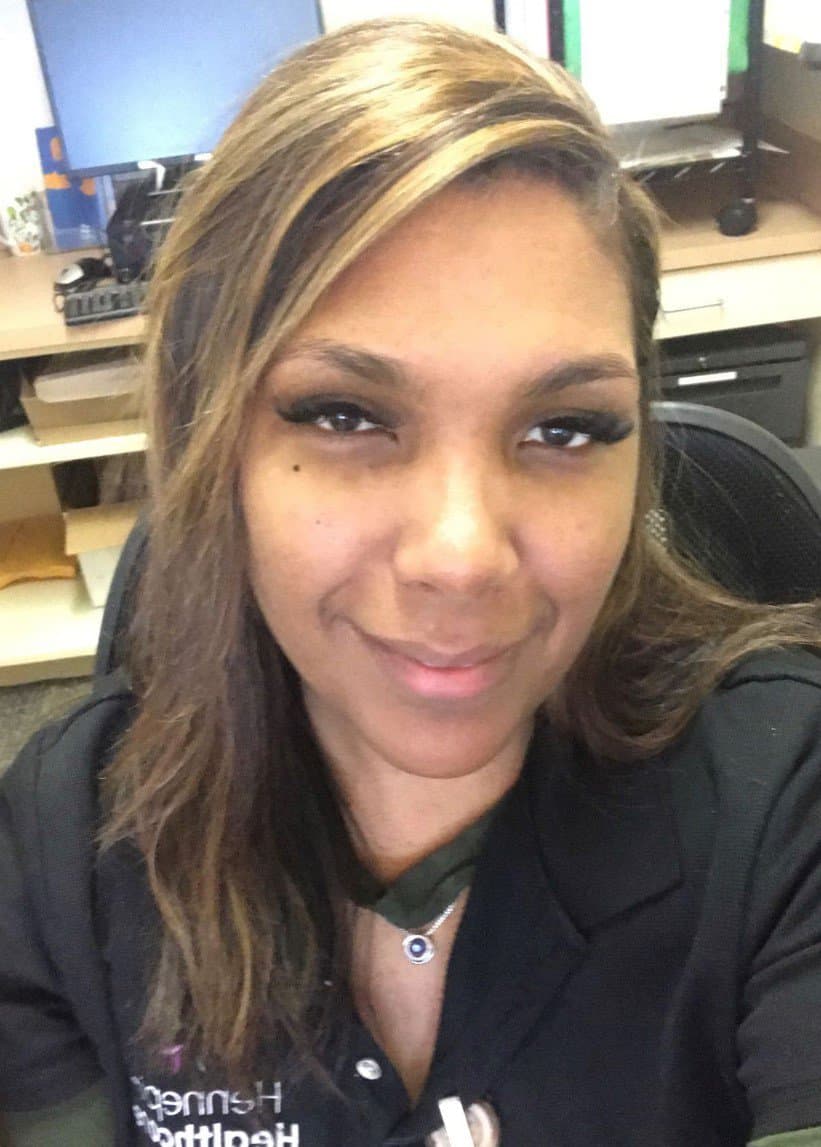
Lynette Santos – Patient Services Coordinator, East Lake Clinic
“In the late 80s, my mom had an injury – 83 percent of her body was burned. She stayed in the burn unit at Hennepin Healthcare for about three months. I was 3 years old. I can vividly describe everything that happened that day. Knowing that my mom was at Hennepin Healthcare and receiving amazing treatment was a comfort. We’re originally from Cuba, so having an interpreter always there to explain what was happening to me and my siblings is something I’ll always remember. As I got older and learned more about the medical field, it became my passion. When I had the opportunity to work at Hennepin Healthcare, I immediately took it on – I wanted to give back to the place that saved my mother’s life. That’s something special I hold.
It's rewarding to me to get to know staff and patients as individuals. My team has seen me go through major life changes. Outside of work, they’ll check on me and I do the same for them. It’s a blessing to support each other.”
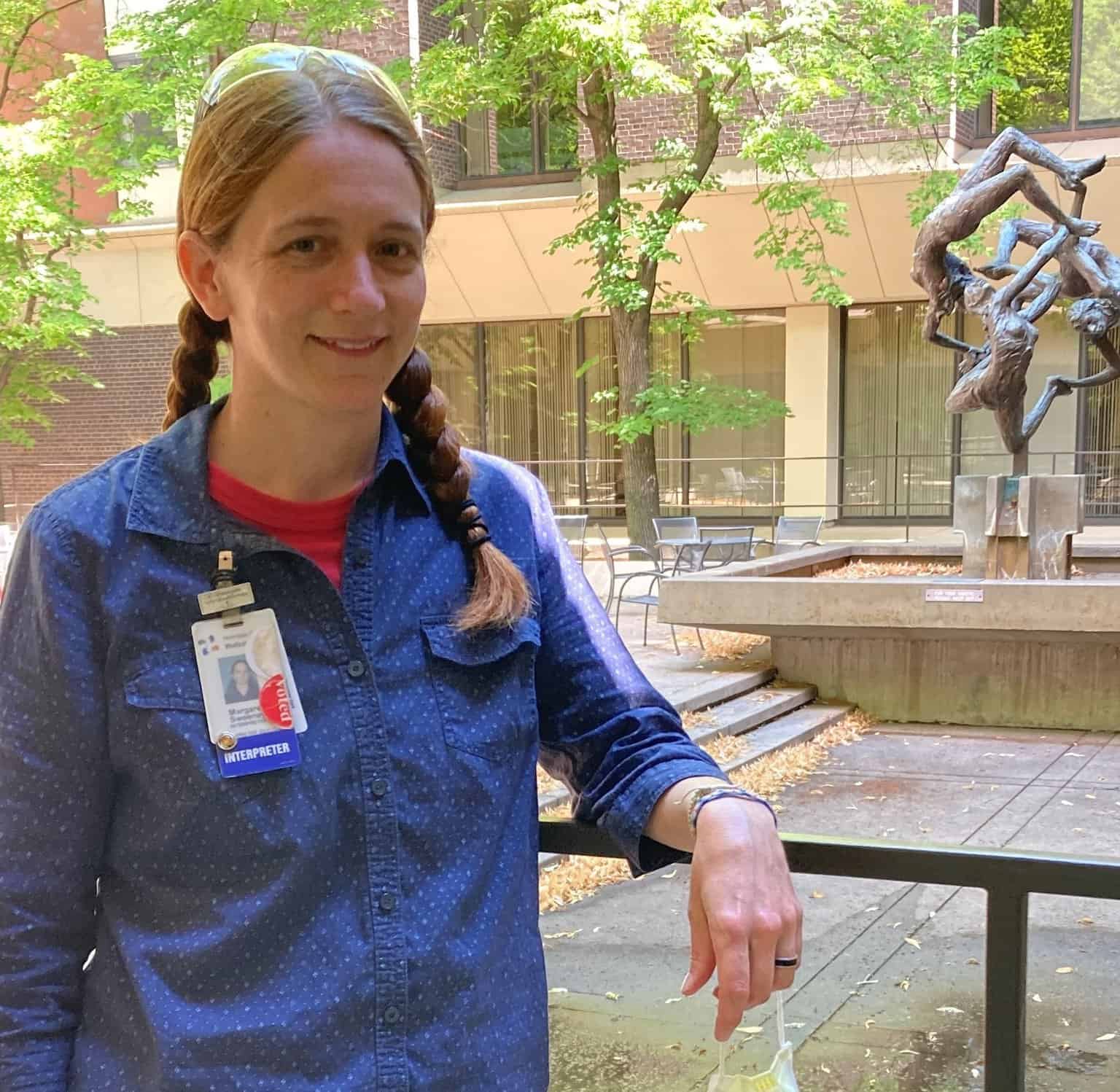
Margaret Sweeney – Interpreter
“It’s a privilege to accompany people in their most vulnerable times. We bear witness to births, deaths, and everything in between. It's a cost and a gift to experience what other people are going through. We celebrate with the family when a patient starts breathing on their own, and we mourn with them if they die.
Interpreting is not as simple as translating. We listen for the intent behind the words and pinpoint any lack of understanding between the patient and provider. We serve as a cultural liaison. It’s a lot of advocating for patients. We’re a bridge between them and the hospital. Because we’re in the appointments with patients, we can take their point of view back to Hennepin Healthcare. It’s an opportunity to speak out and improve the care we provide.”
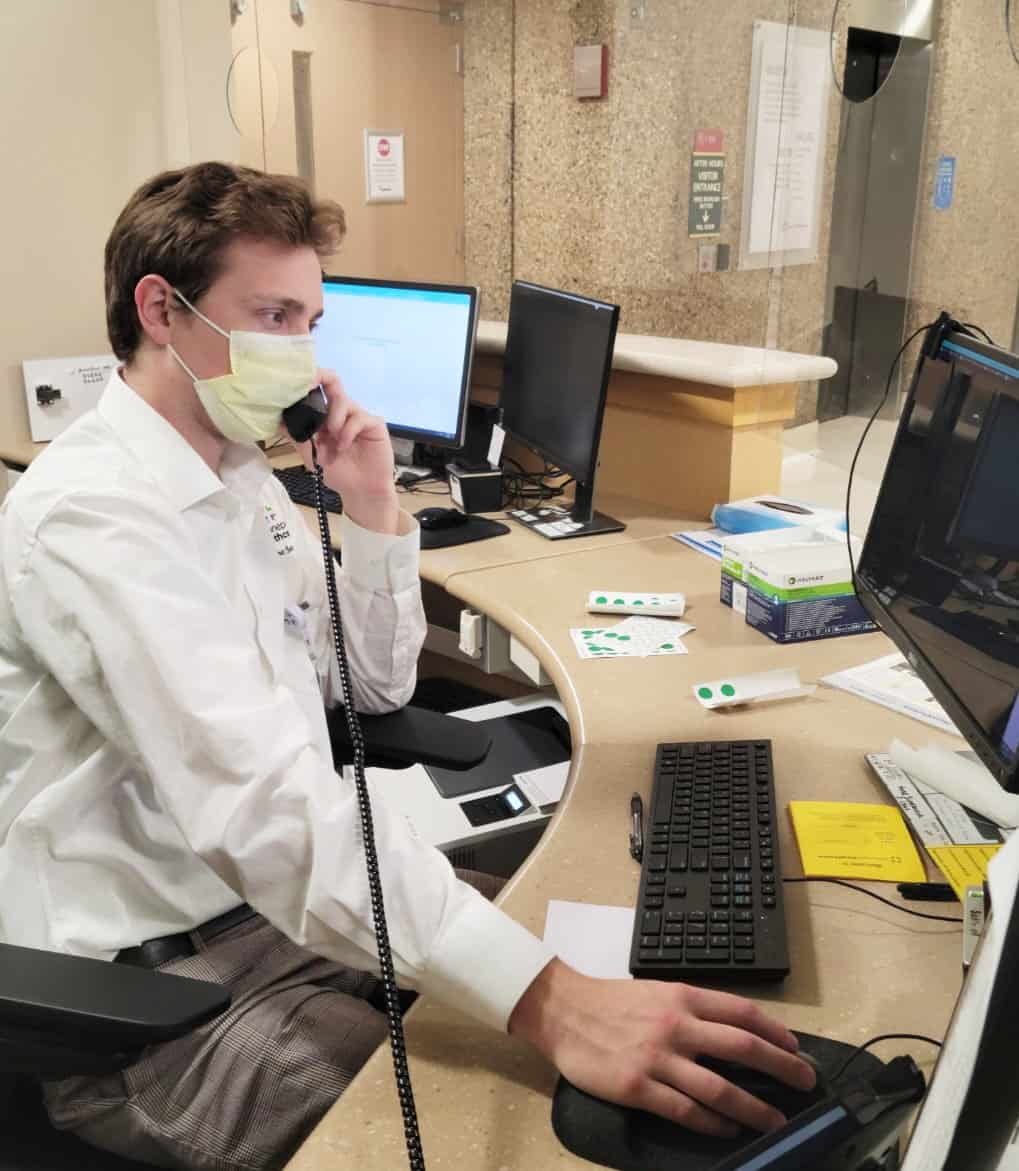
Tony Tuttle – Welcome Services
“Welcome Services isn’t a department many people think of when going to the hospital. We’re not providing healthcare, but providing a ride home is a big deal to our patients. It’s rewarding when we can leave them with a warm hand off.
With so many different people coming into the hospital, you need to take everything with a grain of salt. There’s a bigger cause behind someone’s frustration or impatience. It’s not personal. They could be sick or trying to visit a loved one who is. That’s a high stress situation to be in, and they might take it out on you. We show kindness and understanding and focus on problem solving. We can make our interactions an enjoyable experience within someone’s bad circumstances.”
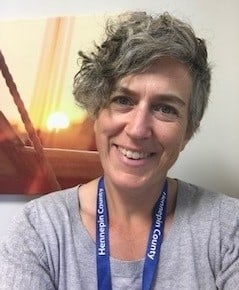
Tamara Shewmaker, RN – Clinic Supervisor, Richfield Clinic
“I love that people here have so many different backgrounds. You meet people from all over with different life experiences and perspectives that have broadened my world view. I like sharing stories with each other. You get to know what’s going on with your colleagues and their families, or how they are handling different things going on in their life. In addition to being a co-worker and friend, you can also be a mentor for people.
I really think that our work is super important in this community. They really depend on us to be here and show up. We do so much more than provide medical care. We provide social care, mental healthcare, spiritual care. I feel proud to work here.”
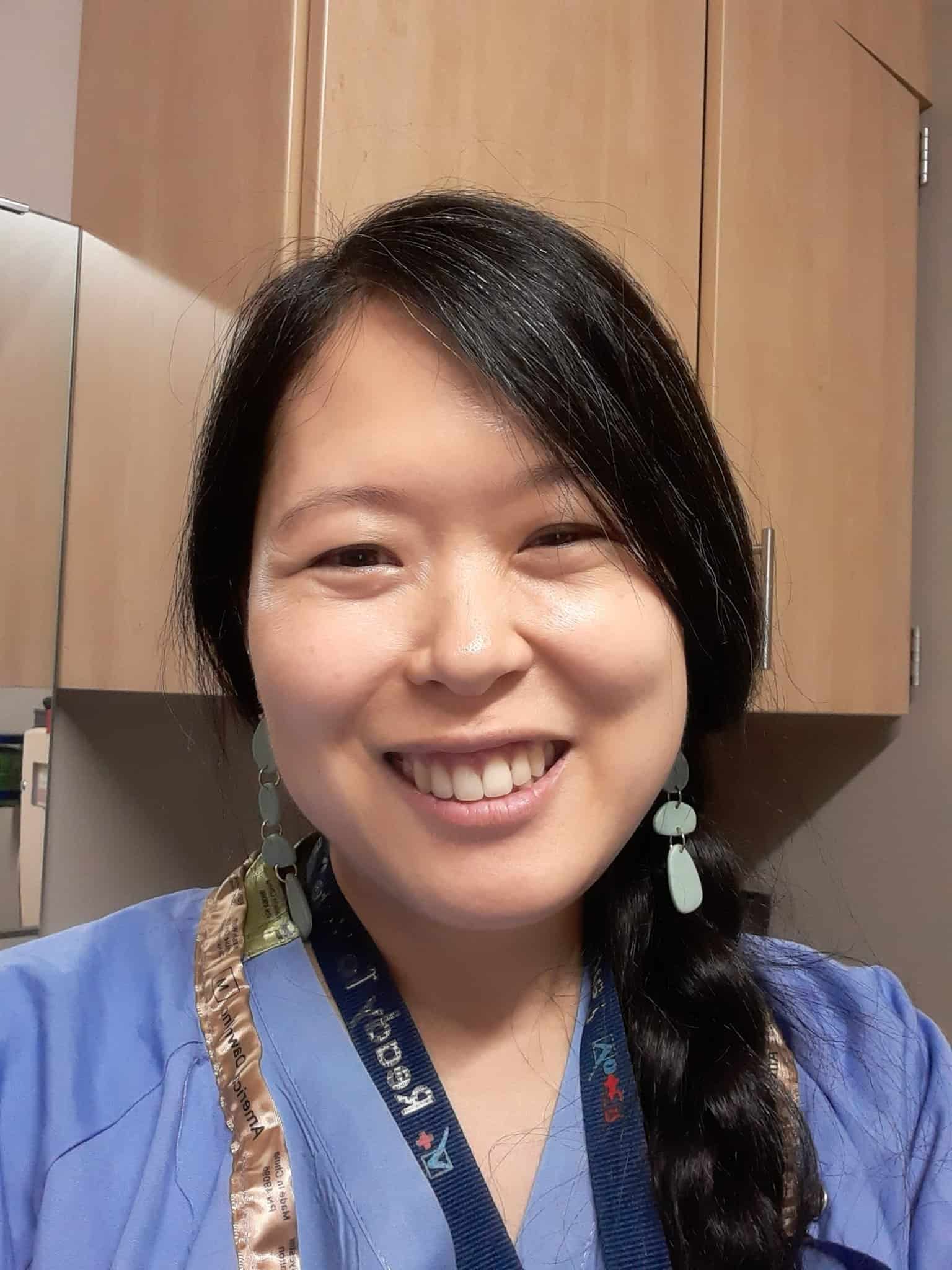
Samantha Pace, MD – OBGYN
“I’ve always had a strong interest in global medicine, and there’s nothing more locally global than Hennepin Healthcare. Lately, I’ve been caring for a lot of Afghani refugees, many of whom are pregnant or post-partum. Knowing the circumstances in which they fled Afghanistan and escaped the Taliban – so many of them have lost everything and came here with nothing. I did work in Afghanistan in 2014 in an area where some of the refugees are coming from, so I have a little bit of cultural understanding. I took care of this woman who stayed on the Kabul airstrip for three days with her five kids, waiting to escape. She had to leave all of her family members behind. And she’s pregnant. I’ve had patients who want to tell me what they’ve been through and don’t hesitate to launch into their stories. Sometimes, the interpreters come from the same area and pitch in their stories. It almost becomes a storytelling session, which I hope is therapeutic.
It takes a huge amount of humility to gain patient trust. I try to make our appointments a safe environment to ask questions and I’m open to the answers. It’s all about providing safe space, time and compassionate listening.”
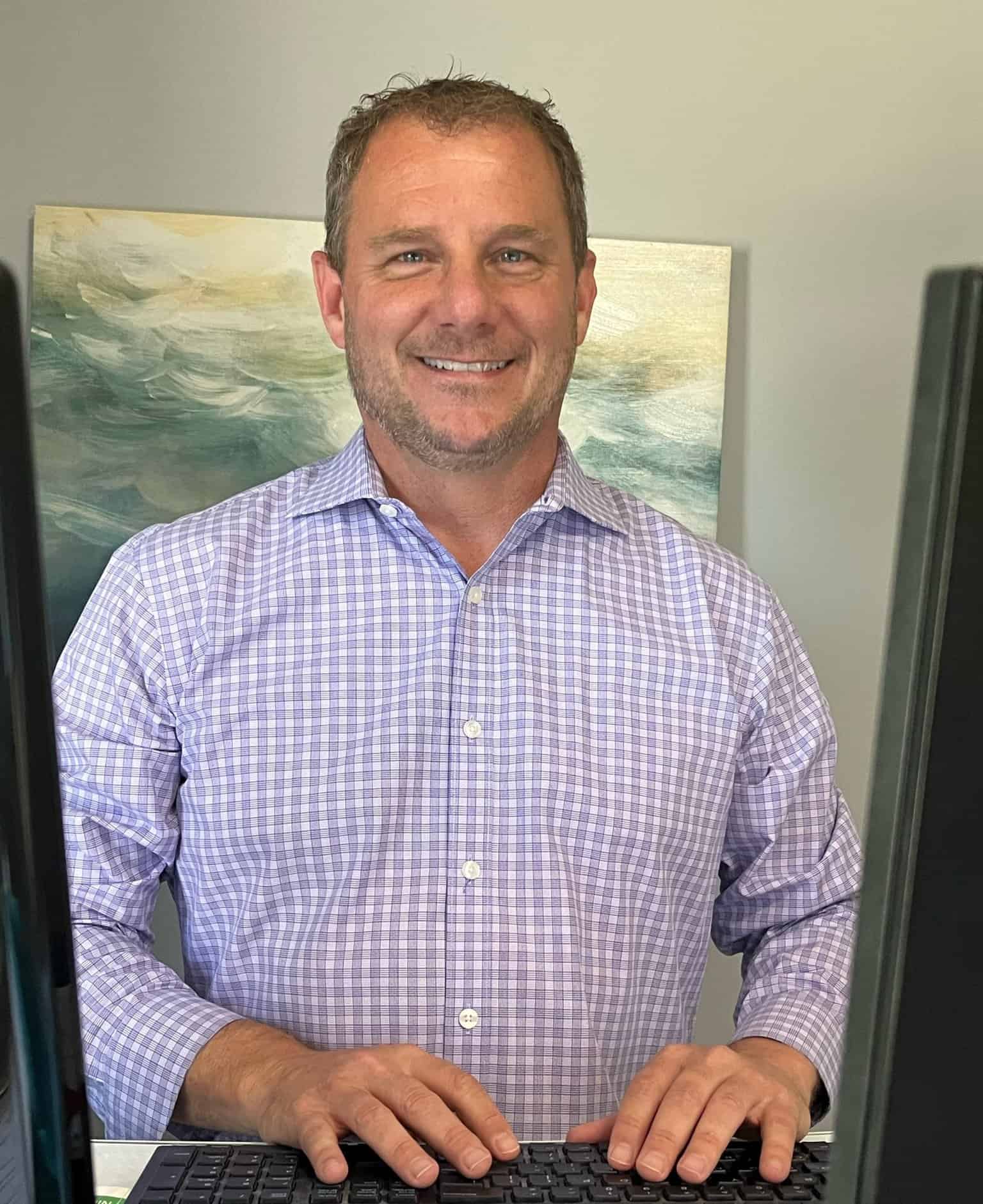
Mike Connolly – IT Manager
“My team is awesome. They’re understanding inside and outside of our circle about the emotional, and at times physical, toll that we’ve all been dealing with for the past couple of years. That approach has created more understanding and gratitude within the IS&T team and Hennepin Healthcare overall. They’re engaged, open and honest. They’re willing to have frank discussions about any topic from technical to some of the DEI race and relationship work IS&T has been doing. They’re not employees, they are people I work with and admire.
The relationship development in our team is much more important to me than our set of tasks to complete. What’s important to me is the people, the development, the growth, the inclusion, and the sense of belonging. My focus for work, my home life, and my friends is to help and support people wherever I can.”
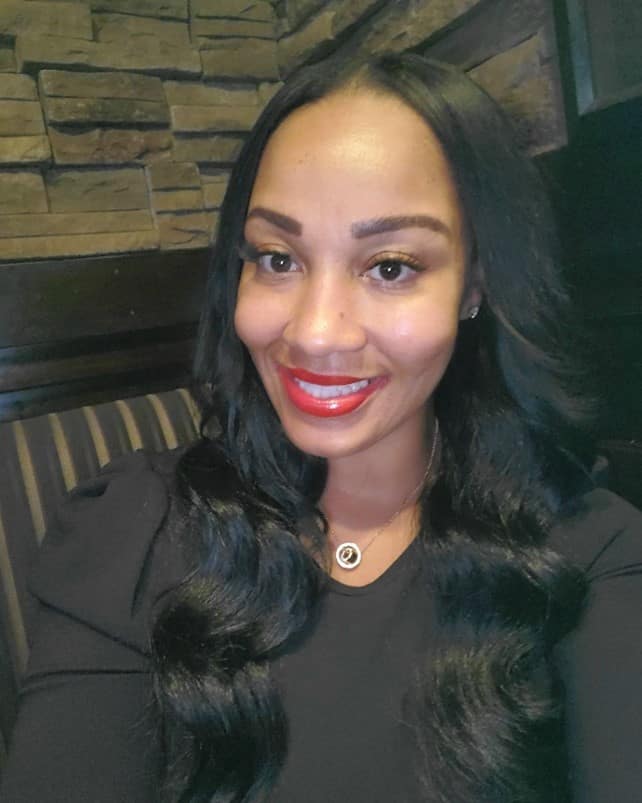
Shanika James – Medical Student Coordinator
"I love my job. I take pride that I'm a part of medical students' accomplishments. I see them grow from coming to Hennepin Healthcare to observe, completing their medical rotations, applying for residency, and some becoming a physician here. Knowing that I had a place in their journey by coordinating their rotations is extremely rewarding to me.
I think it's important to gain the trust of my medical students. That helps them feel comfortable opening up, venting and expressing their true feelings to me. Since I've taken on this role, I've encountered medical students dealing with anxiety, fear, panic and stress. Some have given up practicing medicine and a few have even taken their lives. That's why I encourage them to contact me at any time. I tell all the students that I am a phone call away and will be there for them under any circumstance.
My biggest advice for those who interact with medical students is to become a listener. Be patient with them. Sympathize with them. Give them encouraging words because life is not always easy."
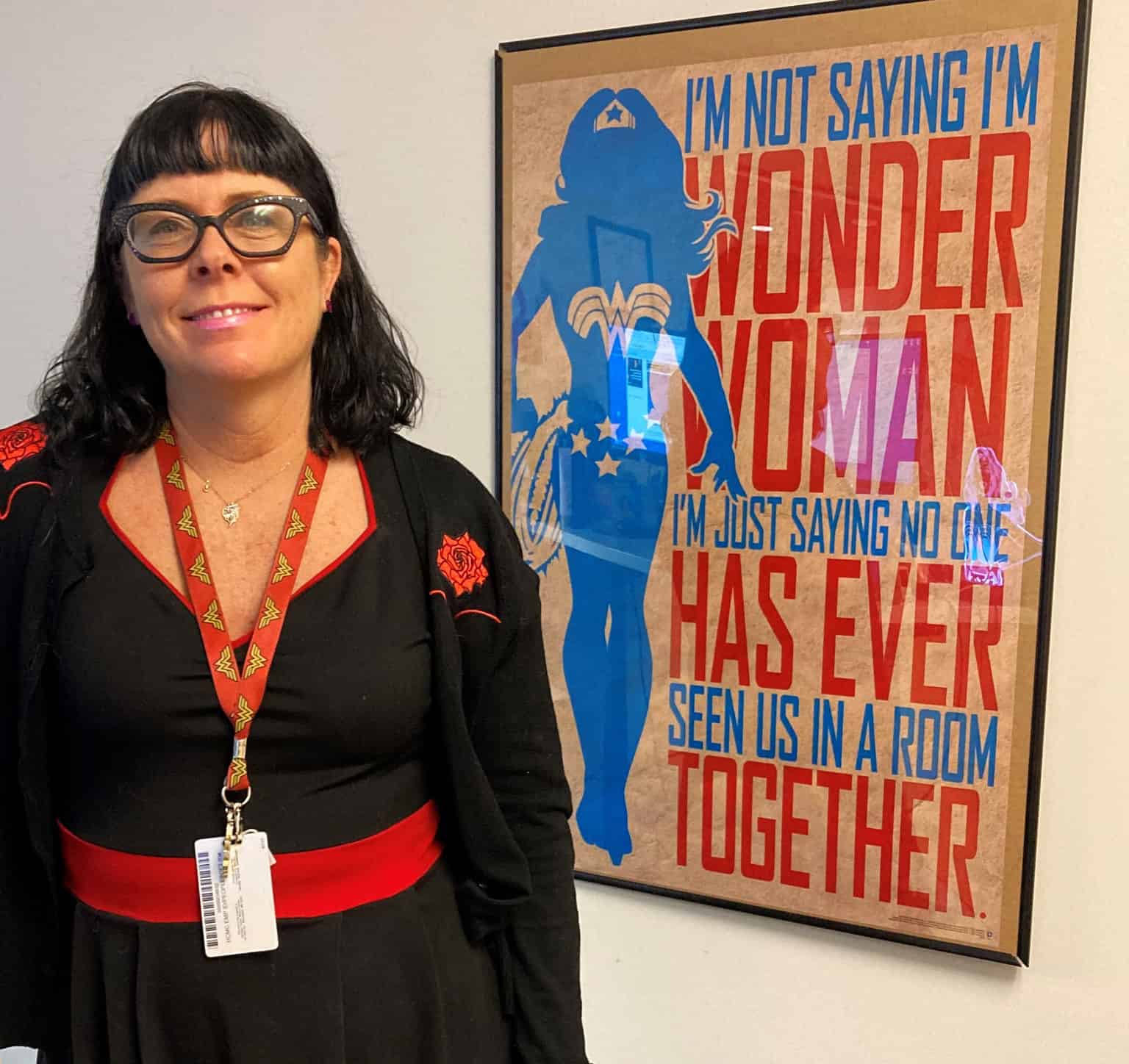
Danielle Becker – Library Supervisor
“We are redesigning the library right now. It’ll provide more seating space and independent study spots. We’re hoping that once things open a little more, we can have author readings and events. The library a great place to sit down, read, and catch your breath. We can help you with your research and help you find articles or books – and not necessarily medical, we do a lot of other research too.
Almost every single day, I get a thank you from someone, whether it’s a patient or a physician. It’s great when someone appreciates our work. We live for helping people – that’s why we’re here.”
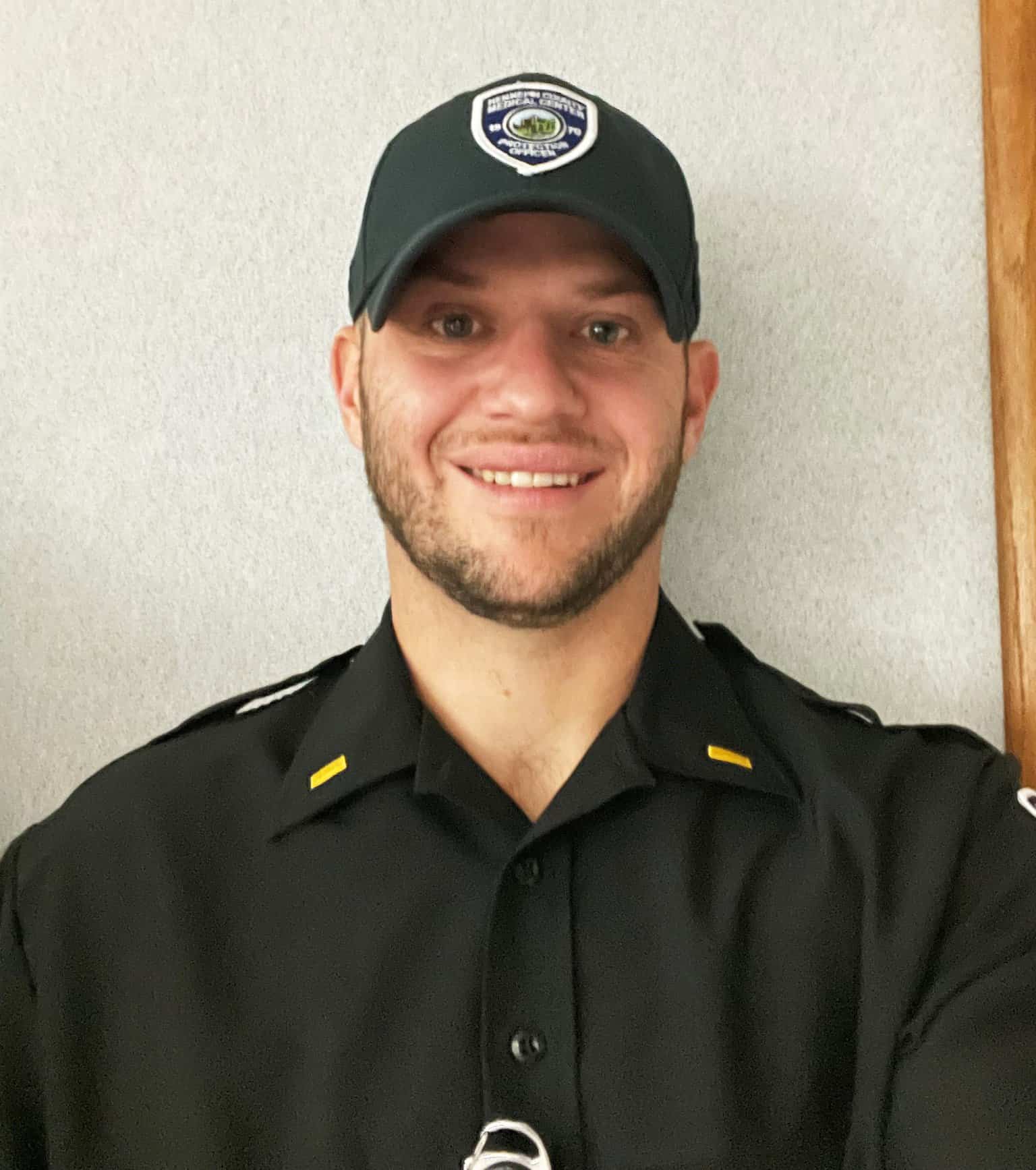
Mike Ramos – Security Supervisor
“We have a very diverse clientele from every race, sexuality, orientation, lifestyle, everything. Being from small town Minnesota, I wasn’t exposed to a lot of that growing up. I enjoy learning about everything that anyone has to offer. It’s great to talk to a man who has lived here his whole life and then two minutes later, a woman who just moved here from Africa and has a different outlook on life. It’s experiencing everyone else’s culture without having to travel around the world.
The first people you see when you walk into the ED door is the security officers. We have to start that human connection at the door because chances are, the person walking through the door isn’t having the best day. We can’t heal their loved ones, but we can make it easier for the rest of the team to make their day better. It can be as simple as getting them a glass of water and helping figure out where their loved one is. Everyone that walks through Hennepin Healthcare has emotions and a broad set of different cultural beliefs and ethnic beliefs, so it’s crucial for us to make that human connection.”
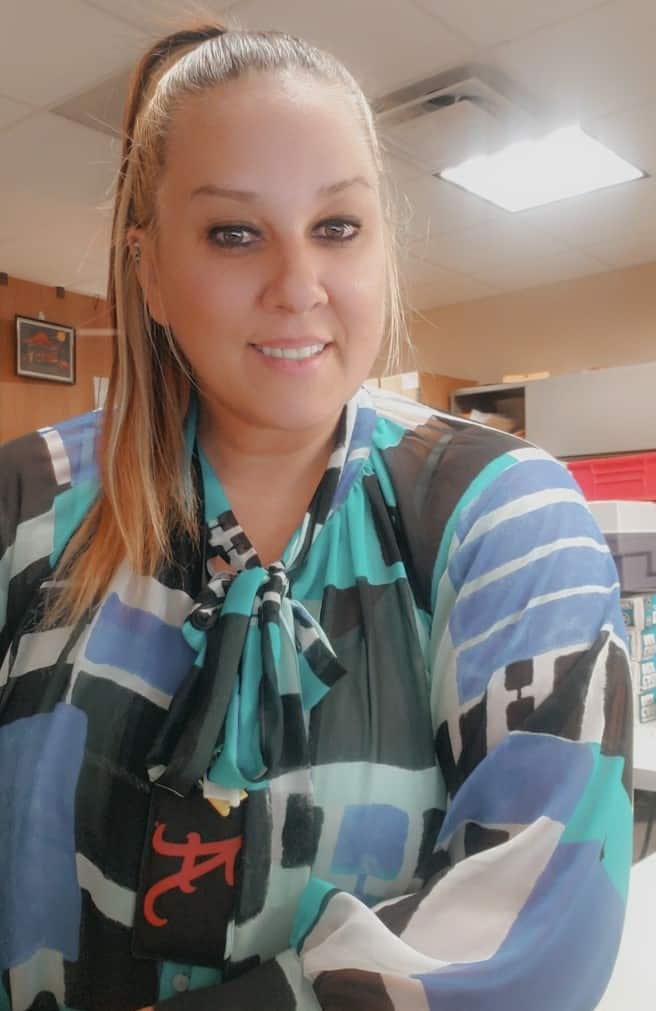
Tiffany Begin – Accounting Associate Principal
“I support the point-of-sale locations throughout Hennepin Healthcare. That includes the onsite and offsite pharmacies, cafeteria, parking and the clinics. I collect, count, verify, deposit, and reconcile. It can be challenging to move financial transactions in and out of the hospital and keep everything flowing smoothly for patients and staff.
Even though my teammates and I aren’t medical staff, we’re needed so that the providers can serve our community. A hospital can’t function without a team managing funds. I’m grateful for the people we help – from the clinics, to the cafeteria, to the Foundation.”
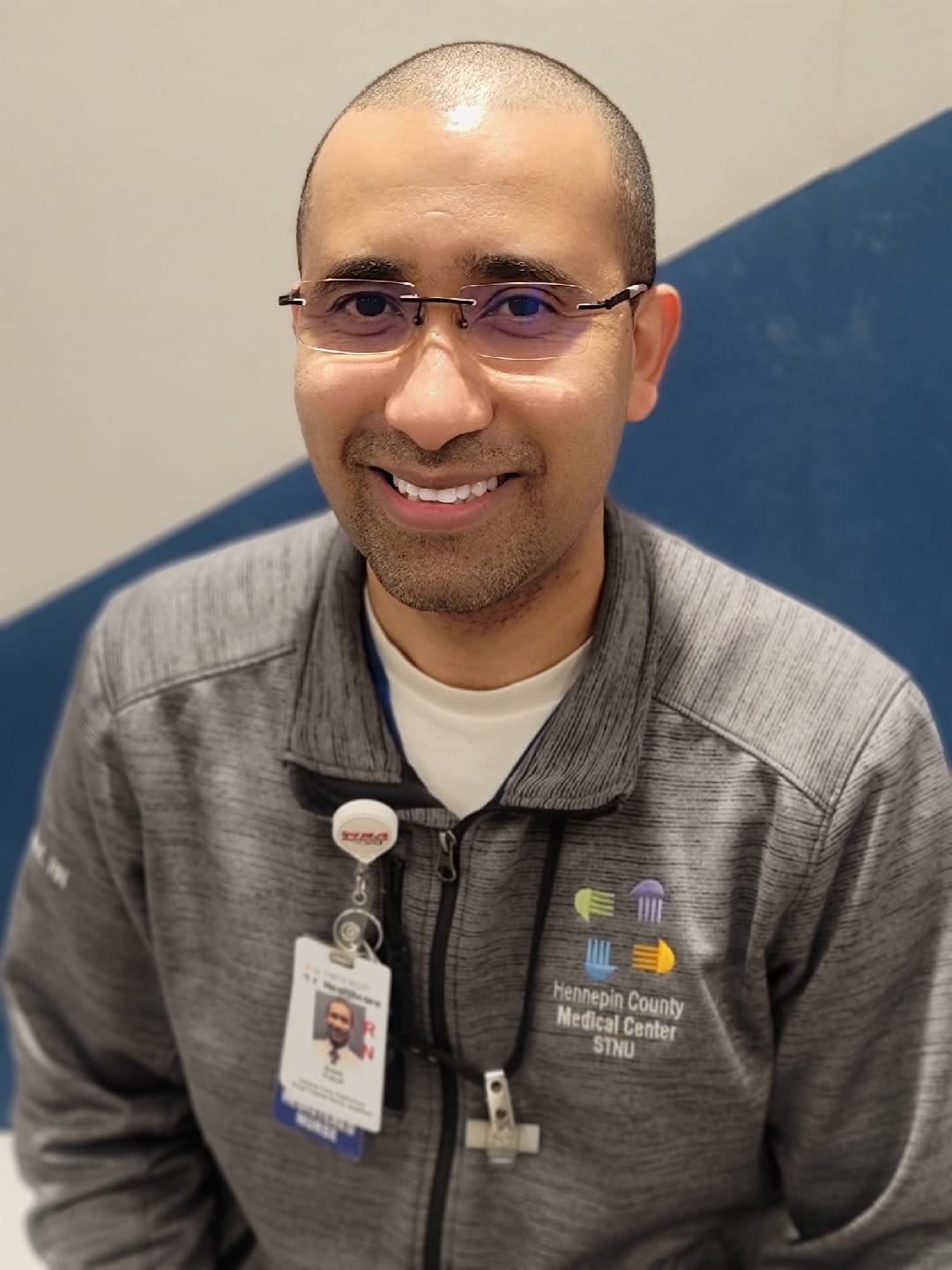
Saed Yusuf, RN, BSN – Clinical Care Supervisor, STNU
“Hennepin Healthcare gave me so many opportunities. From my first day, I could see my future here. Before I started, I was the assistant manager of the Purple parking garage. Then I did some training and worked with EMS and then phlebotomy. I felt called to nursing and took classes while I had full-time work and a full-time family. Everybody along the way was motivating me and telling me ‘You belong here. You can do this.’ They lifted me up. That’s why I’m here. It takes a team to lead this unit and give exceptional care without exception.
The way I grew up also helped me. I’m from the Middle East and lived in Somalia. My family left Somalia when I was 7 because of the civil war. We fled to Yemen and lived in a refugee camp for 10 years. Throughout the years in the camp, I volunteered in the refugee clinic to help the medical team who provided care to all refugee patients. I helped with interpreting, assisted in the lab and in the surgery unit, and worked closely with tuberculosis patients. I learned so much in that time. Imagine being a 7-year-old boy with hardships coming into a refugee camp in a different country. That experience gave me resiliency and determination to overcome obstacles and barriers, and it also shaped my future as a healthcare provider.”
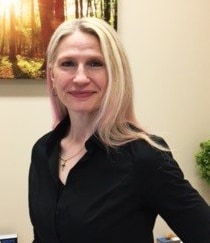
Liza Anderson-Gonzalez, NP – Comprehensive Weight Management Clinic
“Nursing is how I give back to my community. I act as different roles in my position – I’m a coach, advocate and teacher in order to help patients improve their health. I’ve also worked in many different positions for Hennepin Healthcare – a nursing assistant, a nurse, a supervisor, and now a medical provider, so I’ve been around the full circle of what the organization has to offer. I’ve enjoyed helping our community and my co-workers in different realms.
What’s most rewarding to me is to participate in people’s success. It’s not just weight loss on a scale – it’s feeling better, being able to move more, and having a positive outlook on life. That’s special. There’s confidence and camaraderie between the staff, and there’s respect between the patients and providers. I’m grateful for that.”
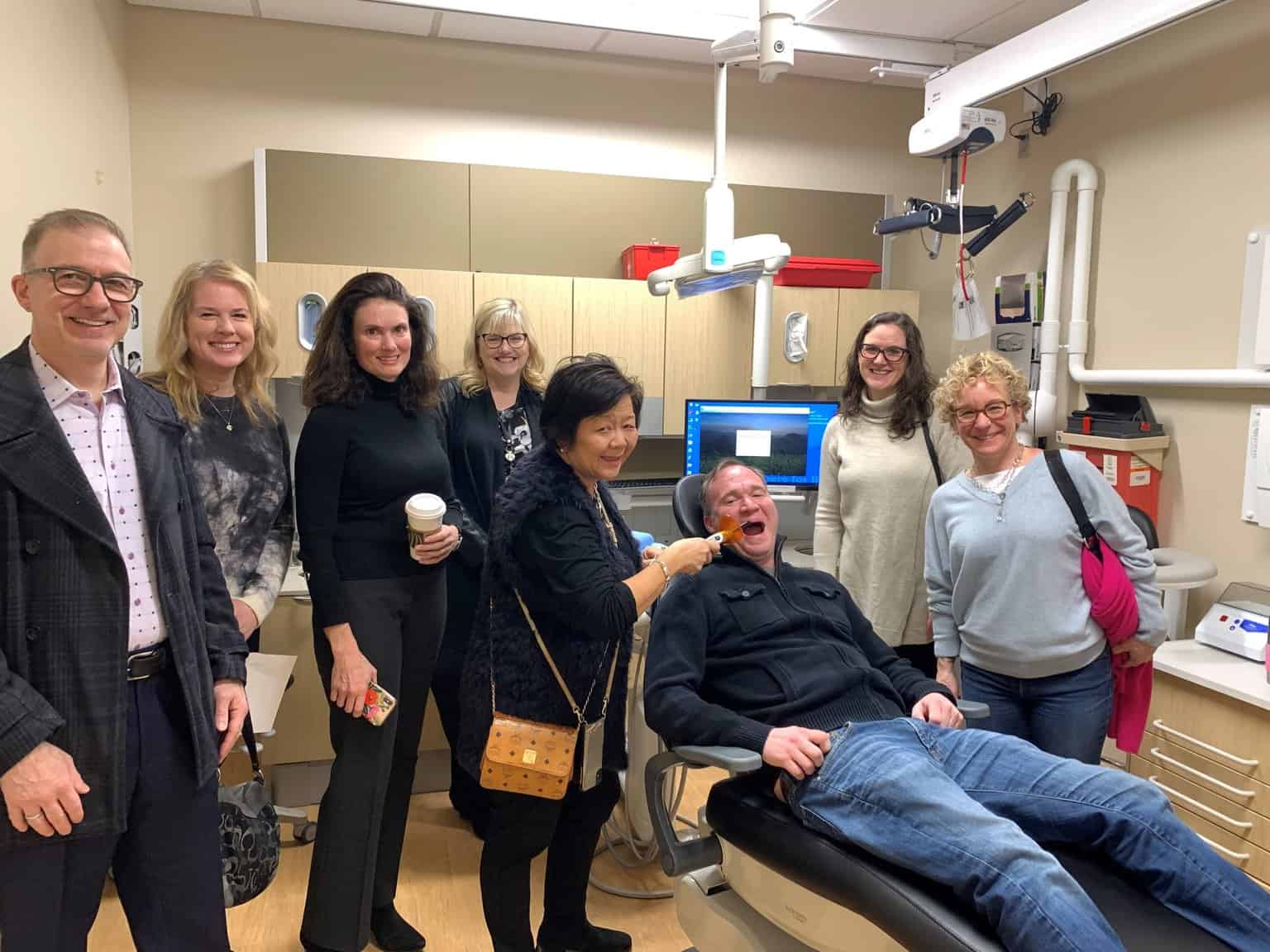
Dominic Ciresi – Foundation Board Member
“Before COVID-19, Board members toured different departments. Every time we did a tour, I had an ‘aha’ moment. For example, when we toured the Delta Dental clinic, my ‘aha’ moment was that kids who are autistic have an immensely hard time finding a dentist. Hennepin Healthcare is one of the only places they can get dental care. It never occurred to me. I told my friends who have autistic children, and it changed the way they go to the dentist. Every time I visit, I’m amazed at the depth and breadth of everything that is done at Hennepin Healthcare.
I think our biggest challenge and opportunity is to spread the word of Hennepin Healthcare – what we do, how we do it, and how well we do it. For this year and years to come, my goal is to get the community philanthropically involved with Hennepin Healthcare, especially the business community.”
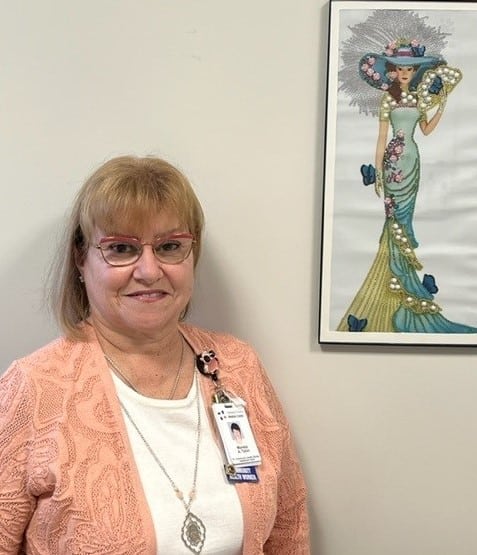
Mariela Ardemagni-Tollin – Community Health, East Lake Clinic
“Being an immigrant, I have a soft spot for people who may not have all the benefits and resources that they need. For example, if someone has diabetes and doesn’t have a home, it’s difficult to keep insulin in the fridge. Or maybe they don’t have enough food on the table or transportation to go to their appointments. I try to ease that path for our patients. Five minutes of my time could be a world to them. The most satisfying feeling is helping our patients have one less worry. I’m grateful that I can find a resource for them. The East Lake Clinic is a special place because we have that willingness to go the extra mile.
Opening our new space was like a big check mark after what we went through when the other clinic was destroyed. It was so devastating to see. We couldn’t salvage anything. We are very grateful for Whittier opening their doors to us so we could continue providing services. The day we opened our doors for the first appointments was a steppingstone we’ll never forget. We went through so much, but we made it. We got to the finish line.”
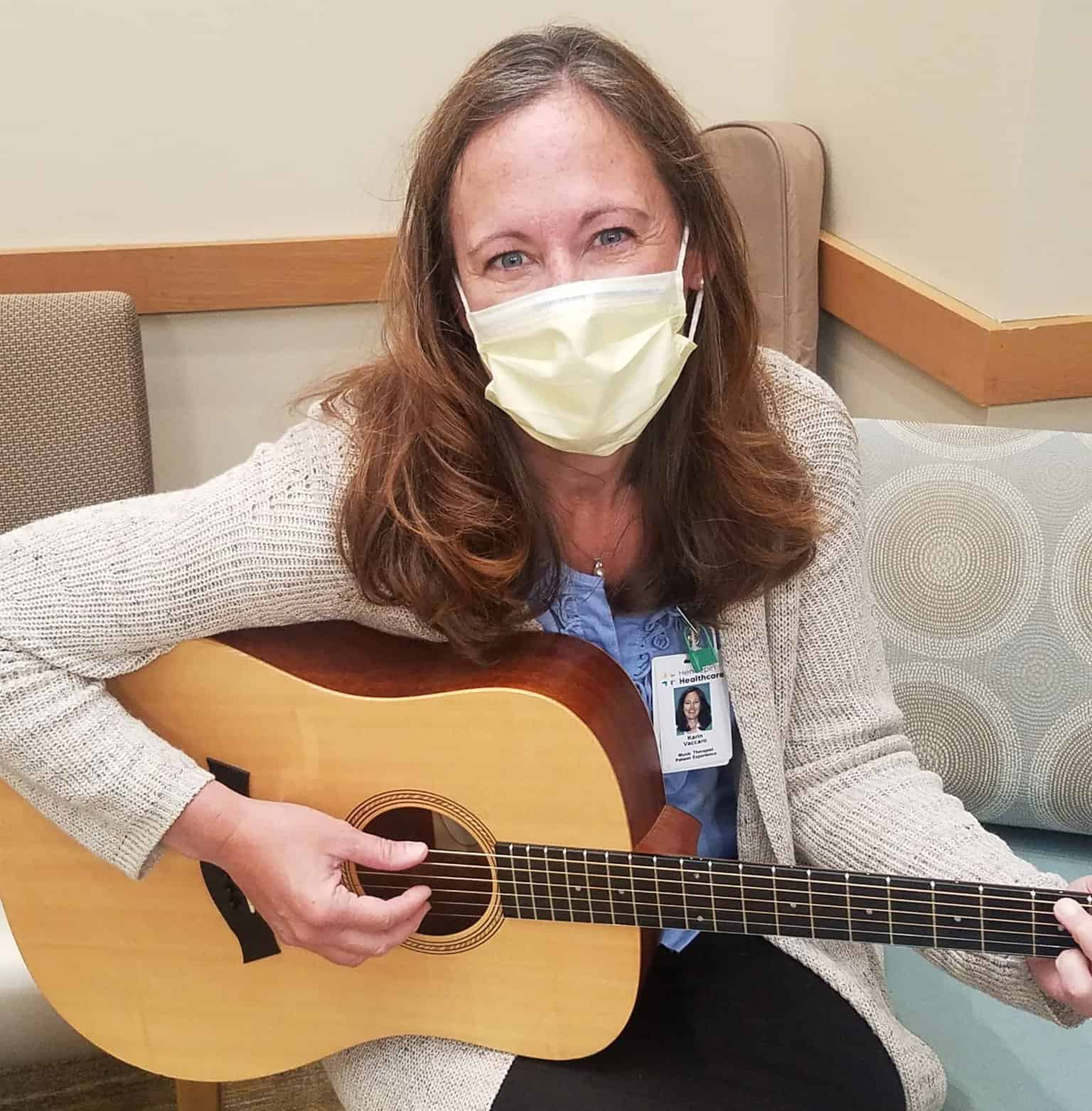
Karin Vaccaro – Music Therapy
“Music therapy can support a patient’s journey toward health and well-being. The music creates and starting point and a connection between the patient and me that guides our time together. Music causes psychological responses in our bodies. There’s a concept in music therapy called entrainment. I first assess a patient’s rhythm by their speech, breath and movements. I match their rhythm by singing or playing a song they prefer at that rhythm, and then gradually adjust the tempo or character of the music to support a gentle lift of mood or relaxation, depending on the patient’s goals.
It's incredible how music can relieve pain and anxiety, and how it can create community across different cultures. I think many people who haven’t experienced music therapy assume it’s just someone singing. It’s more than that. Music therapy is a powerful tool to improve patient outcomes.”
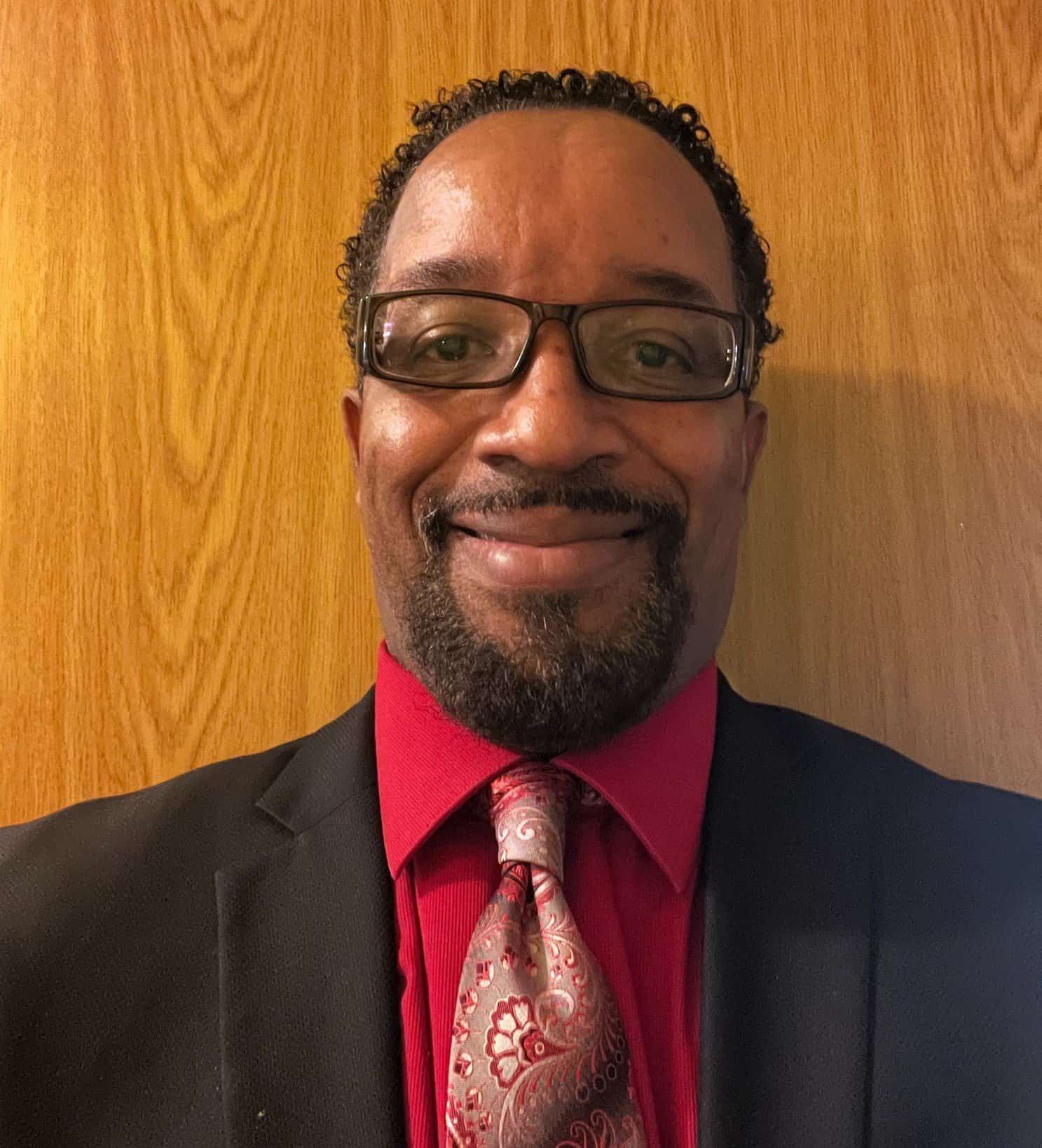
Sean Tolefree – Employee Labor Relations Director
“My team and I work with HHS management and the union partners to negotiate new contracts. If staff have difficulties understanding the language of the contract, our Employee Labor Relations team can help with that. The biggest thing I enjoy is that many times we’re faced with difficult issues that are not addressed in the contracts, but we work in a collaborative way to attempt to find a good resolution for all. That gives us a feeling of accomplishment.
I’m grateful that the landscape is changing as far as the diversity of leaders not just in Hennepin Healthcare, but other areas too. That makes me feel better because the greater the diversity means we have a wider lens and different voices to bring more experiences to the table. Then we can start shaping things that help the entire community. In the campus development plan, I see that we’re doing that. We’re talking with our management team, our leaders and different staff through forums, and HHS has been intentional in talking to the community to see what they want and need the hospital to be.”
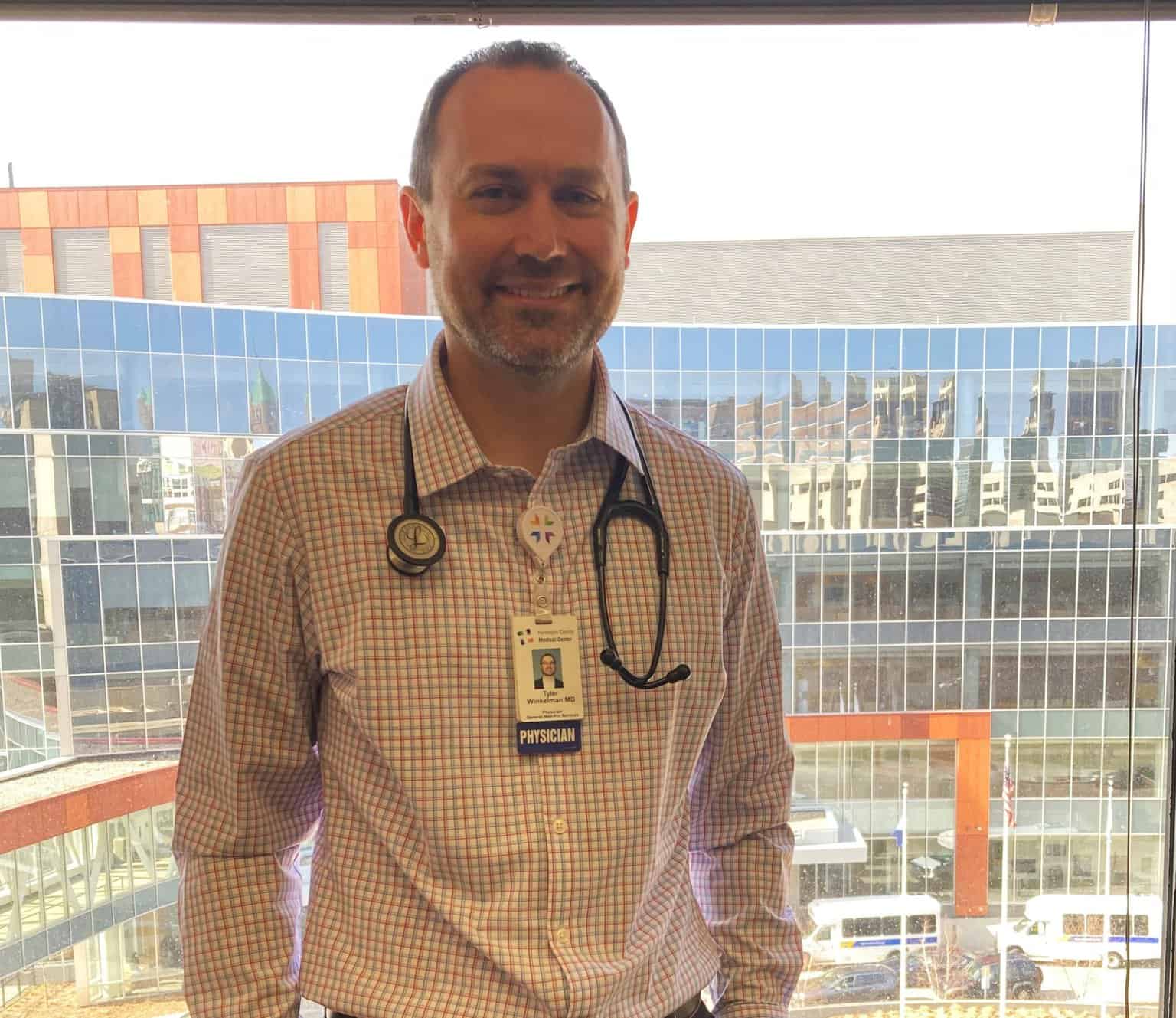
Tyler Winkelman, MD, MSc – Acute care, Internal Medicine
“I have the best job. I get to provide patient care, have some leadership responsibilities, and do research that’s not possible anywhere else in the country. I can blend all of those things to make a meaningful difference for our community. I think it’s using these tools to change structures and systems to improve health that is one of the rewarding pieces about working here. We fill a critical need in the community by taking care of everyone and ensuring that the care we provide is excellent.
The work here can be tough, and there’s absolutely no way that it would be possible without such amazing people who work here. In both general internal medicine and the research lab, there is so much excellence to be proud of. The providers in our division are some of the most brilliant clinicians and educators in the country. They’re here to serve the mission of this organization. I think we sometimes take for granted the amazing people that we have here. The people that I get to work with every day are some of the most extraordinary people I’ve ever been around.”
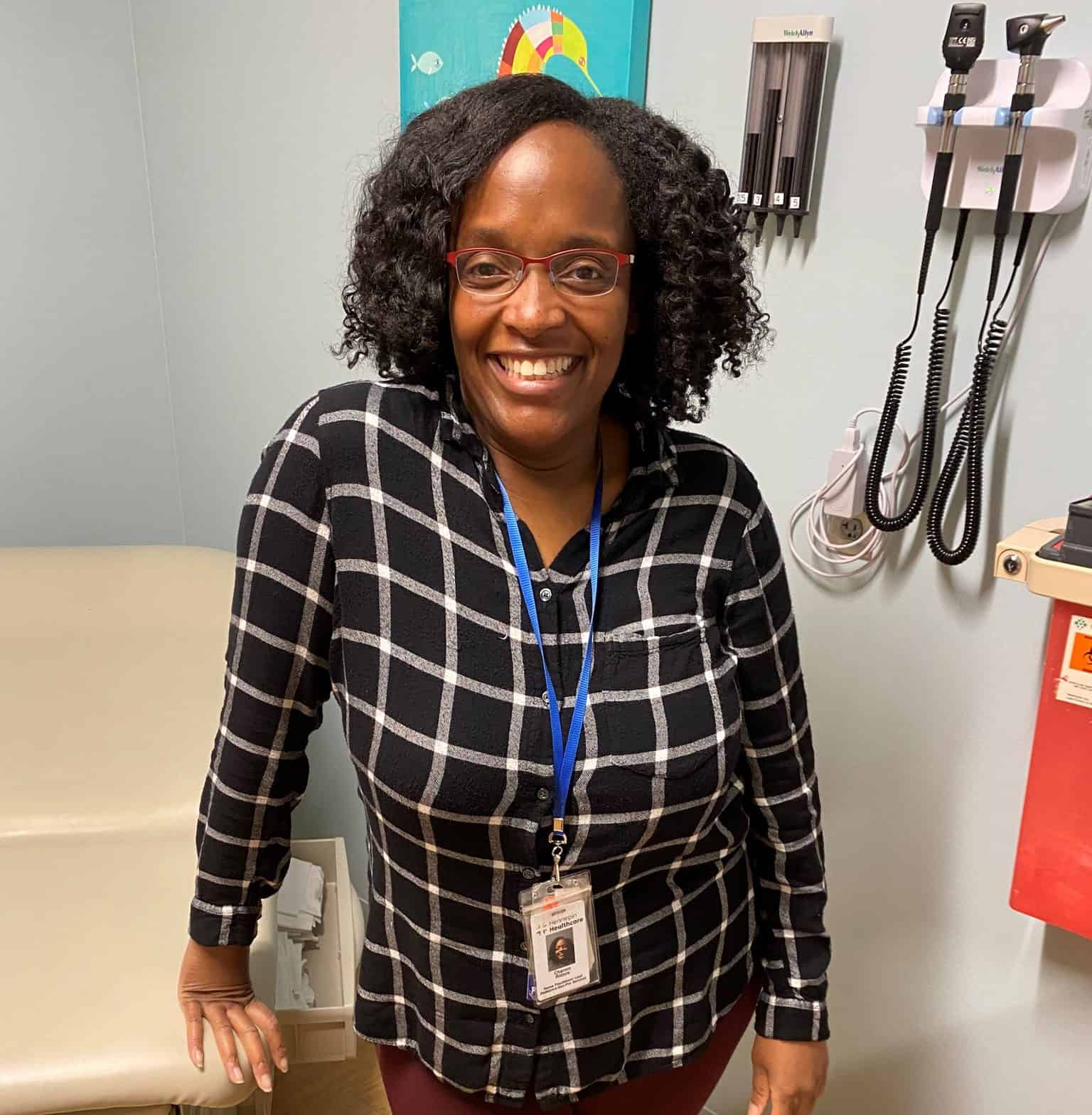
Chanon Ridore, NP – Pediatrics
“I think it’s important to gain trust with all of my patients by humanizing them. I want to eliminate the hierarchy that often exists between the patient and the provider by being relatable. I think that allows them to feel comfortable opening up to me and trusting that I’m not only coming from a place of medicine, but the place of a parent. Families appreciate when we can understand and empathize with their situations and challenges.
Working in pediatrics requires a special personality because it can be stressful. Not all of the patients can speak yet and tell you what’s wrong. While that can be challenging, it’s truly rewarding. It takes a lot of grace. And I’m working with a great team that exemplifies that.”
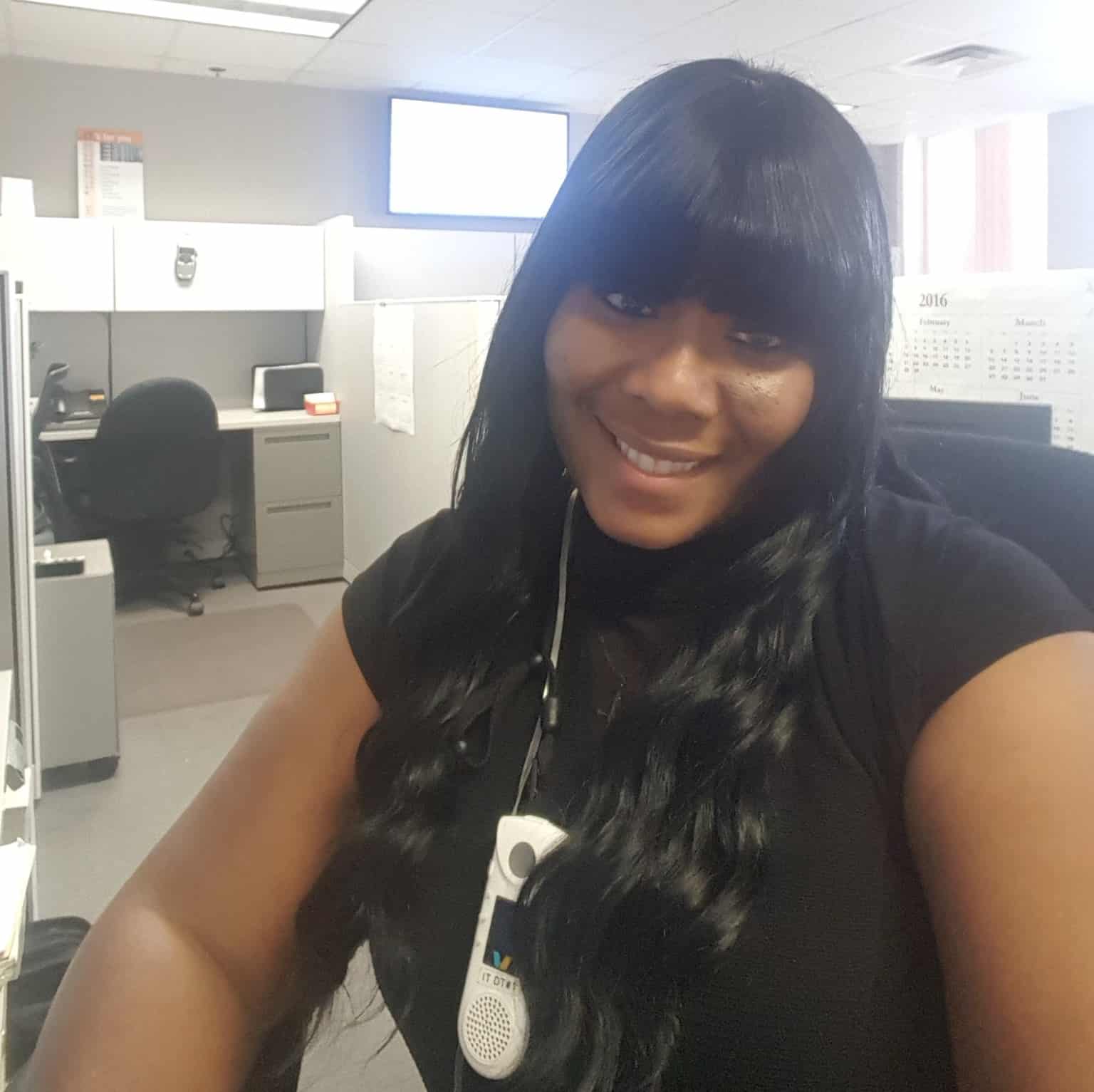
Linda Collins – Desktop Analyst, IT
“In IT Desktop, I’m the only woman. People usually recognize me by either my nails or hair – I like to change them up! I’ve been here since 1998, so I’ve seen major technology changes. We used to have big, clunky computers – they looked like box fans. Now our computers are about half the size of a standard piece of paper, and we have more wireless devices. When someone needed test results, they used to have to wait for a phone call. Now, providers can enter orders and check test results in Epic. Nurses have an easy way to document instead of walking around with pieces of paper in their pockets.
All of us are someone’s customer. Extending care and compassion for others the way we do here matters to me. I like knowing that what I do matters, whether it’s unlocking a password, installing software, or setting up a Zoom meeting for someone. I can help make some part of a provider’s day easy.”
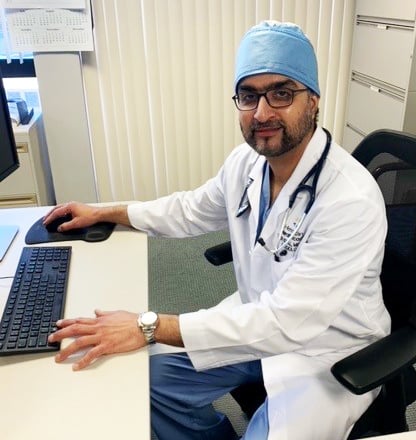
Omer Iqbal, MD, FHRS – Cardiology
“In the simplest terms, I’m an electrician of the heart. When people think of the heart, they typically think of heart attacks caused by blockages, but there’s a lot of people who don’t know about rhythm disorder. It can be life threatening. There are different types, and we treat all of them. I’ve worked at several other high-end institutions, and there is nothing in terms of equipment and technology that we don’t have in order to diagnose and treat those disorders. I’m proud to say that we can provide treatments that patients may not get otherwise.”
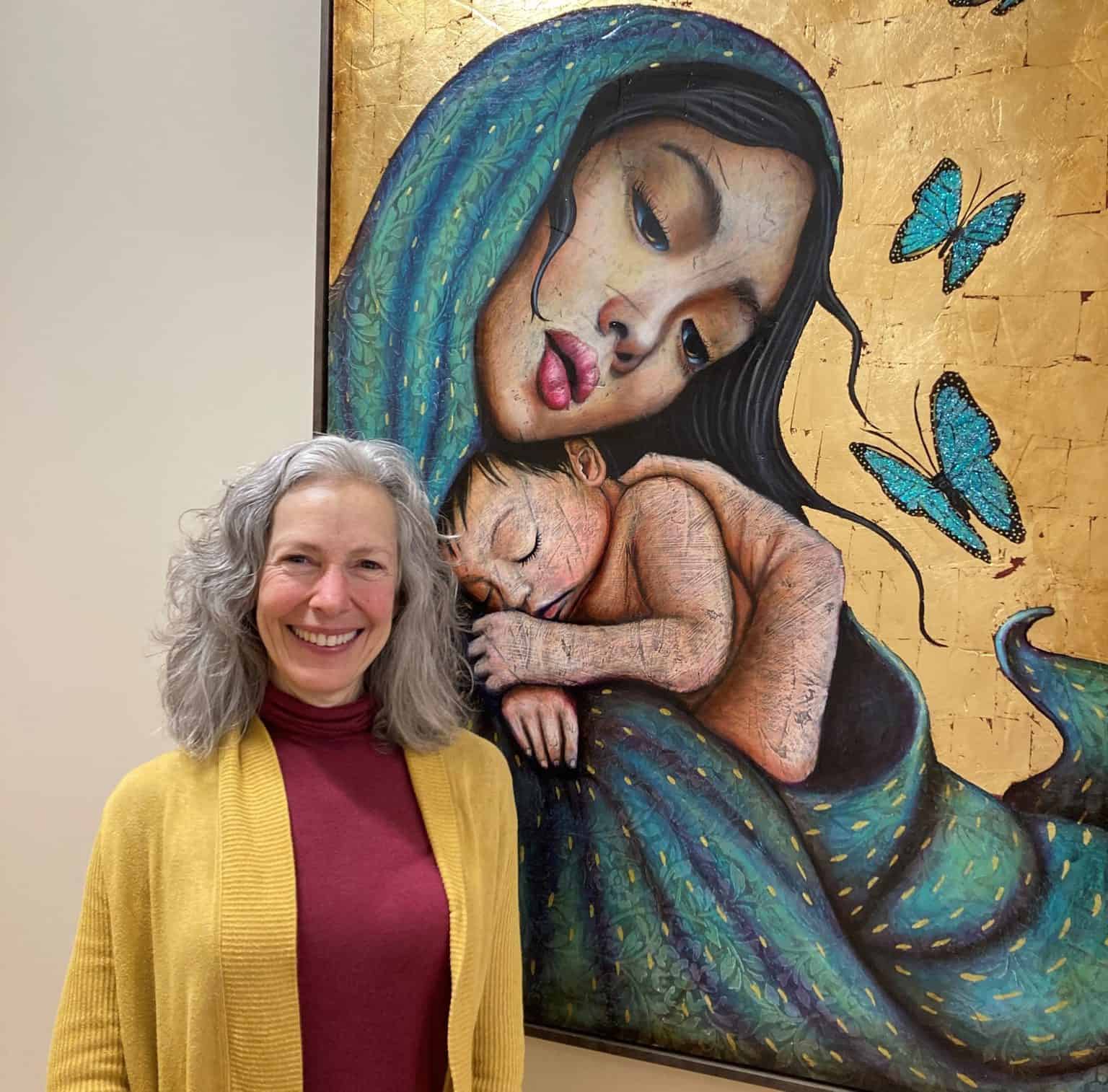
Barbara Lordi – Volunteer, Redleaf Center
“I’ve worked with toddlers and infants and their families my whole career. Over the course of the mother’s program, I get to know them and their babies. I support mothers during their day at the hospital by holding or playing with their babies when they need a break and settling or consoling their babies. It’s gratifying to point out a child’s new development milestones and skills. I love answering questions and helping moms learn about their babies in new ways. There are so many spontaneous teaching opportunities.
Because of the pandemic, I feel that volunteer work is even more important. The pandemic highlighted how important is it to be in community and support people. Everyone has a part. People are dealing with trauma but there’s joy, too, in working together for a common good. I’m really inspired when I see new moms support each other. Watching babies change and grow over a few weeks is fantastic. I’m grateful there’s a program like this supporting families during a difficult time, and I’m lucky to contribute.”
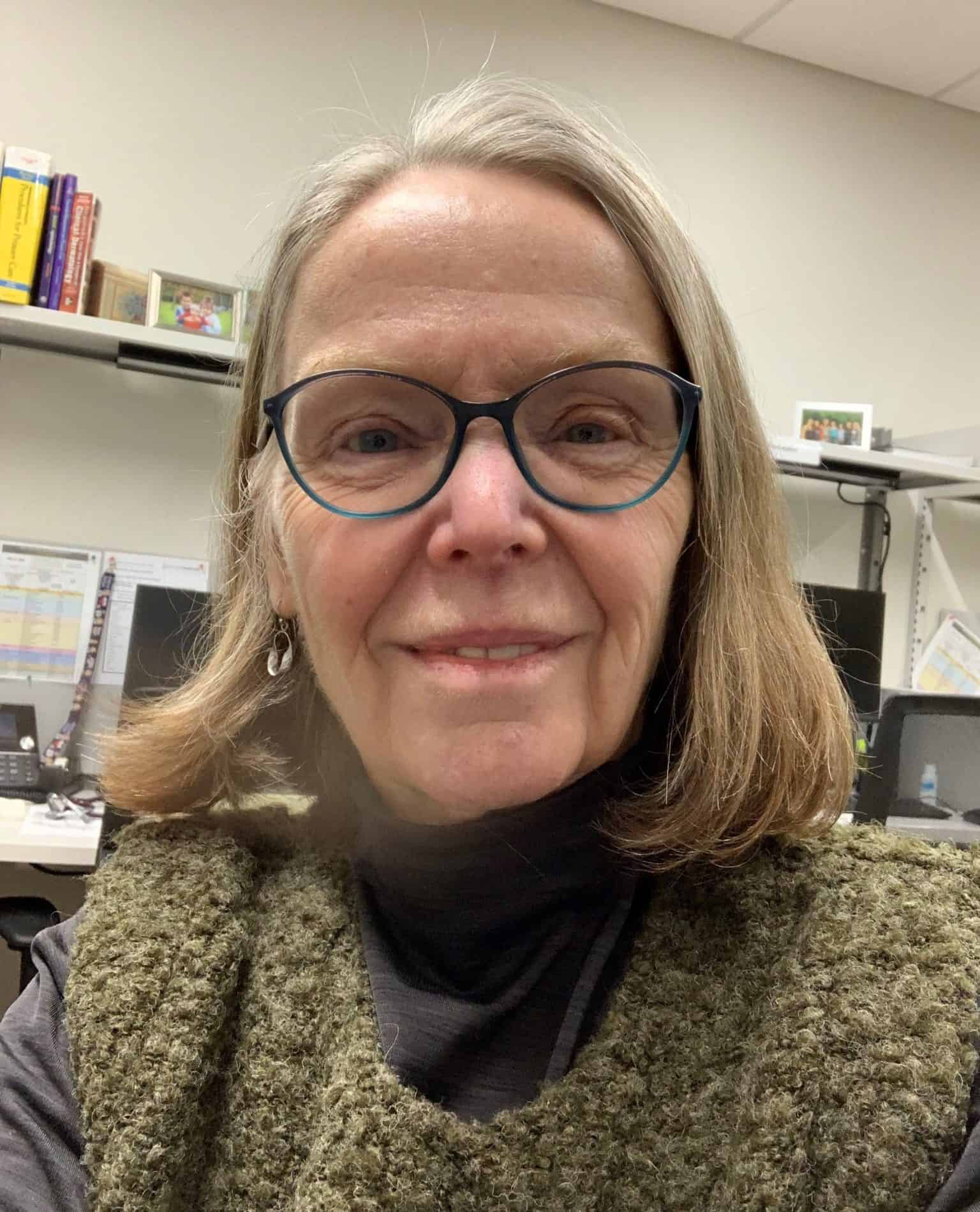
Eileen Kerr, PA – East Lake Clinic
“When our clinic was destroyed in protests after George Floyd’s murder, Whittier Clinic was very kind in hosting us while we were reestablished. Our new space opened a few months ago. We all felt an opportunity for it to be the clinic we want it to be. It’s hard to address bias when you work in a caste system – and healthcare is a caste system. At East Lake Clinic, we are aware of this and work hard to combat that.
The biggest benefit of our new space is the incredible view we have of downtown Minneapolis. The clinic is so open and bright. We feel more connected to the community. We’re so grateful, especially for the beautiful rooms. We were gifted a number of precious pieces of art. It’s like walking through a museum. If I have a minute, I walk through the clinic to look at the art – the way it’s all arranged is incredible.”
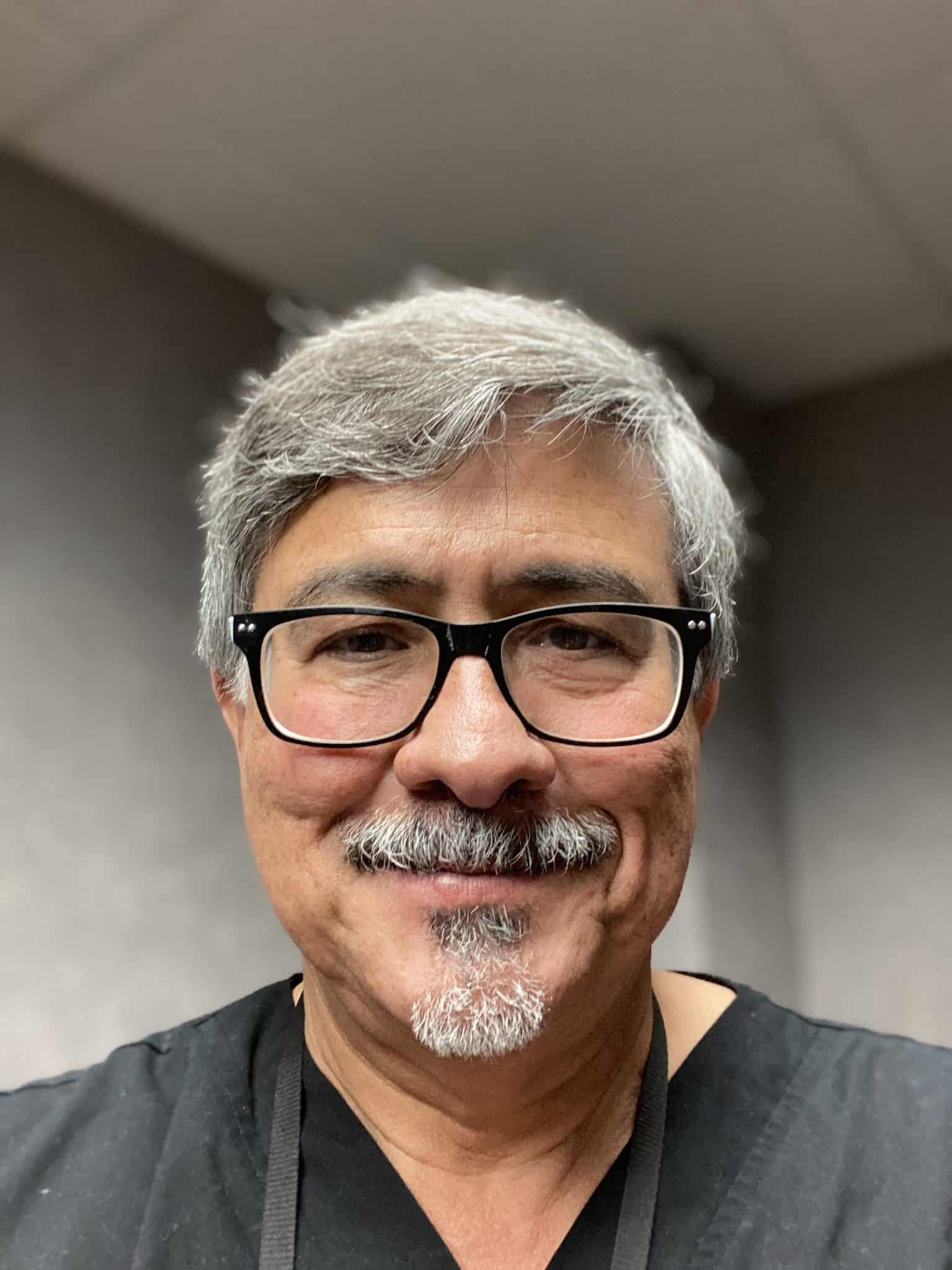
Eduardo Colón, MD – Adult Psychiatry Clinic
“Between my work in consultation service and the clinic, it’s clear that there’s increasing levels of distress with increasing need for services and care. We have seen a surge in relapses in people with substance abuse disorders and worsening depression and anxiety. This all comes at a time when access to services is limited. We’ve had to limit inpatient beds to prevent the spread of COVID-19, and caseloads in outpatient services are increasing. That results in backups, which creates stress for both patients and providers. We’ll be seeing the consequences of this for a while.
I work at Hennepin Healthcare because of our mission. Working with people struggling with so many social and medical stressors makes it challenging, and at times frustrating, but it also makes it gratifying. That’s why we’re here. The teaching mission is crucial to our community. There is a sense of belonging to a group with a common goal and a variety of skills. Everybody is truly invested in what they do here.”
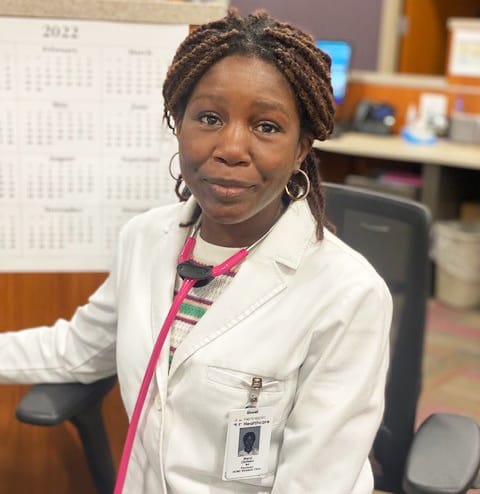
Manji Osifeso, MD – Internal Medicine, Geriatrics & Senior Care, Richfield Clinic
“I specialize in geriatric care because many of our patients are in that age range. I didn’t want them to be placed in the general adult patient category. By the time they get to an older age, they’ve faced many challenges and I want to make sure we give them excellent healthcare.
I’m thankful I’ve been able to work at HCMC and take care of a wide range of challenges cases. That’s what medicine is all about – managing both the simple and complex. You learn and grow from that.”
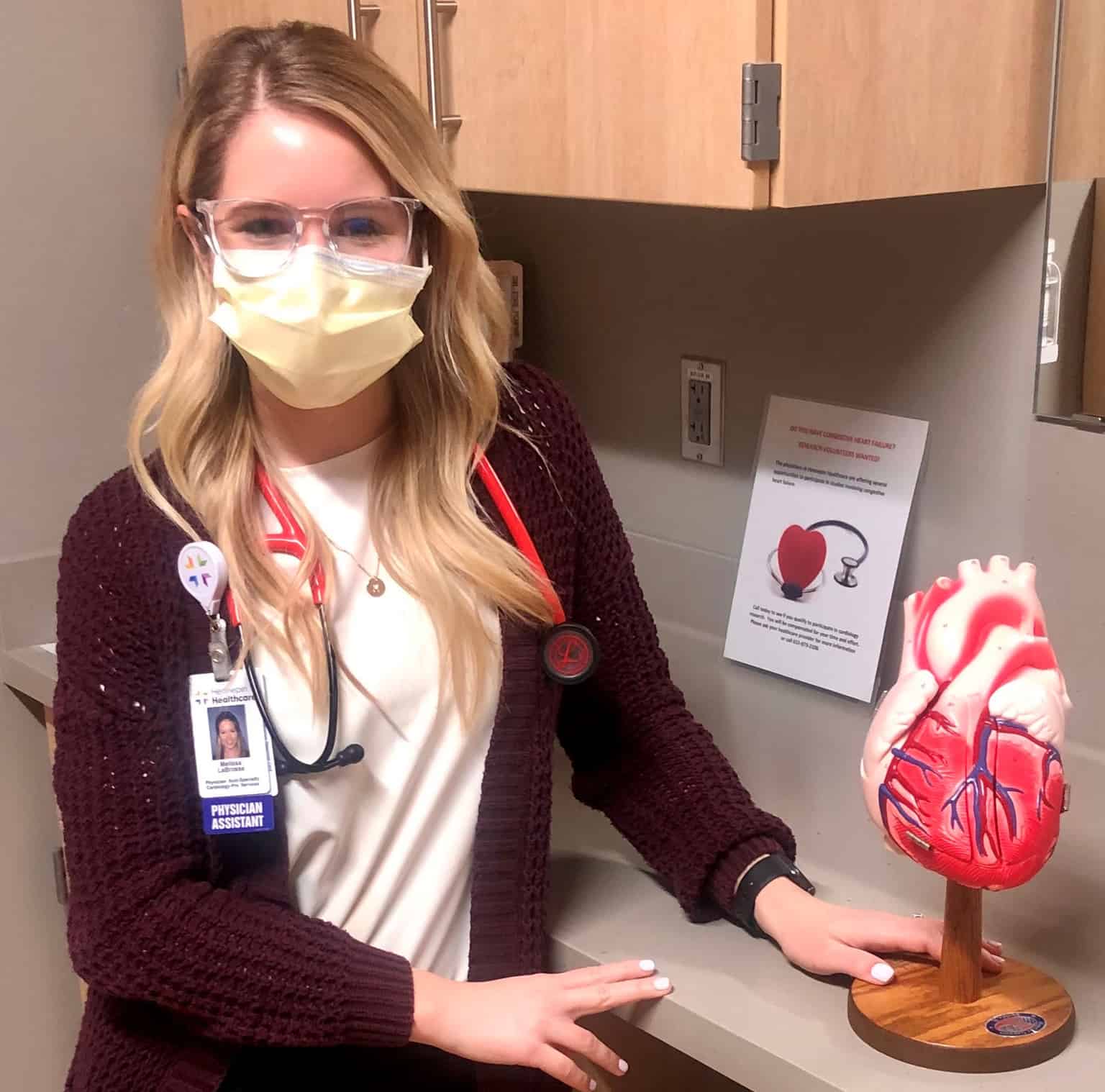
Melissa LaBrosse, PA-C, MPAS – Cardiology
“I get to see patients both in the hospital and when they’re in clinic. As a provider, it’s always satisfying to see how much better our patients look and hear how their quality of life has improved. Getting to know our patients and working with them to improve their daily life, whether that’s playing with their grandchildren or walking on the golf course, is really rewarding.
In the cardiology department, we educate our patients on their heart conditions and our recommendations. When patients understand their condition and why we want to do certain things, they trust us as their provider.”
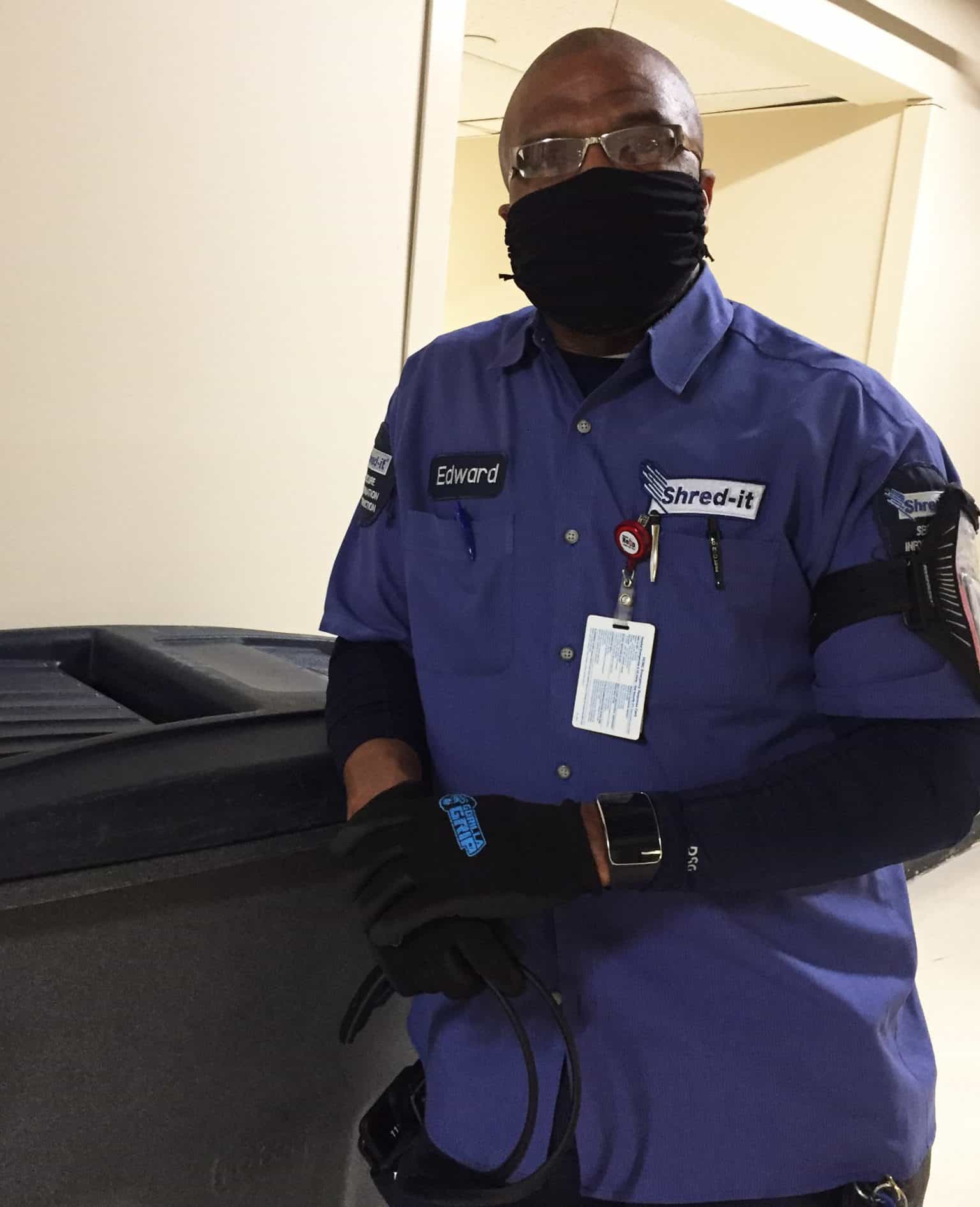
Edward Thornton – Shred-It Vendor
“Shred-It collects and removes all confidential information for the entire hospital. That means I walk 25 miles a day going from department-to-department Monday through Thursday. Lots of peanut M&Ms give me the energy to walk that much!
I’ve been here going on 10 years now, so I’ve gotten to know a lot of the staff members. It’s a warm feeling – we share family stories. I see some of them outside of work when my kids play sports. Their kids are playing right by my kids. You really have to be a loving person to care for so many different patients on a daily basis. Watching the providers and nurses has been amazing for me.”
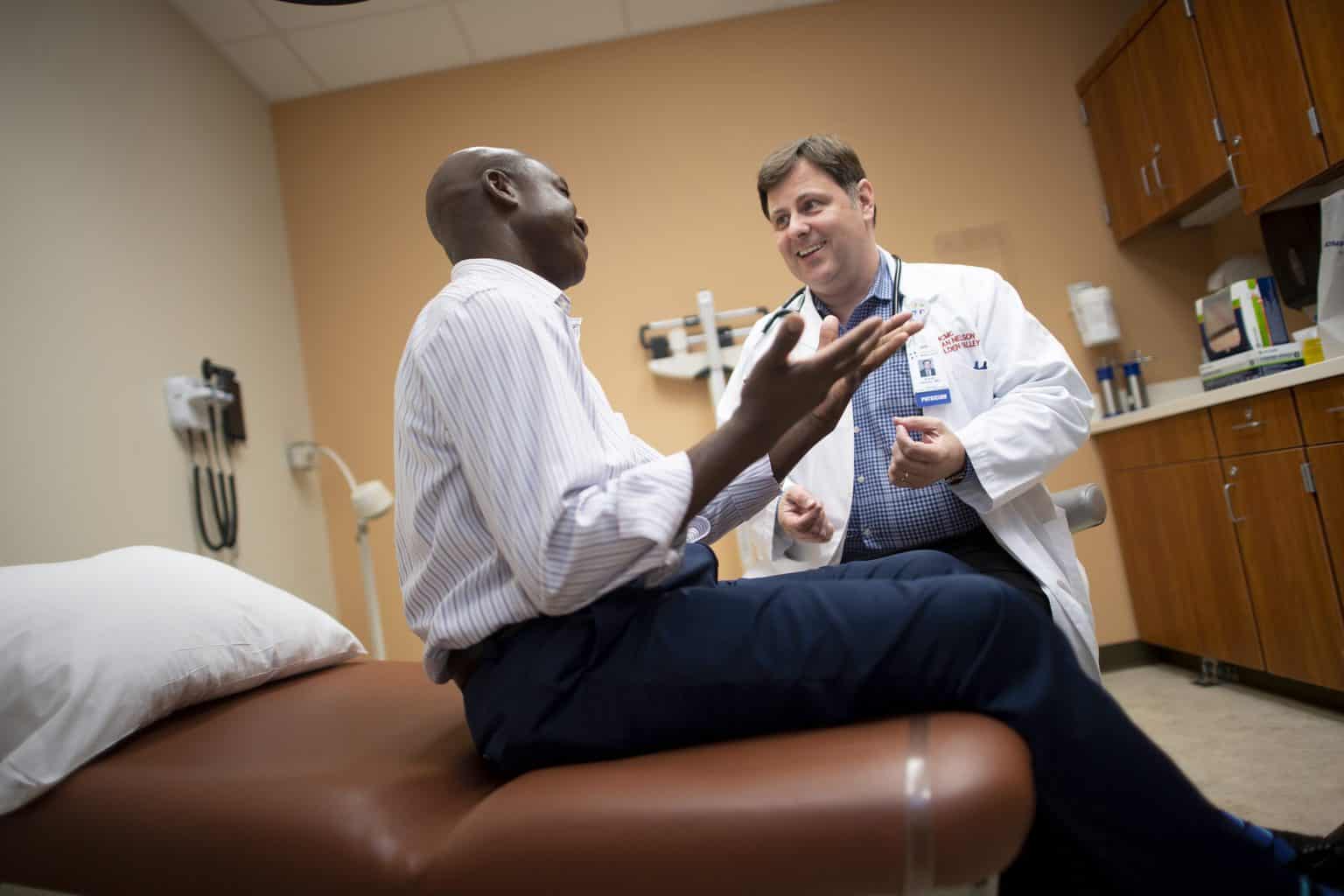
Bryan Nelson, MD – Golden Valley Clinic
“Back in my college days, my grandfather in Missouri had several medical problems. Things didn’t go as well as they could have. That drove me to the medical field. I found that I enjoyed a wide variety of things, which is how I came to family practice. I have over time pivoted how I approach patient visits. I consider myself a healthcare advisor. That helps patients feel more comfortable and more involved in trying to achieve their health goals.”
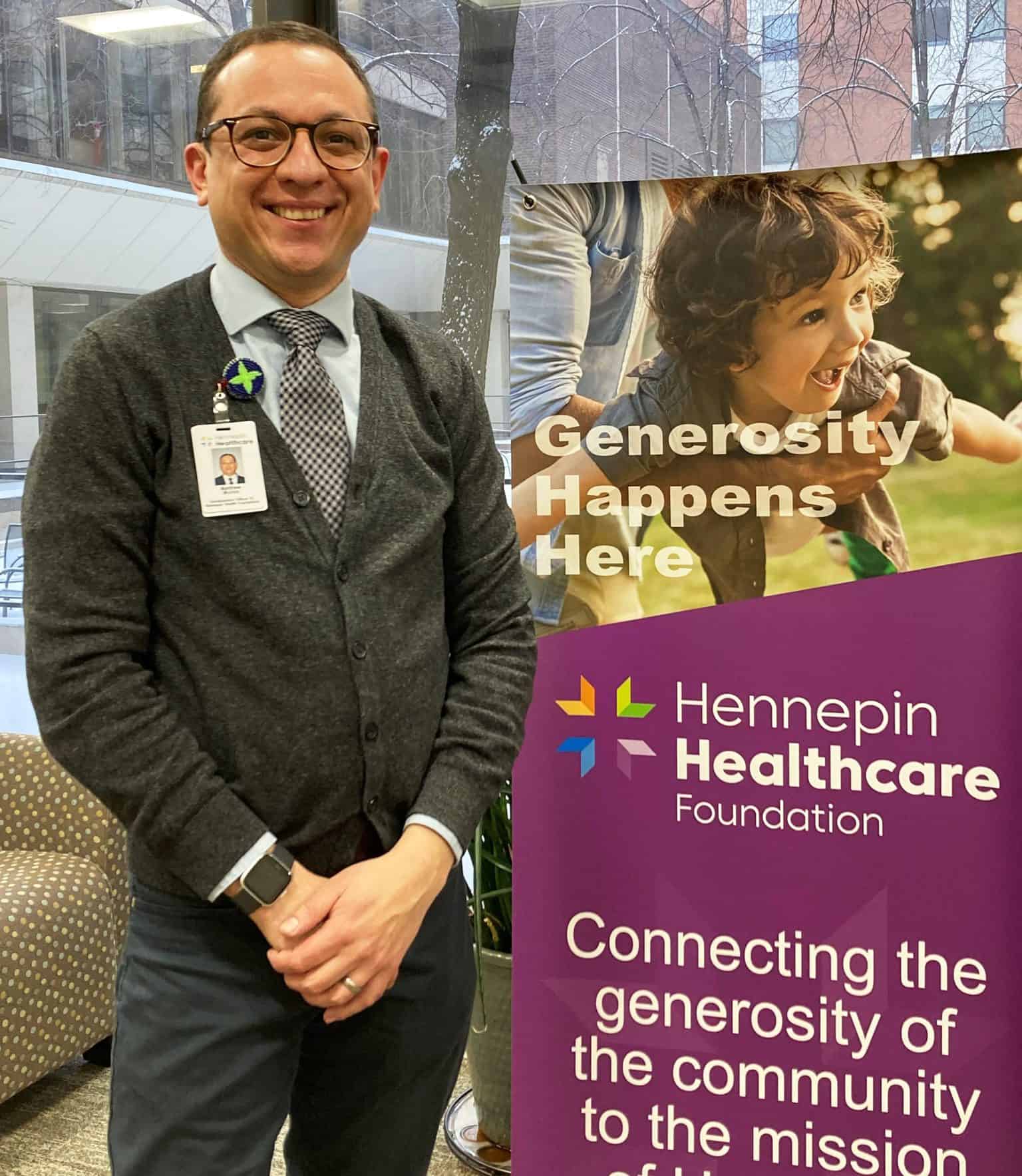
Matt Munoz – Development Officer, Foundation
“In Spanish, when you say ‘thank you,’ the return is not ‘you’re welcome.’ It’s ‘it was nothing.’ A lot of people here, and they might not be aware of it, are wired to say ‘it was nothing.’ I can feel gratitude when people stop and take the time to talk about their Hennepin experience and how the Foundation has enhanced their personal or professional experience. They’re expressing their gratitude through their story.
My job is to take our provider’s passion and mission and find how philanthropy can achieve their goals. That’s really what the Foundation is set up to do. We are helping Hennepin Healthcare play a role in change in the communities we serve.”
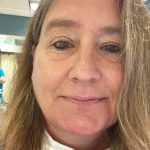
Tami Herrmann, NP – Emergency Department
“I had a young patient who overdosed. We see a lot of those cases. I checked on him multiple times throughout the night. When he was being discharged at the end of the night, he found me and thanked me for caring about him, for worrying about him. It really made me feel good. That was gratitude. Not everybody does that.”
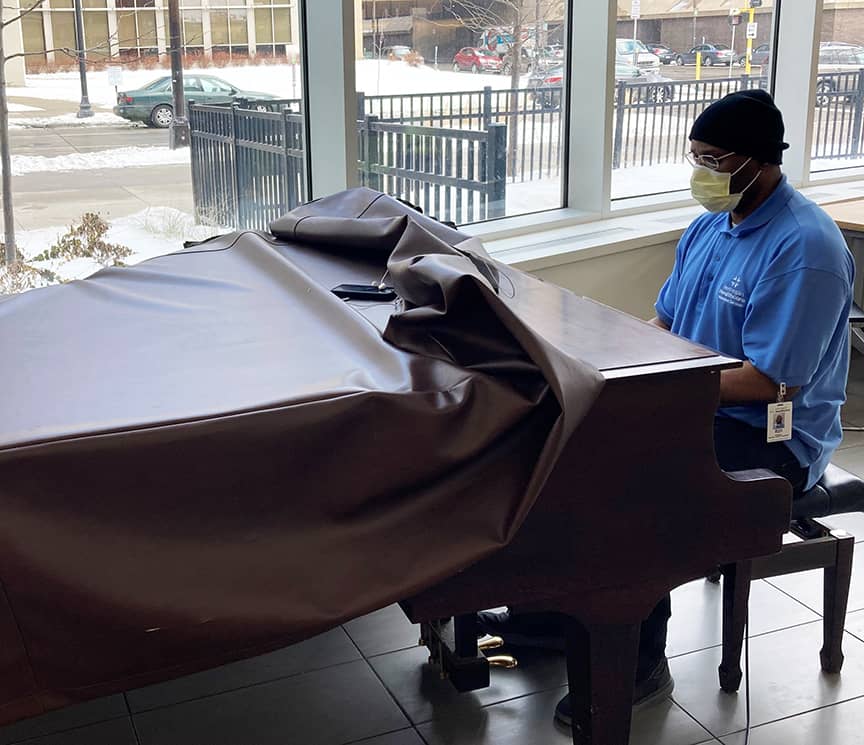
Michael Wiggins – Volunteer, piano player
“Playing the piano in the Clinic and Specialty Center has been an amazing experience. Patients and their loved ones tell me that hearing the music helps, that it touches them. I’ve noticed one common thing with every reaction from people – they reflect on their childhood. To know that I have something to give to make people feel better, even if it’s just for a moment, is an honor.
I try to play music that’s a balance. People are in different types of moods, so I try to create a calm atmosphere. I had no idea the response I would get. I know music has an effect on people, but I didn’t realize my music could heal the mind until now.”
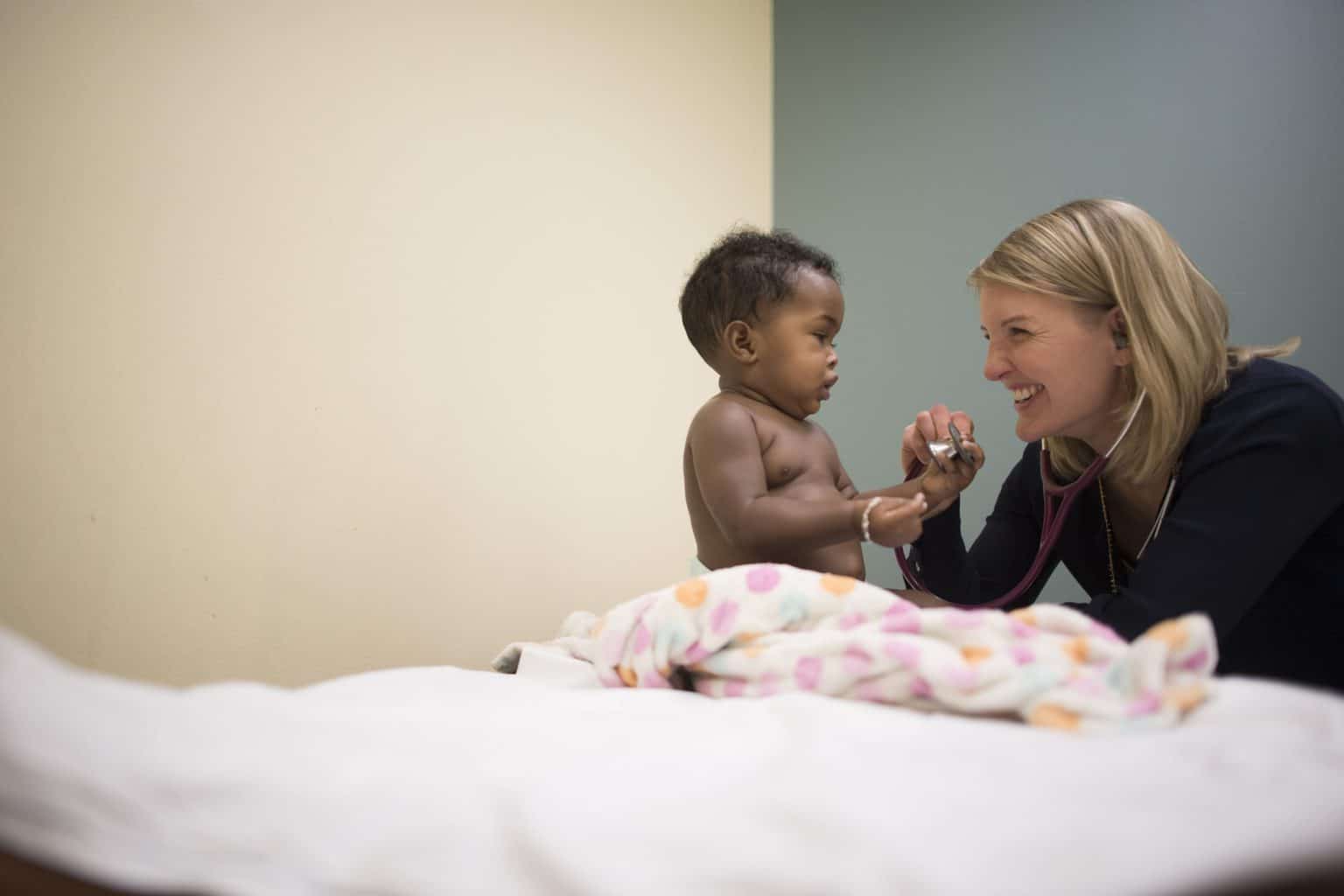
Sonja Colianni, MD – Pediatrics
“Since second grade, I knew I wanted to be a pediatrician. Kids’ energy and enthusiasm was what drew me, and then seeing my own pediatrician’s ability to help and support families. I was the weird kid that always looked forward to going to the doctor!
I enjoy seeing families grow throughout the years and serving as their source of information about health issues. It’s an honor that people place that trust in me, that I can be involved in such formative years in a child’s life.”
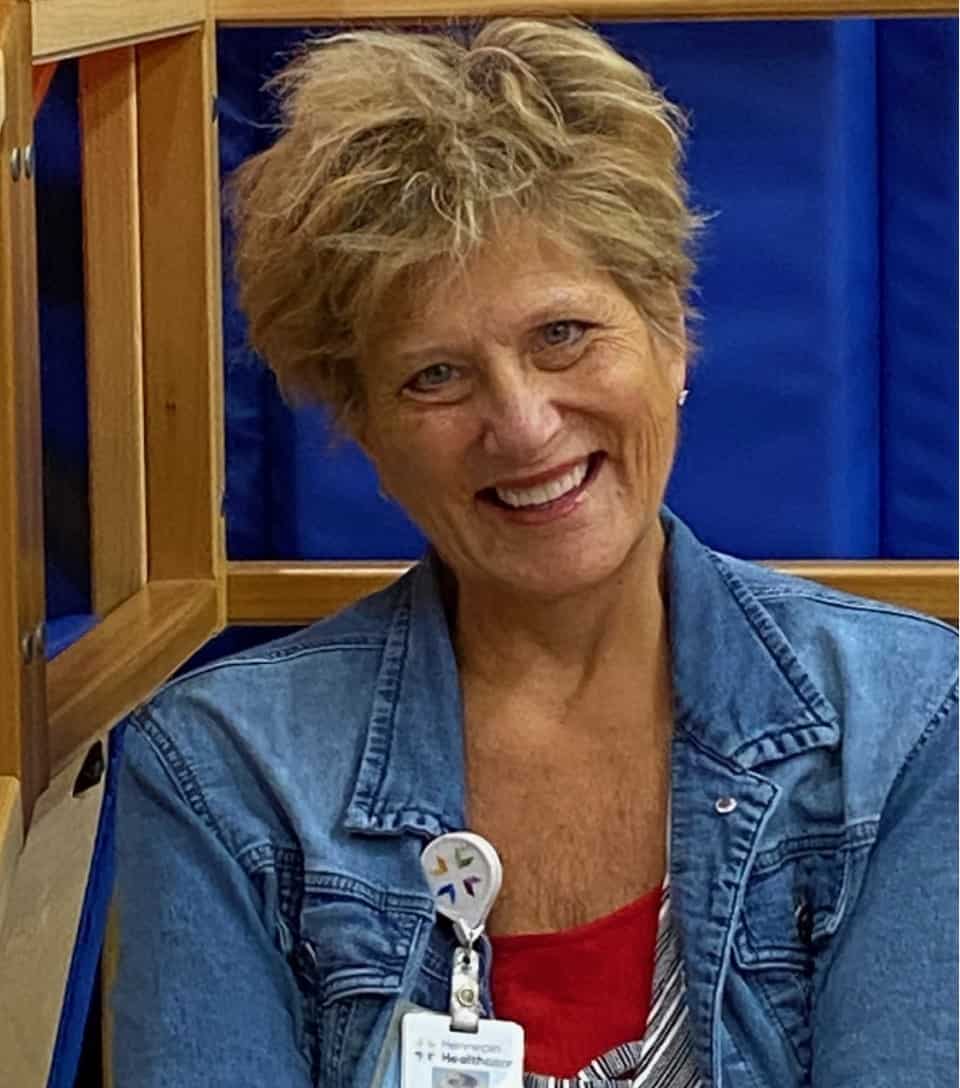
Sue Hieb Stewart, OTR/L, C/NDT - Pediatric Occupational Therapist
“One of my favorite quotes is ‘We do not quit playing because we grow old. We grow old because we quit playing.’ It looks like I get to play all day, but everything I do with the kids has a purpose.
When my pediatric patients come to see me, they are coming to ‘boot camp.’ They will be asked to work hard to make developmental changes, and most will make amazing improvements. The rewards are incredible.”
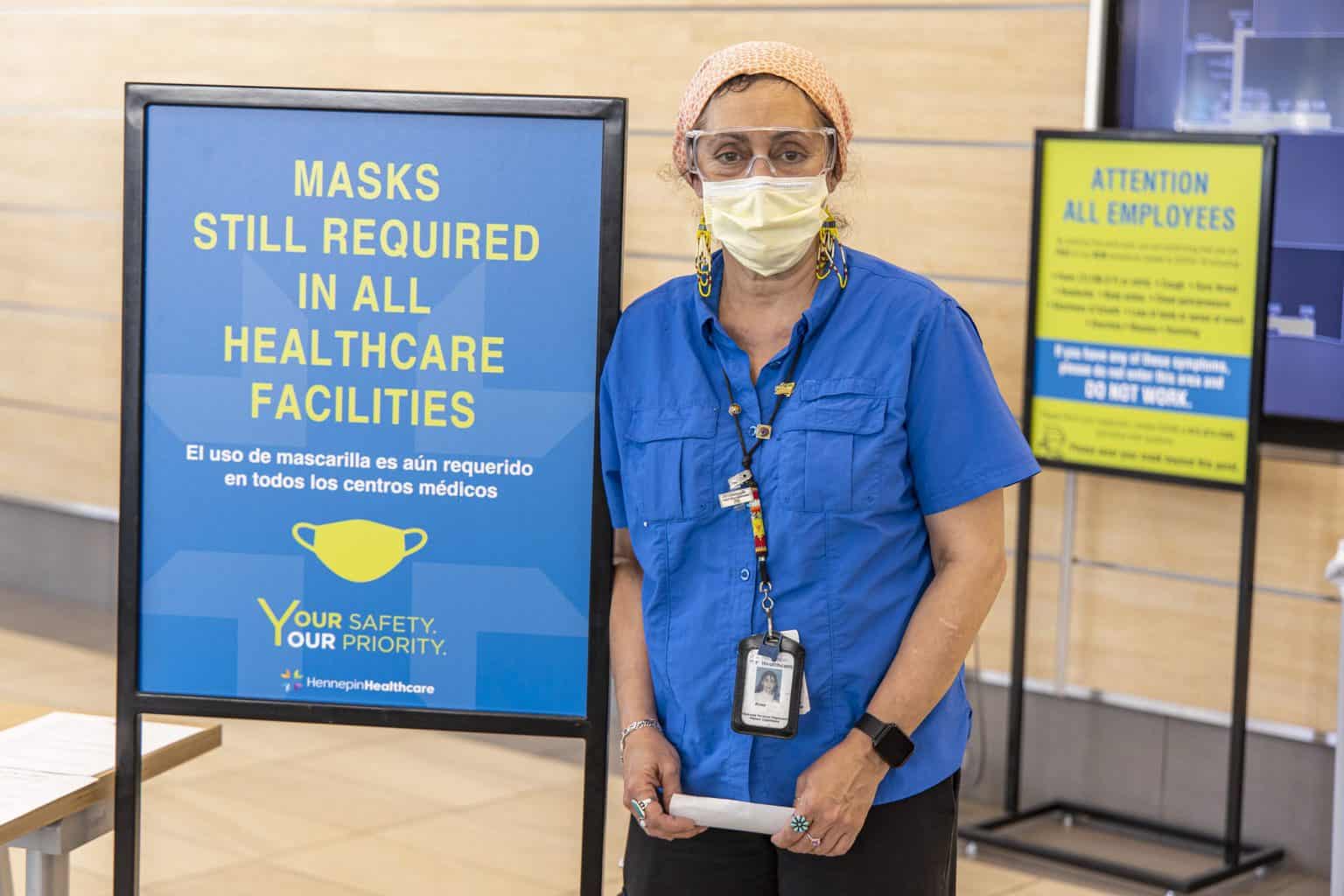
Rosemarie Heron – Welcome Services
“In my Native American culture, we emphasize learning patience and respect. It’s important for me to remember that we are all equal and we’re all connected in some way. I’m also Buddhist and there’s similar teachings. With those two identities, it can be tough, but I remember that everyone has a good quality within them, even if it’s blinded for the day.
For my community, knowing that I’m here is important to them because there’s not many of my skin color or culture here. They might be a little hesitant about asking for help. I come from where they come from. I feel gratitude that I’m here and able to say ‘I hear you.’ That’s important to them.”
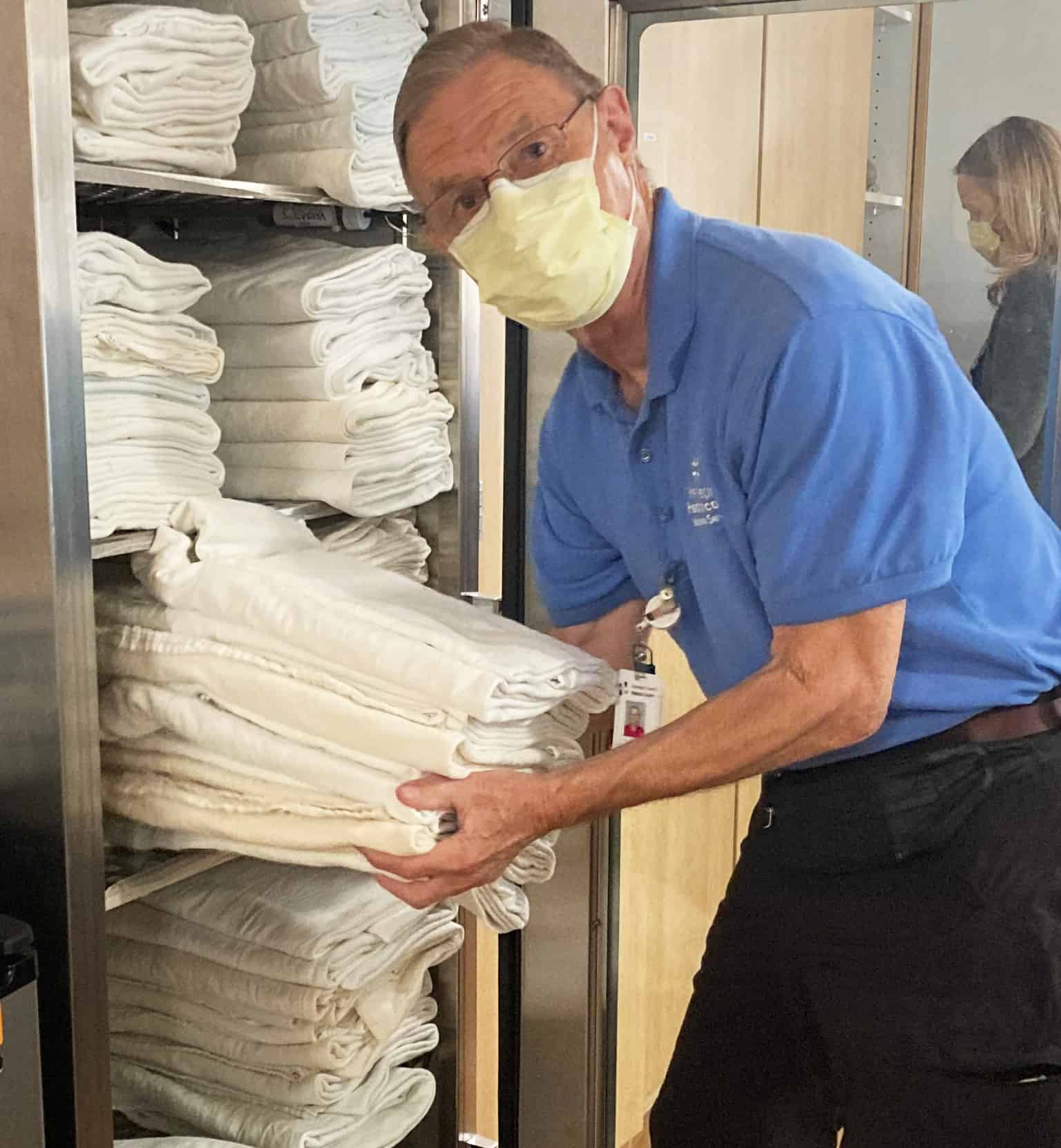
Jim Parkin – Volunteer, infusion room
“I missed the comradery of the patients and the nurses, and the feeling that I’m doing some good for everybody involved. It’s been wonderful to see some of the patients I knew from pre-pandemic.
I’m known as the malt man. Our repeat patients know that the cafeteria usually offers milkshakes at 11 a.m. Bringing milkshakes to the patients is one of the high points of my day.”
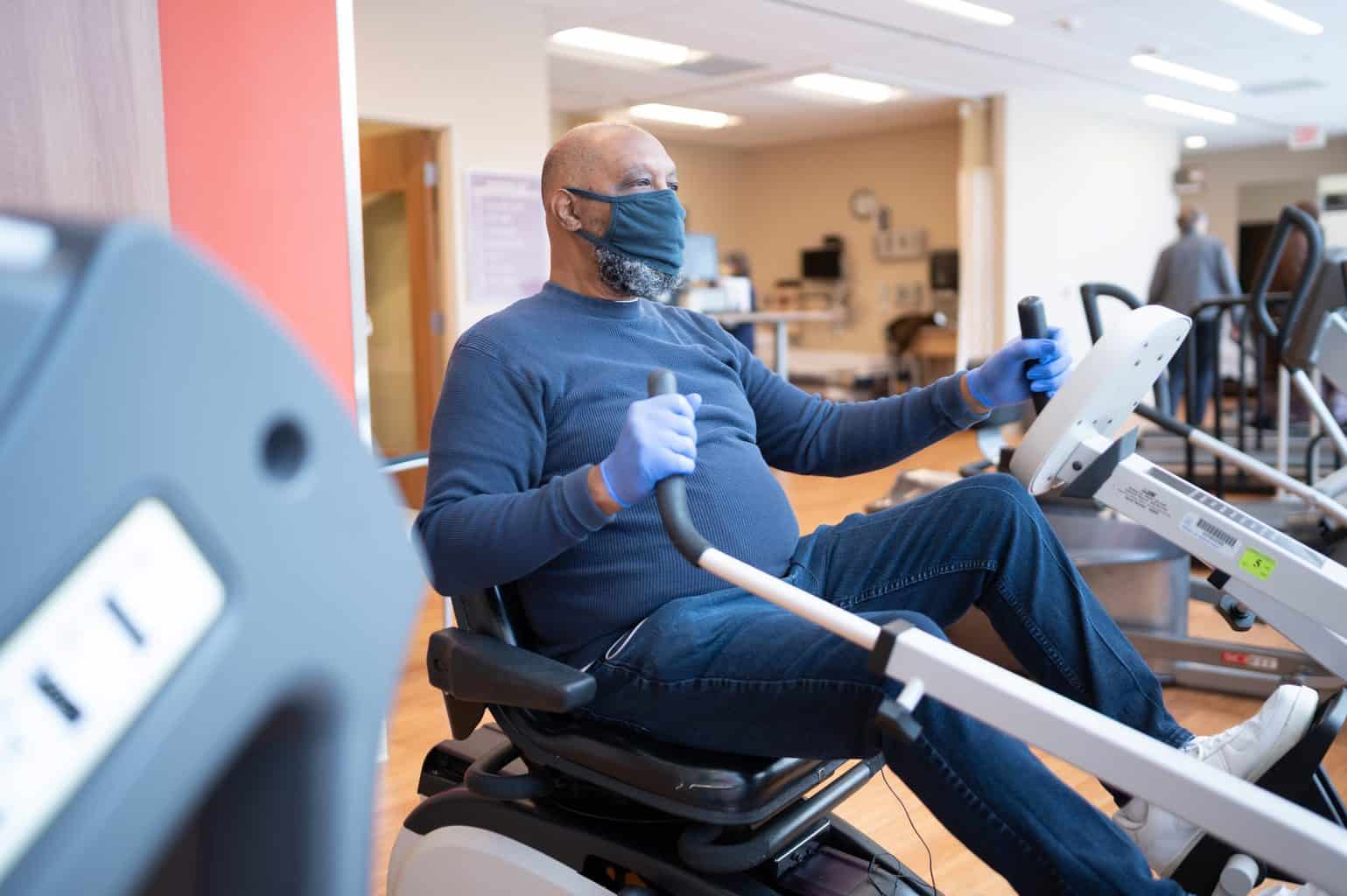
James Toliver – Patient
I had problems with my breathing, not knowing I was having a heart attack. I went to the ED and they found a blocked artery. Not once but twice, then I had bypass surgery. The whole process was scary. I was healthy before my heart attack, now I look at life differently. I am grateful to cardiac rehab, they got me back on my feet. They give you all the tools, you just have to bring the positive attitude. It doesn’t hurt to be kind. I can walk longer now than I ever did before. I’m back to doing normal things and being engaged with life.
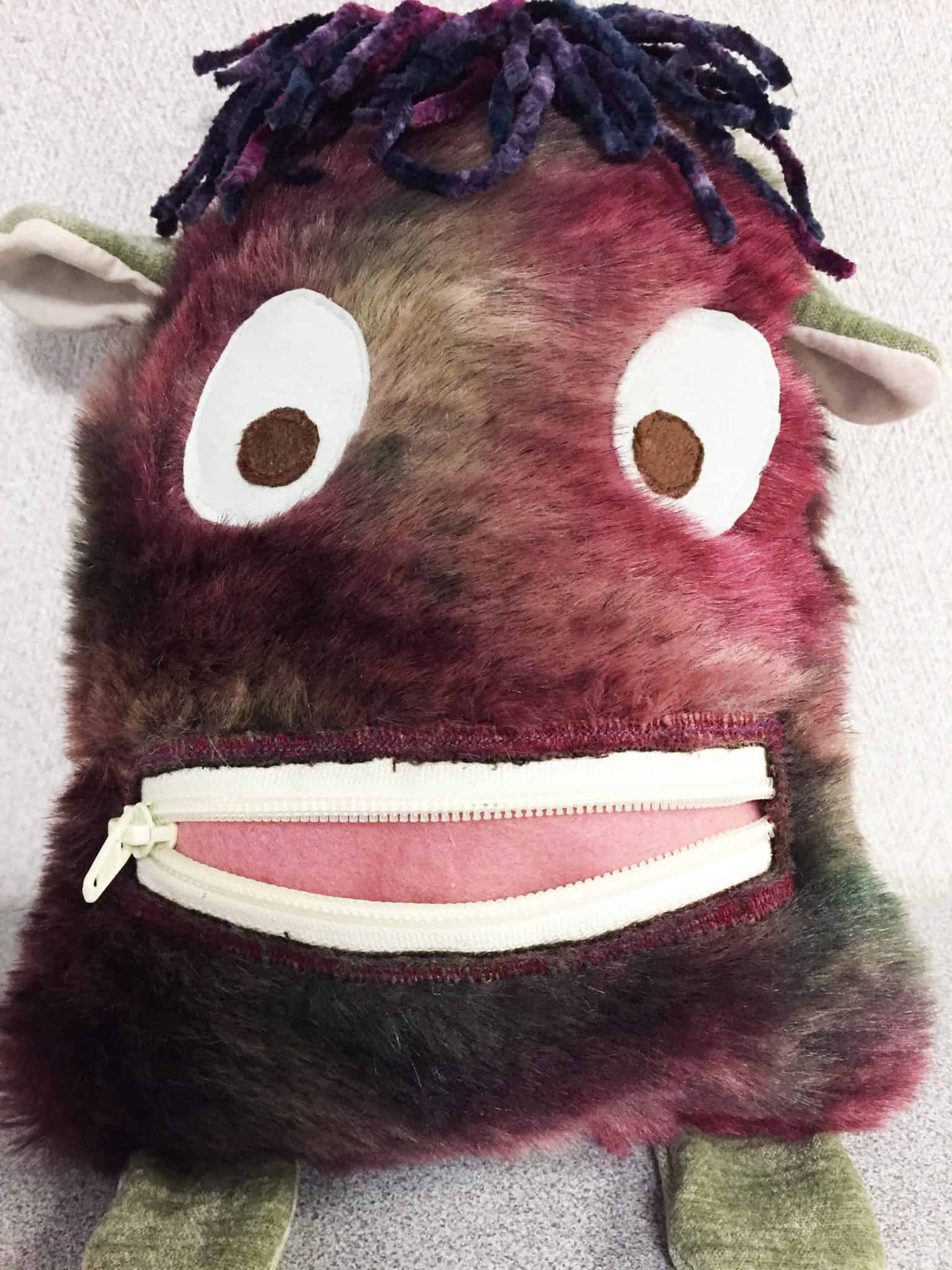
Worry Monster – Pediatrics
“I am not a human, but I help humans at Hennepin Healthcare. They call me a Worry Monster – my friends and I have been a welcome addition to Hennepin Healthcare since July, thanks to some creative sewers. We get to work with kids all day by helping them feel brave and overcome their fears. Sometimes, they’re nervous about an upcoming surgery, appointment, or anything else at home or school. These things can be scary, but we eat up their worries. Our kids write their worries on a piece of paper, zip us open, and stuff it inside us – delicious! Then, a trusted adult, maybe a family member or favorite nurse, will open us and take a worry out to talk about it.
Our favorite part about being a Worry Monster is seeing our kids go from anxious to confidently facing their worries. They are so brave – we love helping kids at Hennepin Healthcare!
P.S. We have been known to gobble up the worries of adults too, especially those struggling with mental health!”
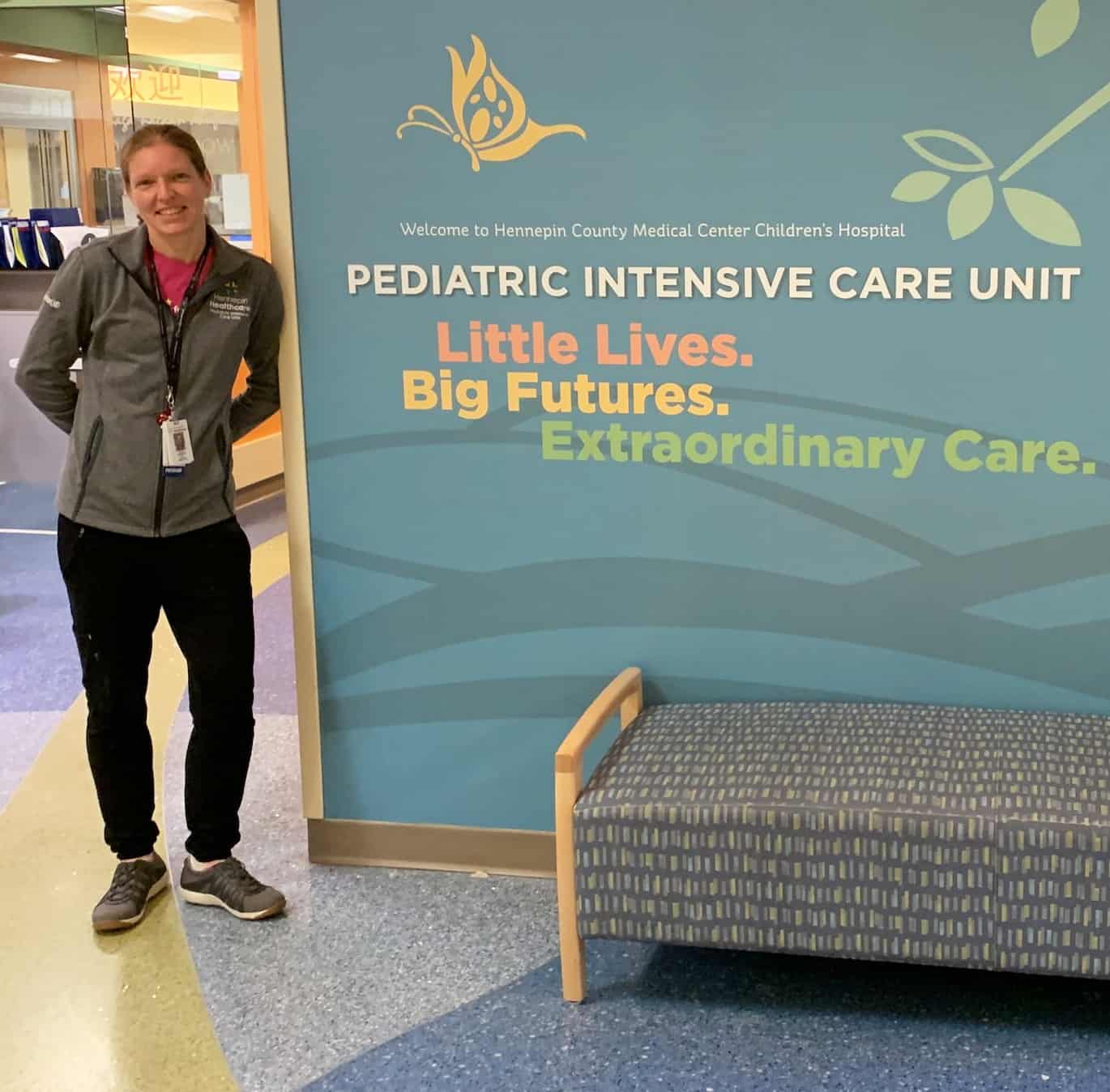
Ashley Bjorklund, MD – Pediatric Intensive Care Unit
“I enjoy partnering with families to improve whatever ailment has brought their child into the hospital. We’re there during a family’s toughest time – when their child is critically ill in the ICU. It is often heartbreaking, but also brings the opportunity to ease suffering as we help families understand what’s happening with their child and show them we are doing everything we can to get them through their illness. We fight together for those little lives.
My favorite moment is when we get to take out the breathing tube of a child who has been critically ill and on a ventilator, but no longer needs that support. It brings me so much joy to put them back in their family’s arms and to see them begin to interact with their family again.”
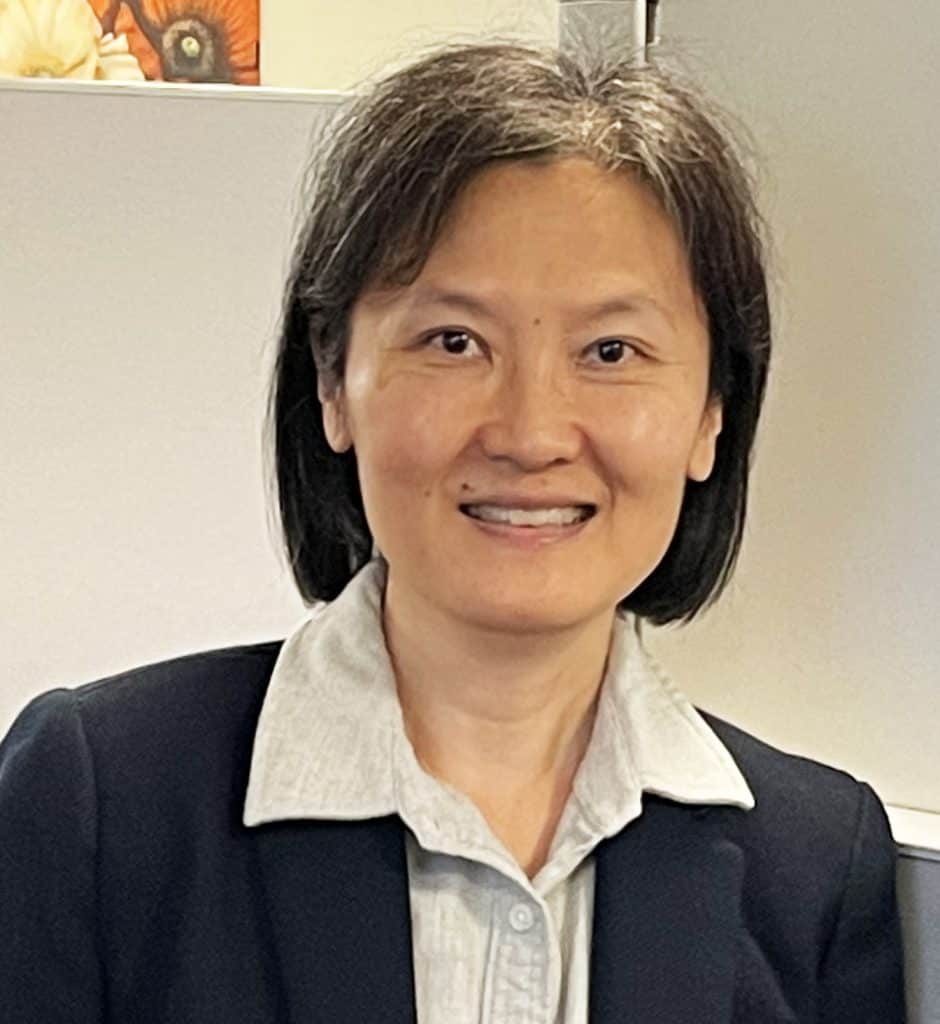
Connie Wang, MD – Nephrology
“It’s rewarding to witness patients with kidney disease go through the steps of dialysis and then successful kidney transplantation. They go from feeling ill to energetic, from disappointment to rejuvenation. It’s never boring to watch this process over and over again.
In that process, language barriers are common. We have interpreters, but health literacy is another battle. In a health setting where most patients are covered by private insurance, patients have probably already researched their diagnosis and the conversation is how to improve management. However, we often encounter patients who are unaware of chronic conditions afflicting them. Our goals are to convince them of the severity of the condition and reduce the anxiety they have about the healthcare system before we can move to management. We are proud that we have improved so many patient lives.”
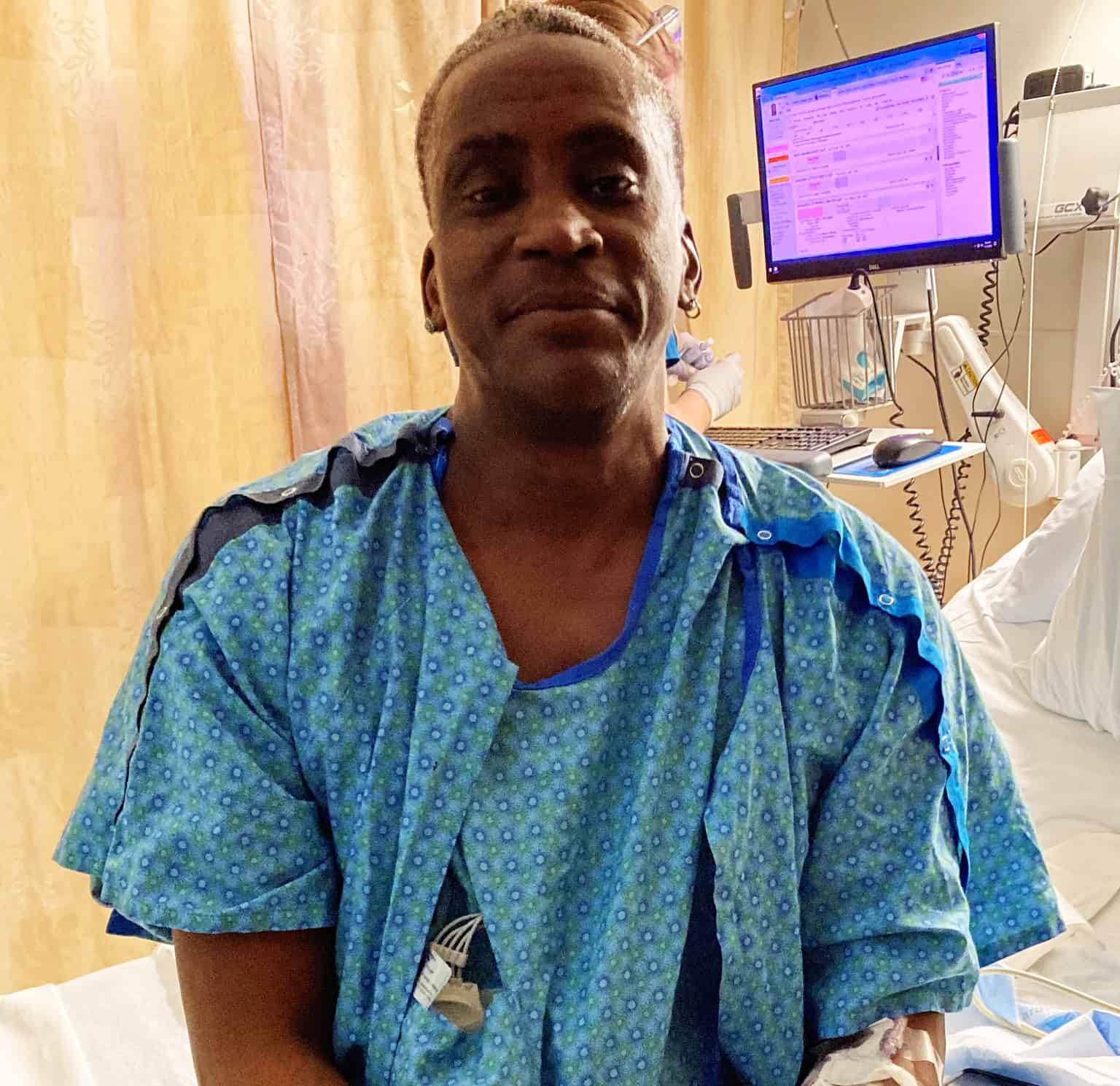
Mark Muex – Patient, Community Advocate
You have heard the news around the surge of patient care in hospitals and the long waits in emergency departments. We recently visited our own ED and soon met a patient who was grateful, regardless of the delay. We spoke to Mark after he waited 15 hours in the ED for a room. He was seen for congestive heart failure and asthmatic COPD.
“This is the only hospital I use. I love the people here. I love to be where people I know are and I know nearly the whole staff from being here so much. Some of my family members have worked here too.
Some poor decisions I made in the past tore down my community. To make amends, I’m giving back. Now I’m involved with a group called Brothers EMpowered. Throughout the pandemic, we fed thousands of people. We give away gifts to our youth, like bikes and backpacks. We also have a clothing store in the Northtown Mall. I see and feel gratitude knowing that I’ve helped somebody.”
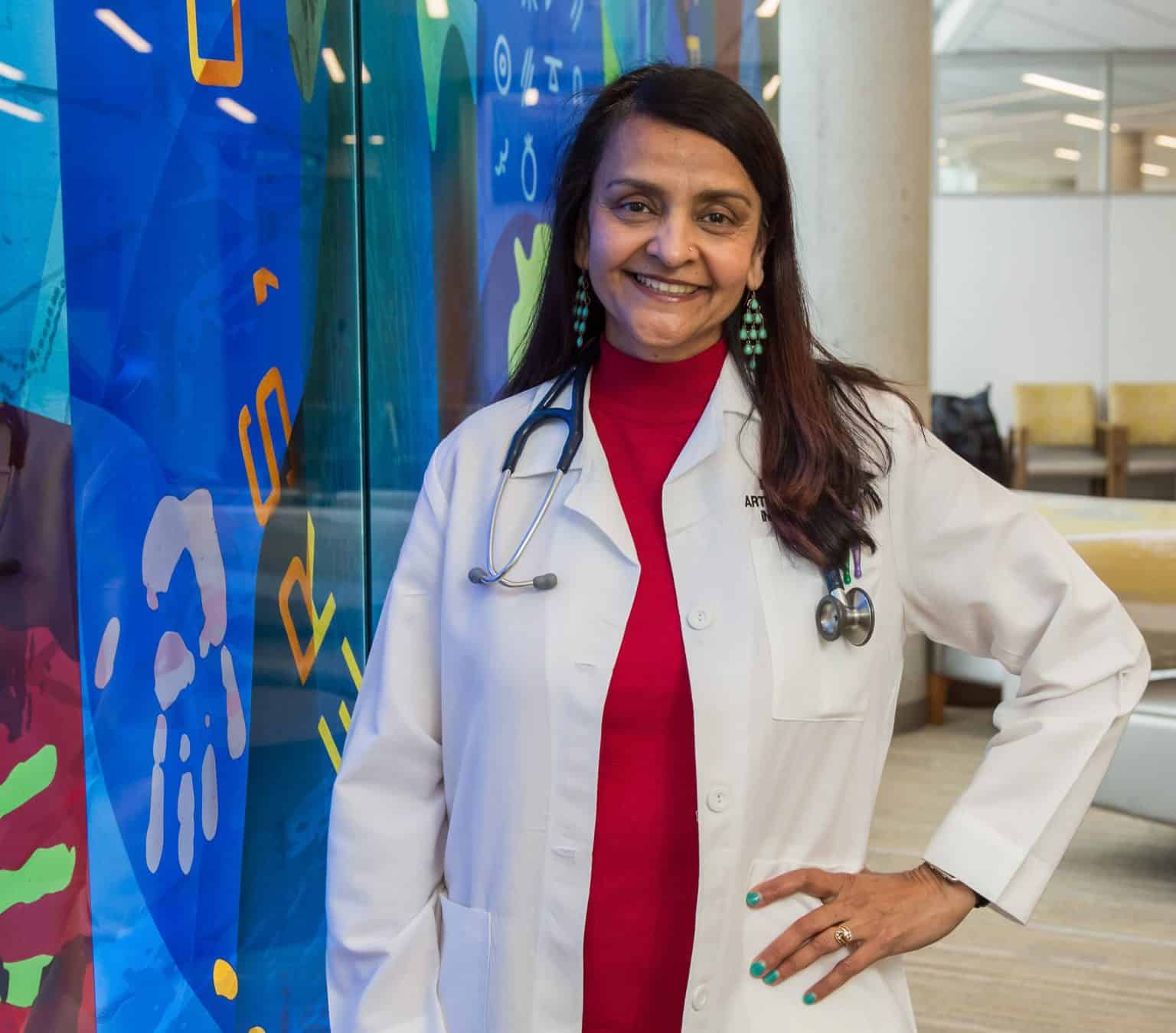
Arti Prasad, MD, FACP – Chair of Internal Medicine
“The most rewarding part of my job is to assist our providers and leaders succeed and to provide compassionate care to my patients. I like to mentor, support, and advance our faculty in their careers, clinical work, education, and research. My pleasure comes from other people’s success and patient outcomes. It’s an honor and privilege to be leading and supporting my team in all aspects of their work.
Not everyone sees the human side of me because they might only regard me as an administrator, the Chair of Internal Medicine. I too am a human who feels the same despair and frustration, especially given the situation we’re in as healthcare workers. But I’m grateful for my team every day, and that brings me joy.”
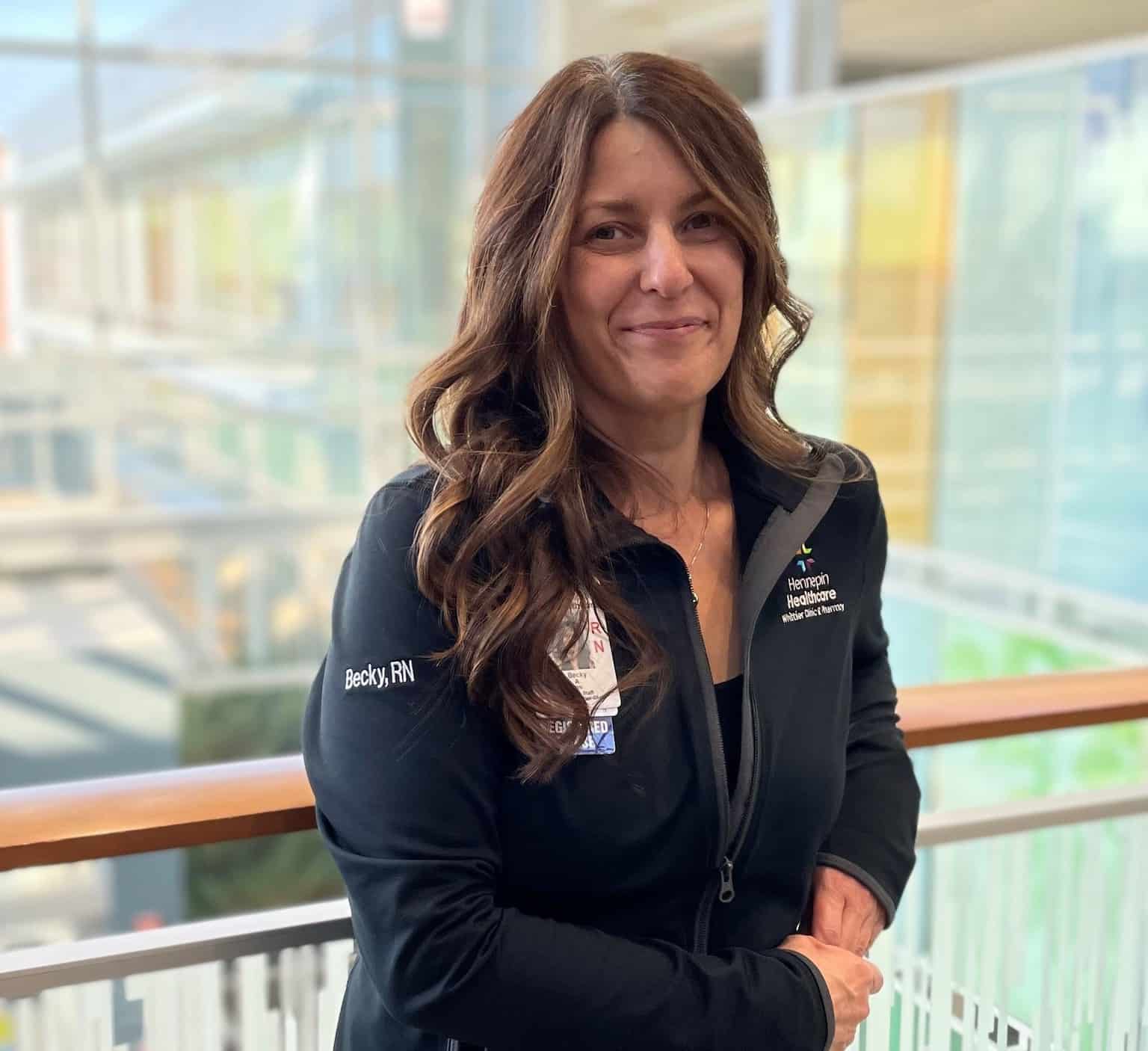
Becky Anderson, RN – Whittier Clinic
“We started vaccinating children ages 5-11 for COVID-19, so there’s a lot of excitement here. The parents are really happy – although the kids aren’t too happy about getting a shot. It’s a big deal for the parents to get their little ones vaccinated. It’s been a long time coming.
We’re serving and helping so many people with the vaccinations and preventing hospitalizations. Everyone seems really grateful for what we do here, and that’s nice to see.”
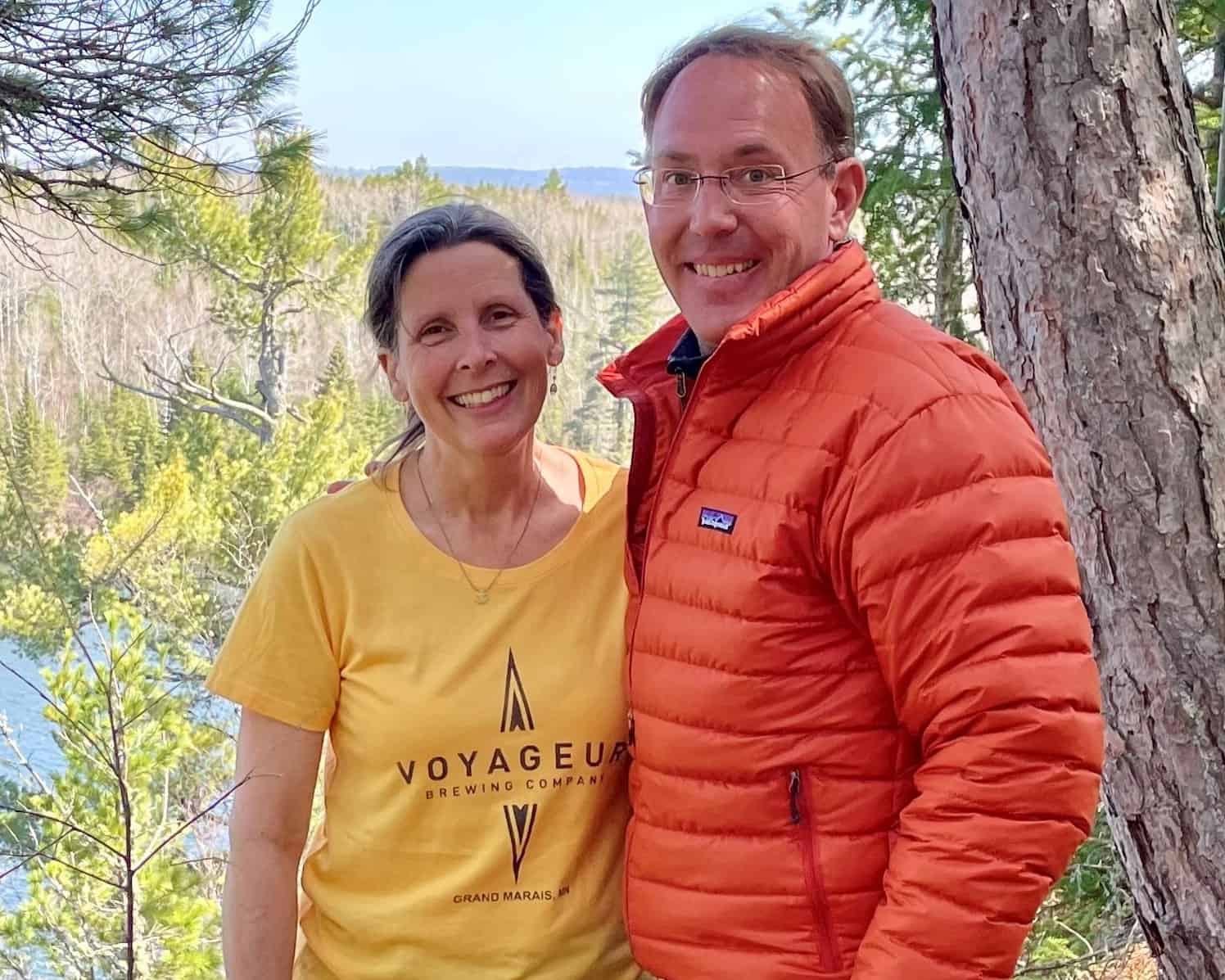
Clay Ahrens – Patient, Father, Husband, Friend
“I’ve known about Hennepin Healthcare all my life since I worked as an executive with Allina Health, but I didn’t have any interaction until I was referred here with ALS in 2014. It’s patient-centered to the core, meaning that everyone on the team – a neurologist, PM&R doctor, pulmonary doctor, RN, PT, OT, nutritionist, speech pathologist, social worker, ALS chapter care coordinator, lab tech - visits me. It’s the best model I’ve seen.
The average life expectancy for ALS is 2-4 years, but I’m almost at eight years. I didn’t know if I’d see my kids graduate from high school. Seeing them both graduate and thrive in college has been a gratifying experience for me and my wife. I plan to be there for as many life events as I can. ALS teaches you not to take those for granted. I appreciate them that much more.”
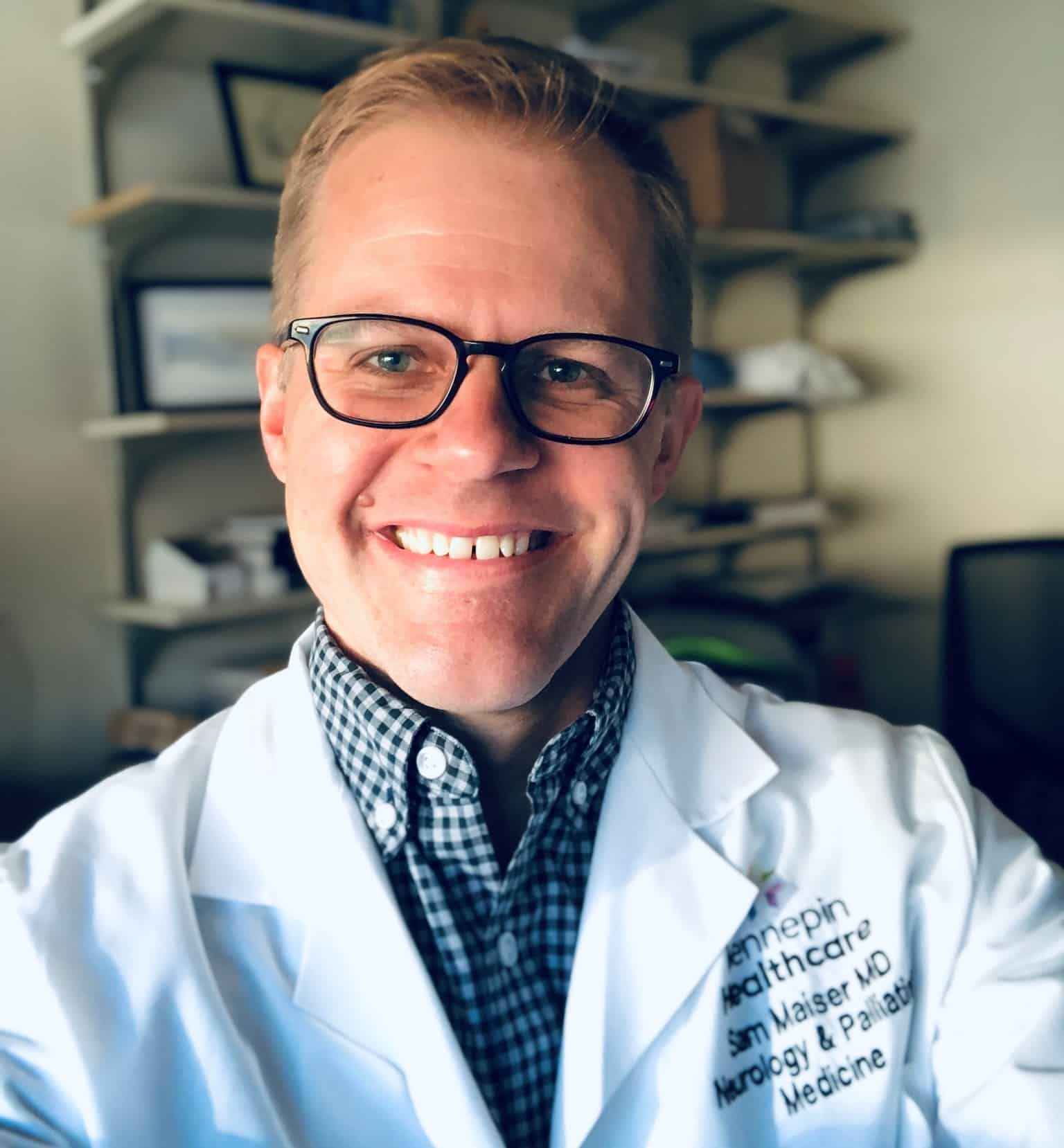
Sam Maiser, MD – Neurology & Palliative Medicine
“The human brain is the most amazing thing I know, along with the love and compassion that we humans can give one another. I wanted to spend my time thinking about the brain and helping people affected by nervous system disorders. I specifically became interested in ALS because I found a lot of meaning being involved in people’s lives during the tender moments of their serious illness. I am grateful to be involved in many aspects of care – from the beginning to the end.
Sometimes people think palliative medicine means we only take care of patients who are dying. I like to help people with serious illness live their best life, so it’s not really a focus on them dying - it’s a focus on them living.”
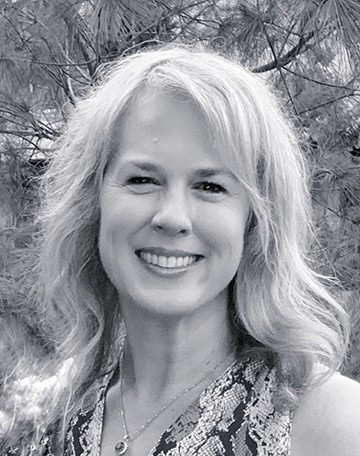
Rebecca Anderson – Hennepin Healthcare Foundation Board Member
“The path that led me to Hennepin Healthcare was serendipitous and like many good stories, started with a cup of coffee and an old friend. That friend happened to be Karin Vaccaro, Hennepin Healthcare’s music therapist. The conversation veered from pleasantries to the urgent task of raising money for the music therapy program.
Music therapy depends on the generosity of the community. When I saw the joy and healing that music therapy brought to its patients, I wanted to dig deeper into the patient experience at Hennepin Healthcare.”
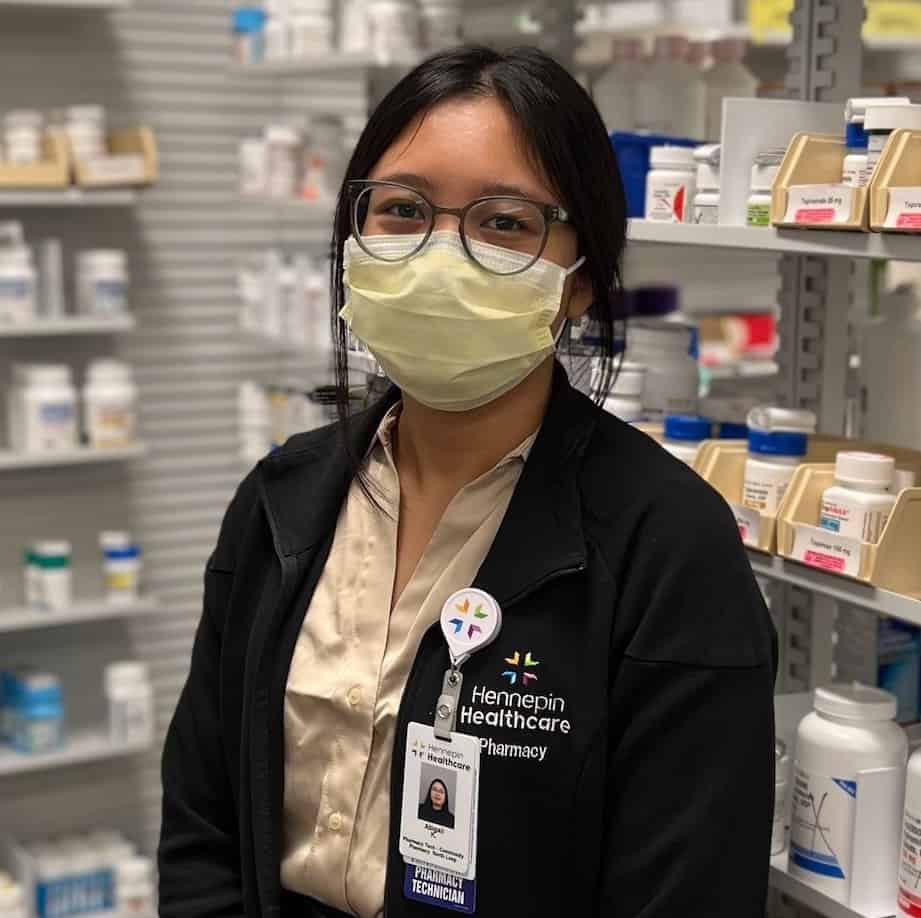
Abby Khaleet – Pharmacy Technician
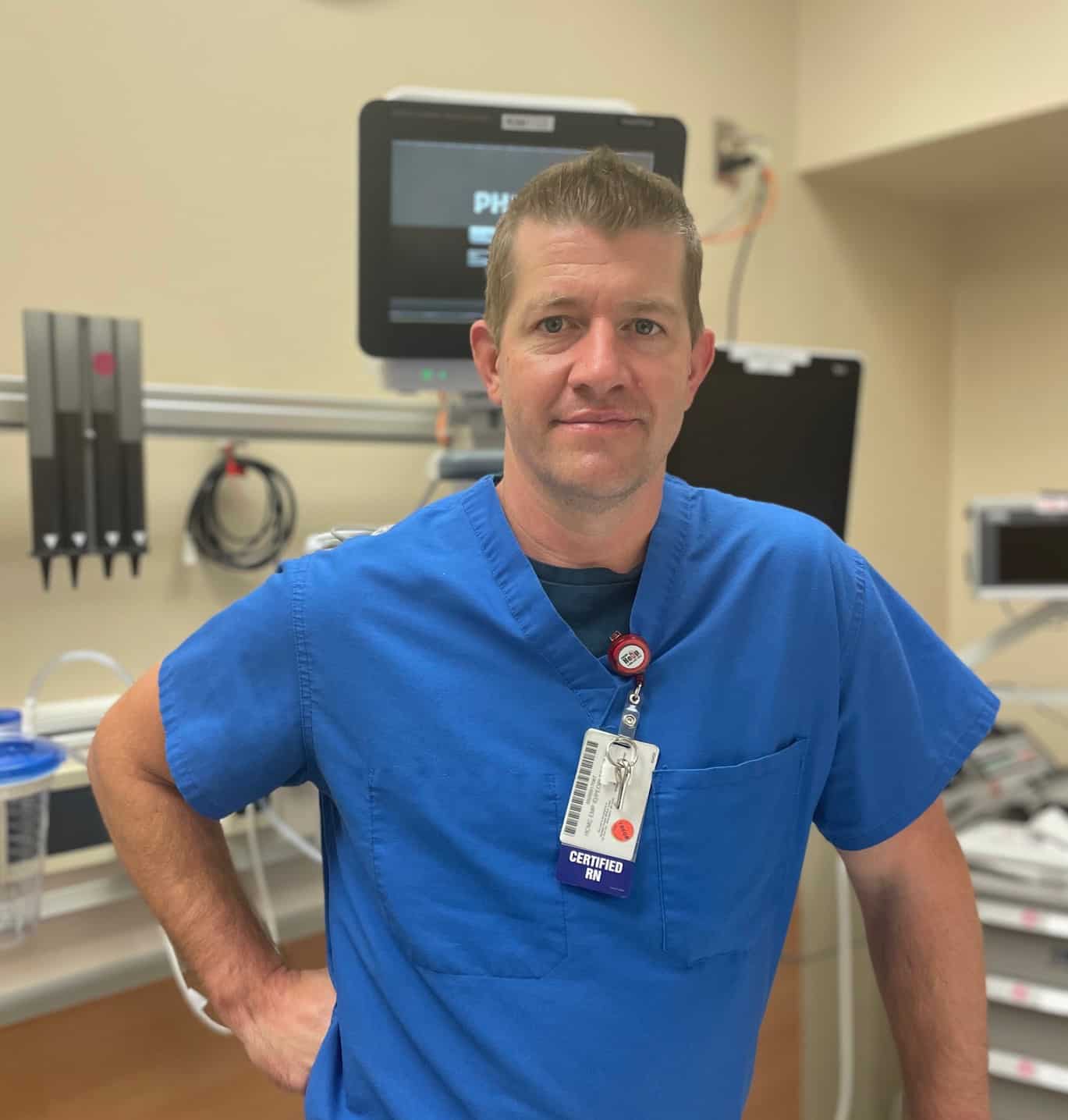
Anthony Gentile, RN – Emergency Department
“The ER is like this great buffer zone for the hospital. If everything is functioning like it’s supposed to, you’ll only see emergencies here. With the surge, we are holding admits and handling inpatient care. We see increased social issues and low acuity when patients have difficulty accessing other care options. We’re always open.
We can also be a microcosm of society. You’ll know what’s happening in society by who is showing up in the ER and why. You feel you’re directly involved in the world’s issues because they spill in every day and you have to problem solve.”
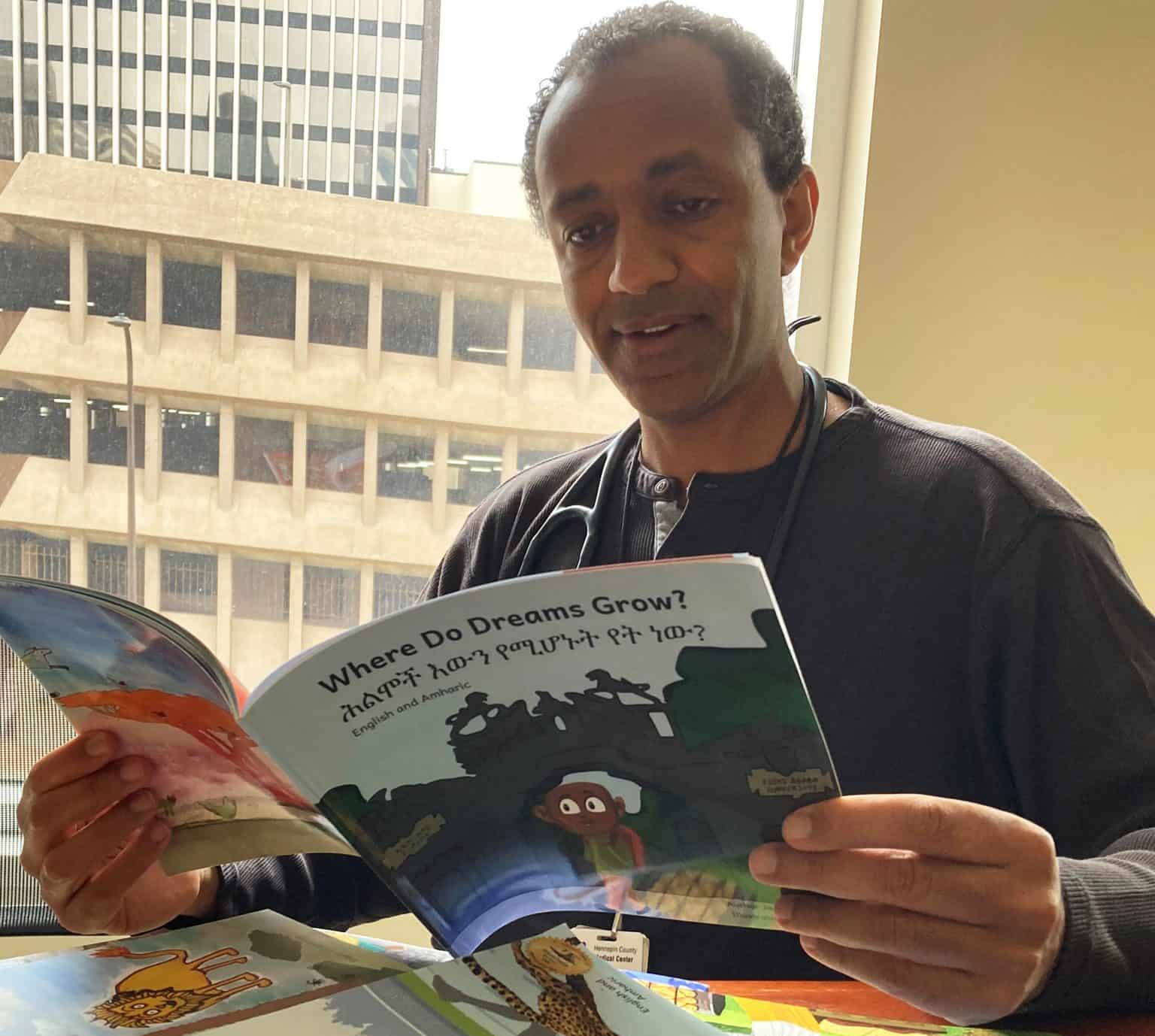
Woubeshet Ayenew, MD – Cardiology
“I have two boys ages 9 and 12. We’re from Ethiopia and I wanted them to be raised bicultural and bilingual. Attractive bilingual children’s books were hard to find. That’s how I joined Ethiopia Reads - to help create picture books in both English and Amharic.
100 children storybooks later, I see great similarities in the skills I apply to create the children's stories and to be a cardiologist. The clarity you seek to engage a patient in managing a complex heart disease is the same skill that is needed when you are telling a child a story on bravery, empathy, or other lofty values. That connection helps achieve big ideas and goals.”
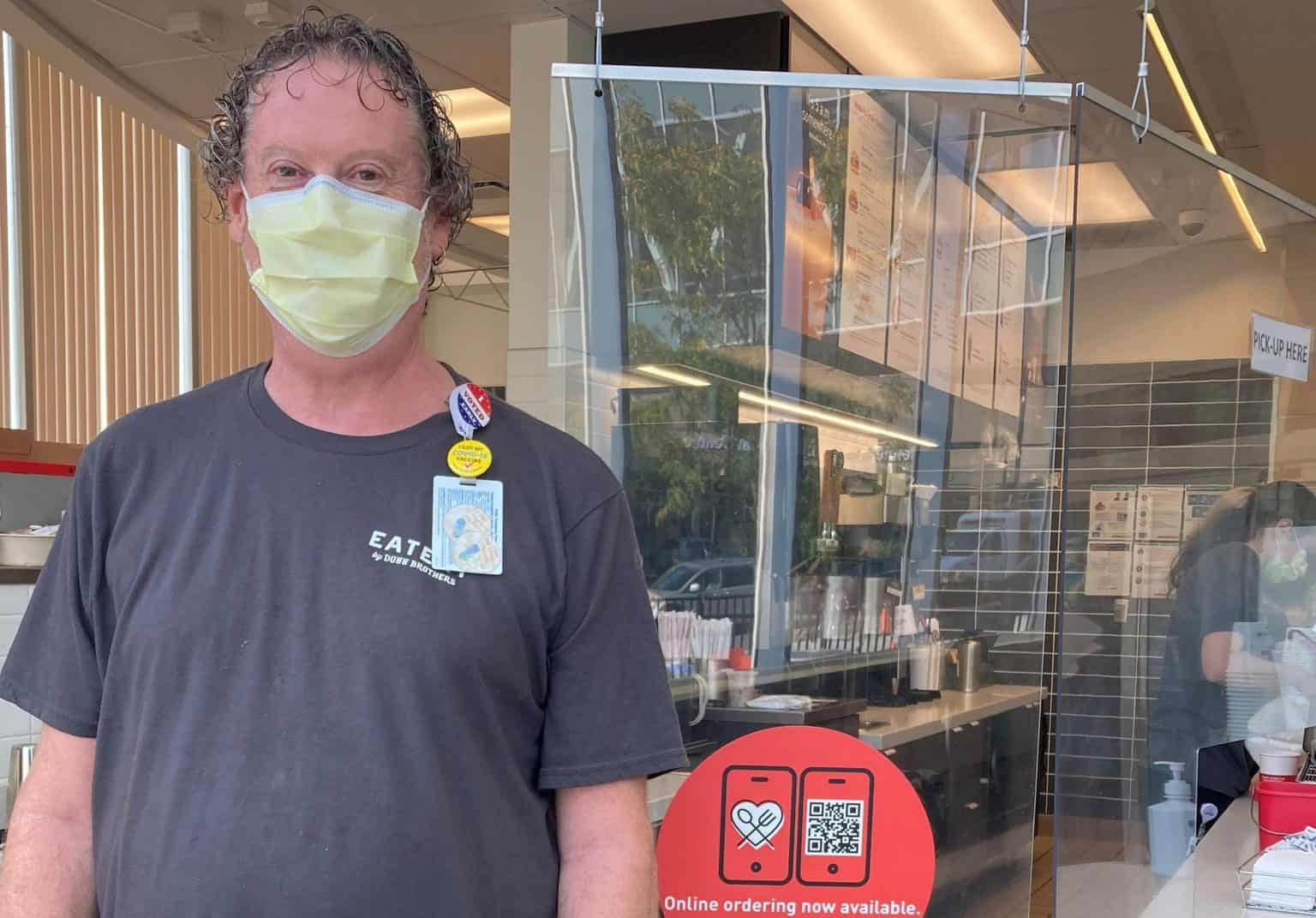
Bob Stiles – Dunn Brothers barista
“We have a constant influx of different people, whether it be patients, hospital staff, or visitors. Most stand-alone coffee shops get people from the neighborhood, but here, we see a mix of everybody from all over the city and I think that’s fascinating.
Some customers I know by name or drink. It’s good to talk to people and be compassionate. They’re here for all sorts of reasons. There are a couple ladies that come in and we talk about what books we’re reading. People appreciate a little bit of recognition like that.”
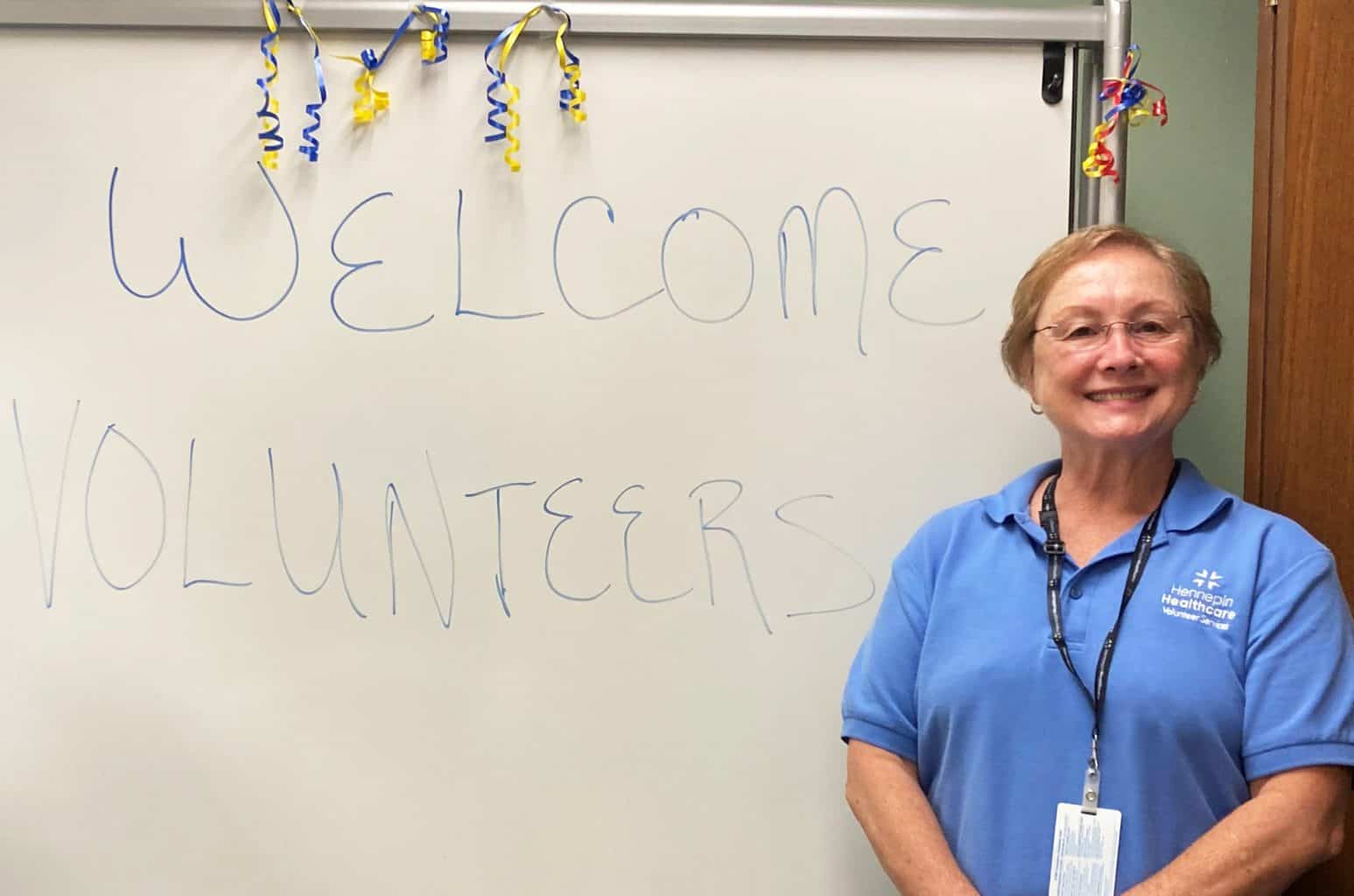
Mary Jorgensen – Volunteer, Simulation Center & Volunteer Office
“I started coming to Hennepin Healthcare in 1971 at the old general hospital when I had my son. The providers here have taken good care of me and all my medical needs. I wanted to return that favor.
Not being able to volunteer was an odd time. I felt like I was halfway here – laid off, but not unemployed. Returning has been busy because departments have been backed up, so I’m glad to come back and give any assistance they need. I missed doing something valuable for HCMC. The teams here did so much for me, so to pay that forward is beneficial for me.”

